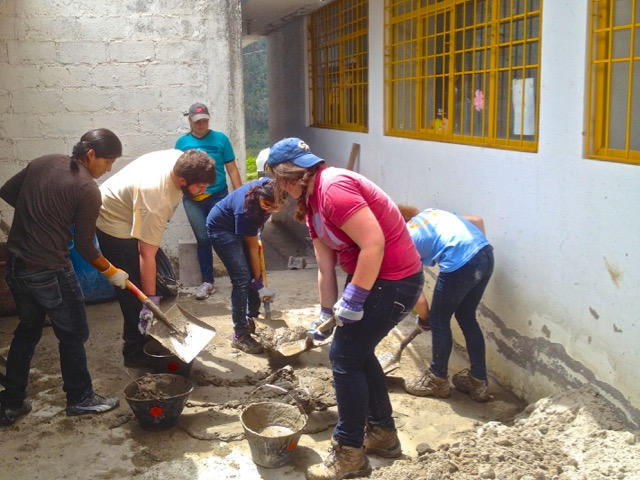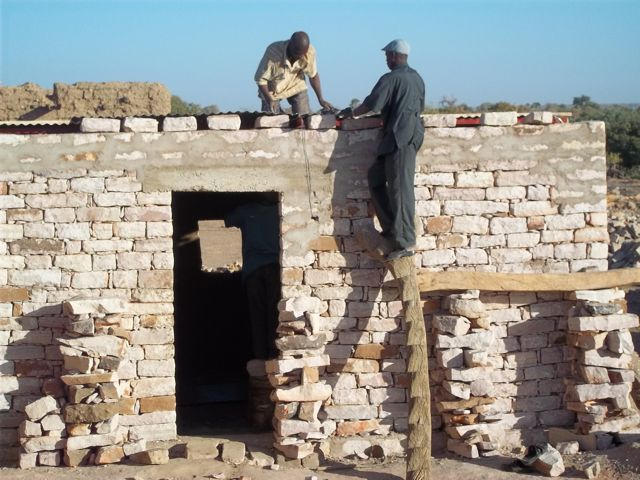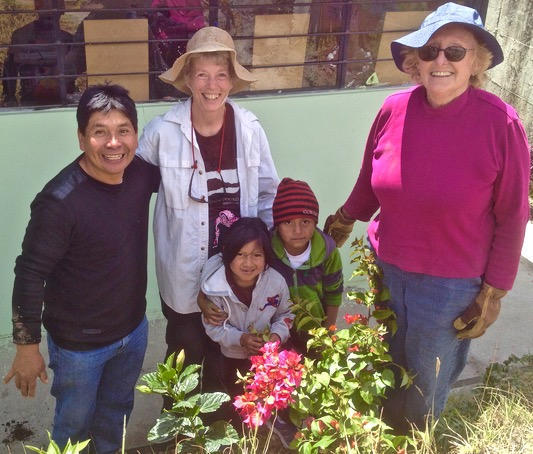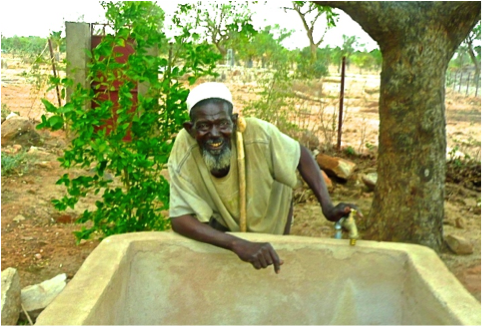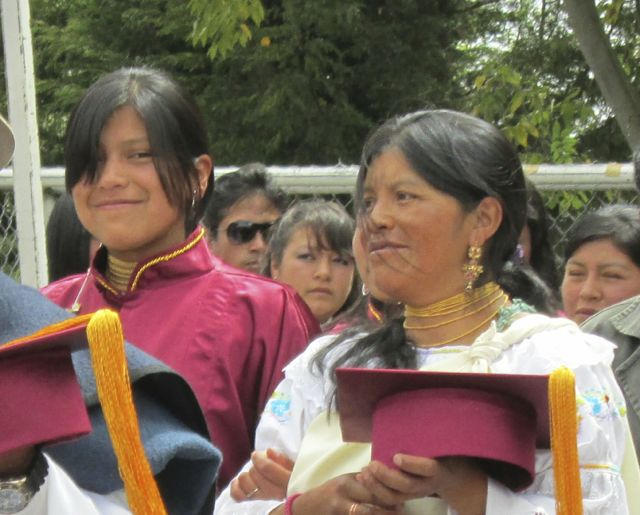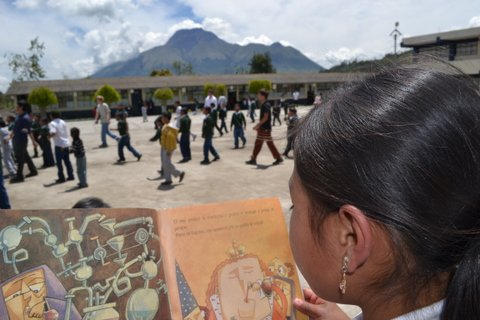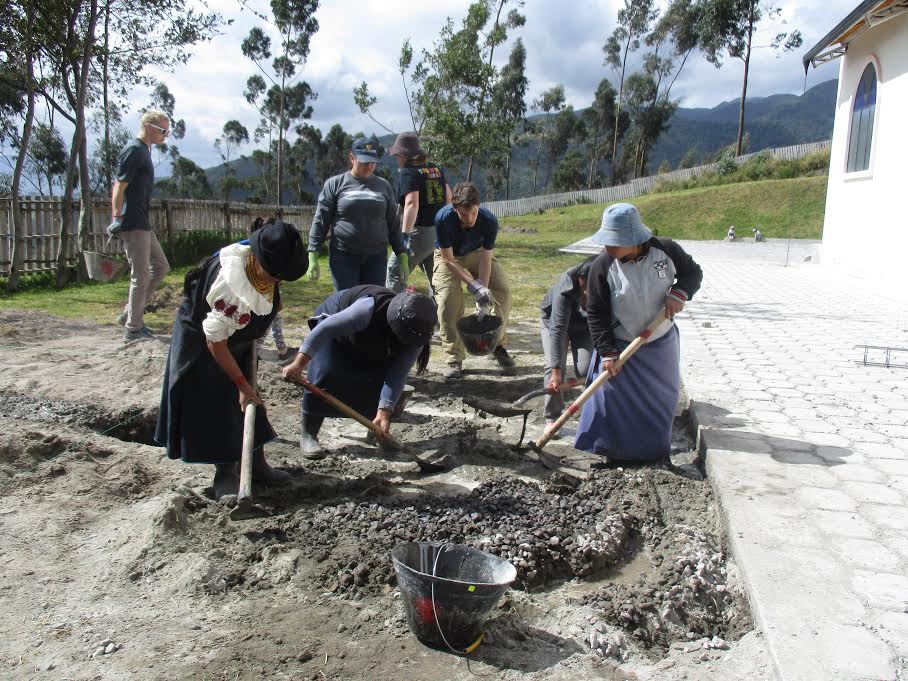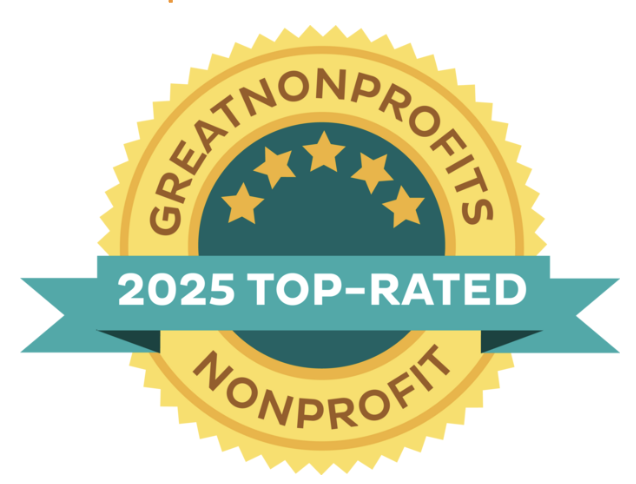What We Do
We support a wide variety of community initiatives, because they all emerge from community priorities, which are as varied as the local contexts and the residents' dreams for the future. We also offer intercultural volunteer programs that promote friendship and mutual understanding while supporting community initiatives. You can get a flavor for the diverse programs and projects we collaborate on by reading the annual summaries below.
2025
Ecuador
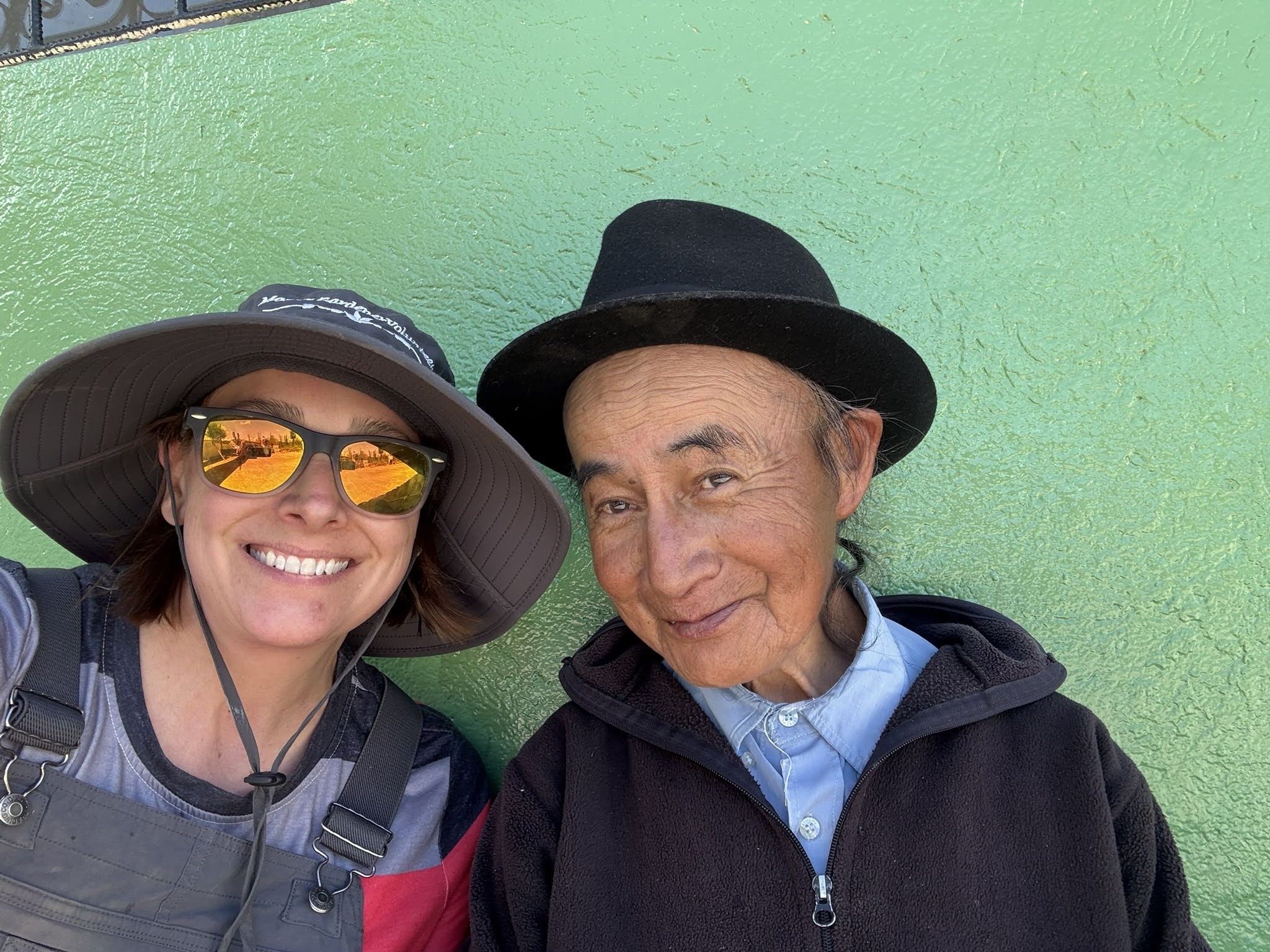
Two groups of Ohio Master Gardeners enjoyed two exciting weeks of gardening, farming, and cultural activities. They spent the mornings learning Ecuadorian techniques for gardening with members of the parents association of the Modesto Larrea Jijon School in Carabuela. Together, they created a vegetable garden, planted fruit trees, and maintained existing garden beds. In addition to their hard work, the volunteers enjoyed many cultural activities, such as: learning about Otavalo cuisine, discovering the meaning of Kichwa Otavalo dress, and playing a Kichwa game known as Triki-Traka. The groups also had time to enjoy visiting places such as Cuicocha Lake, the Peguche Waterfall, and the Polylepis Lodge, where they got to know the different kinds of flora and fauna in the paramo ecosystem.

The volunteers in our “Trip with Intention” group worked on two different projects, having the unique opportunity to experience intercultural learning in two communities. During two days in the community of San Juan de Inguincho at the Marco Aurelio Subia school, they worked together with the school community (teachers, parents, and children) to paint the classrooms and the basketball court, creating a positive educational environment for the students. Then they spent three days in the Cuaraburo community, working hand in hand with members of the community (between 40 and 50 people per day) on a potable water project. In the mingas (a local tradition of community collaboration for a common goal) they worked on excavation and then laying the pipes for the water system. Together, all involved learned the value of “many hands” working for a common goal.

A group of volunteers from Saline High School in Michigan worked in the community of Panecillo, on a new phase of an ongoing sewer project. Together with the community they worked in “mingas” (community collaboration for a common goal) to incorporate 8 new families into the system. This project not only aims to improve the quality of life of the community members, but also to contribute to the protection of the environment and natural resources. The volunteers had the opportunity to learn about Kichwa Otavalo culture with the community and experience first-hand the importance of indigenous community organization. As the president of the community, Lidia Alba, told us, “the community organizes itself and participates in its own development.” The group had the unique experience of joining together with a community motivated for its own development.
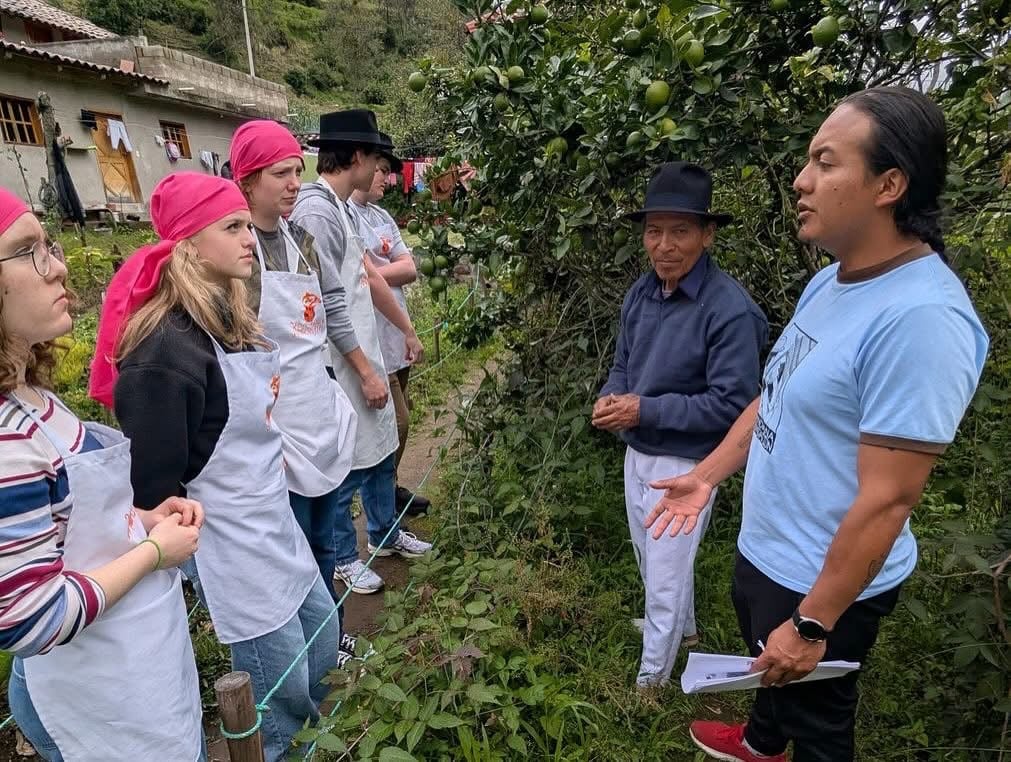
A group of volunteers from The Wellington School in Ohio worked together with the students, teachers, and parents of the school CECIB Provincia de Pichincha in the community of Tangali, Ecuador. Together in these “mingas” which are ancestral community collaborations for a common goal, they promoted interculturalism, environmental conservation, and Kichwa Otavalo cultural and artistic values through painting a mural. They also supported the school's guinea pig breeding project by providing food and cleaning the alfalfa production area, and also supported in the school's sports and English classes. The group had the wonderful opportunity to live with host families during their stay, turning the day to day into a unique experience of personal development and intercultural sharing.

Tandana staff and healthcare professionals from Quichinche provided medical, dental, and vision care to 100 students at Saminay El Legado High School. Due to lack of time and resources, it is difficult for students in remote communities to have appointments at health centers so having our mobile units visit the schools and other gathering places is therefore particularly important.

Tandana scholarship student Mikey Salvador Panamá Perugachi, from the community of Corazón de Perugachi and who studied at the Universidad San Francisco de Quito, completed his program in dentistry and graduated!
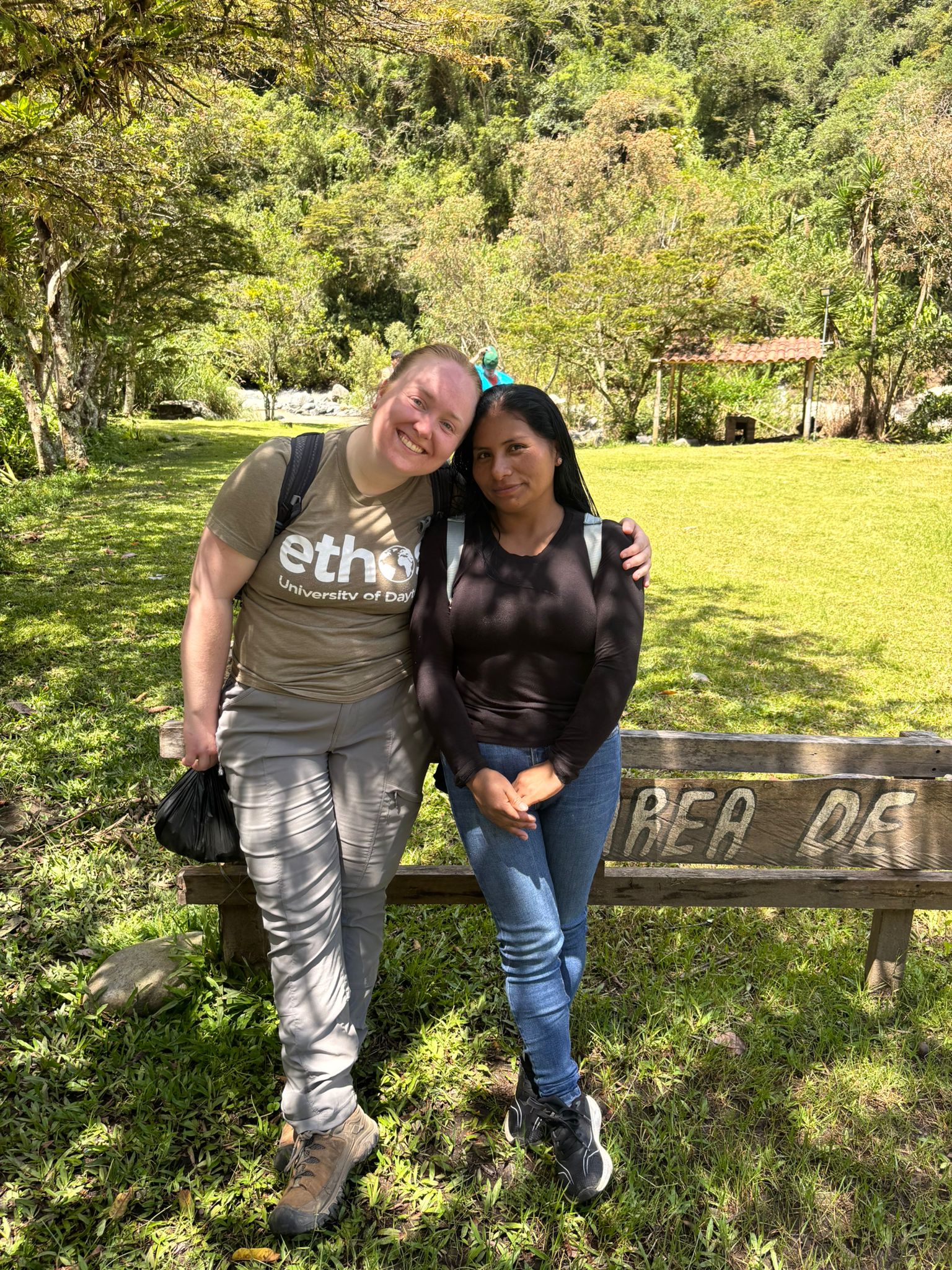
A group of ETHOS students from the University of Dayton enjoyed nine exciting days of community work. They learned what a minga is by participating with the women who make up the CPRY Women's Group in Yambiro. In the mornings, they worked together to complete a fish pond and connect the water to it, so the women’s association can raise tilapias as a new business. Everyone was excited to release the first fish into the pond! The group also visited the capture and treatment sites for the Panecillo Regional water system and suggested potential solutions to improve the water quality. They also enjoyed cultural activities such as a talk about indigenous justice, a visit to the Otavalango museum, making “humitas and colada morada” (typical food and drink in Ecuador), visiting a weather station, and, along with their host families, taking an excursion to the Nangulvi hot springs to enjoy their day together.

Congratulations to Sisa Panama, who graduated from Universidad Technica del Norte with a degree in mechatronic engineering!
 The 2025 Tandana Summer School was a complete success! It began on July 7th and ended on August 1st. A total of 23 children, aged 11 to 15, had a unique intercultural experience with our team of international teachers. We are grateful to our team of teachers who passionately created wonderful experiences for our students in their english, math and theater classes as well as in various excursions. The summer school has the goal of providing children and teenagers of the communities of Quichinche the opportunity to take advantage of their free time in an interactive, respectful and educational space. We would like to thank the community of parents, students, teachers and individuals who supported this month of work and made it possible.
The 2025 Tandana Summer School was a complete success! It began on July 7th and ended on August 1st. A total of 23 children, aged 11 to 15, had a unique intercultural experience with our team of international teachers. We are grateful to our team of teachers who passionately created wonderful experiences for our students in their english, math and theater classes as well as in various excursions. The summer school has the goal of providing children and teenagers of the communities of Quichinche the opportunity to take advantage of their free time in an interactive, respectful and educational space. We would like to thank the community of parents, students, teachers and individuals who supported this month of work and made it possible.
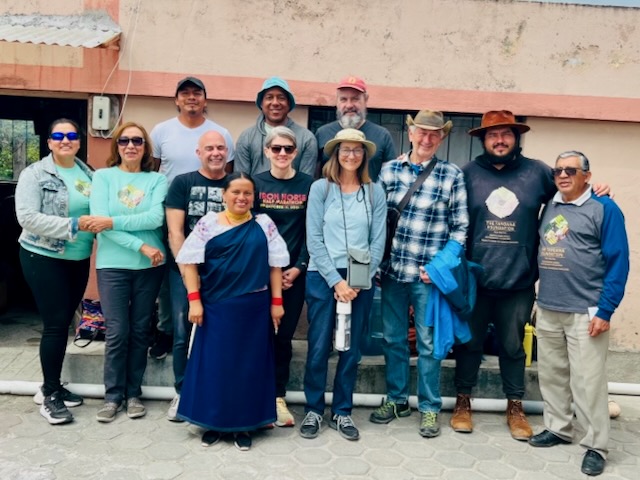
A group of professors from Miami University in Ohio had an immersive experience with the Tandana Foundation, learning about the Kichwa Otavalo culture and the community work that Tandana is doing. The group stayed in the community of Yambiro, in homes belonging to members of the CPRY women's group. They had the opportunity to learn about the community's irrigation and fish farming project, as well as its vision for development, and its history of collaboration with Tandana. During their stay, the group worked on the final phase of painting the Carabuela school, preparing a colorful and motivating environment before students start their classes. The group also collaborated on the project to construct a perimeter wall around one of the filtration and distribution tanks of the Regional Panecillo water system. The group not only supported different communities with their development goals, but also had the opportunity to learn more about the intercultural health system, the intercultural education system, local food, indigenous justice, different entrepreneurial initiatives, and the history of the Kichwa Otavalo people.
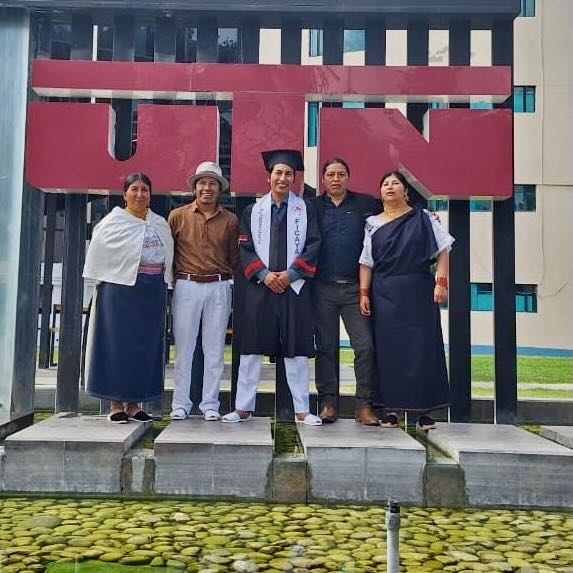
Esteban Alejandro Castañeda Iza from the community of Moraspungo has graduated from the Universidad Técnica del Norte in Ibarra. He earned a degree in Agricultural Engineering. Congratulations to Esteban!

Congratulations to our scholarship student César Francisco Quilumbango from the community of San Juan Loma! He has completed his university studies with a degree in public relations!
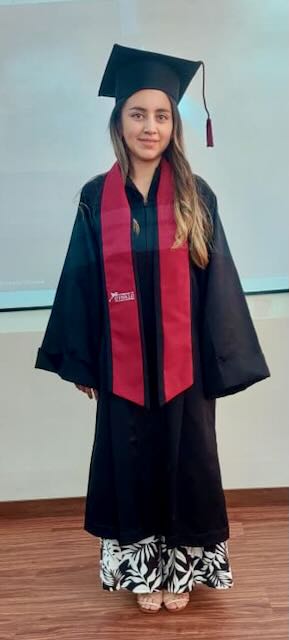
Mariuxi Cristina Flores Sánchez graduated from the University of Otavalo with a degree in Accounting and Auditing. Congratulations!
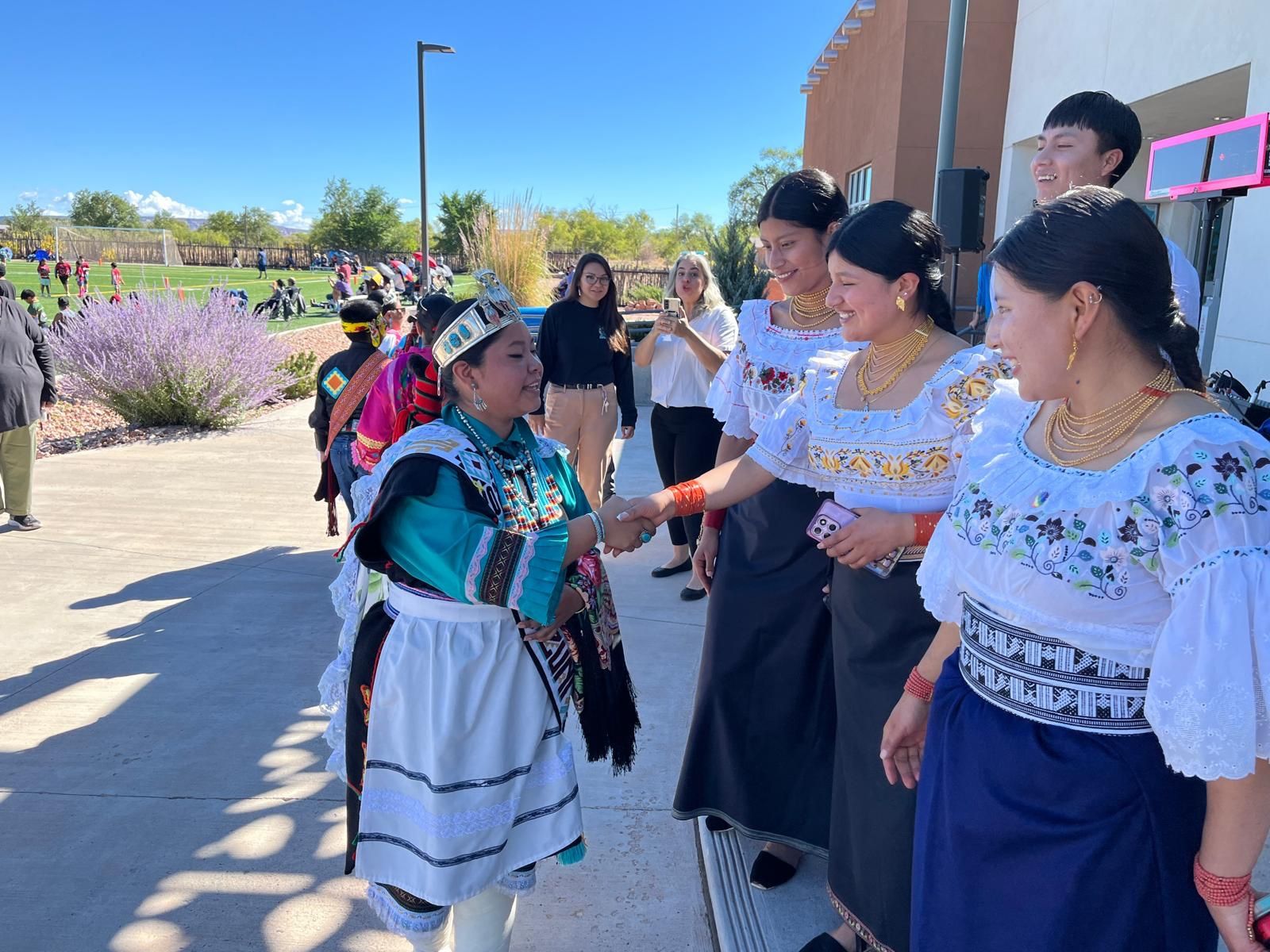
After many years as a dream, Tandana's first reciprocal exchange program--students from Ecuador visiting the United States--has become a reality. Five university students in our scholarship program and our Scholarship Coordinator from Ecuador spent two weeks in Colorado, New Mexico, and Arizona experiencing new cultures, contributing to local initiatives, learning about challenges and solutions, and making amazing connections. While in the United States, this group formed incredible friendships. They engaged in thoughtful discussions about water use, agricultural practices, food security, cultural and religious values, and more. They pitched in to all kinds of local efforts from gleaning fruit for food banks to building houses for Zuni Shalako ceremonies. And throughout their visit, they represented both their Kichwa Otavalo culture and The Tandana Foundation with outstanding grace, kindness, wisdom, and generosity. A highlight was a public event they performed at the Sunflower Theatre in Cortez, Colorado where they invited a full house to participate in Ecuadorian stories, food, dress, dances, and more. They've returned to Ecuador full of confidence, new ideas, love for new friends, and inspiration to become even greater leaders in their communities. And they've left members of the Colorado, Zuni, and Diné communities they visited with new friendships, appreciation for Ecuadorian culture, and admiration for their ongoing journeys.
Mali

Construction of the new elementary school in Kansongho has begun! It will serve 3 villages: Kansongho, Assa, and Nounou. Young men from all three villages have organized themselves into work groups and have already broken a lot of stones to use in construction. A recent meeting among the contractor, Tandana, and village leaders confirmed the work plan, assigned clear responsibilities to each party, and visited the sites where sand and gravel for construction are found. The school is one of the projects made possible largely through funds raised through this past fall's Legacy of Hope event. Construction of the new school for the Kansongo community has been completed!
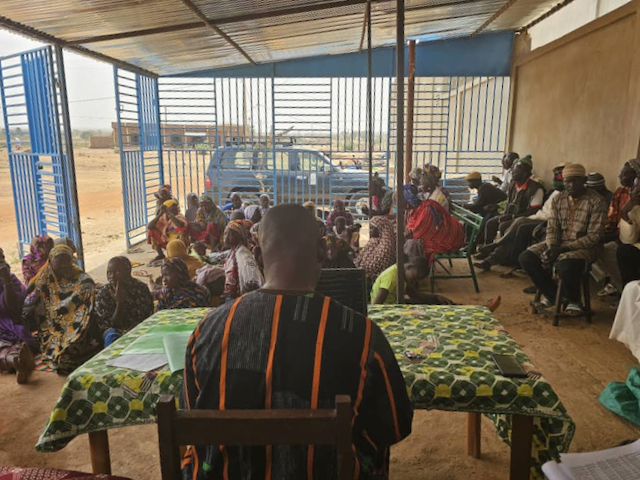
Our Mali team held a workshop to select 50 income-generating activities proposed by internally displaced parents for funding support. Those parents will soon start their businesses so they can earn a living in their new town. This support comes when they need it most.

Our Mali team held a ceremony to congratulate the Dr. Ash B. Varma, M.D. Scholars who earned their diplomas. The photo shows the scholars with representatives of the institutions where they studied. Congratulations to all our wonderful scholars and we wish them all the best in success throughout their careers.

The Olouguelemo Environmental Association held its general assembly. The members went over the results of the rainy season activities and made plans for the work of the dry season. Meanwhile, OEA members continued to expand ponds. It's great to see their important work continue and we hope that these positive outcomes continue well into the future.
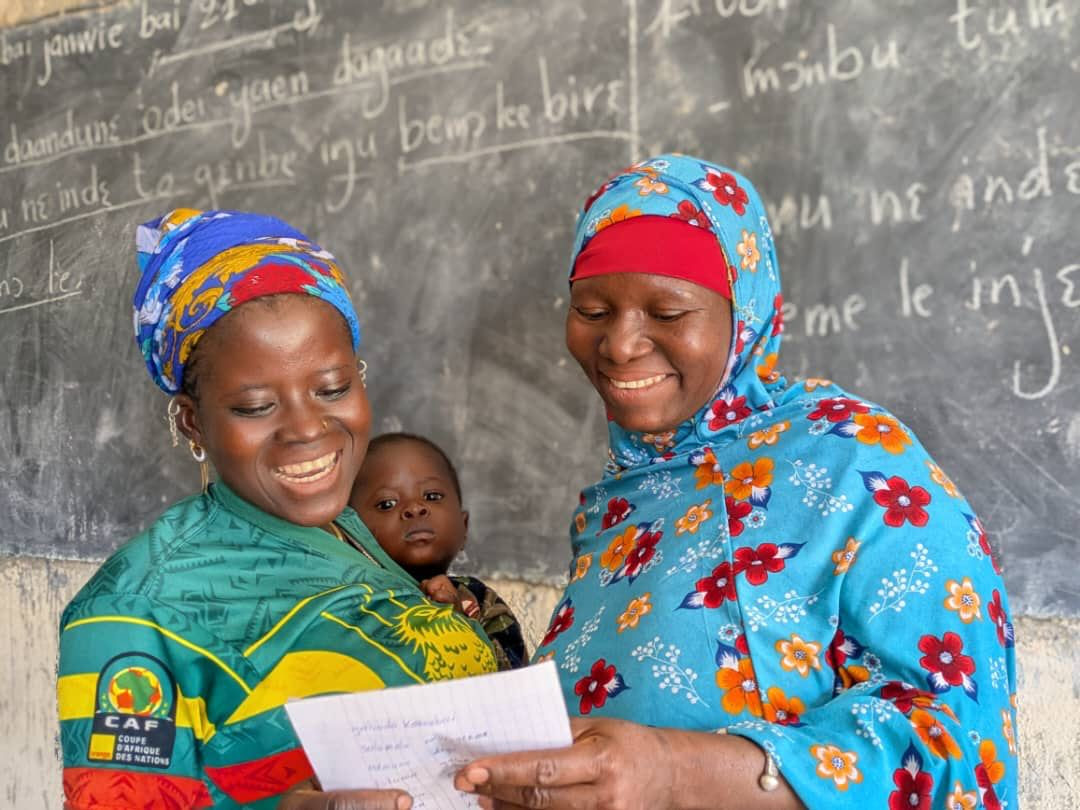
The first women’s leadership workshop of 2025 is underway in Kansongho with 100 participants who qualified from last year’s literacy cohort. This is a wonderful opportunity for local women and we congratulate them for being accepted into this new cohort.
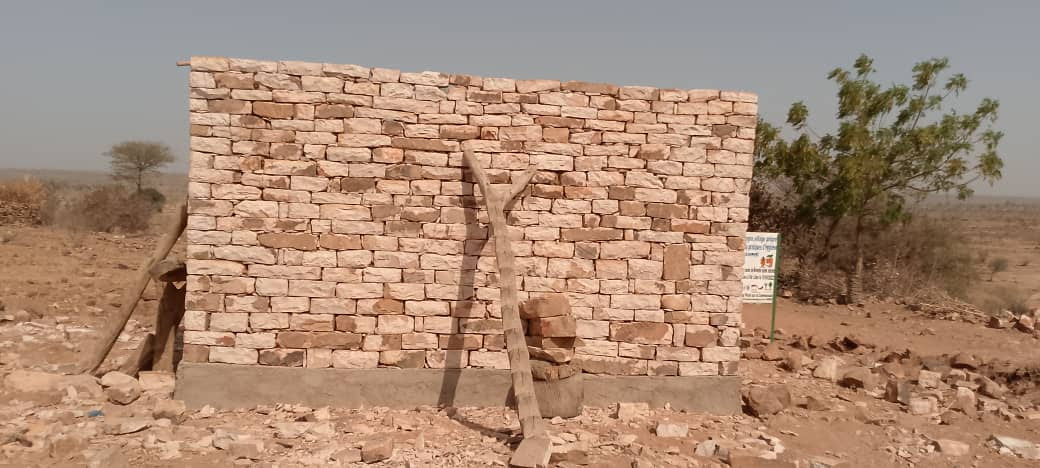
New grain banks in the villages of Orosseguou and Moe are under construction. Grain banks help local residents to have an ample supply of grain on hand all year round, even when market prices fluctuate and grain is hard to come by and more expensive. This smart and simple practice helps residents stay fed and saves money. UPDATE: The new grain bank in Moe has opened for business.

Thanks to a generous Tandana donor, the elementary school in Andjine now has a second community-based teacher supported by Tandana and the parents. Amado Karembe joins another teacher supported entirely by the parents, and a fourth provided by the government, to serve 173 students.

This summer, we learned that some of our displaced friends in Mali were suddenly without shelter. They were living in government housing in Bandiagara, but since that space was already designated for other beneficiaries, the displaced families living there were forced to leave. Many have had no shelter, just as the rainy season is beginning. We have begun to build makeshift shelters for them, as seen in the photo to the right. Since then, we have had an immediate and generous response from Tandana supporters to fund shelters for displaced families. Six families have already been placed in the shelters; five more shelters are being built. This news was met with great joy and many blessings said for the donors and for Tandana.

The Olouguelemo Environmental Association, established by Tandana, has kicked off its annual reforestation campaign. Close to 4,000 trees were planted last year and 20,000 trees since the program started in 2013. Wow!
2024
Ecuador
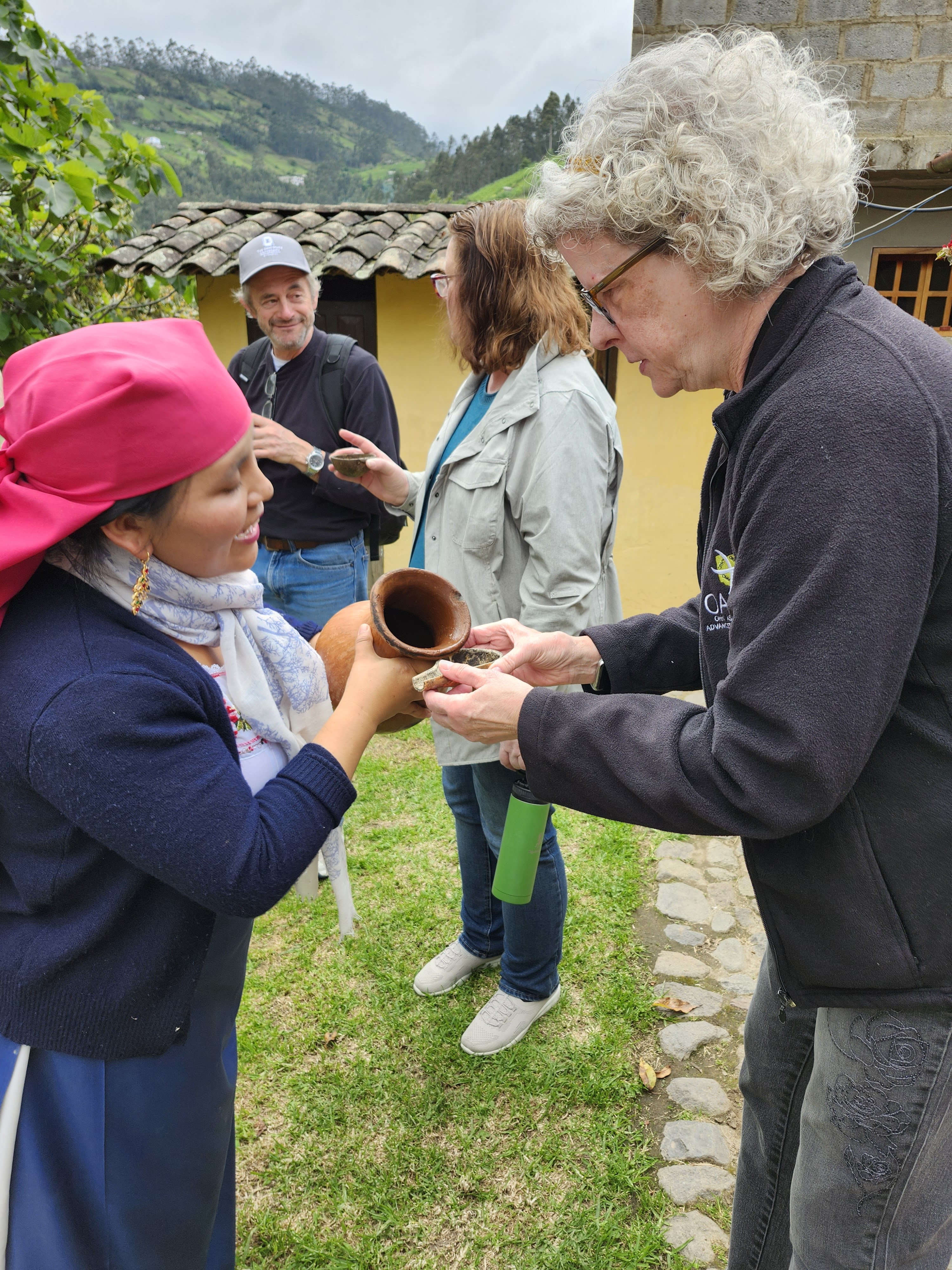
Two groups of Ohio Master Gardeners enjoyed a pleasant week full of farming, gardening, and cultural activities. They spent their mornings doing service-learning work in 2 communities. 1 day was spent working with Ñawi K. Flores and Kinray Hub on an Indigenous-led climate research project in the Kichwa Community of Arrayanes. 4 days were spent at the school in the community of Tangali where the group planted a vegetable garden that would support the students and their families. In addition to their hard work, the volunteers also visited the famous Otavalo market, they learned to cook and ate traditional local dishes, they attended a presentation about Kichwa Otavalo dress, they played the Kichwa game Triki-Traka, and they learned how to make embroidery. They also had a relaxing walking tour in a cloud forest Orchid Garden, and they enjoyed an exciting boat trip on the Cuicocha crater lake.

The Trip with Intention volunteer group recently cleaned graffiti and painted a mural at the elementary school in the community of Carabuela. The volunteer group and some of their parents were able to replace the graffiti with inspirational drawings highlighting Kichwa Otavalo Culture and the importance of building a positive learning environment for the children. Additionally, they also planted vegetables and fruit trees in the school in the community of Tangali. During their leisure time, they enjoyed a wide range of cultural activities taking place in the Otavalo area. They had the opportunity to make handicrafts made from reeds, and also visited the Peguche waterfall, among other things. The experience was enriching and helped the volunteers build connections with the local communities. On the last day of the trip, they went to the community of San Juan de Inguincho where a celebration was held in honor of the completion of a potable water project.
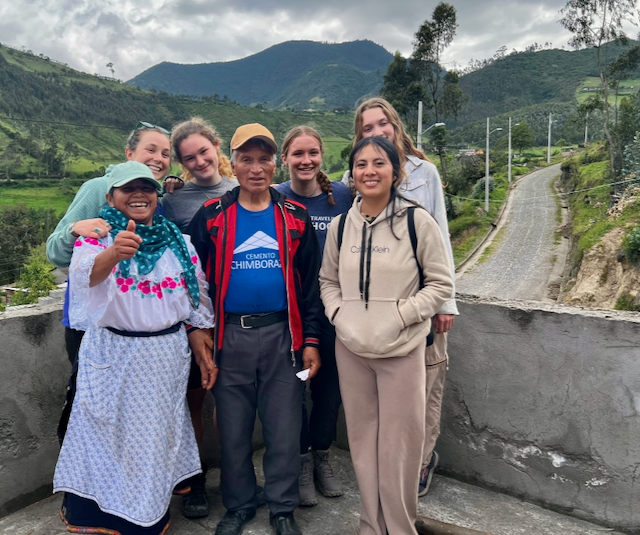
A group of 16 high school students from The Traveling School spent a week in the community of Agualongo, Ecuador. All stayed with host families and enjoyed a unique experience. The 12 volunteers and their 4 accompanying teachers became part of daily life in the host community, making local friends through an immersion experience that built a sense of global connection. The volunteers worked side by side with the local community members on the installation of concrete stadium seating next to the community soccer field. Besides their involvement with this project, the volunteers had the opportunity to participate in many cultural experiences, including a pambamesa community lunch, a presentation about the formation of the community, hiking and baking bread. They also went swimming at the Nangulvi hot springs in Intag. It was a great week!
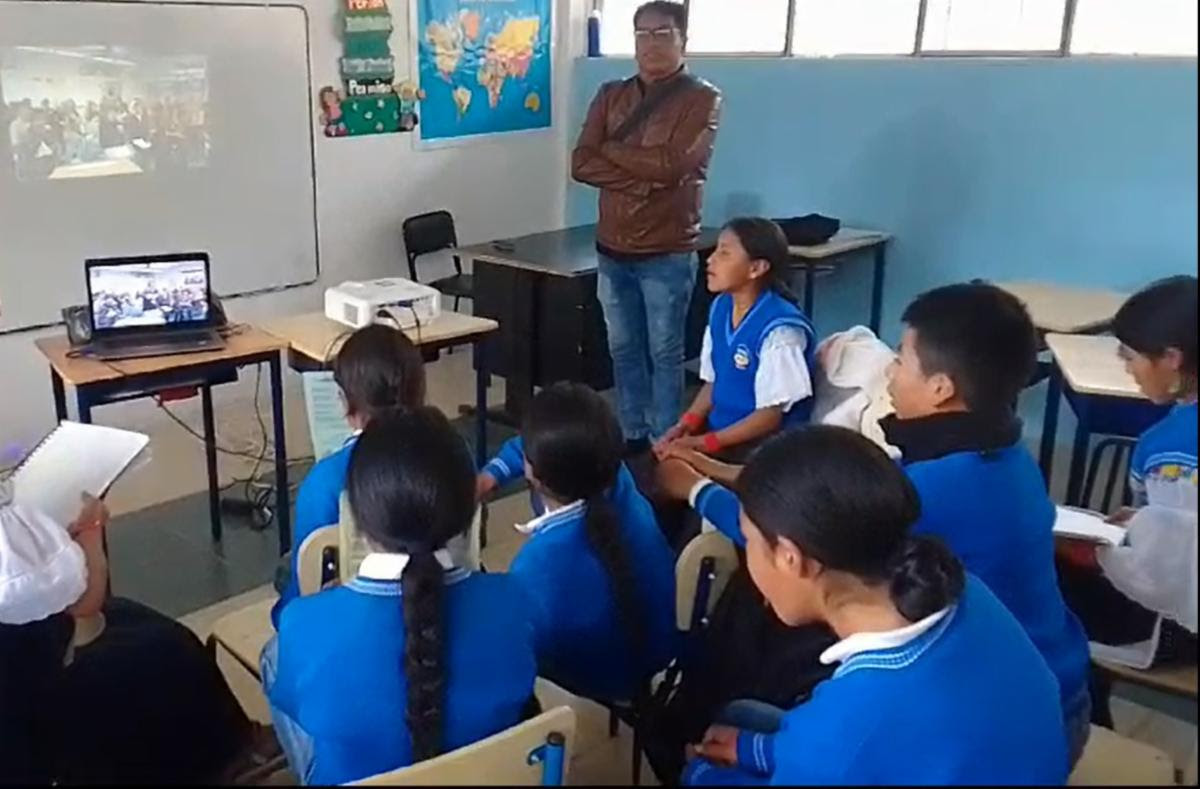
The intercultural exchange program connecting Sharon High School students in the U.S. with students at the Pichincha Province School (Tangali community), Ecuador, continued. Shortly before the Christmas break, the students of both schools had the opportunity to have interesting discussions about popular sports and arts. The American students then developed a variety of creative fundraising ideas to support a community project in Tangali in renovating a bathroom as well as helping start an income generation project with guinea pigs.
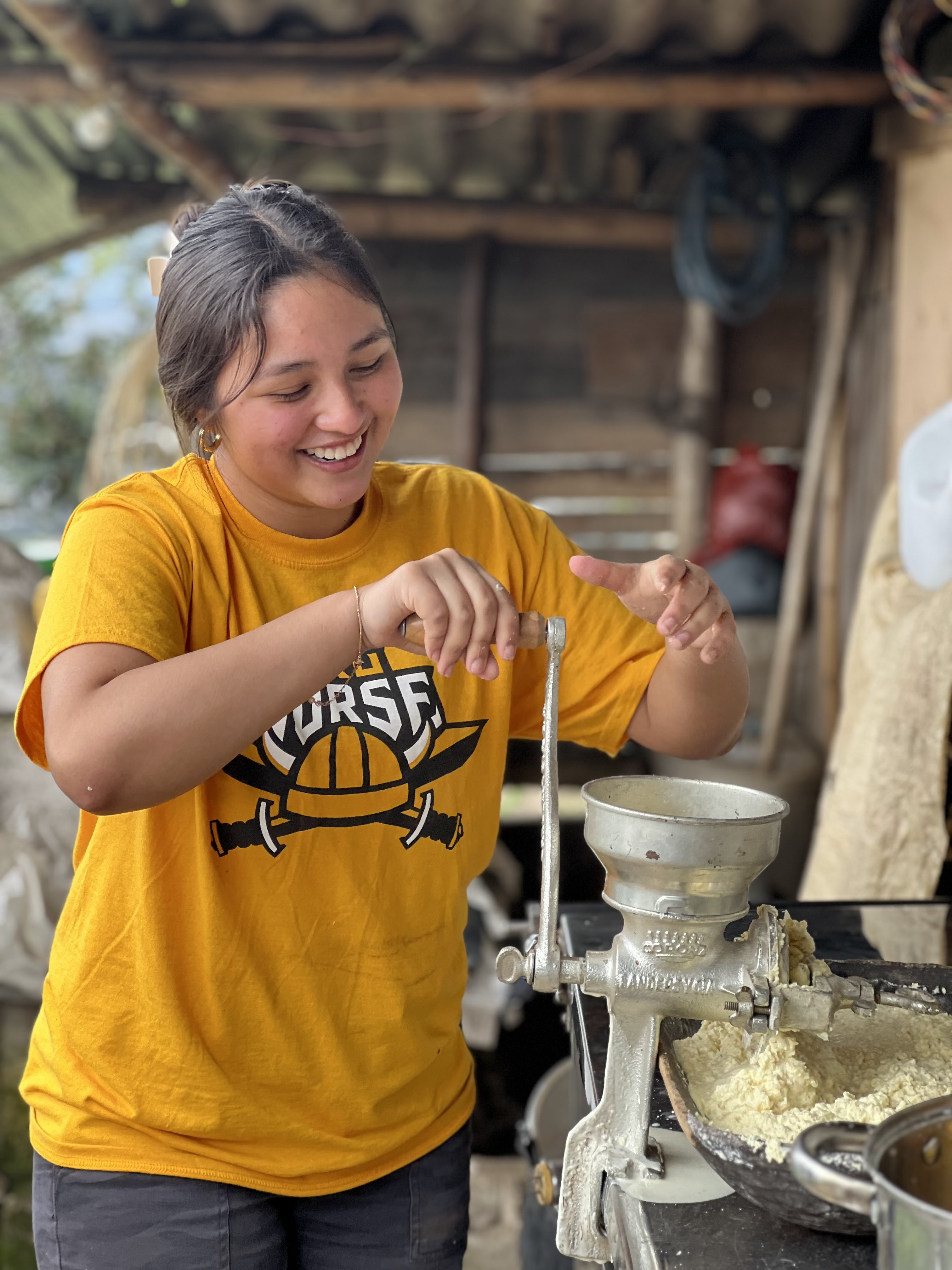
A group of seven volunteers from Purcell Marian High School in Cincinnati, Ohio spent a week of service and cultural learning with Tandana Ecuador in the community of Yambiro. The volunteers worked alongside residents of Yambiro to dig trenches and install irrigation water pipes. The project aims to enhance women's economic inclusion by providing water for various initiatives of female entrepreneurs, from growing fruit to farming tilapia. In addition to working alongside their hosts, the volunteers had a chance to participate in many cultural activities, such as a pambamesa community lunch, making savory steamed fresh corn cakes (humitas), attending a presentation about indigenous justice practices, and playing soccer games. Near the end of the trip, the volunteers and their host families had the opportunity to spend a day together at the Araque Water Park. Through this program, the volunteers explored a different way of life first-hand, as they met new friends and contributed to an important project.

A group of nine engineering students from the University of Dayton, Ohio spent a week with Tandana in the community of Yambiro, Ecuador and worked on the second phase of the community's irrigation water project. Led by a women's association, the community plans to use the water for farming tilapia as well as growing fruits and vegetables. In addition to working alongside their hosts, the volunteers had a chance to participate in many cultural activities, attending a presentation about indigenous justice practices, participating in a traditional ceremony to attract good energy, watching the preparations for Inti Raymi (the annual Festival of the Sun) and playing Ecuadorian volleyball. After a week of productive work in Yambiro, the engineering students headed over to the Natividad neighborhood of the community of San Juan de Inguincho, where they learned more about a project to bring drinking water for the residents. Towards the end of the trip, the volunteers and their host families had the opportunity to spend a day together at the hot spring pools of Nangulví in Intag. Through this program, the volunteers immersed themselves in an enriching cultural experience and supported an important community project.

An on-site clinic was set up for students at Saminay El Legado high school in the community of San Juan de Inguincho. Free preventive and restorative dental care was offered to 32 students. This type of free on-site clinic is very attractive because it means that the dental care is brought to the patients that need it and many can be seen all at once as opposed to patients having to spend time and money traveling to receive service that is farther away.
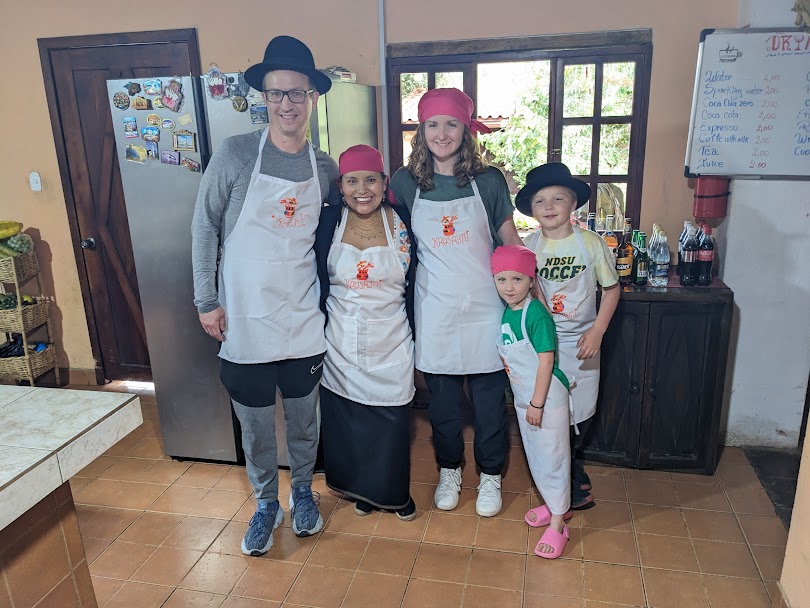
The Nichols family from North Dakota spent a week volunteering with Tandana and living with a host family in Panecillo. They reconnected with old friends for a previous visit almost 17 years ago! They joined community members from Carabuela to paint two classrooms at their elementary school, bringing brightness to the school in the form of fresh paint. The Nichols family learned about the local culture and traditions as they helped host family members with daily activities. They also enjoyed days in a peaceful and natural environment, surrounded by mountains and breathtaking landscapes. A highlight was the cooking class they attended with their host Claudia from the Kawsaymi cooking school.
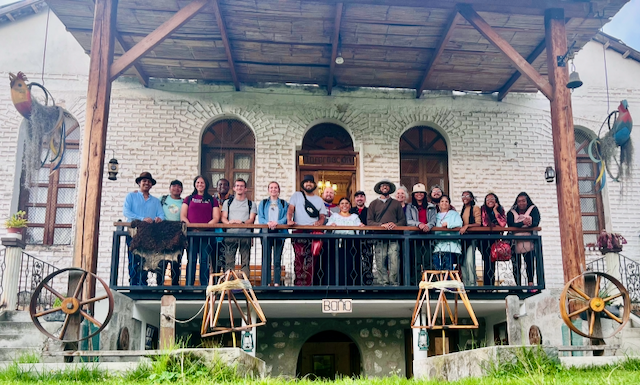 A group of 14 teachers from Ohio through a Global STEM grant shared by the University of Dayton and Central State University spent over two weeks in the community of Yambiro and worked on the third phase of the community's irrigation water project. The group partnered with the residents of Yambiro to install a reservoir tank. Led by a women's association, the community plans to use the water for farming tilapia and growing fruits and vegetables. Beside the project in Yambiro, the volunteers taught basic electronics and circuitry concepts to the students participating in the Tandana Summer School Program. The group used Snap circuits, Sphero, and makey makey to stimulate children's interest in STEM. In one lesson, the students learned how to build lamps, which they could then take home. Cultural activities during the week included a presentation about indigenous justice practices, visiting a weaving workshop, watching the celebrations of Inti Raymi (the annual Festival of the Sun), visiting an Afro-Ecuadorian community of Valle del Chota, visiting a mushroom cultivation project and spending a day together with host families at an inspiring Fishery-Based Ecotourism site in Cotacachi.
A group of 14 teachers from Ohio through a Global STEM grant shared by the University of Dayton and Central State University spent over two weeks in the community of Yambiro and worked on the third phase of the community's irrigation water project. The group partnered with the residents of Yambiro to install a reservoir tank. Led by a women's association, the community plans to use the water for farming tilapia and growing fruits and vegetables. Beside the project in Yambiro, the volunteers taught basic electronics and circuitry concepts to the students participating in the Tandana Summer School Program. The group used Snap circuits, Sphero, and makey makey to stimulate children's interest in STEM. In one lesson, the students learned how to build lamps, which they could then take home. Cultural activities during the week included a presentation about indigenous justice practices, visiting a weaving workshop, watching the celebrations of Inti Raymi (the annual Festival of the Sun), visiting an Afro-Ecuadorian community of Valle del Chota, visiting a mushroom cultivation project and spending a day together with host families at an inspiring Fishery-Based Ecotourism site in Cotacachi.
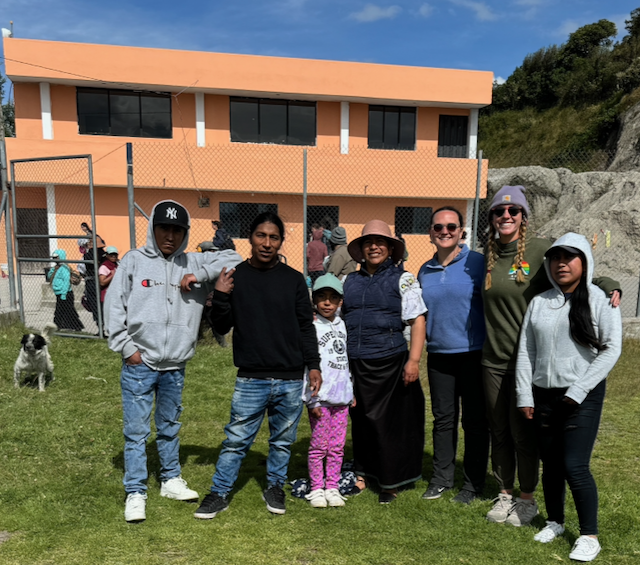
A group of 13 volunteers from ARCC Programs spent a week in the community of Muenala. All the volunteers stayed with host families who opened their homes to them and offered them a taste of everyday life in indigenous communities in the Andean mountains of the Imbabura Province in northern Ecuador. They worked side by side with local residents to finalize the construction of the second floor of the community center. The volunteers played an important role in the painting of the building, which created a beautiful focal point for the community. This experience was an unforgettable blend of hard work, cultural exchange, making friends and building connections. When not working, the volunteer group enjoyed a wide range of cultural activities, such as bread making, visiting the Peguche Waterfall, and taking in the world-renowned Plaza de Ponchos handicraft market.
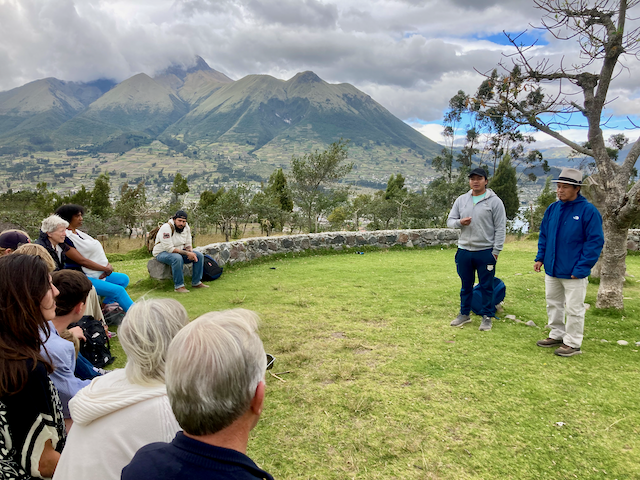 A group of nine volunteers from Ohio, Utah and Arizona took part in Tandana’s first Trip with Intention (TWI) designed especially for families. This intergenerational program, brought teenagers and older adults together, with opportunities to interact and create relationships in Otavalo. During the trip, the volunteers helped paint a newly constructed classroom in the elementary school in the community of Quichinche, and they also painted a mural in the school in the community of Carabuela. The volunteers also had the opportunity to attend the closing ceremony of the Tandana Summer School, during which the newest cohort of Tandana scholarship students proudly presented the knowledge and skills that they had gained in the previous four weeks. Additionally, the volunteers had the opportunity to experience a cooking class, a presentation about local dress, and played the game Triki-Traka, all from Kichwa Otavalo culture. They also visited a crater lake, an orchid garden, the artisan market, a waterfall, and the a water park.
A group of nine volunteers from Ohio, Utah and Arizona took part in Tandana’s first Trip with Intention (TWI) designed especially for families. This intergenerational program, brought teenagers and older adults together, with opportunities to interact and create relationships in Otavalo. During the trip, the volunteers helped paint a newly constructed classroom in the elementary school in the community of Quichinche, and they also painted a mural in the school in the community of Carabuela. The volunteers also had the opportunity to attend the closing ceremony of the Tandana Summer School, during which the newest cohort of Tandana scholarship students proudly presented the knowledge and skills that they had gained in the previous four weeks. Additionally, the volunteers had the opportunity to experience a cooking class, a presentation about local dress, and played the game Triki-Traka, all from Kichwa Otavalo culture. They also visited a crater lake, an orchid garden, the artisan market, a waterfall, and the a water park.
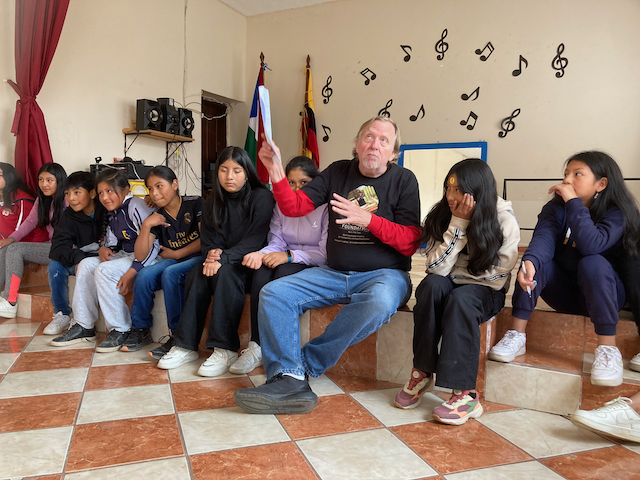
We just wrapped up another wonderful in-person summer school which served 25 students. The students received English language classes with a native speaker from the United States as well as math lessons to help reinforce their knowledge and prepare them for the upcoming school year. As always, theatre and public speaking courses were offered to improve their language skills and build their confidence. The students also had the opportunity to go on Friday field trips to a few areas around Otavalo and have fun, including the Peguche waterfall! All 25 students completed their coursework successfully and were accepted into our scholarship program. Additionally, the 25 students newly accepted into Tandana's high school scholarship and their parents attended an award ceremony. Before the start of the academic year, each student received school supplies and uniforms.

We are very proud of Xavier Fernando Lascano Trujillo of Gualsaquí, (pictured 2nd from the right) who graduated with honors as a lawyer from the University of Otavalo! Also, Jonathan Alexander Chiran Perugachi has graduated, earning an Accounting and Auditing degree from Universidad Técnica del Norte (Technical University of the North, Ibarra). Jonathan is from the community of Quichinche. Additionally, Tandana scholarship student Galo Kevin Ochoa Pazmiño from the community of Panecillo graduated with a degree in automotive mechanics! Also, Cindy Belén Perugachi Sinchico from the community of Yambiro has received her degree in marketing from Universidad Técnica del Norte in Ibarra. Last but not least, Amauta Condorazo "Condor" Quilumbango Espinosa, from the community of San Juan Alto, has graduated cum laude with a degree from Yachay University in Nanotechnology Engineering.
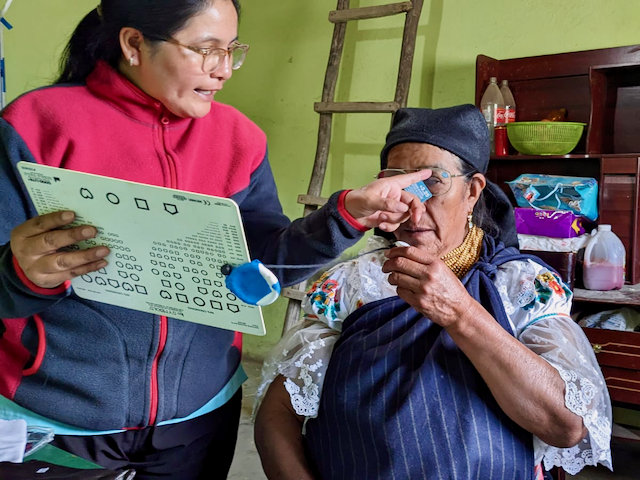
A one-day on-site medical clinic was set up in the community of Santa Inés de Pisabo. The medical team from Quichinche’s health center collaborated with Tandana to provide services to 68 patients. Dental and vision care, free general medical consultations, and ear irrigations were all offered. This marks our first time collaborating with this community and we hope that this is the beginning of a beautiful relationship!

For the second consecutive year, Tandana has funded arts classes for the students in the community of Urkusiki. Due to the continuing decline in public funding, most schools in the rural areas have little or no arts programming included in their curricula.
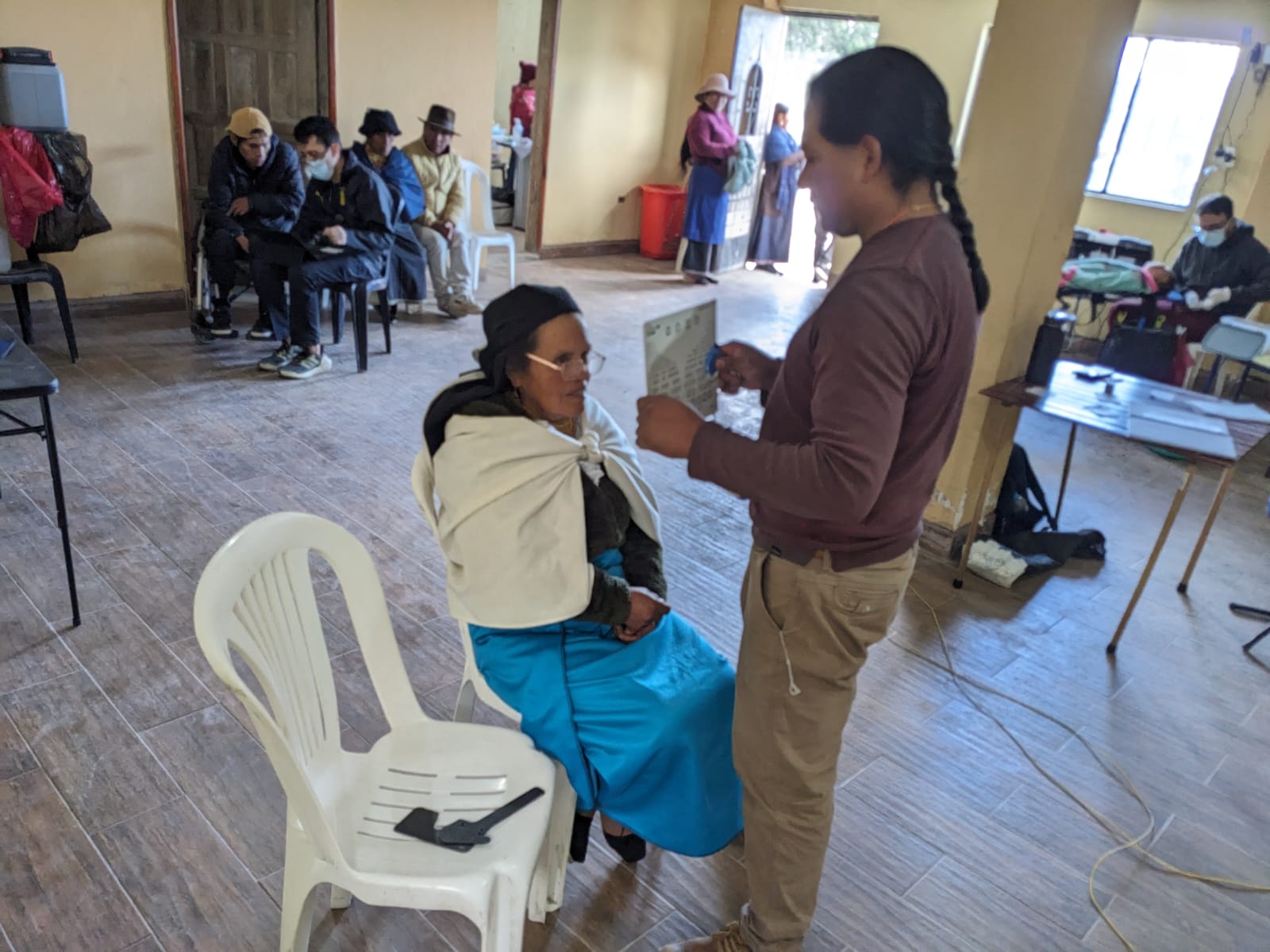
In the final months of the year Tandana teamed up with the healthcare professionals from the health center in Gualsaqui to deliver medical care to the residents of Moraspungo as well as Muenala. In Muenala, a total of 66 patients were attended to. In Moraspungo, they attended to a total of 38 patients. The onsite clinics set up a pharmacy and offered various types of services such as dental care, eye care, and general internal medicine consultations.
Mali

The Health Center in Sal, Mali is thriving as it provides medical services to many local residents, including new mothers and their infants. This health center was needed because residents in this area did not have definitive medical care nearby and when emergencies would arise, they would need to travel long distances to get the care they needed. Obviously, that was not ideal as emergencies should be attended to as soon as possible. Local residents now have more peace of mind that they can get the emergency care that they need as well as ongoing routine preventative care. Additionally, the success of the Sal health center is attracting other partners to support additional improvements, such as tiling the interiors of the rooms and installing an incinerator. Community residents are similarly inspired; they are currently building housing for the center's staff. Another fun note is that the garden at the Health Center has started to produce its own corn. Staff and patients are eating it fresh, and it is also being sold to earn income. We are also excited to announce that the Sal health center will host 4 of our scholars for their internships.

Our first women’s leadership workshop of the year was held recently in the community of Kansongho. Women from last year’s literacy cohort are learning leadership skills, public speaking, and democratic governance. They will go home and form women’s associations in their villages. Tandana also held a training session for some of the best literacy students from the past so that they can become instructors for future literacy classes. Update: Seven women’s associations received startup funding for their businesses, after their plans won this year’s competition. Their respective business ventures are already underway, as the women continue learning about financial management.

Hamidou, our Displaced Students Program Coordinator, has been visiting the students and their families to check in and see how they are doing. Sana Yalcouyé is head of a displaced family, and one of the first displaced people who arrived in Bandiagara. He told us that although humanitarian partners provided support to him and his children, as head of the family he must also do something to provide for the family's needs. That is why he has woven the ropes for sale. If he sells 20-30 ropes, Sana will be able to buy a sack of rice. Update: Displaced families in Bandiagara received their second supply of food this year. We also learned that of the 100 displaced students Tandana supports, 88 passed their courses during the most recent trimester of school.
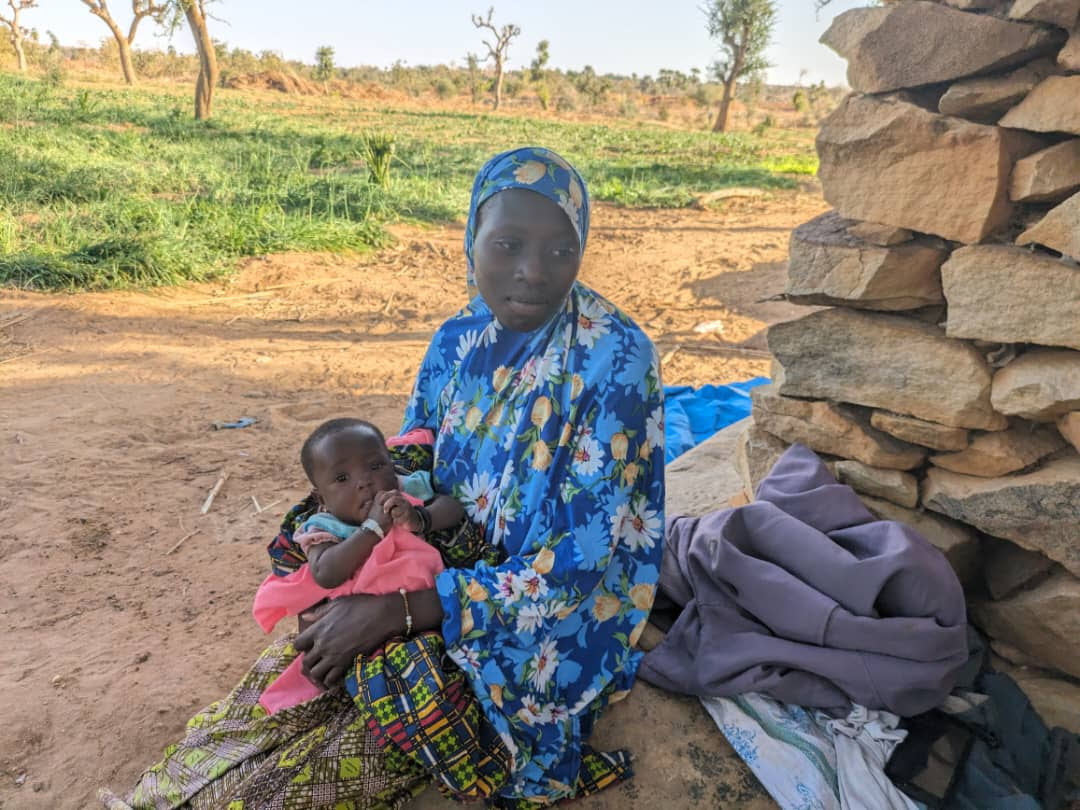
Our Mali team organized a meeting with school principals, the student mothers, and their parents, to check on the students' academic progress. Remedial classes were offered during vacation as an extra measure of support. Parents testified that Tandana is different than other partners because of the efforts to travel to villages to monitor the students' academic work and schedules.

With the support of Tandana donors, construction of the well for displaced families in Bandiagara proceeded steadily--and is now completed and officially inaugurated! The water in it is currently 2m 46cm deep. The contractor closed the well to treat the water until it was re-opened for the inauguration ceremony. The report we received from Bandiagara said,"The displaced families are full of joy, which they showed by dancing."

The Olouguelemo Environmental Association, founded and working in partnership with Tandana, held its general assembly and kicked off the pond expansion program for this year. The ponds that members of the OEA dug last year are now filled with water, which gardeners will use to grow vegetables, and herders will use for their livestock during the long dry season ahead. The erosion control works also put in place done by OEA members are conserving soil and water, regenerating formerly barren areas. The reforestation campaign for the year has also begun. The winners of the competition for best field with assisted natural regeneration and best tree nursery this past year received their prizes.

We recently received a report on activity thus far this year at 10 different literacy centers, spread across 3 townships in the Bandiagara region. It was gratifying to see that 77% of the test takers passed the program (with a score of "5" or above), and that the evaluation of the centers' operations overall demonstrates a commitment to continuous improvement. The second session will begin in September. To download and view the entire report, please click here:  Tandana Foundation: Women's Literacy Report
Tandana Foundation: Women's Literacy Report

Congratulations to two of the Dr. Ash B. Varma, M.D. Scholars, Moussa Guindo and Ousmane Ouedraogo, who graduated in July as health technicians. We are very proud of them and hope they bring their newfound skills to their communities to make a positive impact. Congratulations to you both!
2023
Mali
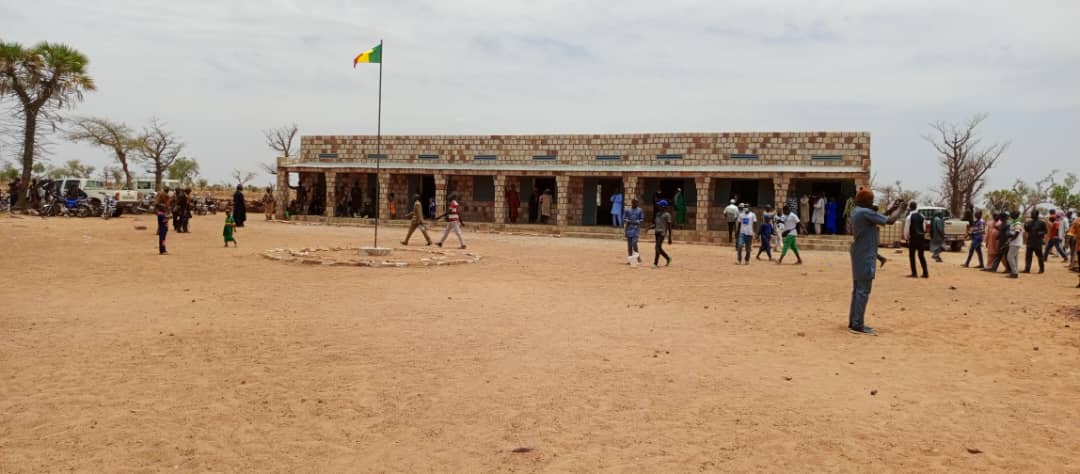
The school in Dani, Mali was officially inaugurated! Speakers at the formal ceremony included Boubacar Yalcouyé, Mayor of Kendé Township. We want to thank all the generous donors who helped make this possible and helped create this new space for children to learn. What an amazing accomplishment!

The ten new literacy classes for 2023 have kicked off with 30 students in each class. They began with a pre-test and then started lessons. This year, 9 out of the 10 instructors are women, setting an example for their students of what women can achieve. Congratulations to everyone involved in this fantastic project!
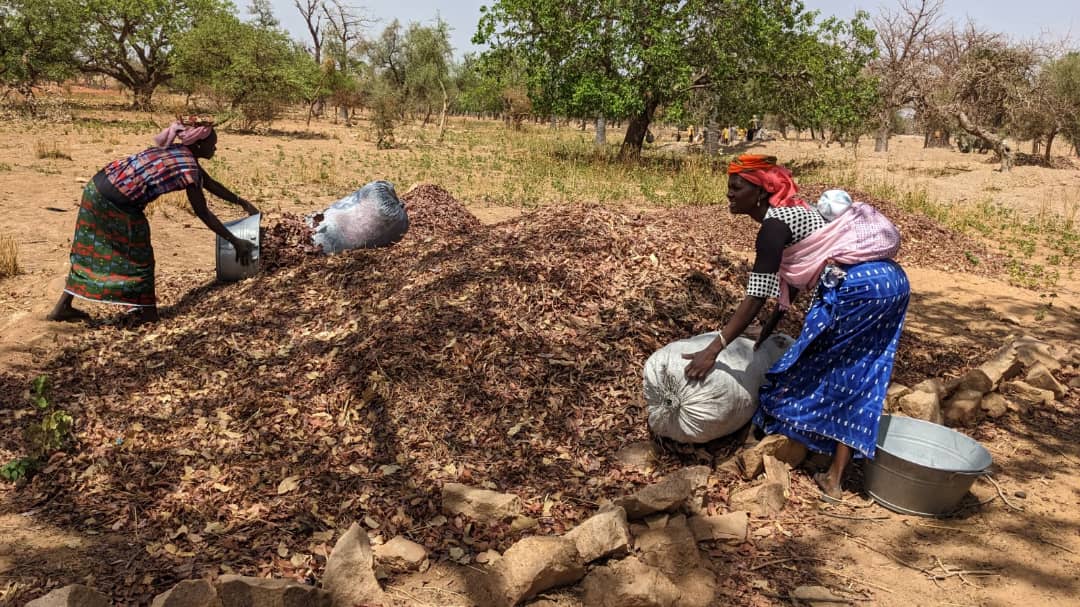
The Olouguelemo Environmental Association (OEA), now comprising 30 villages in the Bandiagara District, has been working on composting and adding water retention features to restore and improve the soil in the fields in preparation for the upcoming agricultural season. During April and May, 5 different groups of men and women members of the Association composted organic manure and constructed half-moons to catch runoff water and grow grass. The work was carried out over 10 days with the participation of 150 people. The OEA organized more soil regeneration work during June as the work continued by digging 5 large composting ditches for organic fertilization with dry leaves and creating 100 more half-moons to store run-off water and grow grass. The work was carried out over 10 days with the participation of 15 people per day.
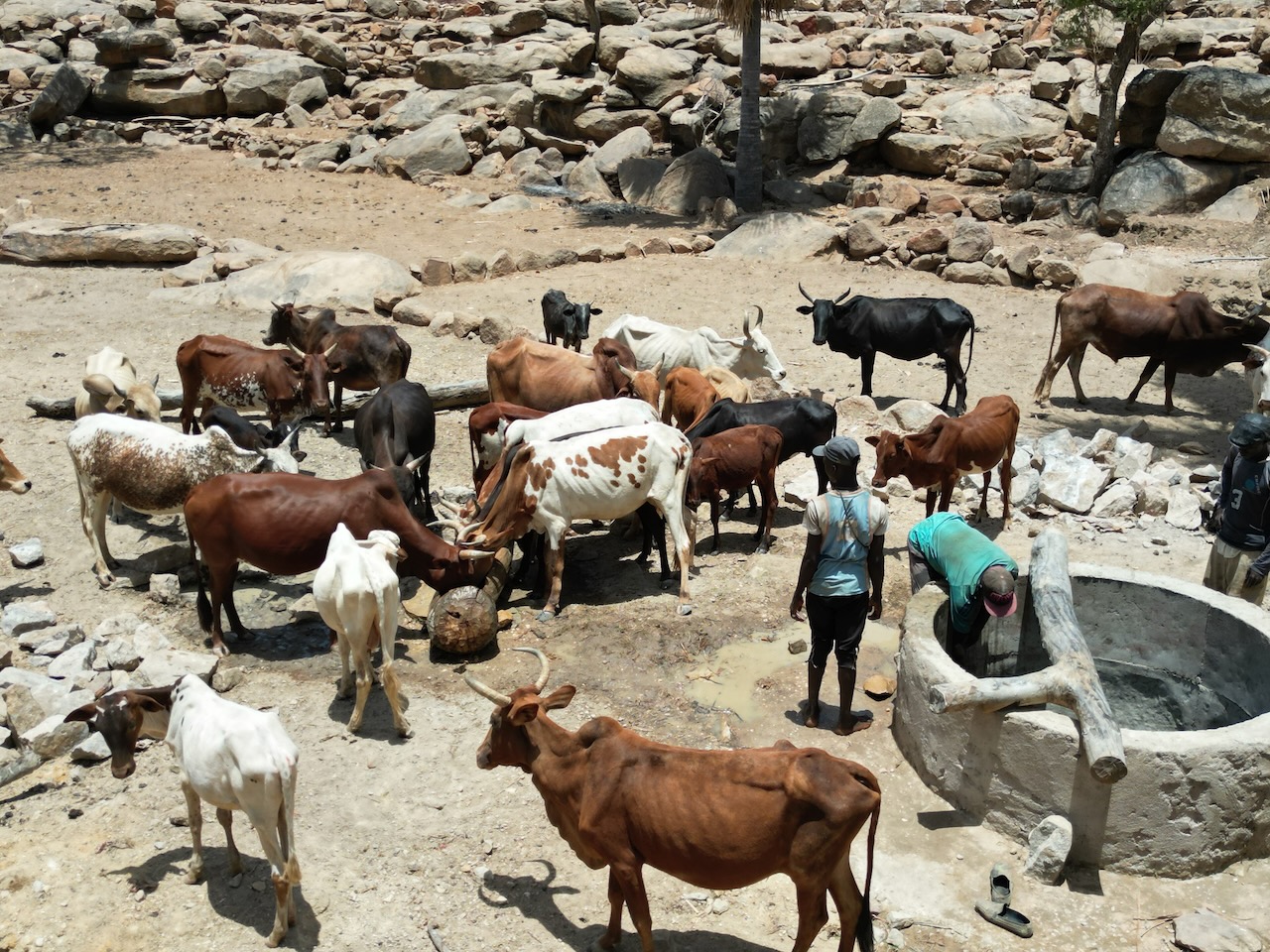
The well in Gongo Sinou, Mali has been completed! It has been dug to the planned depth, and the villagers completed the clean, raised opening with watering basins. Herders are now able to use the well water for their animals. Meanwhile, the well project in Annal is in its final stages of work and the well in Ondogou Dah has been completed!
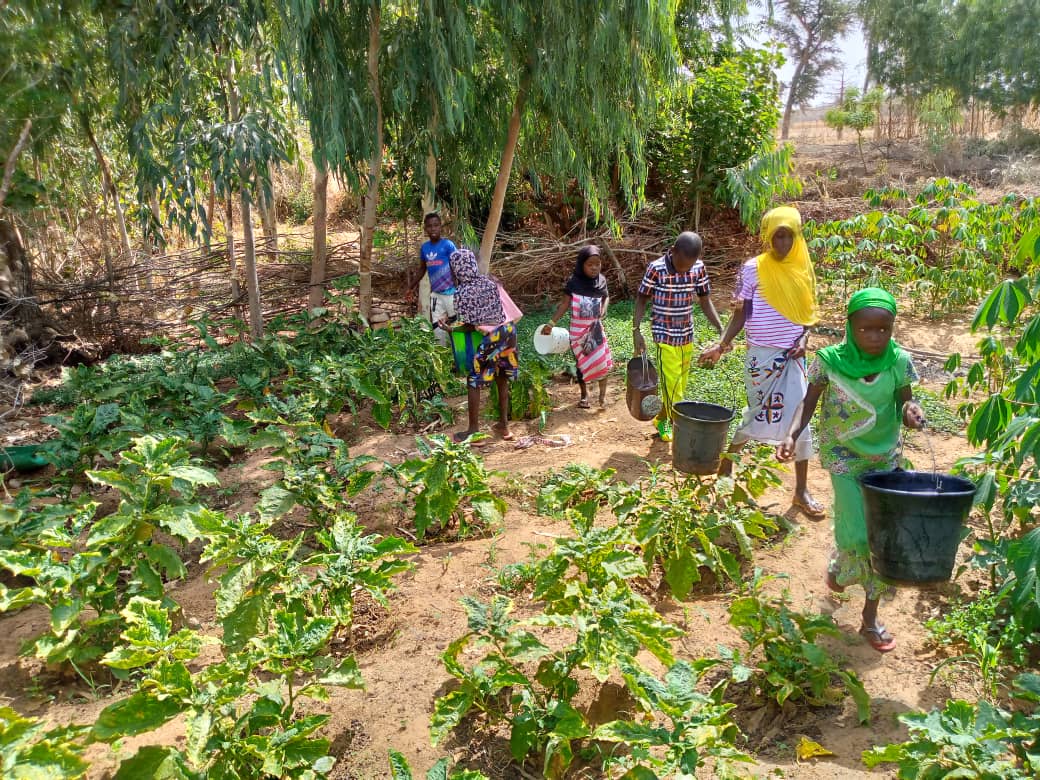
The garden of the school in the remote area of Yarou Plateau is flourishing, thanks to the hard work of Ele Samakan and his students. Yarou Plateau is affected by insecurity and very limited resources. Many organizations and even teachers assigned by the government avoid going there. Ele, a local teacher supported by the community and by Tandana, is single-handedly keeping the school open with revenue generated by the garden's produce. Additionally, students from the school in Andjine are taking good care of the gardens there as well.
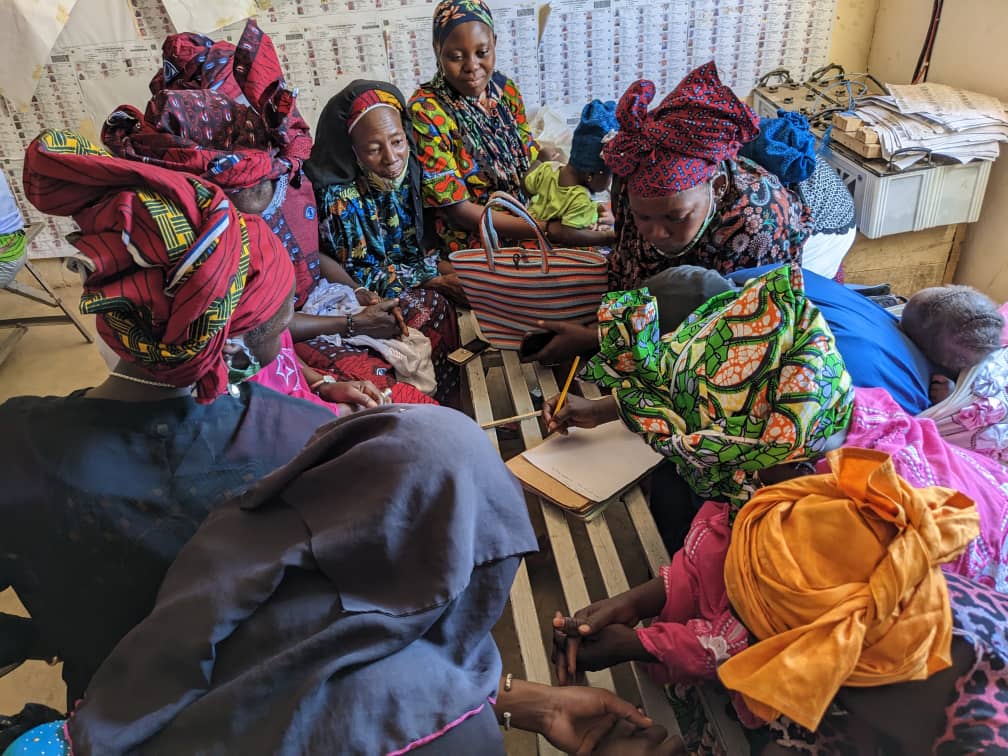
Three workshops for 100 women leaders have now been held this year. Participants are registering the new women's associations they have created and working on business plans for the competition that Tandana sponsors. The women's association business plan selection committee deliberated recently on the 5 best proposals. The 1st Place winner was the Dantiende women leaders' group in Bele N Ben, with a cotton spinning project. 2nd was from the Amba Inde group in the village of Orsegou, with a project to support market gardening and the sale of shallots, and planning to set up a seed storehouse. 3rd was the group Ogodan from the village of Diakadah, with a cotton bank project. 4th was the group Yaan Giry from the village of Kende Gode, with the Nere seed processing into seasoning balls, locally known as sombala. And the 5th winner was the Muetoumon group in the village of Kende Kinam, with a project to buy and sell fish. The winning associations received their startup funds, made possible by Tandana.
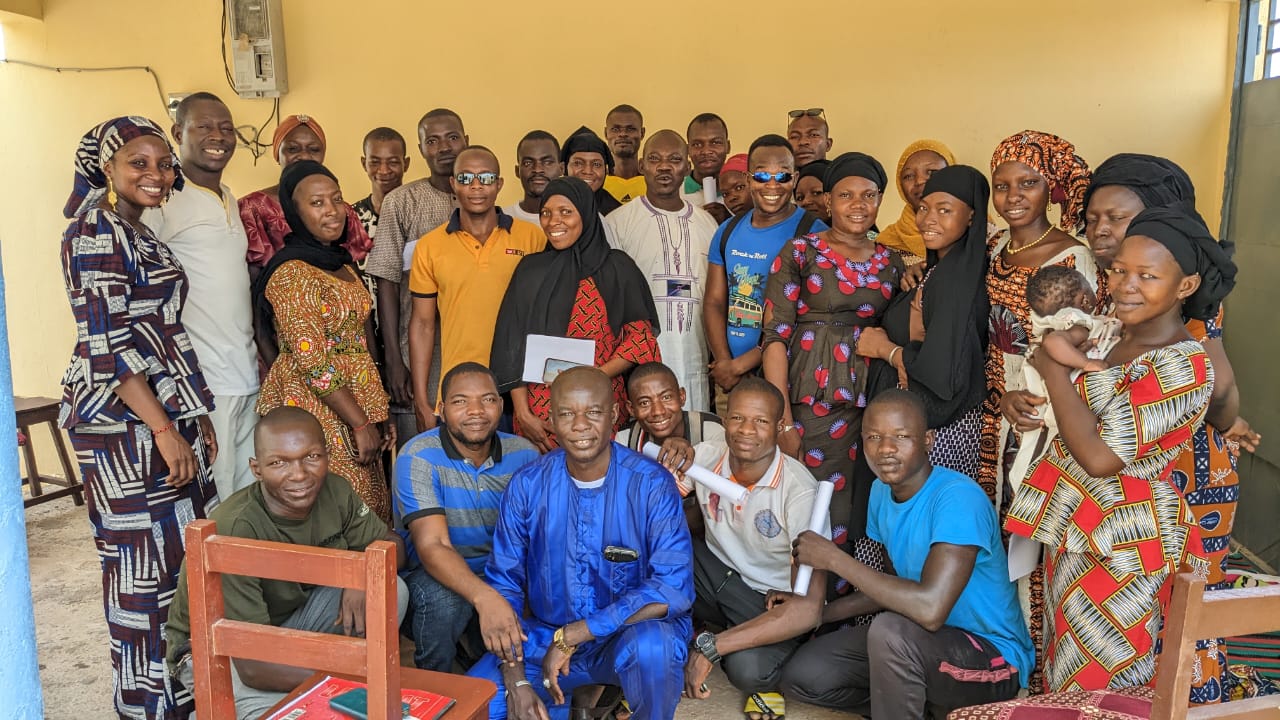
The Ash B. Varma, M.D. Scholars recently met to prepare for their internships and congratulate the best students. They also talked about challenges, organized some days to provide free medical support to communities, and received a letter from the Tandana scholarship committee. Especially meaningful were the notes of encouragement from attendees of our "Back to School" fundraiser in Columbus last September. Later they participated in an extensive cleanup at the Bandiagara hospital as part of their community service. Then at a year-end ceremony, they received certificates and supplies for their internships. Those completing the study of tailoring also received the tools they need to start their own workshops.

Community-managed reserves of grain are critical in the Bandiagara District to get families through the lean season. Tandana continues to support local committees in the management of the grain banks and sales to the public. The grain bank in Bolmo is up and running! The management committee received their training and tools, and the bank is now functioning, making millet available at an affordable price in the village. Aditionally, the Komeougou grain bank currently has 100kg bags of millet and five 20-liter cans of oil in stock. The committee has already purchased grain 5 times this year and sold most of it. The Sal Sambougo bank is also doing well, with Twenty five 50-kg sacks of rice in stock. Its committee has purchased grain four times this year and sold most of it.
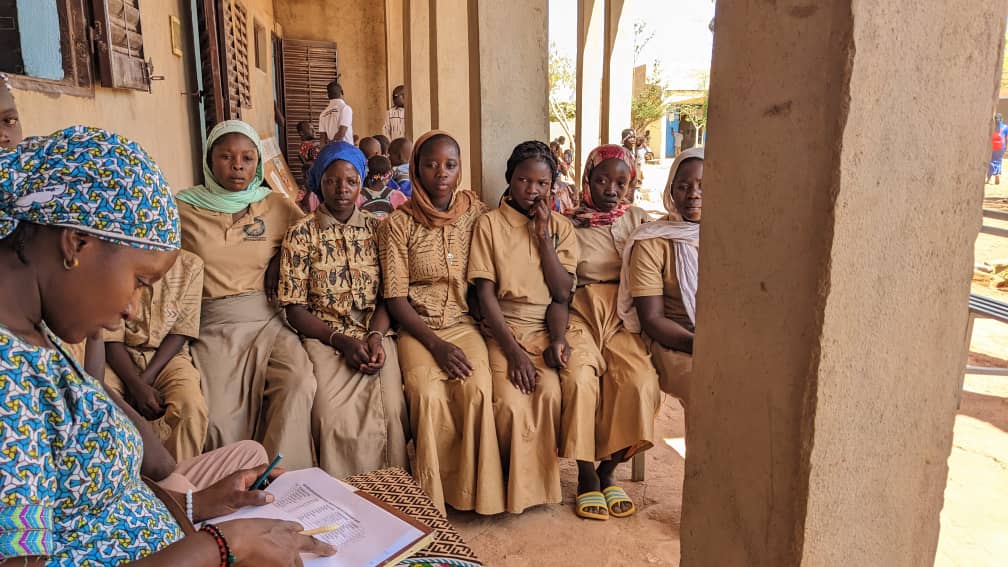
Tandana's Scholarship Coordinator, Hawa Yalcouye', recently checked in with students from displaced families now living in Bandiagara. Out of the 75 students in the program, 51 passed the school year and/or passed their exam for the diploma of basic education. With increasing numbers of families seeking safety and new opportunities in the region Tandana serves, the need for this program is continuing to grow.
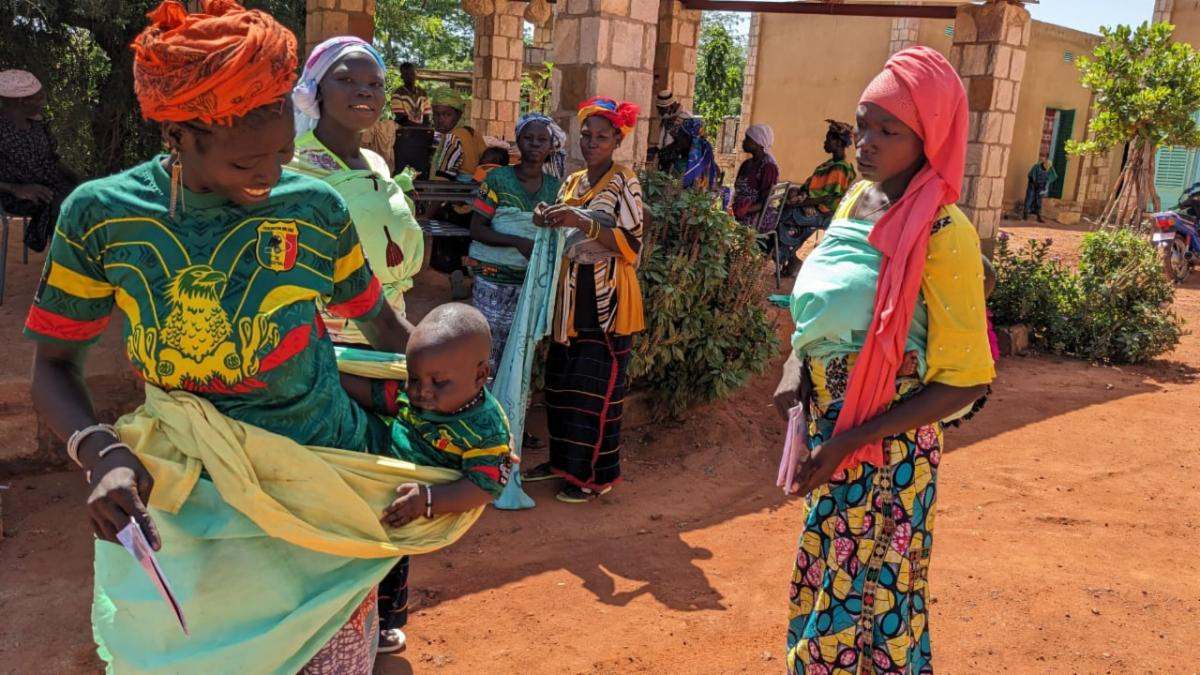
Now in its second year of operation, the Sal Health Center is doing very well. Mothers are bringing their children regularly to receive their vaccinations on time. The staff harvested bananas and papayas from the garden on the Center's grounds and have been giving the fruit to ill patients and families with malnourished children. The Center is a thriving testament to the compassion of Tandana's supporters!

The 10 student mothers in Bandiagara received their supplies so they can stay in school this year. This program was made possible by generous donors who gave through our Celebration of Women Rising website and also by the Women in Leadership Club at Wootton High School.

Mali staff members Kessia Kouriba, Hawa Yalcouyé, and Moussa Tembine' joined Anna Taft to virtually co-teach a workshop on Gender and Change in Rural Mali for students at Whitman College (WA). The students were very motivated, dedicating their weekend to listening, asking questions, and sharing insightful comments.

Tandana is now supporting Aissa Guiré, a teacher in Sol Dogon, Mali. Aissa is from Sol Djenenke, next to Sol Dogon, and she is teaching the second grade with 38 students. She is paid a stipend, half from Tandana, and half from the parents’ association. Tandana is also supporting Emanuel Tembiné as a local teacher in the new elementary school in Kansongo. Emanuel is from the village, earned his teaching certificate, and is now giving back to his community by teaching the 25 students in second grade at the new school there. They are using the kindergarten building and hangars for the school, while seeking an opportunity to build an elementary school building.

Training in tree germination and grafting techniques was recently held for the managers of the Olouguelemo Environmental Association’s three tree nurseries. The training took place at the newest nursery in Ologuiné.
Ecuador
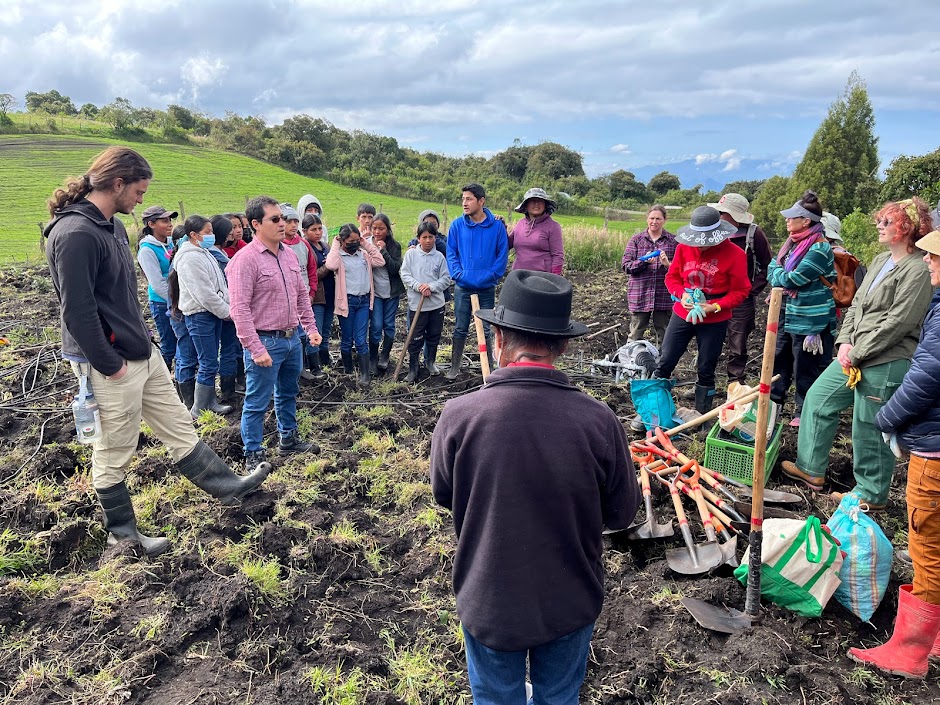
The Ohio Master Gardeners enjoyed a week full of farming, gardening, and cultural activities during this year’s trip. They spent their mornings doing service-learning work in 3 different small communities outside of Otavalo:
- 2 days working with the Saminay School - a private high school with a unique agricultural program.
- 2 days with the Cambugan school and community – a small rural community.
- 1 day with the Otavalango Museum – a project that highlights the history and strength of the indigenous people in the area.
Projects with all of these communities focused on preparing and planting beds for food that would support the families living in the communities. On the final day of the week, they also had the chance to participate in a “Pamba Mesa” (traditional shared community potluck meal) with all the families from Cambugan. In addition to their hard service-learning work, they experienced the world-renowned Otavalo market, roasted guinea pig, learned about medicinal plants at Kawsaymi cooking school, learned about Afro-Ecuadorian culture in the nearby community of El Juncal, made their own reed crafts (with the help of local artisans), walked to a nearby sacred waterfall, and visited the nearby leatherworking town of Cotacachi.
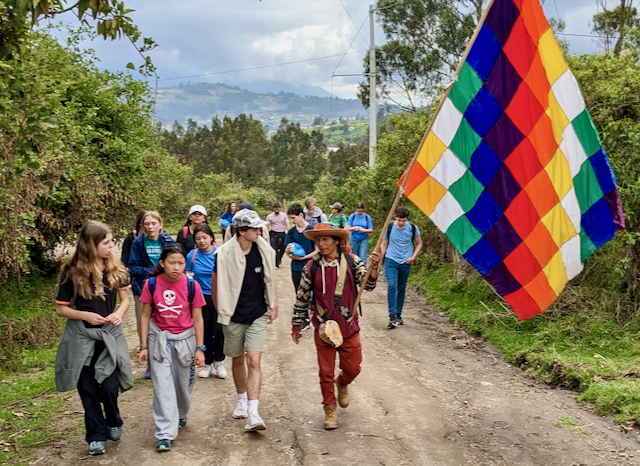
Adventures Cross Country brought a group of high school students from San Francisco to Ecuador who enjoyed 4 days of cultural immersion. They spent the first 2 days celebrating the local customs of Carnaval with water and spray foam play fights. During this time they also hiked to the Taxopamba waterfall and shared a special moment with the community of Gualapuro as they had the opportunity to be part of the ancestral tradition of Wakcha Caray. They continued in the community, engaging in service projects, including making a playground safe for children and building a bathroom with community members. On the last day of the trip, the volunteers had the chance to participate in a “Pamba Mesa” (traditional shared community meal) with the families from Gualapuro.
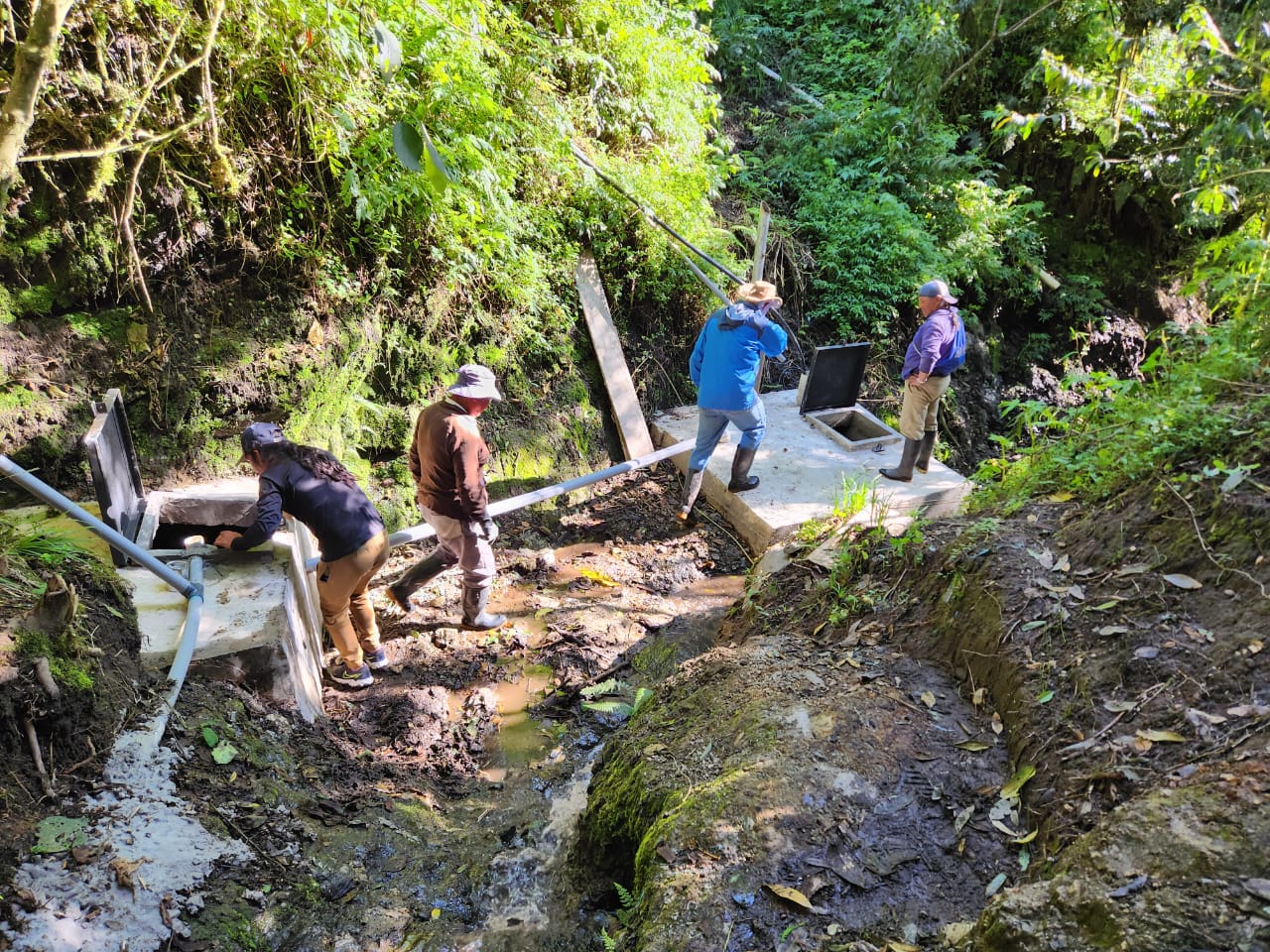
Work continues on the water project in Inguincho and another important milestone was reached in January of 2023 when a community minga completed the gravity portion of the water system. In light of the heavy rainfalls the area has experienced, it was rewarding to see that the new "capture" systems are working well. Our partners finished cleaning and attaching the final pipes so that gravity could do its work--and fill the tanks prior to filtering. UPDATE; The project is nearing completion!

A group of 15 volunteers from Saline High School spent a week in Otavalo working at the Isaac J. Barrera school. Split into 3 teams, and paired with local students, the volunteers painted murals in the 3 buildings of the school (elementary, middle, and high school sections). By the end of the week, the local and the visiting students were so proud of the final outcome. Despite a language barrier, they made a lot of new friends by playing soccer after working on the murals each day. It was the universal language that made it easier to communicate. The volunteer group also had the opportunity to be part of a rich cultural immersion, which included intercultural exchanges in a responsible and respectful manner. They visited the Otavalango Museum, which offered an impressive insight into the customs, traditions, and history of the local indigenous population known as the Kichwa-Otavalo. Additionally, they took part in enriching activities to explore the local culture such as cooking classes, hand embroidery classes, and red-bead bracelets/maki watana classes). The volunteers also visited some natural wonders in and around Otavalo such as the Peguche Waterfall and Cuicocha lake.
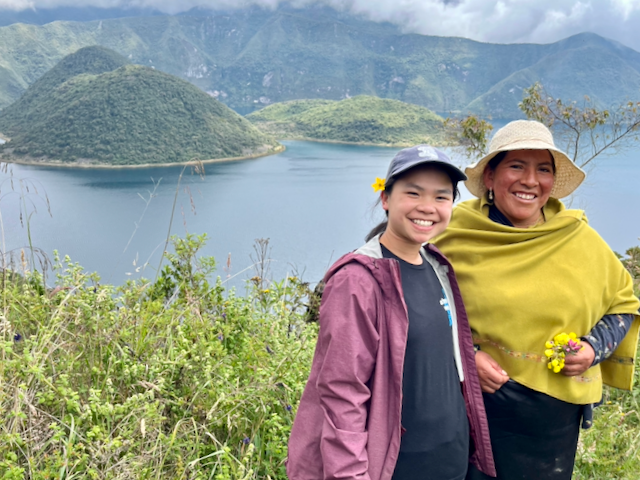
A group of 10 students from Northeastern University (NU) spent a week in the community of Muenala. The volunteer group joined forces with local community members to make significant progress on the construction of the second floor of the community center. Together they finished the concrete flooring as well as plastered the window frames. The volunteers from NU also dug a walkway around the community center and filled potholes in the main roads near the community center. During their time in Muenala, the group enjoyed the opportunity for cultural immersion as they interacted with local residents while sharing their way of life, traditions, foods, sports, and music. They also had the opportunity to go for a hike at the Cuicocha crater lake.
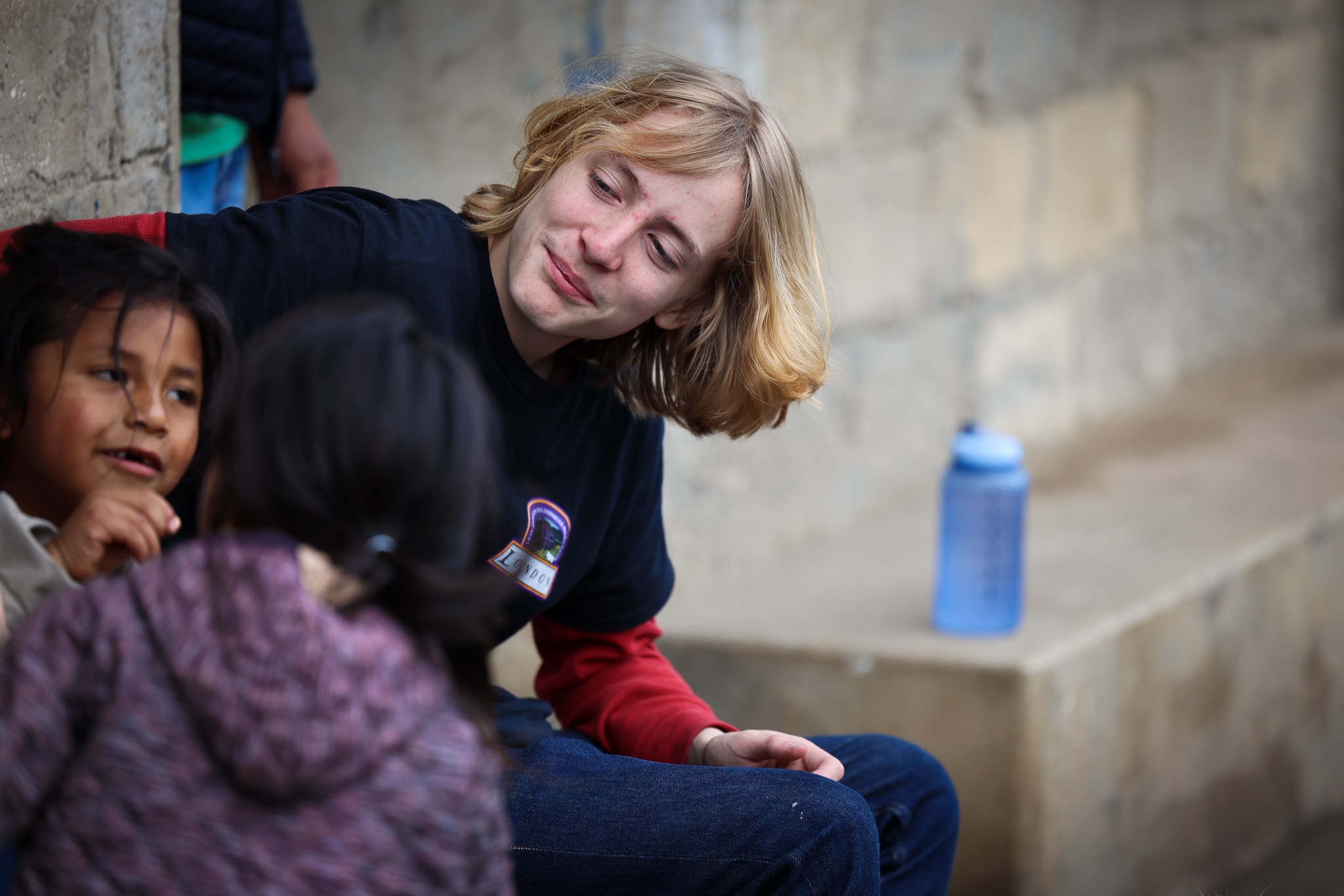
A group of volunteers from Purcell Marian High School spent a week in the community of Agualongo staying with host families. They worked side by side with residents to build a roof over a volleyball court. This multi-phase project included digging holes that will be used to install steel columns that will be embedded in concrete foundations. After work each morning, and sharing lunch together, the volunteers would spend time with community members in the community center and the nearby soccer field. One of the most entertaining activities was baking bread at a community member's home. On the last day of the trip, they went on an excursion to the Timbuyacu hot springs. Later that afternoon, they visited the Otavalo market, locally known as Plaza de los Ponchos, which is the largest continually meeting Saturday market in South America.

Students on a trip with Adventures Cross Country (ARCC) had a week of immersion in the community of Motilón Chupa. The volunteers teamed up with elementary school students and several other community members to paint the local primary school. The volunteer group also worked with community members to install an asphalt speed bump. The speed bump was installed to help slow down cars arriving on the school premises and redirect rainwater away from the school buildings. During the week, the volunteers participated in a wide range of activities including hiking to a nearby river, learning how to crochet hats, baking bread, milking cows for cheese-making, preparation of Fanesca (a delicious Ecuadorian soup for Holy Week that has fresh grains and dried fish), visiting the famous Lechero tree, a boat ride around San Pablo Lake, visiting the Peguche waterfall, and attending a traditional Indigenous wedding.

A group of 17 engineering students and representatives from the University of Dayton's ETHOS program traveled to Inguincho, Ecuador to work alongside community members on a potable water project. The volunteers stayed with host families and immersed themselves in the local culture and day-to-day life. Their helping hands were invaluable in the mornings for making progress on installing water pipes, while in the afternoons they took part in other activities such as making local recipes like humitas and colada morada, learning to make bracelets, and visiting a local weather station. Toward the end of their trip, the volunteers and community members were rewarded for their hard work with a fun field day at the Araque Water Park, near San Pablo Lake.
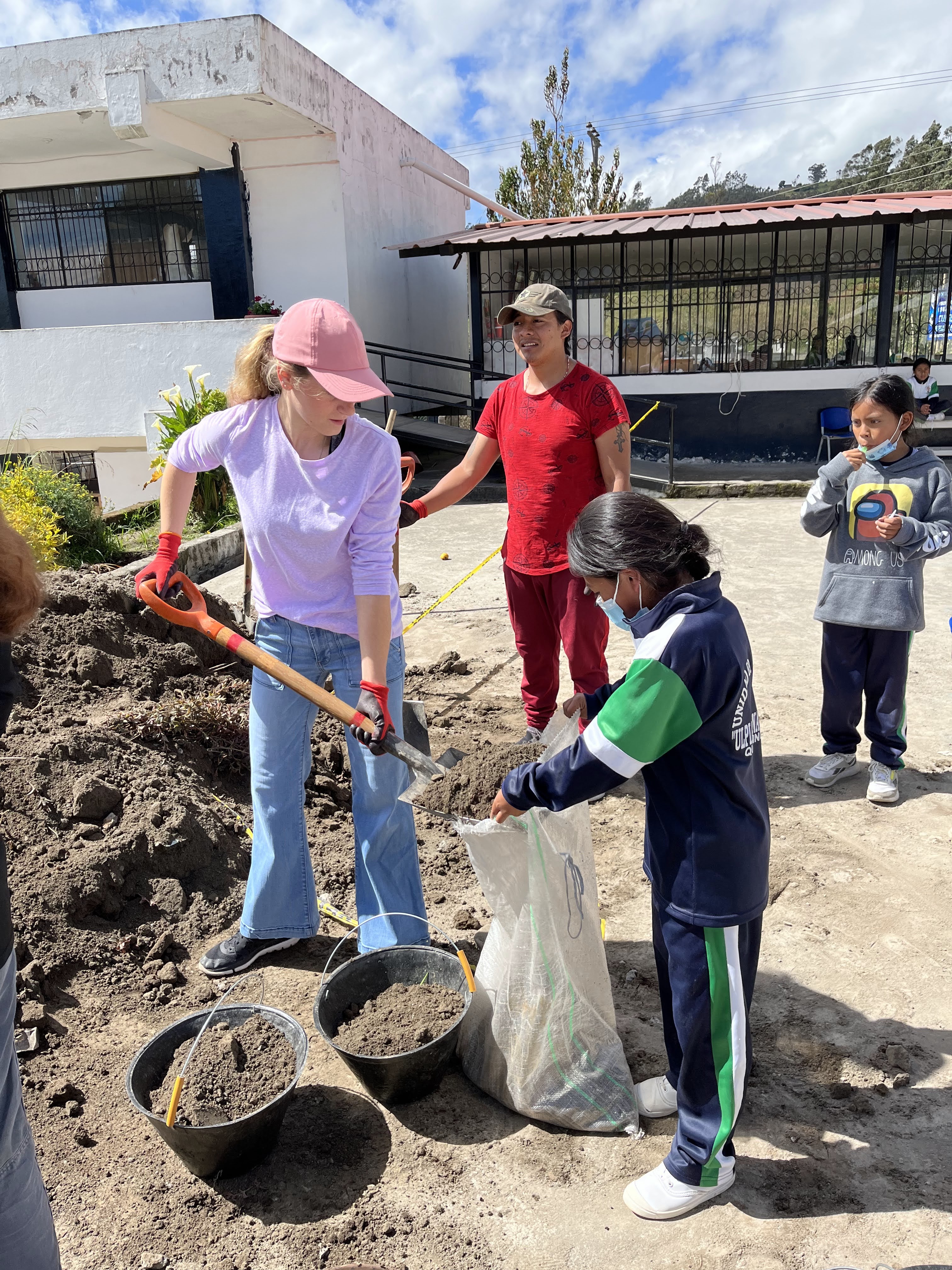
A group of students from The Wellington School in Columbus, Ohio volunteered in Otavalo and Quichinche for two weeks. During the first week, they worked at the Ulpiano Navarro school, where they helped build a wheelchair ramp. During the second week, the volunteers worked at the La Joya School for students with special needs, helping to install a roof over the school's recycling area. In both schools, the volunteers also had opportunities to interact with the students in the classroom. Whether working, playing sports, or engaging in the classroom, the volunteers and local students enjoyed their time together. The volunteers stayed with local host families, gaining a "real-life" experience that was certainly one of the most rewarding parts of the experience. In the middle of the trip, the volunteers and their host families had the opportunity to spend a day at the hot springs in Nangulví.
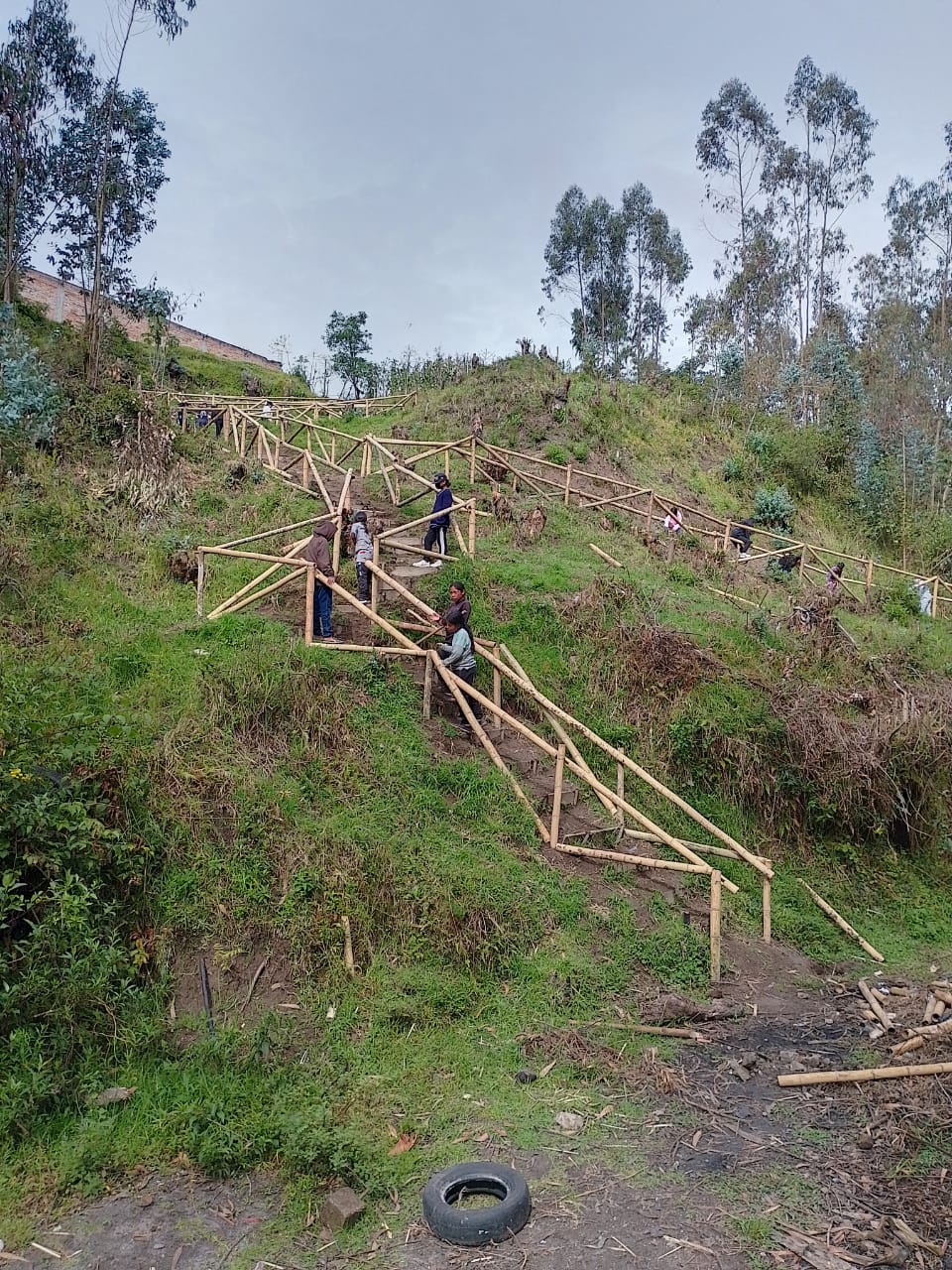
The intercultural exchange program connecting Sharon High School students in the U.S. with students at the Alejandro Chavez School in Gualsaqui, Ecuador, has just been completed. Starting in 2022, the program offered great opportunities for cultural exchange and global learning. During regular zoom calls, the students from both schools were able to learn about each other and also work together to improve the Alejandro Chavez School’s infrastructure. For several months, Sharon High School students ran a fundraising campaign to help their Ecuadorian peers purchase sustainable and eco-friendly building materials for the construction of a trail. With those materials, the students of Gualsaqui and their parents were able to build an eco-trail, connecting the school building to the surrounding woods.
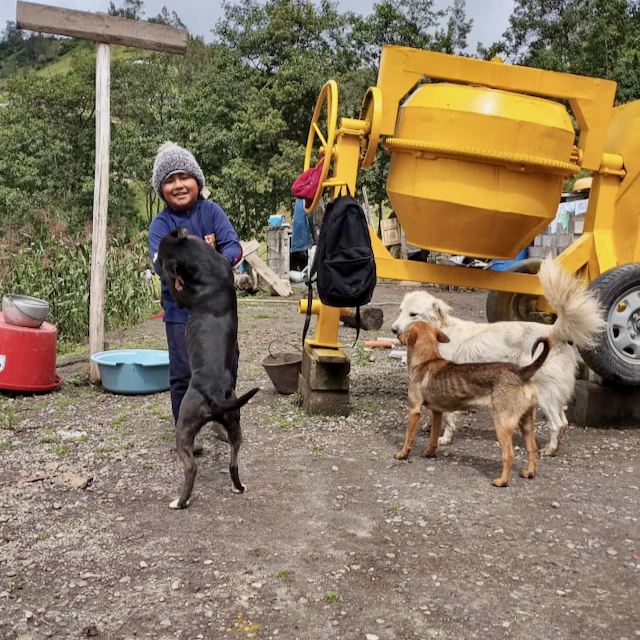
Thanks to the generosity of a Tandana supporter, our young friend James from a local community received a prosthetic eye. James had a cancerous tumor removed when he was 2 but will require a new prosthesis every few years while he is still growing.
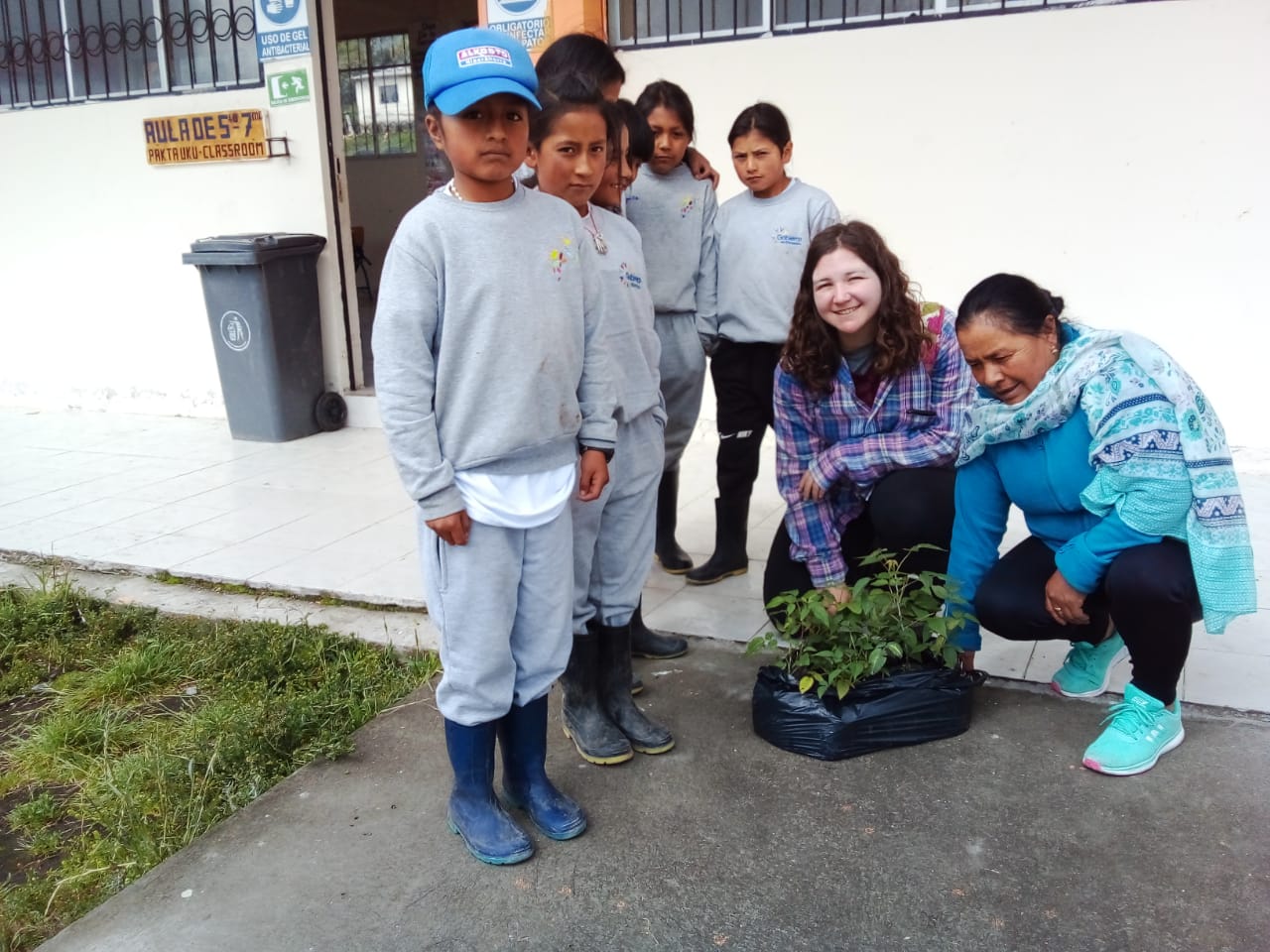
Pupils at the primary school in Cambugan received several raspberry plants donated by Tandana Ecuador. Headteacher Esperanza Vaca said: “This generous donation is such a wonderful gift for our pupils.” School gardens grow vegetables as well as future leaders to counter hunger and poverty in their communities. Tandana intern Allie Leach worked with the children to care for plants in the school’s garden.
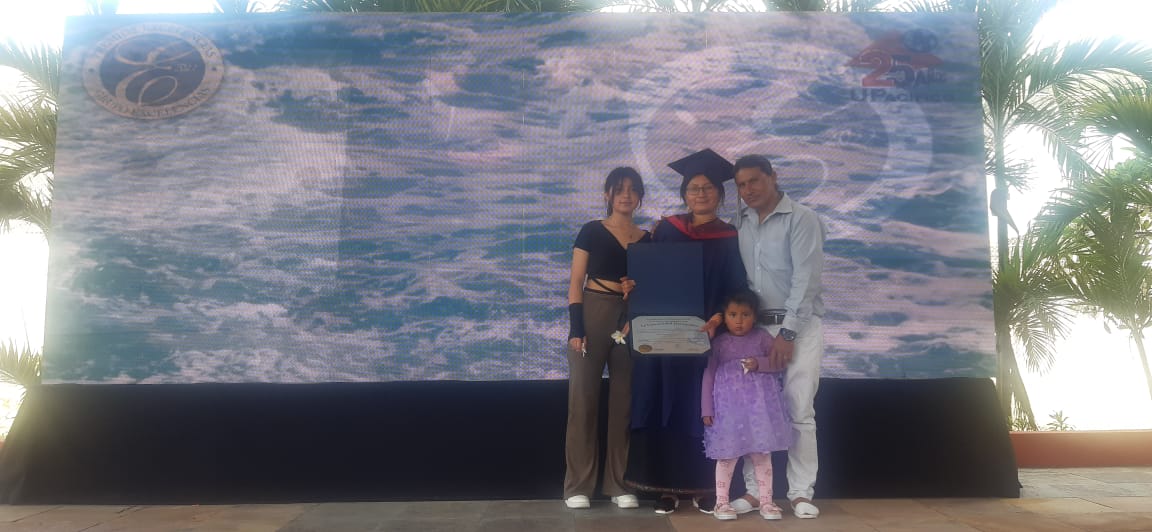
Elvia Muenala, supported by Tandana as a University Scholar, has graduated with an education degree. You may have read her wonderful story previously on Tandana's blog  here. Congratulations, Elvia!
here. Congratulations, Elvia!
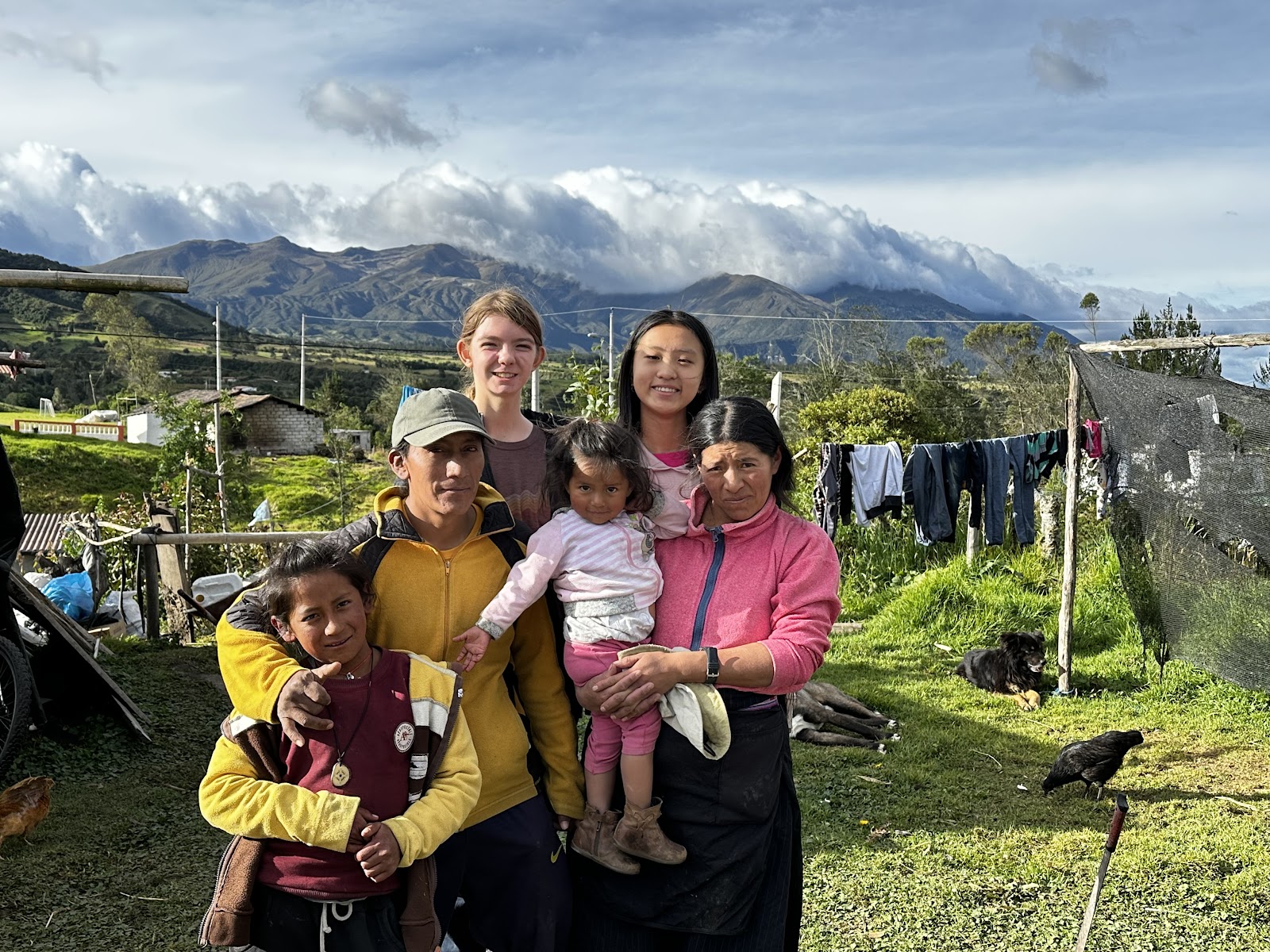
A group of students from Lakeside High School volunteered and lived with host families in the community of Cambugan for four weeks. During the first week, they had the opportunity to celebrate the Inti Raymi (Festival of the Sun) with their hosts in Cambugan. This annual event, which marks the end of the agricultural cycle, is one of the biggest celebrations for indigenous people all over Ecuador. Besides being a harvest festival, the celebration of Inti Raymi is an opportunity for Kichwa people to express unity and pride toward their culture and their heritage. In the second and third weeks, the volunteers and local parents worked at the primary school of the community of Cambugan, helping to pave the playground area to make it safer, cleaner, and more durable for the students. In the fourth and final week, the volunteers organized several recreational activities for community members. In the middle of the trip, the volunteers went to visit the community of El Juncal to learn about the history and contemporary realities faced by Afro-Ecuadorian communities of the Chota Valley.

A group of volunteers from ARCC spent a week with Tandana immersed in the community of Padre Chupa. The volunteers stayed with host families, which gave them a chance to connect with the residents of Padre Chupa, experience a different culture, and volunteer in the local community. The volunteers and Padre Chupa residents teamed up to paint the local elementary school. They also enjoyed impromptu soccer games, milking cows, making cheese, baking bread, and preparing a special drink called colada morada together. On the final day together, they held a celebration of their new friendships and their success in completing the project.
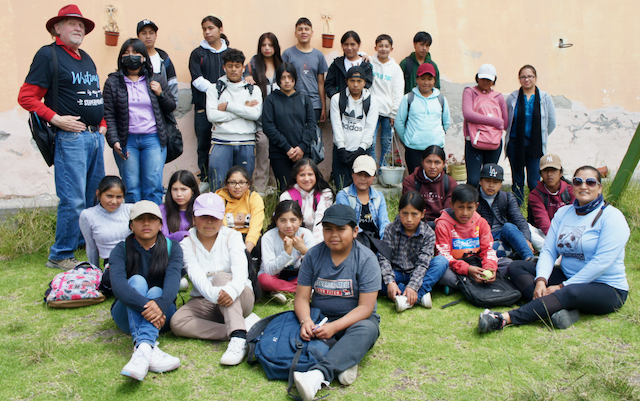
We just wrapped up another wonderful in-person summer school which served 25 students. The students received English language classes with a native speaker from the United States as well as math lessons to help reinforce their knowledge and prepare them for the upcoming school year. As always, theatre and public speaking courses were offered to improve their language skills and build their confidence. The lessons were taught by Victoria Terry (English), Karen Pazmiño (Math), and Hank Fincken (Theatre). The students also had the opportunity to go on Friday field trips to a few areas around Otavalo and have fun, including the Peguche waterfall!
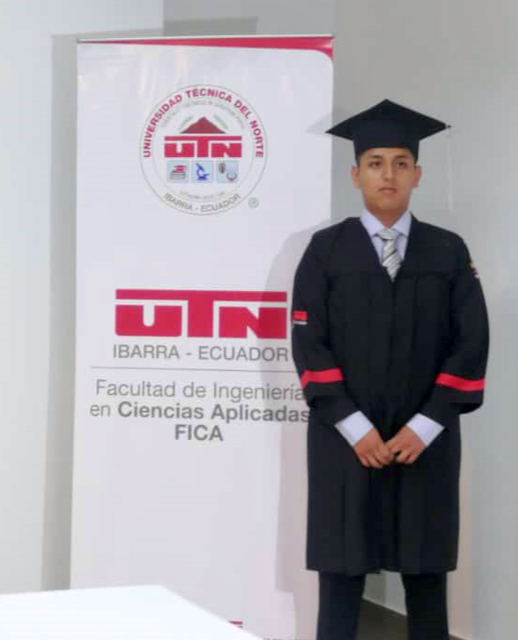
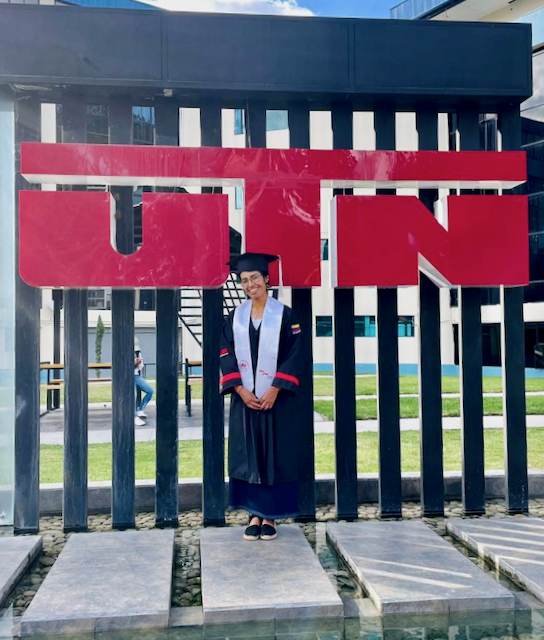
We are thrilled to announce that two Tandana scholarship recipients have graduated from the Universidad Técnica del Norte (Technical University of the North, Ibarra): Alexander Tuquerres Tambi, of Quichinche, has earned a degree in Mechatronics Engineering; and Janeth Panamá, from the community of Perugachi, has earned a degree in Biotechnology Engineering.
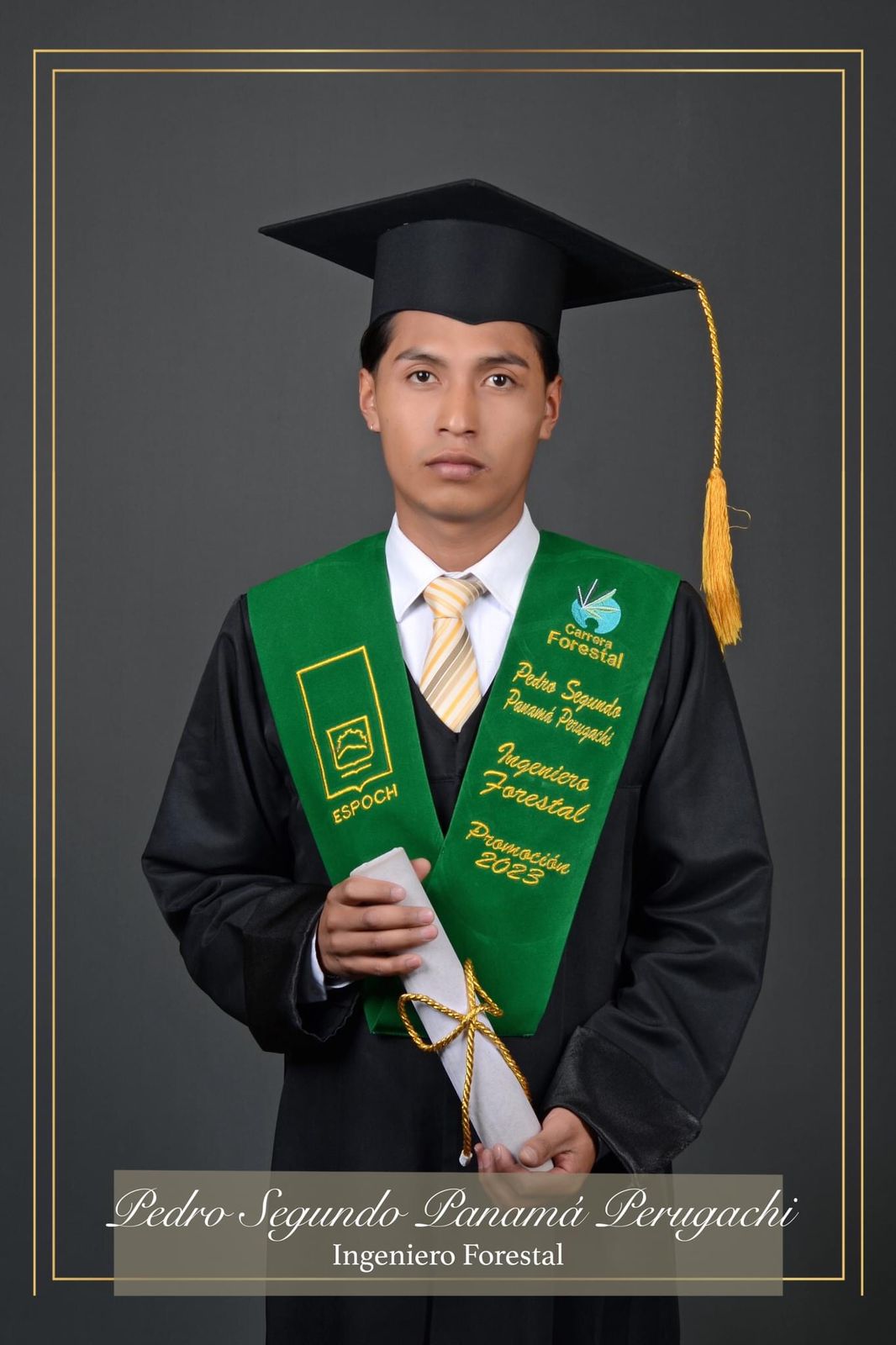
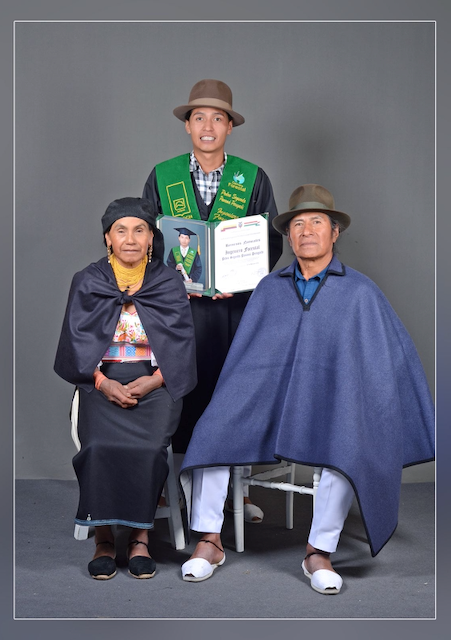
We are excited to share the graduation of Pedro Segundo Panamá Perugachi from the community of Corazón de Perugachi. Now he is a Forestry Engineer with his completed degree from the University called Escuela Politécnica de Chimborazo.
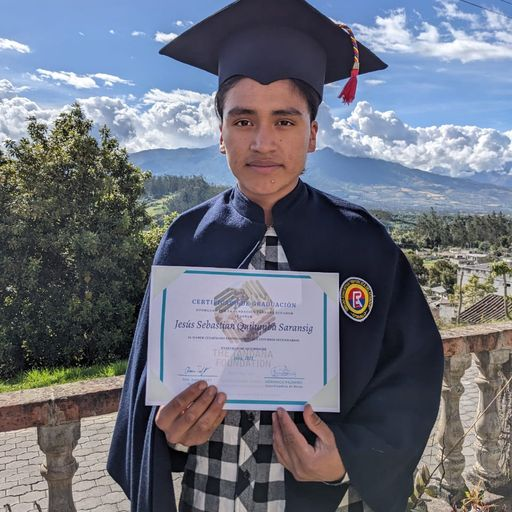
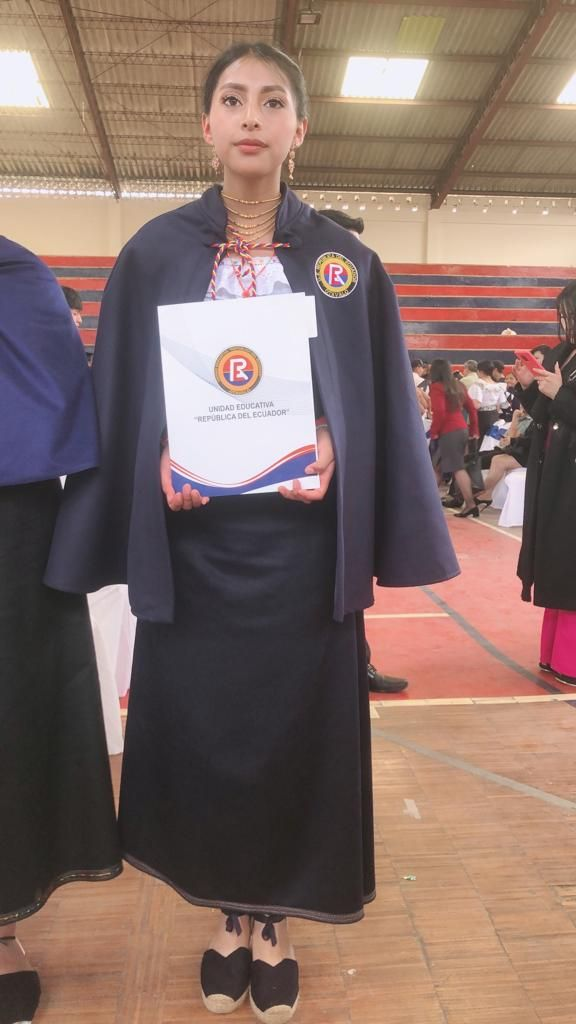
We are also thrilled that 23 amazing students graduated from high school!
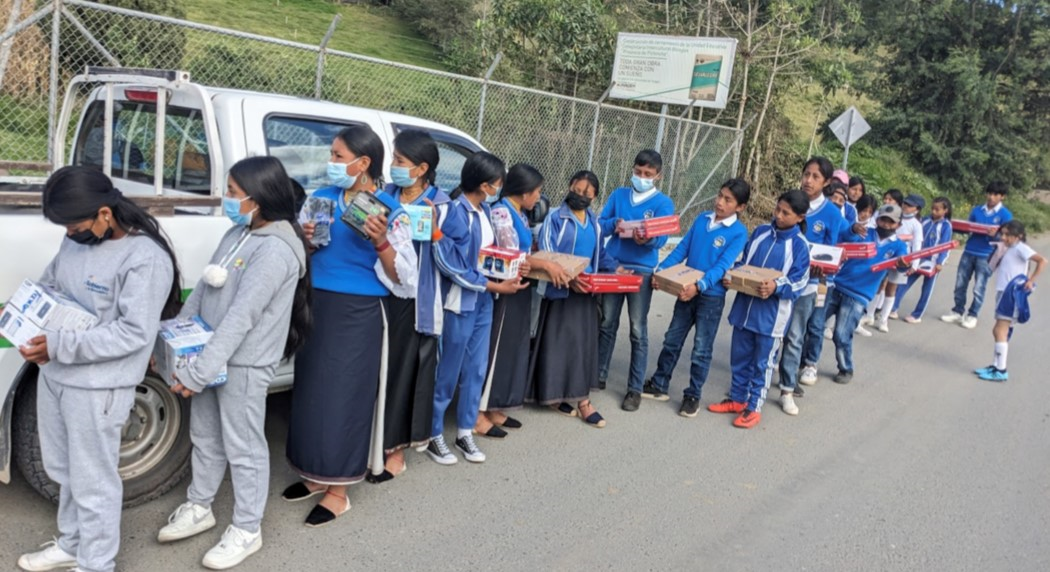
Over $5,000 in supplies were purchased and donated to the schools in Quichinche, Gualsaqui, and Tangali to upgrade the computer labs that were originally donated by the Tech Service Corps many years ago. A very special thanks to Andrés Gonzáles (IT intern) who conducted the needs assessment, decided what to purchase, and personally installed the hardware and updated all the software.
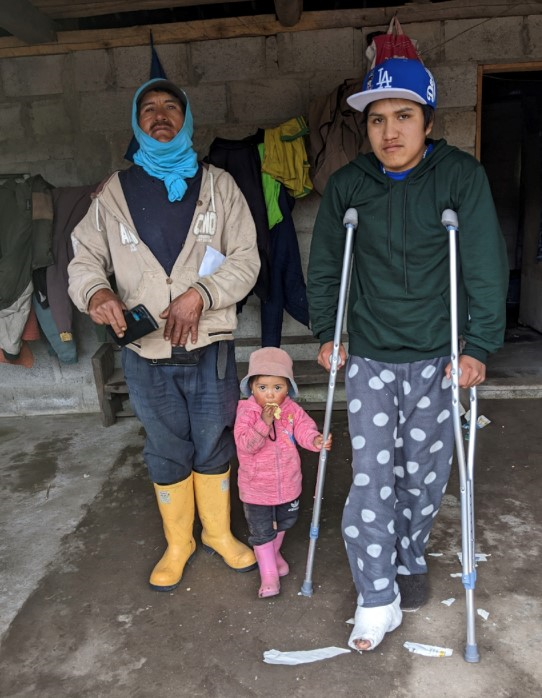
While working in the fields earlier this year, Kevin Perugachi suffered a severe injury when a scythe fell, cutting his leg to the bone. He underwent emergency surgery to save his leg, but Kevin’s family had to borrow money that they are not yet able to pay back. There are many other costs, including those of follow-up treatment, therapy, medicines, and transportation—in total, $2,500. We have raised more than half of this money for him to help him get back on the right track.
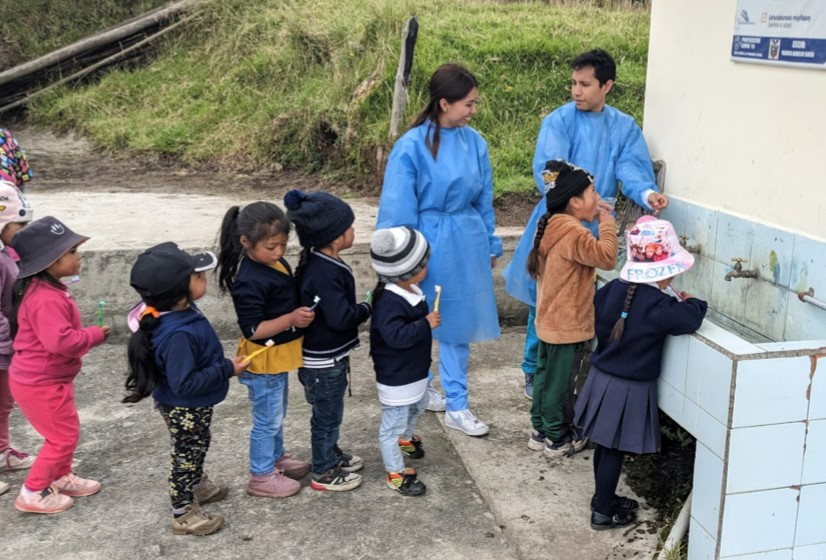
A medical team from the Health Center of Quichinche, accompanied by family practice physician, Dr. Margarita Echeverria, made a special field trip to the community of Larcacunga. Free medical consultations were provided to 33 patients, and an additional 7 received eye exams and reading glasses. Additionally, A medical team from the Health Center of Quichinche worked in partnership with Tandana Ecuador and a few healthcare workers from Seguro Social Campesino (a branch of Ecuador's social security institute) to organize a medical trip to the community of San Juan de Inguincho. The medical clinics also gave us the opportunity to provide school-based dental education for improving oral self-care in the local elementary school (Marco Aurelio Subia school). In total, 111 patients were attended to by a multidisciplinary health team which included several types of specialties such as general medicine, dentistry and eye care.
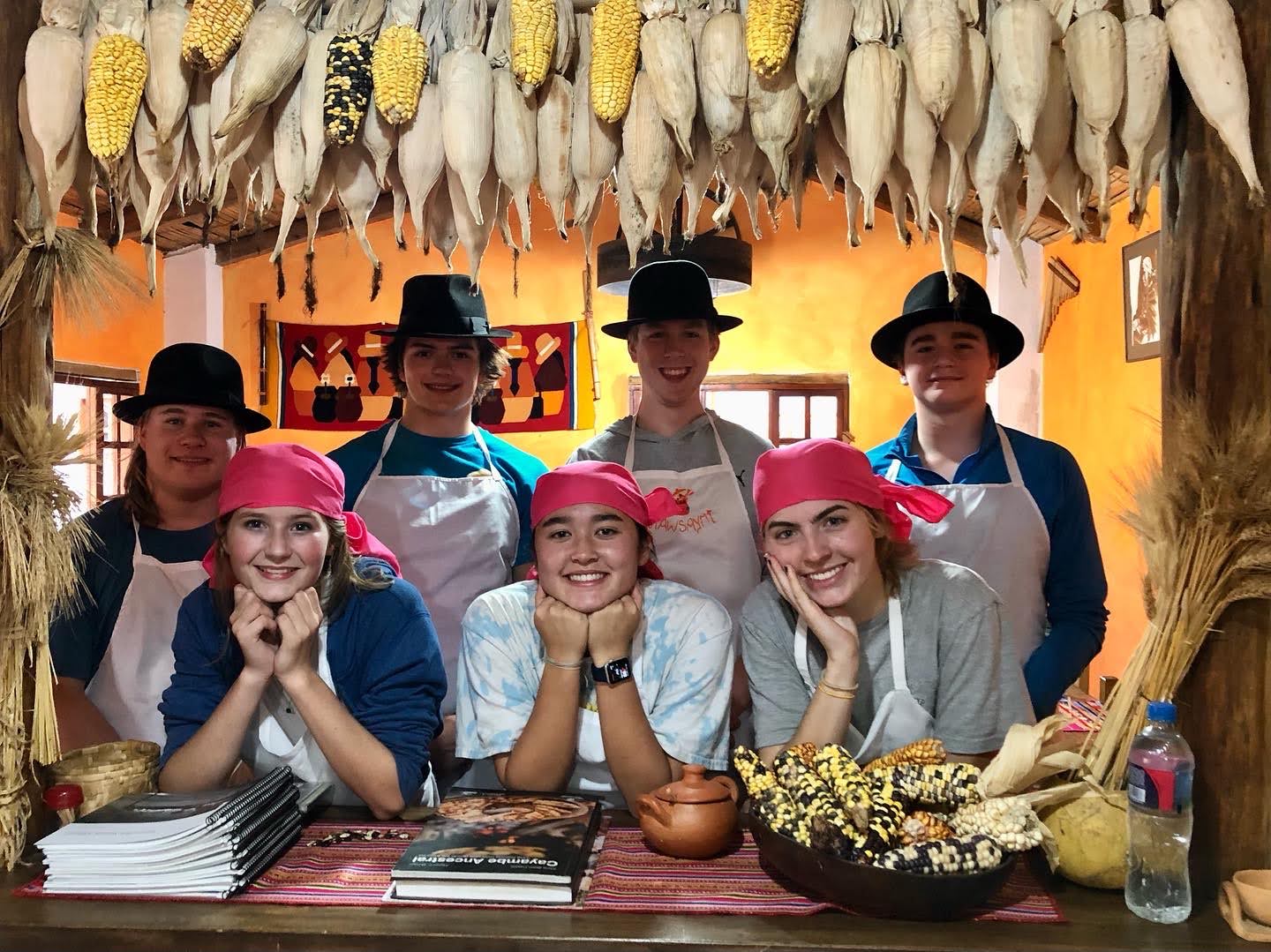
A group of students from Saline High School in Michigan spent a week of service and cultural learning with Tandana in Ecuador. They worked alongside residents of the community of Panecillo to dig trenches and install sewer pipes. In addition to working hard, they had a chance to participate in many exciting cultural experiences, including a pambamesa community lunch, a Kichwa Otavalo cooking class, a presentation about Kichwa Otavalo dress, playing the Kichwa game Triki-Traka, and making bracelets. They also visited Cuicocha crater lake, the Otavalo artisan market, and an Afro-Ecuadorian community in the Chota Valley. It was a great week, full of connection and learning.

Tandana encourages schools to include vibrant music and creative arts offerings both within and beyond their curriculum so that pupils can enjoy the many associated benefits. This year, Tandana will provide financial support to Jaime Roldos Elementary School, in the community of Urkusiki, so that it can employ a music and art teacher. That teacher will visit the school on a weekly basis to deliver small-group lessons. We were also able to provide support in the form of a wide range of art supplies and IT equipment.
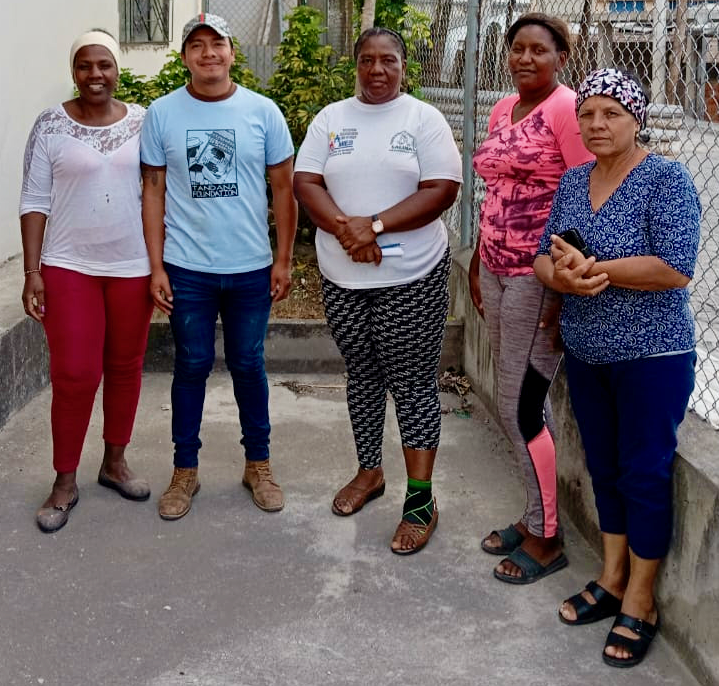
The Chota Valley is somewhat culturally unique as an Afro-Ecuadorian settlement located far from the coastal lowlands of Ecuador. One of the communities there, El Juncal, is an increasingly popular excursion destination for the Tandana volunteer groups, especially for offering a glimpse into how rural Afro-Ecuadorian people live and work. A successful tourism industry is critical to social and economic growth and development in the area. With greater competition to attract visitors, El Juncal is looking for ways to differentiate itself. Tandana has therefore organized a capacity building workshop in the Chota Valley. Andy Renz and Kuri Moreta, our volunteer program coordinators, have run a workshop for our main partner in the community of El Juncal, an NGO named “AROMA CALIENTE," to promote better service delivery.

With the support of Tandana, Ati Pillahuaso primary school in the community of Panecillo has conducted repair and restoration work on the Rumiñahui Monument. The Monument is a bust sculpture that represents Rumiñahui, an indigenous Inca hero. The statue sits in front of the school, just a short distance from the local community center.

Led by Andrés Gonzales, our IT intern, Tandana was able to buy and install WiFi boosters for the community school in Gualsaqui. With improved WiFi signal coverage and speed, the students can now not only enjoy a high-quality internet connection but also have access to a wide range of online educational resources, and collaborate on group projects all over the school grounds.

We are very excited to announce that our scholarship recipient Lady Selene Pazmiño Perugachi, from the community of Panecillo de Quichinche, has earned a psychology degree from the Salesian Polytechnic University in Quito! Congratulations, Lady!
2022
Ecuador
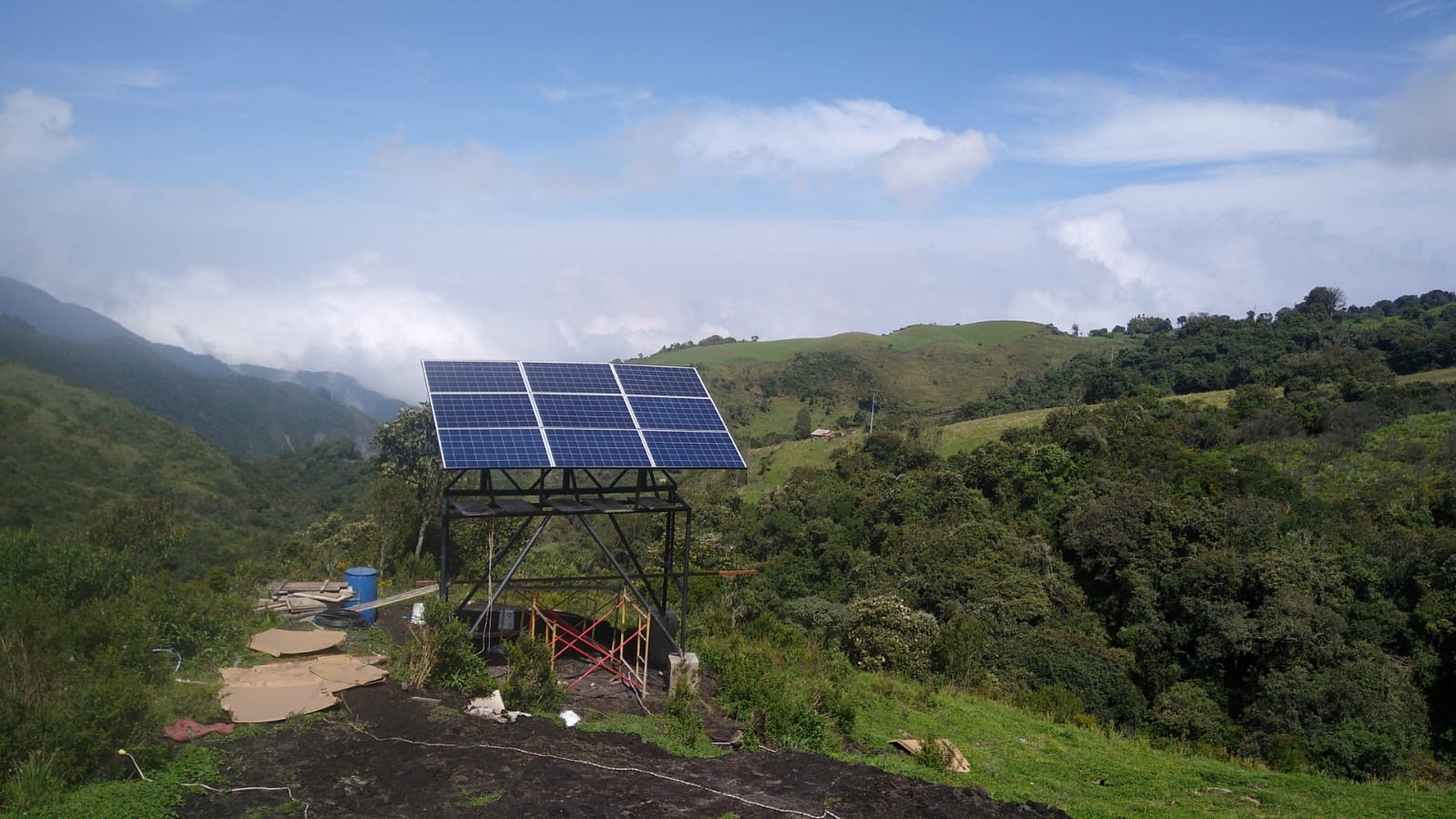
Progress is being made on the Inguincho water project. Vicente, Rockey, and Nicole went to see if the water was flowing through the whole system and met with the community to make sure all their questions were answered. Despite some delays due to COVID, the solar panels have been installed and the pumping station should be running shortly. Intake pipes have been placed and the water reception facility is waiting for the tanks to be filled. The last step is a final wash of the gravel filters, which can take some time as it requires a lot of water. The project with Rotary International will be completed soon!
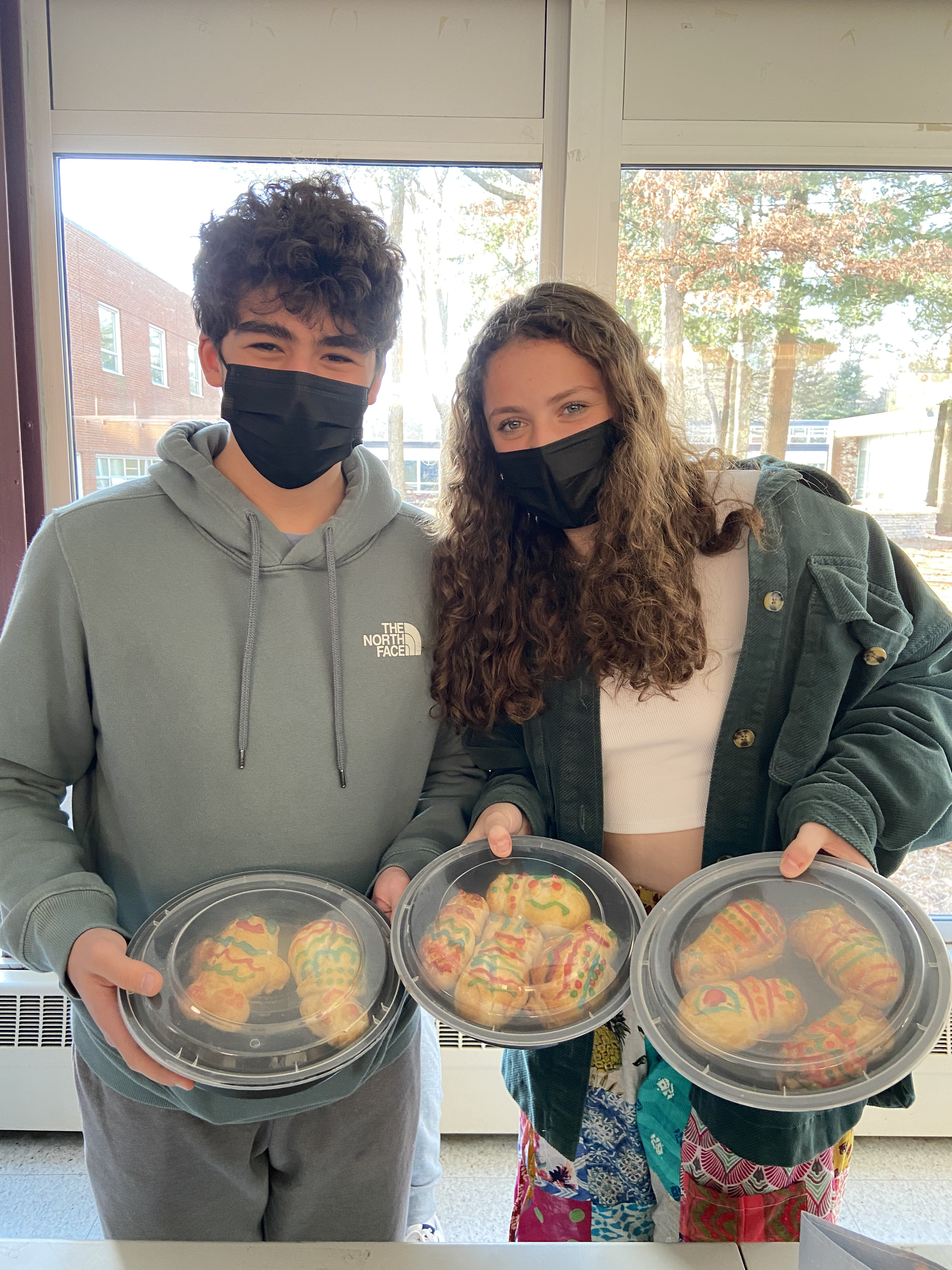
Students at Sharon High School in MA are working with the students in Quichinche to raise funds to paint the school. They have also met on zoom a few times to learn more about each other and share hobbies. To raise more funds, Sharon students had a bake sale and had some traditional treats from Ecuador. The bread babies they made were a hit! Update: For the second consecutive year, Tandana has worked in partnership with a public school in Sharon, Massachusetts, to offer cultural exchange between students of Sharon High School and Alejandro Chavez School, in Gualsaqui. Students write letters to each other, and communicate in real-time through Zoom calls. Peer-to-peer discussions bring to light cultural similarities and differences.

Veronica, our scholarship coordinator, organized an in-person high school scholarship parent meeting to answer any questions as we started the new calendar year. Parents had many questions and worried about if and when their children would return to in-person school full time. We also met virtually with the University scholarship students to share volunteer opportunities, hear about how classes are going in the everchanging pandemic, and check-in.
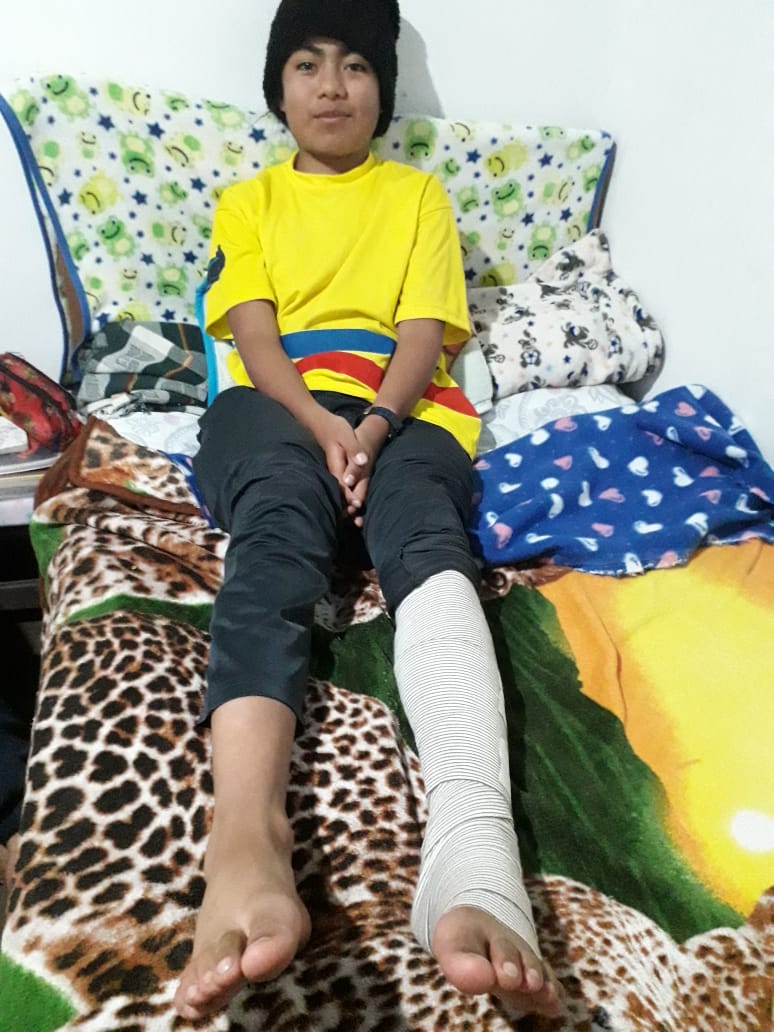
In January, eight patients received medical care for a variety of medical issues including inflammation/infection of the cervix, arm fracture, scoliosis, arthrosis, hearing loss, and epilepsy. Unfortunately, due to the rise in COVID cases because of the omicron variant, the hospitals in Otavalo and Ibarra have temporarily closed outpatient clinics. Appointments are supposed to open up again mid-February. That being said, a young man from Cutambi underwent surgery in Quito to extract a vein deformation in his left leg. This surgery has been postponed since 2019 because of the pandemic so we are very happy he has finally received care!

Through our remote connection program, Sharon High School raised funds for the Urkusiki community school which went towards musical instruments. They donated another violin (in addition to one that was donated on a previous visit) and 10 traditional flutes. Students are looking forward to getting to use them!
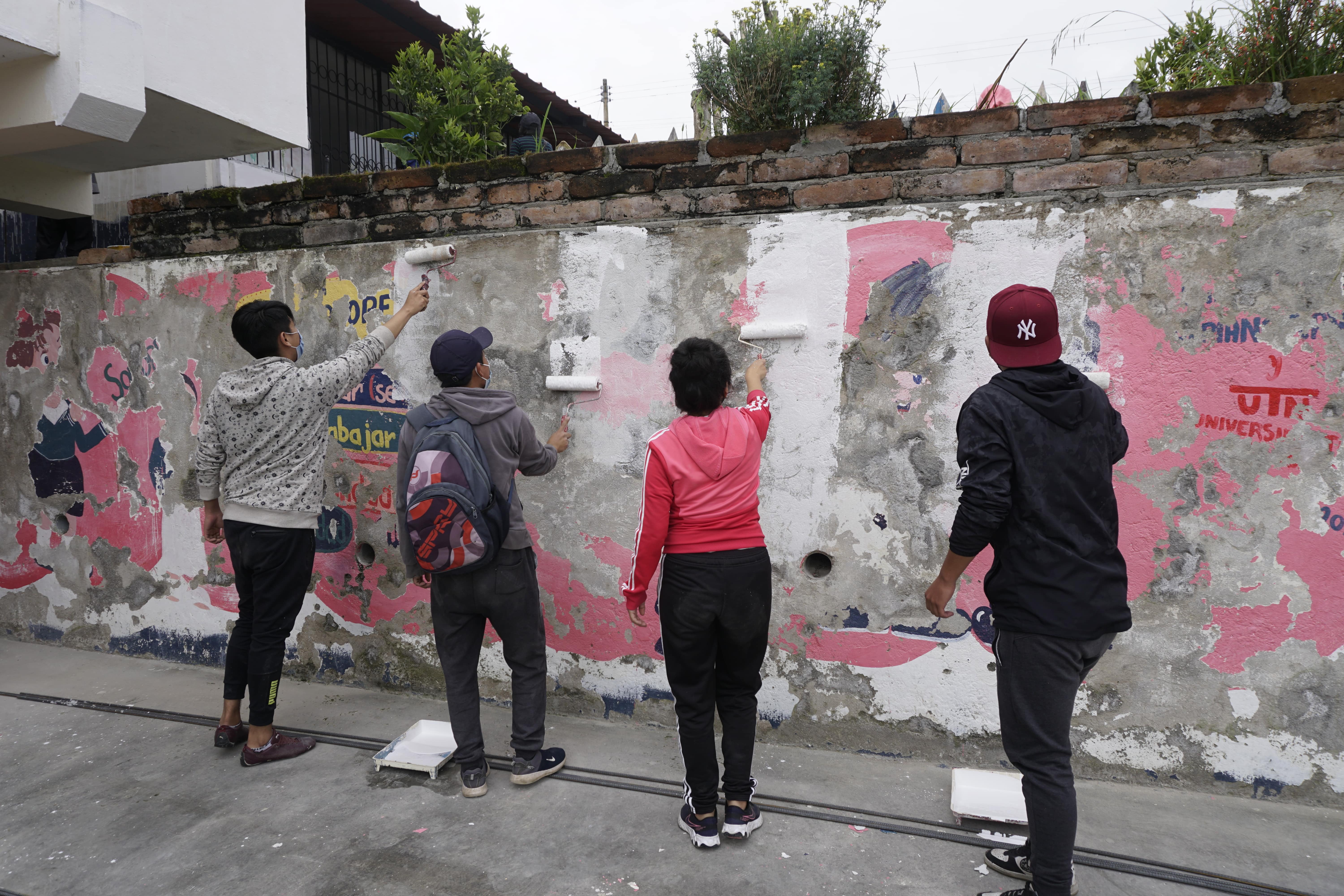
Looking for ways to improve their school, the Quichinche high school student government asked Tandana for support with painting the outside of their school. Quichinche students in 10th grade connected with Sharon High school students to help raise the money and, parents, teachers, students, and members of Tandana painted together!

In February, a total of 17 patients received medical care for thyroid extraction, muscle pains, progressive muscular dystrophy, possible microcephalia caused by temporoparietal sutures, prostate problems, issues due to a fatty liver, poorly done sutures in the eye which requires reconstructive surgery, and hearing loss. 4 patients were seen at the ophthalmology clinic in Otavalo.
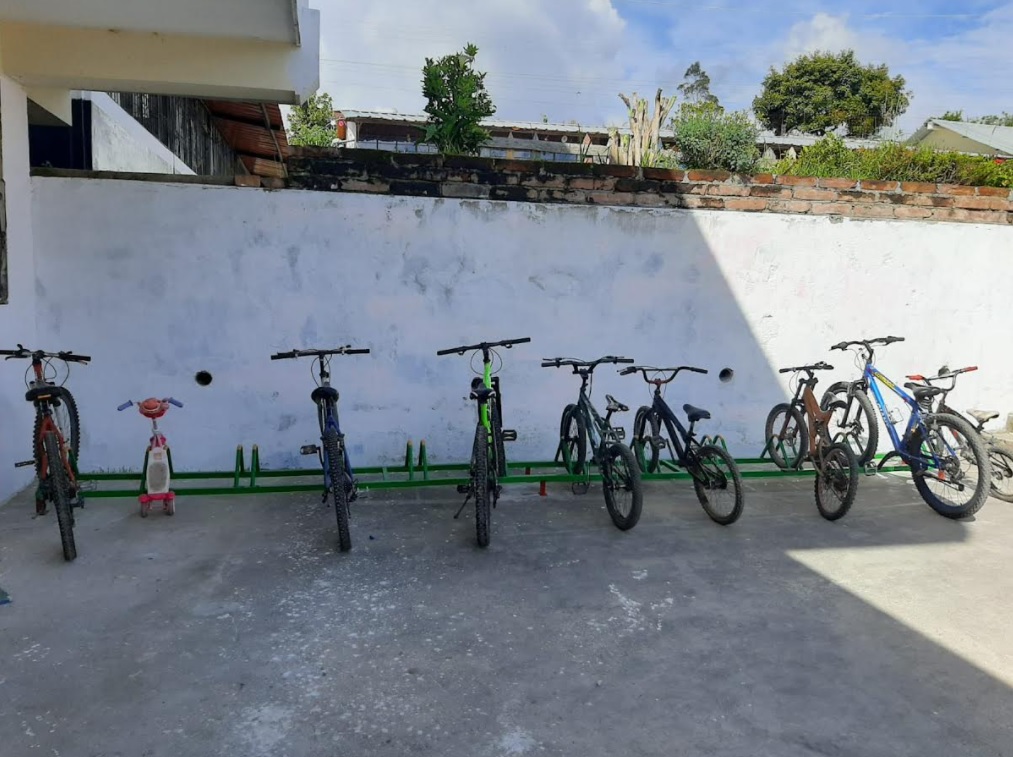
Thanks to Sharon High School's generous donations, a handwashing station, and bike racks have been installed at the school.
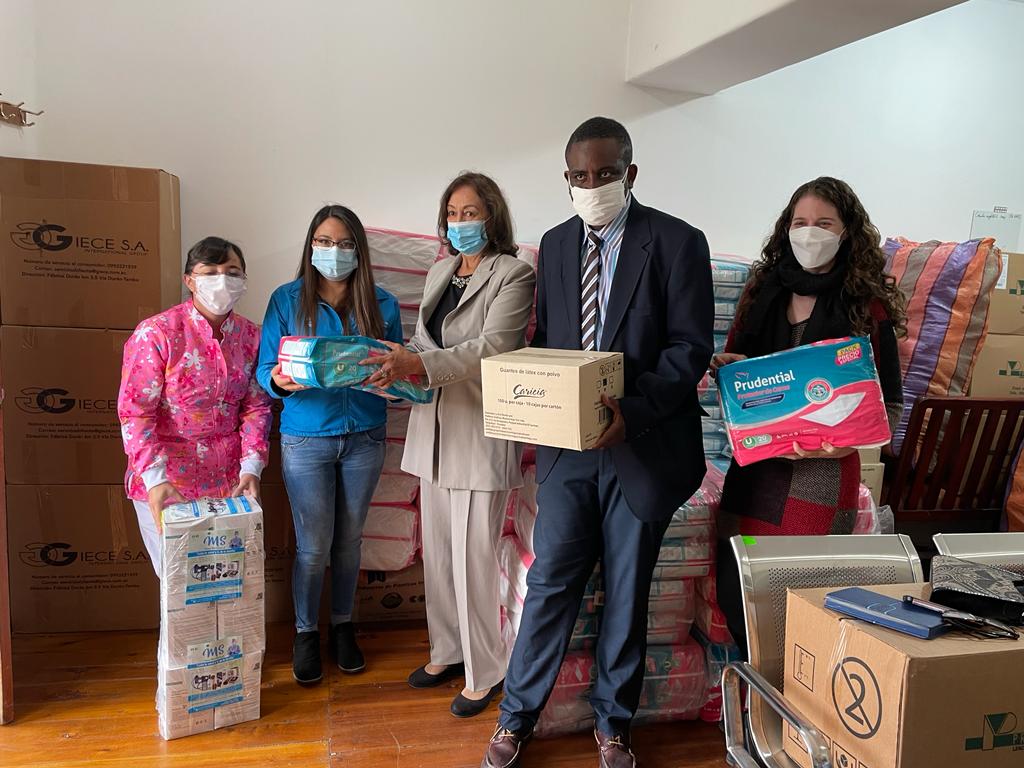
Tandana was able to provide donations of medical gloves, disposable underpads, urine collection bags, and packs of multi-fold paper towels to the Otavalo Hospital. Special thanks to Boston Scientific for providing the funds for these donations.
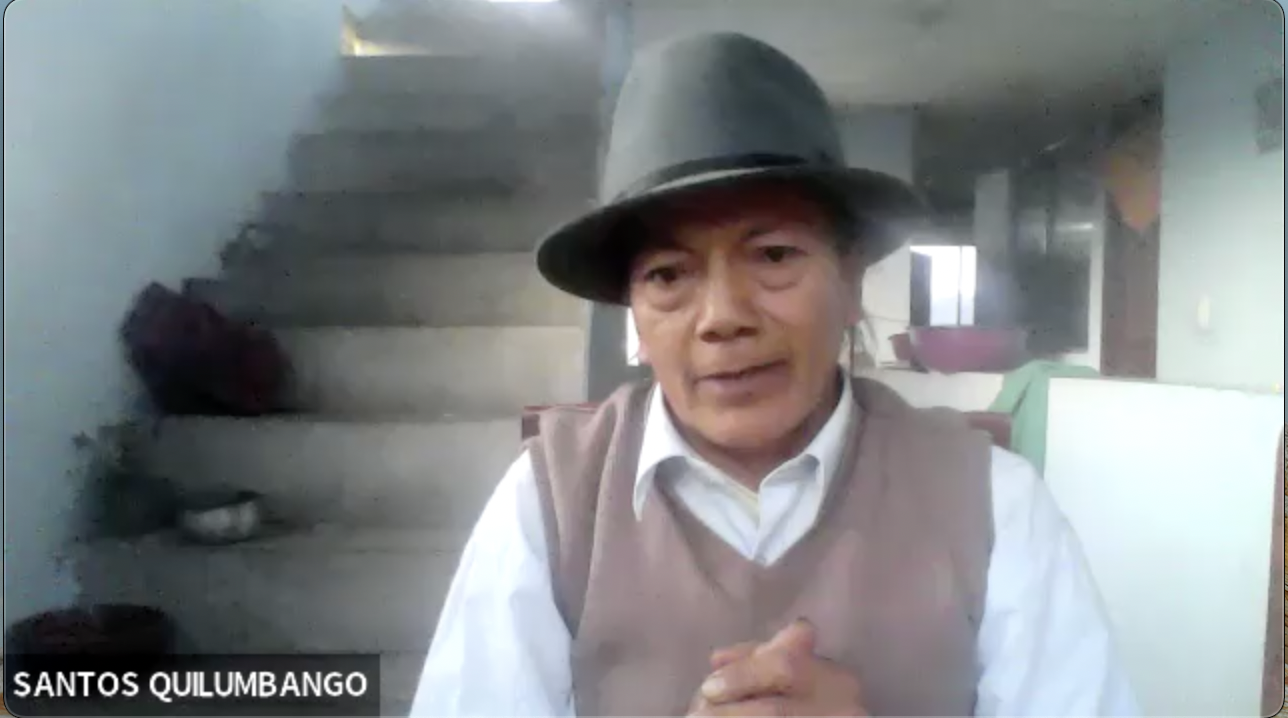
Tandana facilitated a one-credit course for Whitman College students on Andean and Western Healthcare in Otavalo, Ecuador. Students had opportunities to interact on Zoom with a variety of practitioners of different forms of medicine from the Otavalo area in addition to readings and videos about the interactions of Andean and Western understandings, practices, and systems of healthcare.
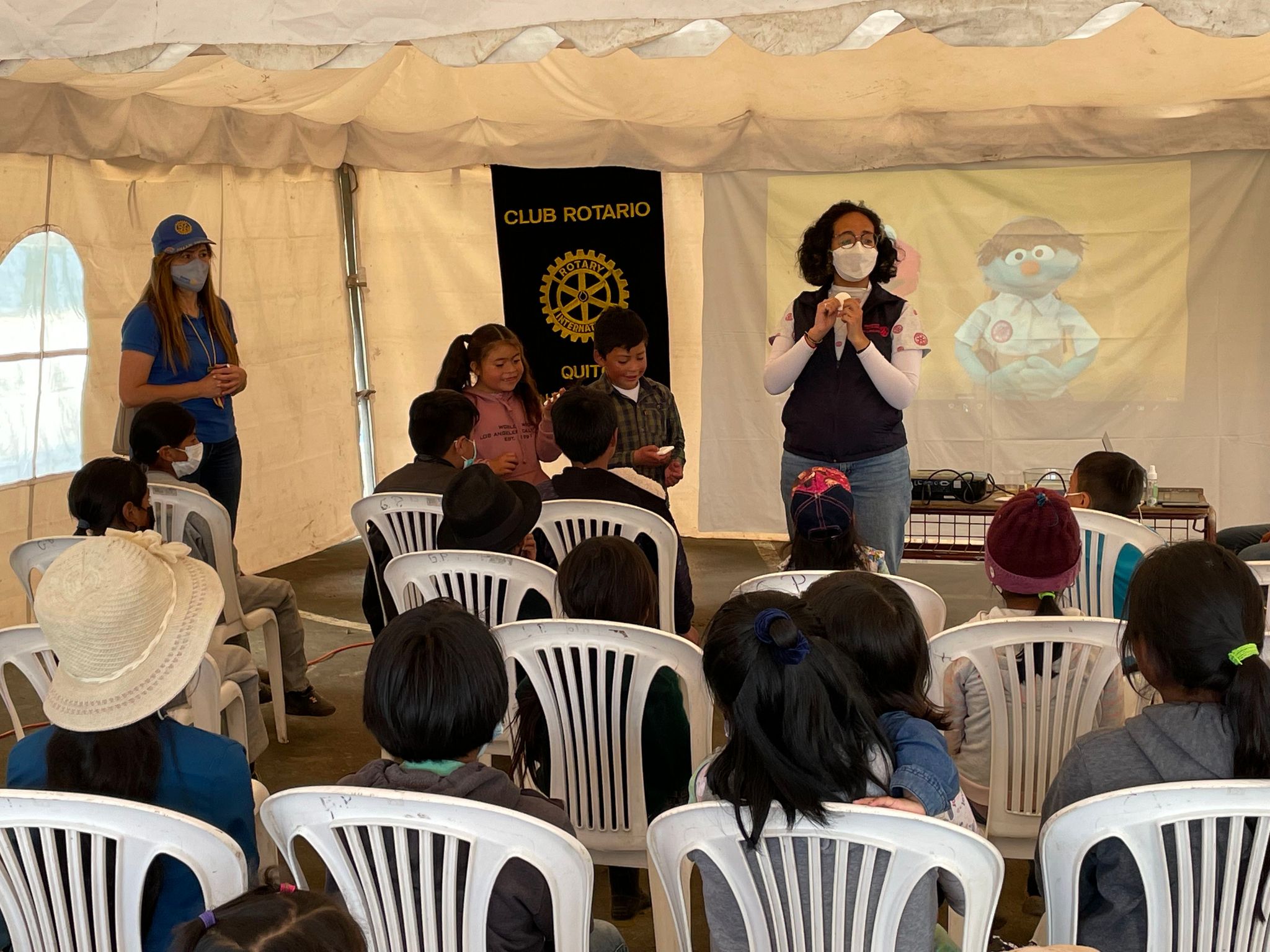
The Inguincho water project has been completed. Prior to the inauguration of the water system, a Water, Sanitation and Hygiene (WaSH) training was organized on April 23rd. During the WaSH training conducted by a team of Rotaract (Rotary-sponsored service club for young men and women ages 18 to 30), community members learned about sanitation, hygiene, and the importance of drinking safe, filtered water.
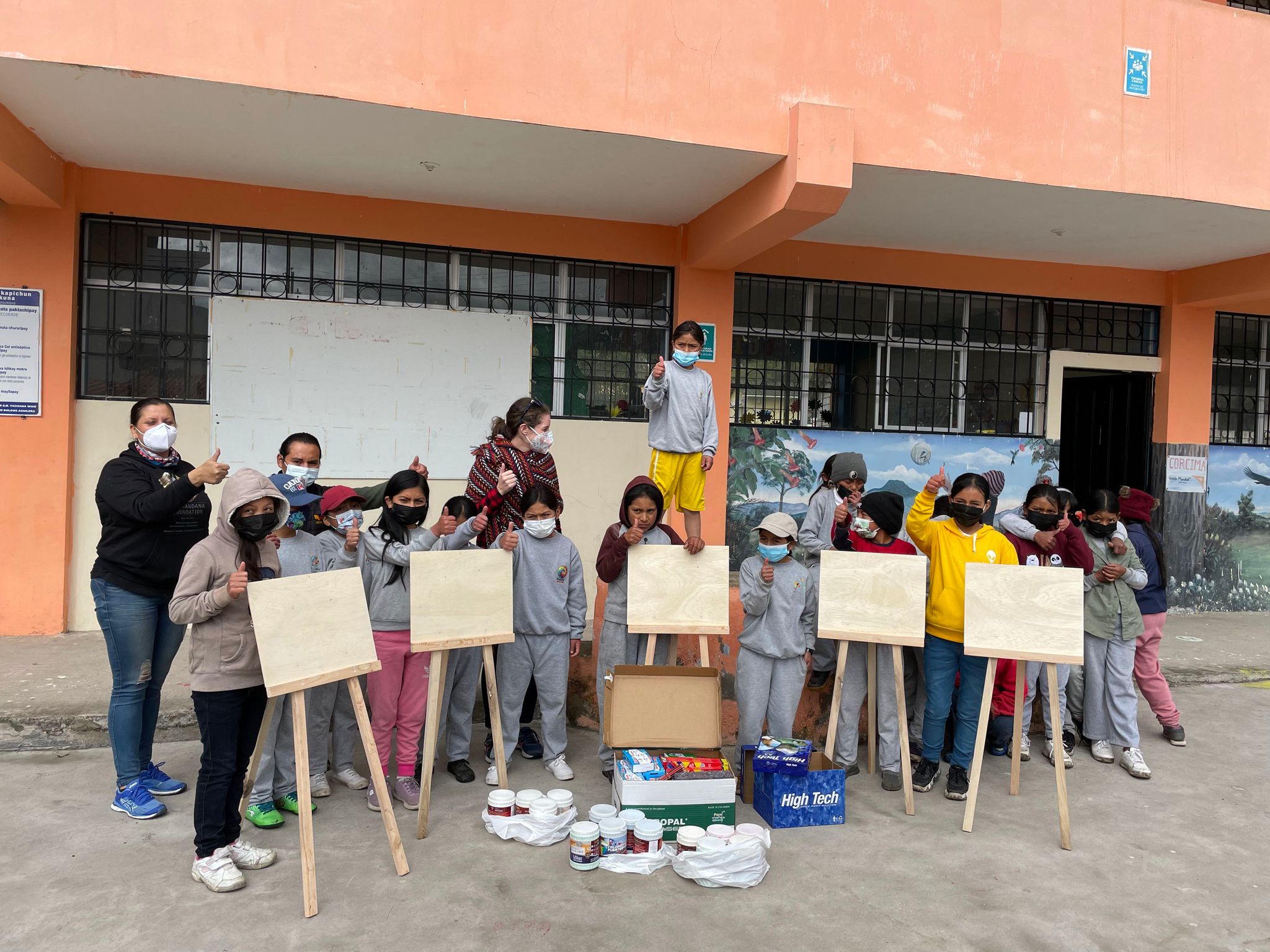
Thanks to the funds raised by Sharon High School, we purchased and donated items to the Jaime Roldos Aguilera Intercultural Bilingual school in Urkusiki. The donation consisted of more paint supplies, easels, 2 violin bows, paint, and paper.
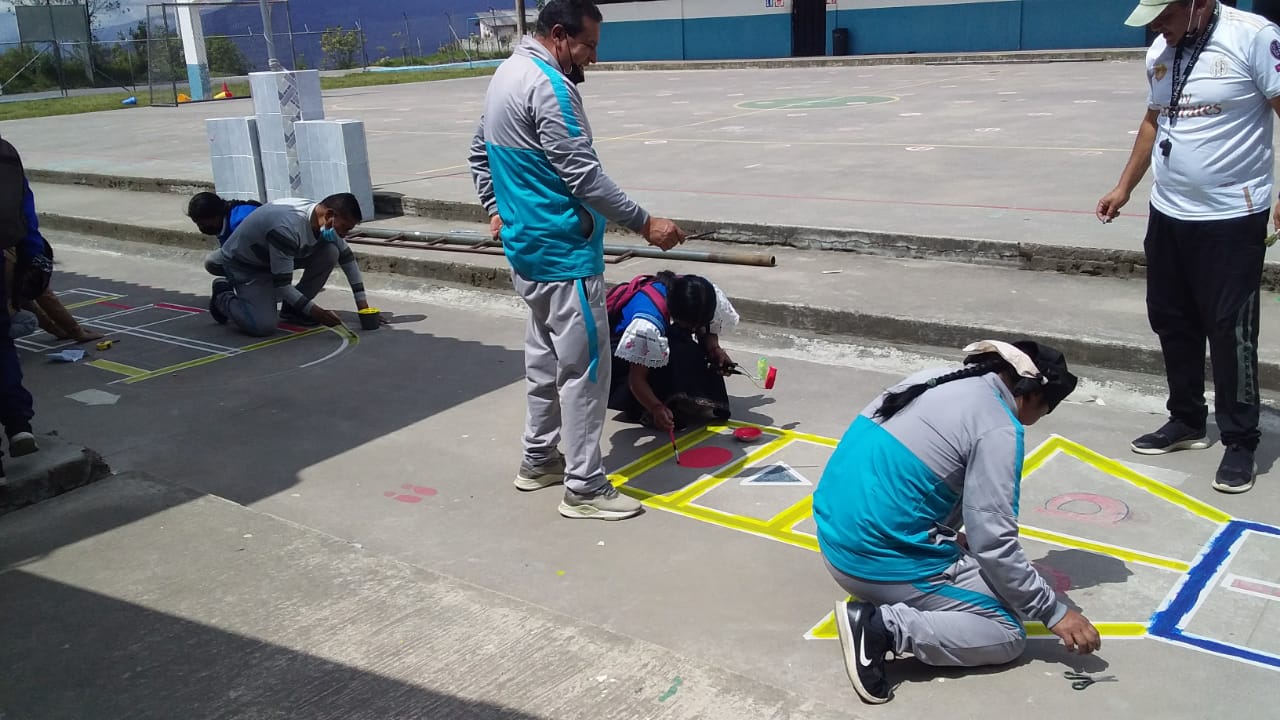
Paint was donated to the "Provincia de Pichincha" School in Tangali. The donation was used by teachers and students to repaint traditional games similar to hopscotch in different areas of the school grounds.
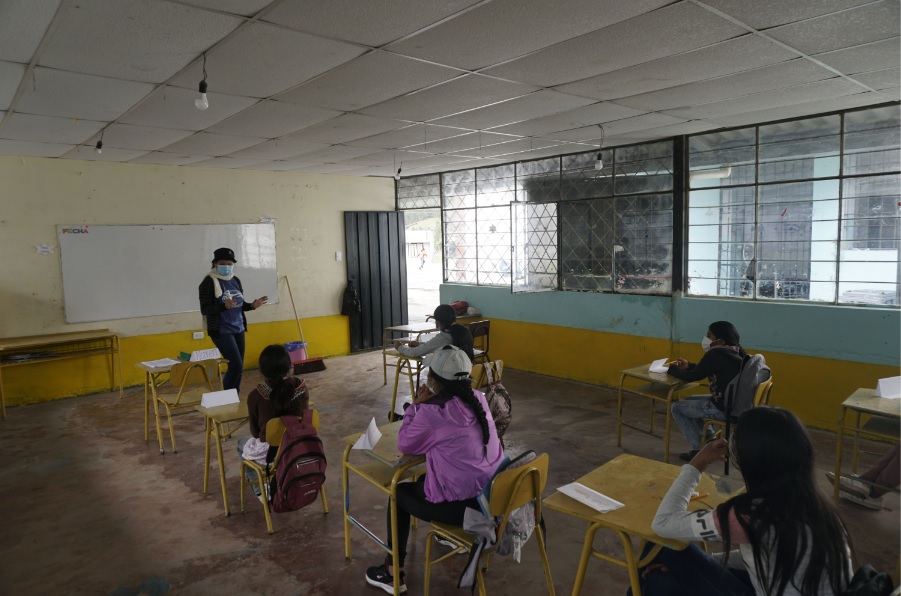
After two years of online summer courses, in-person classes have returned for a group of 20 children, aged 11 to 16. The courses provide an extra opportunity for children to practice, develop, and consolidate their English language skills with a native-speaker teacher from the United States. The children receive Math lessons to help reinforce their knowledge and prepare them for the upcoming school year, as well as theatre courses to improve their language skills and build their confidence. The lessons are taught by Holly Dickinson (English), Karen Pazmiño (Math), and Hank Fincken (Theatre).
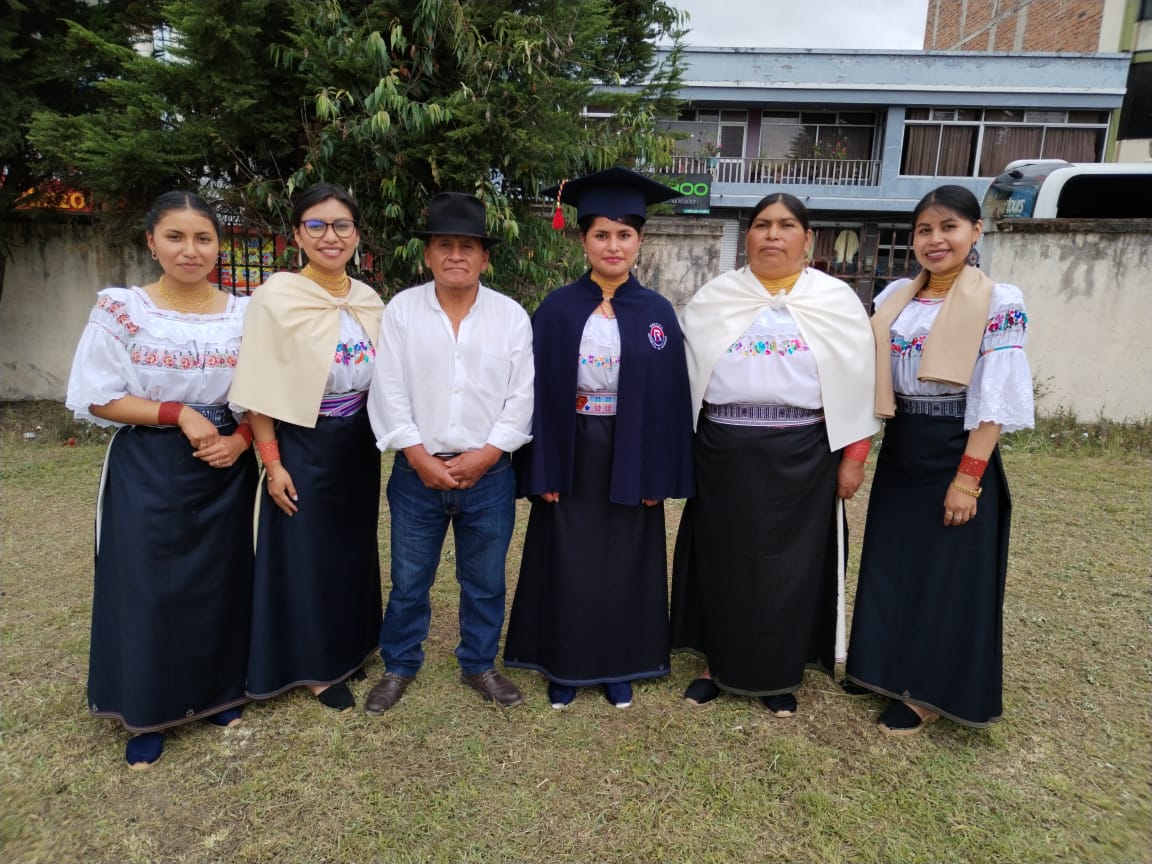
Seventeen of our high school scholarship recipients attended an end-of-year ceremony at their respective schools to celebrate promotion to the next grade level or graduation from high school.
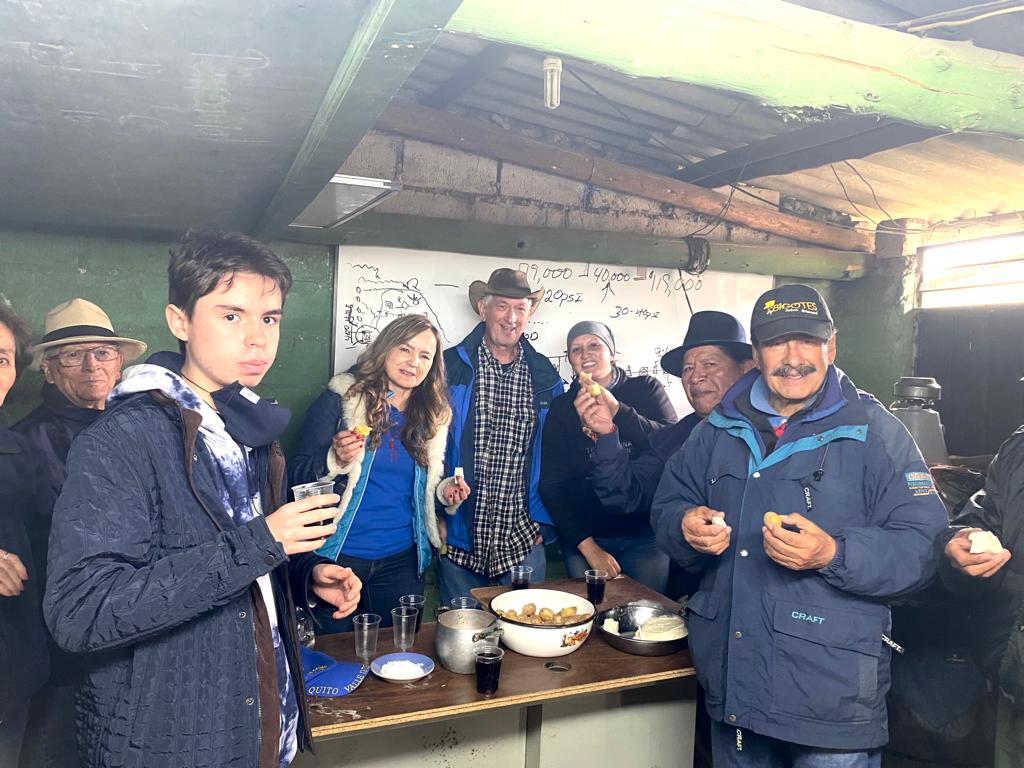
On Sunday, July 24th, our dear Tandana friend Rockey Anderson provided training to beneficiaries of the water system donated by Rotary International in San Juan de Inguincho. The new information will enable community members to identify those who could potentially become operators of the system.

Accompanied by Virginia Sanchez and Gaetan Moussa of the Tandana Ecuador staff, a medical team from the Health Center of Quichinche delivered health services to members of the Minas Chupa community. Twenty-two patients were seen by a general practitioner, had dental consultations, and received medication. Twenty-four additional patients received medical care in July at 5 other sites.

In the village of Padre Chupa, a team from the Health Center of Quichinche organized a free medical exam and dental services for 26 children and adults who had never received dental care previously or had only limited access to it. Tandana also contributed essential medicines and medical supplies. Our staff members Gaetan and Virginia were present to record the success of the day's activities.
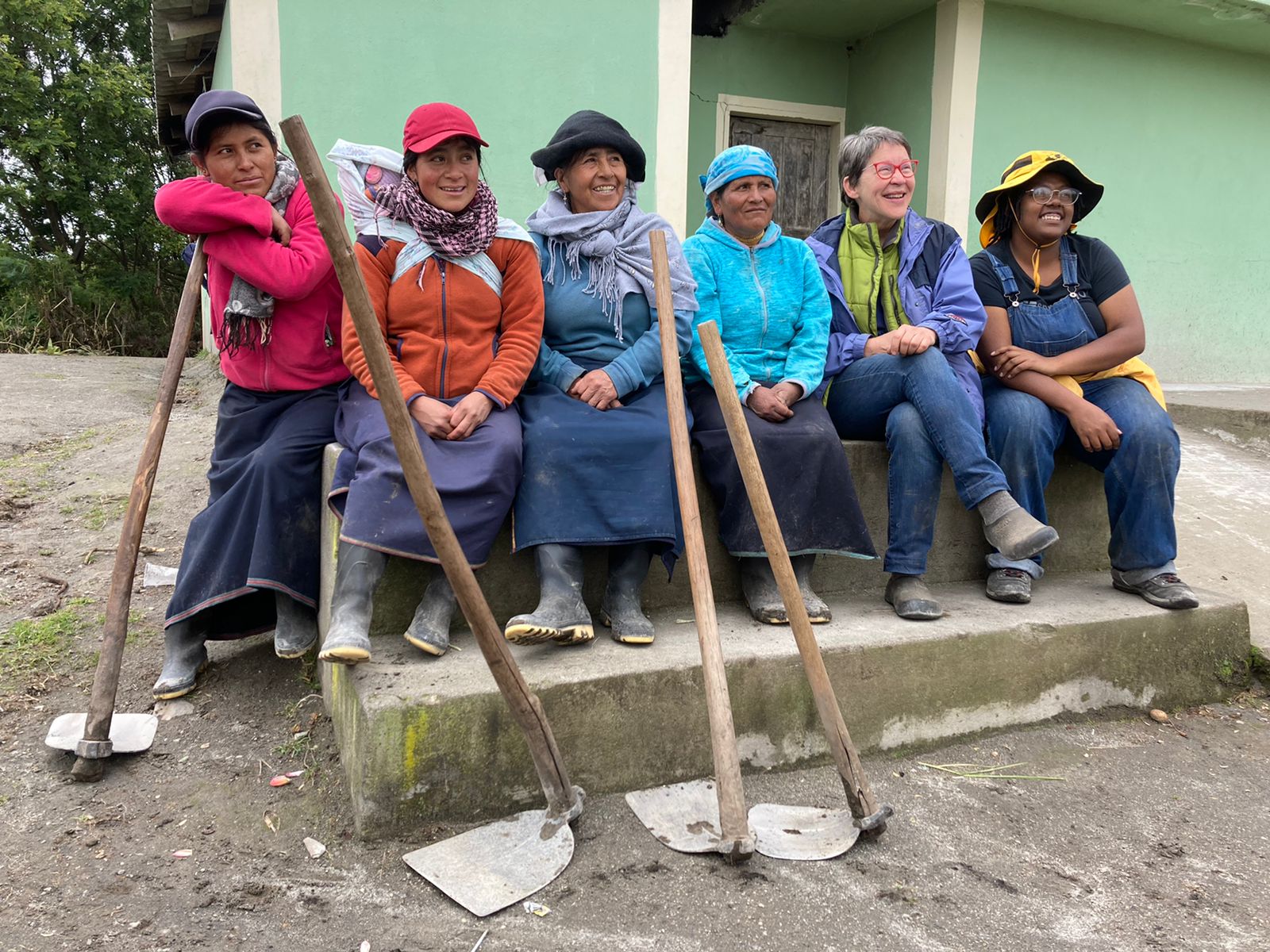
We were so excited to host our Gardening Volunteer Venture again in Ecuador with 6 participants! Their trip kicked off with a cooking class at Kawsaymi and then a great morning planting vegetables, fruits, and herbs with students at Saminay school. Later, they participated in a minga with the community of Muenala to plant acacia trees for a windbreak on the one remaining open side of the soccer field and did road work. Of course, the work was followed by a wonderful pambamesa. They also visited the Afro-Ecuadorian community of El Juncal, and planted corn and beans at the Quichinche Health Center.
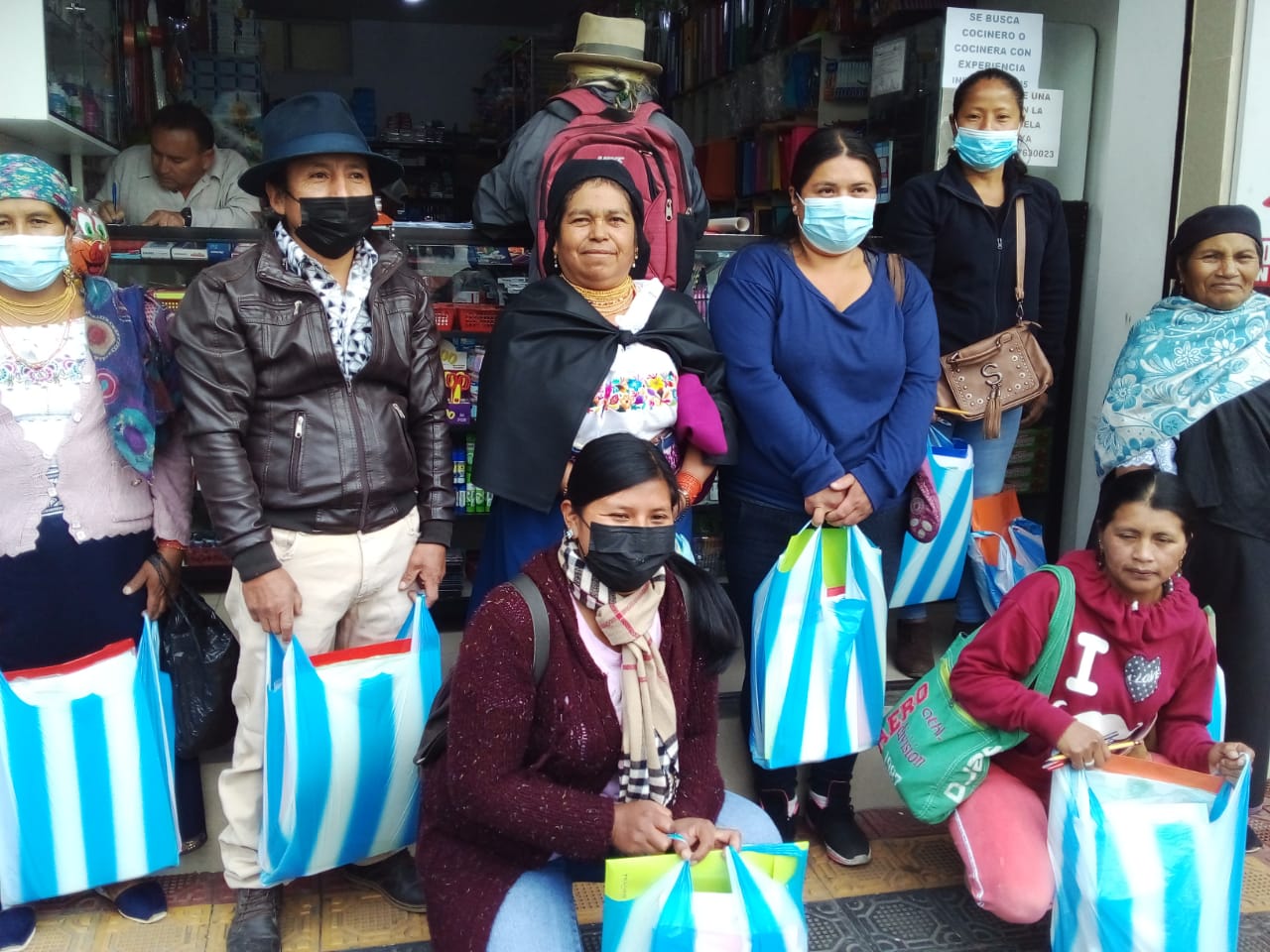
School materials were distributed to high school scholarship students. These included uniforms, stationery, and other school supplies.
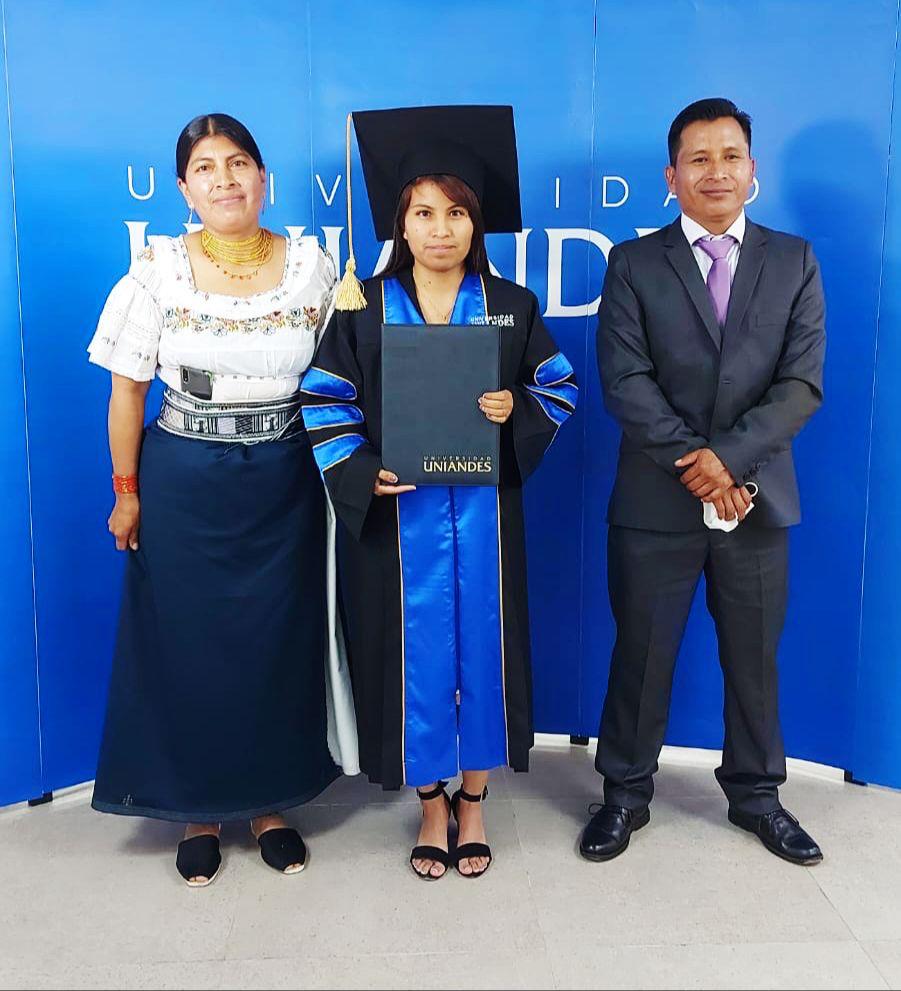
We are announcing with great pride the college graduation of Jhanina Orbes, one of Tandana's scholarship recipients. Jhanina, who comes from the community of Perugachi, has earned a business management degree from the Autonomous Regional University of the Andes (UNIANDES). Congratulations, Jhanina!
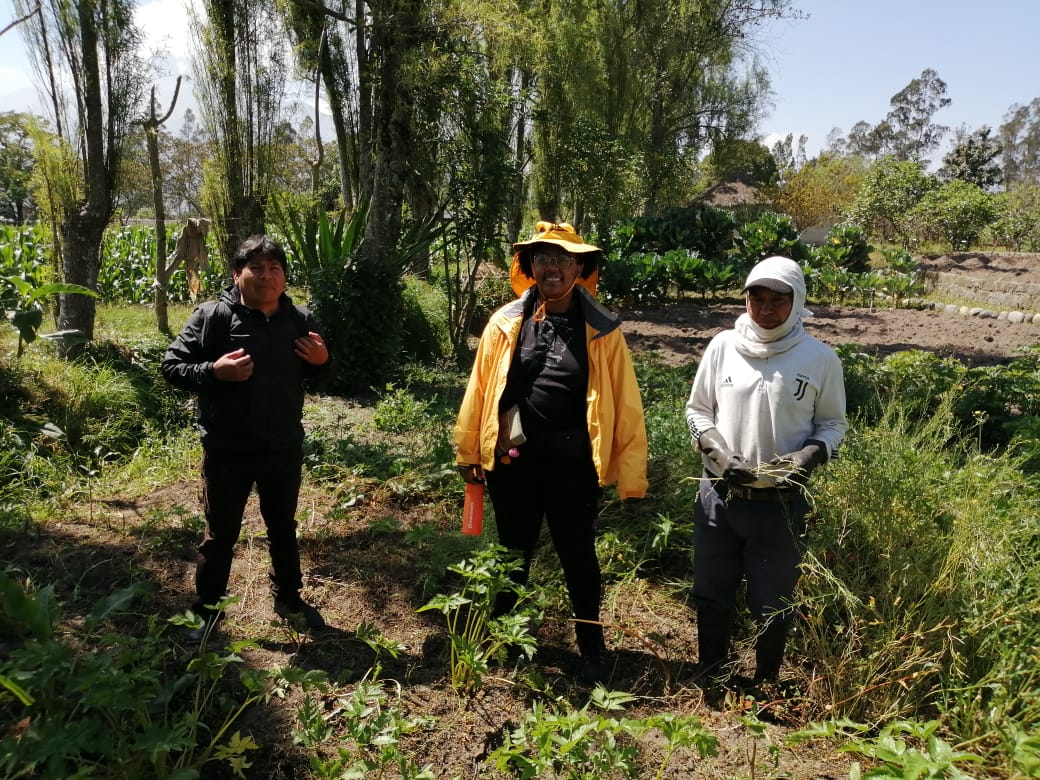
The Union of Peasant Organizations of Cotacachi (UNORCAC) launched a campaign to promote the conservation of traditional seeds and reduce the use of hybrid seeds. Tandana has begun to partner with UNORCAC by assigning intern Alexis McGilvery to assist the organization, including by growing and maintaining plants in an ethnobotanical garden.
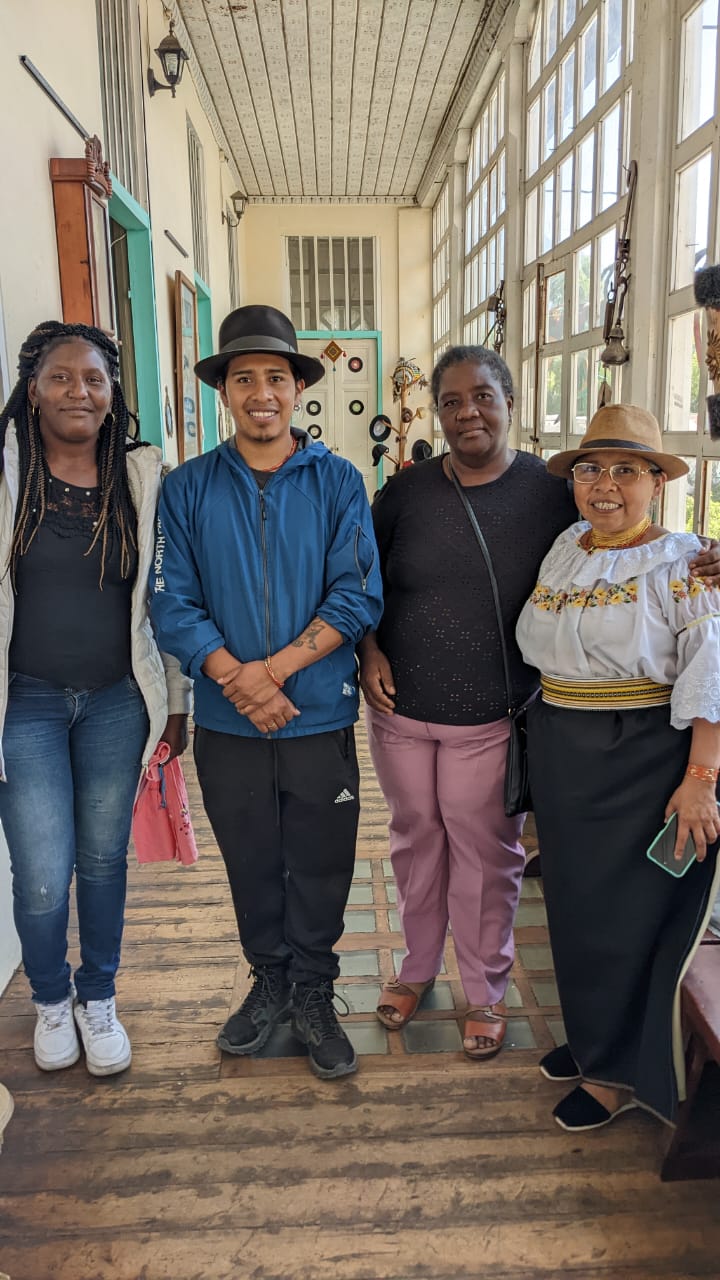
Tandana Ecuador organized a visit to the Otavalango Museum, in Otavalo, for a group from Aroma Caliente, an association in El Juncal, Chota Valley. Following a guided tour, a meeting provided a safe space for Afro-Ecuadorian and Indigenous people to speak about their realities, share expertise and aspirations, and create opportunities for solidarity and mutual support.
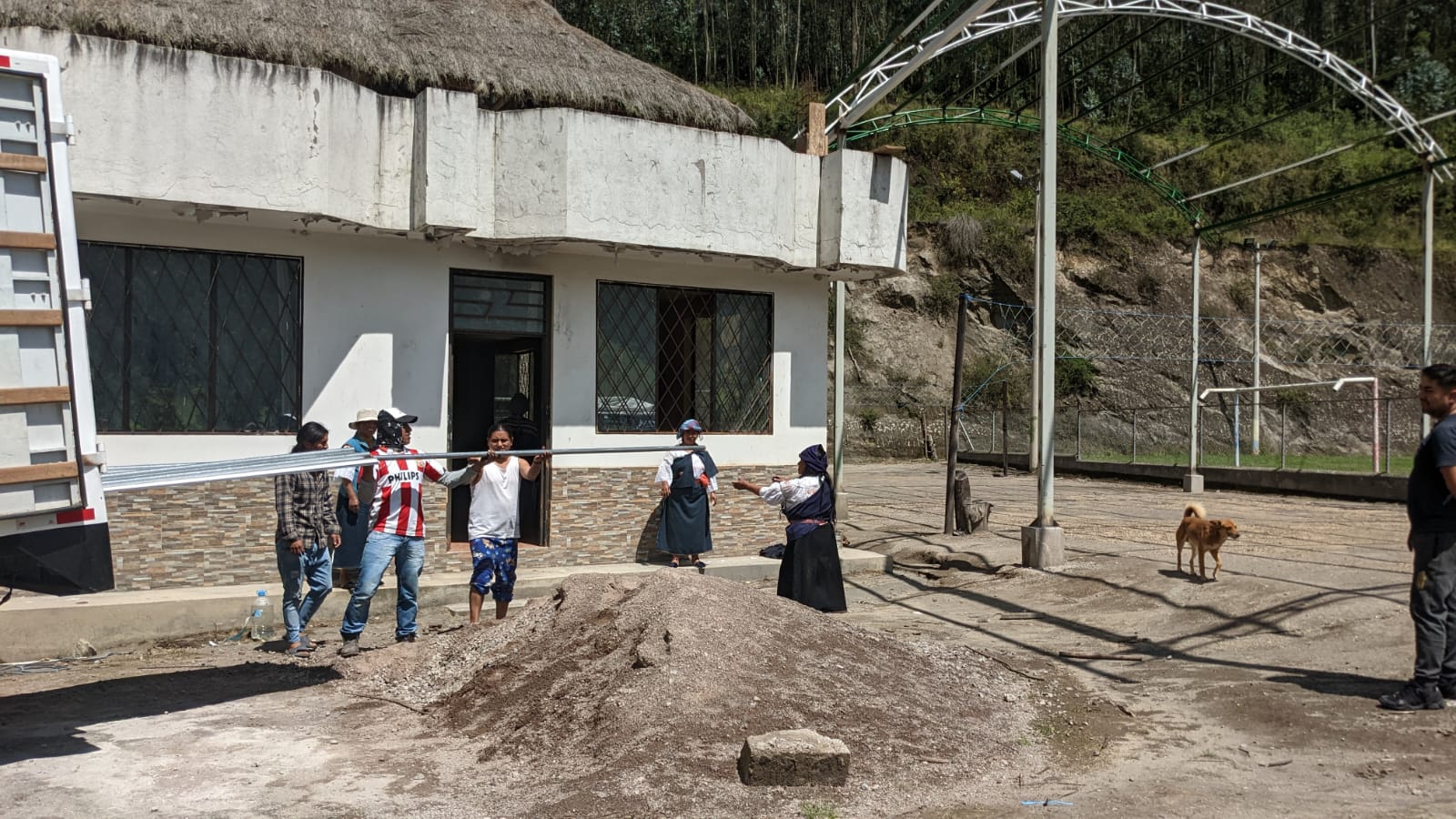
Ecuador Program Manager, Gaetan Moussa, and Vicente Pazmiño, Logistics Manager, visited the community of Agualongo to make a donation of building materials. During a recent meeting between representatives of Tandana and Agualongo, community members requested financial support to finish the construction of a new volleyball court. Three days after receiving Tandana funding, residents participated in a minga to complete the project. The community anticipates increased participation in the sport, with the accompanying health benefits for youth and adults.
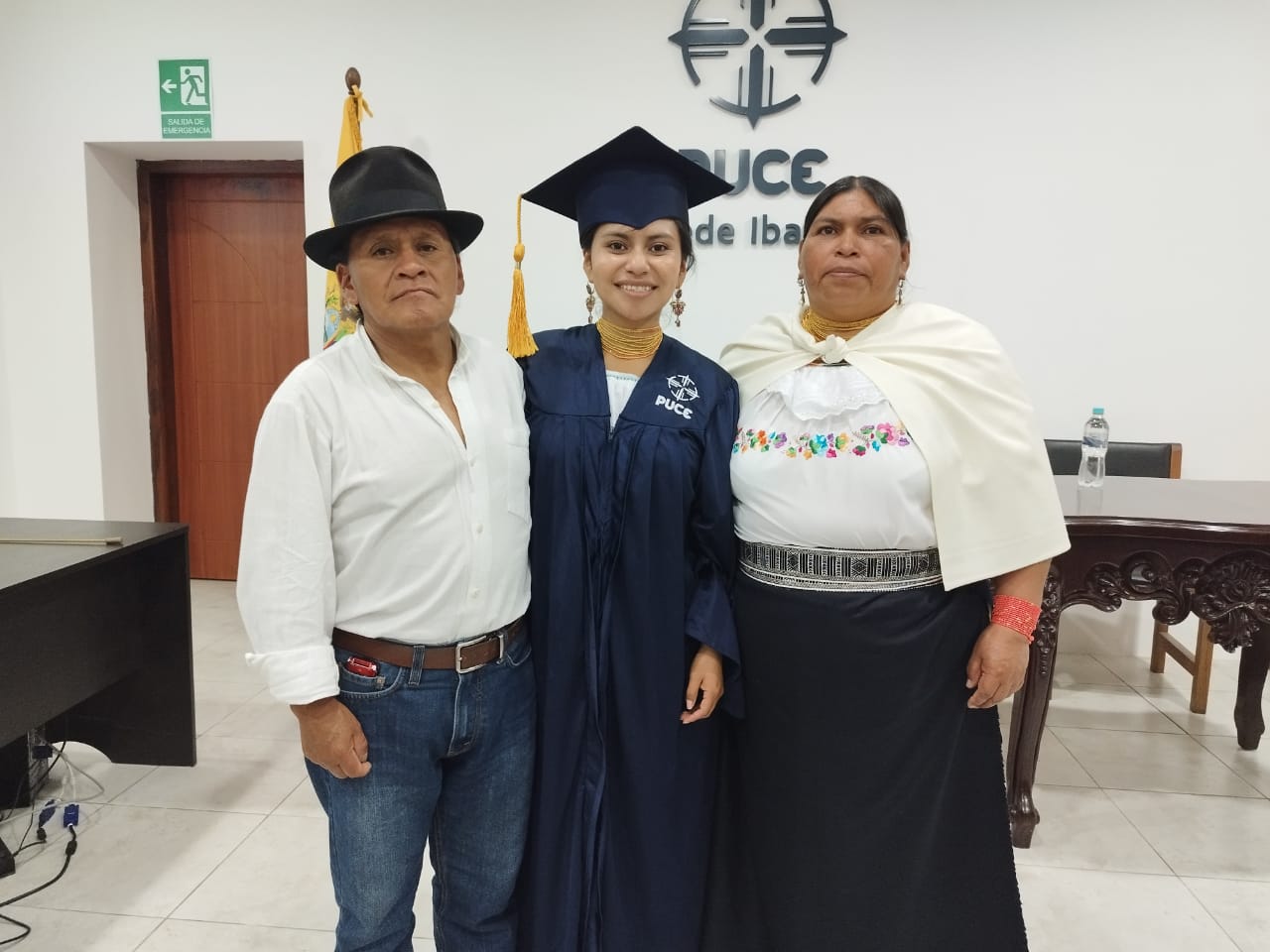
We are delighted to announce the college graduation of Mónica López, one of our scholarship recipients. Mónica, who comes from the community of Quichinche, has earned a law degree at the Pontifical Catholic University of Ecuador (Pontificia Universidad Católica del Ecuador).

With the support of Tandana as a primary sponsor, and through a partnership with the KISHT organization, a science-themed academic competition was held between October and December of 2022. Students in middle and high school from all areas of Ecuador demonstrated their knowledge of science while providing answers in Kichwa. Consisting of both qualifying stages and a national championship, the "Science Bee" held its final round in Peguche on December 10, 2022
.
Mali
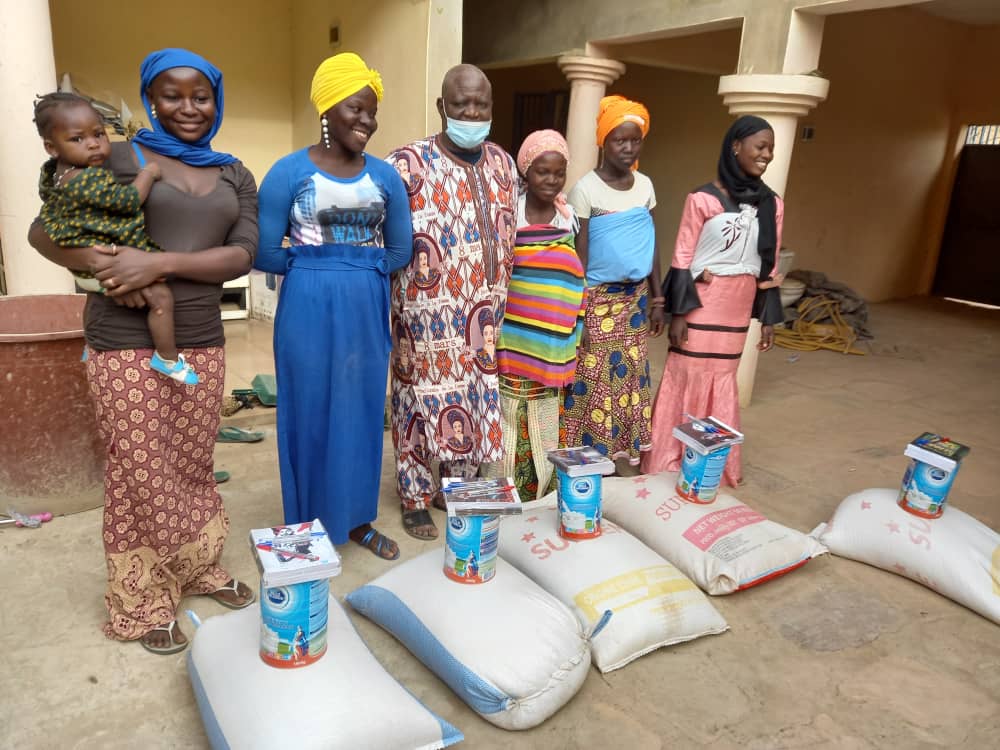
The 5 student mothers in our program this year received their supplies and food so that they can care for their babies and stay in school. Update: All 5 of the young women in our student mothers program passed the year and are continuing to the next grade!
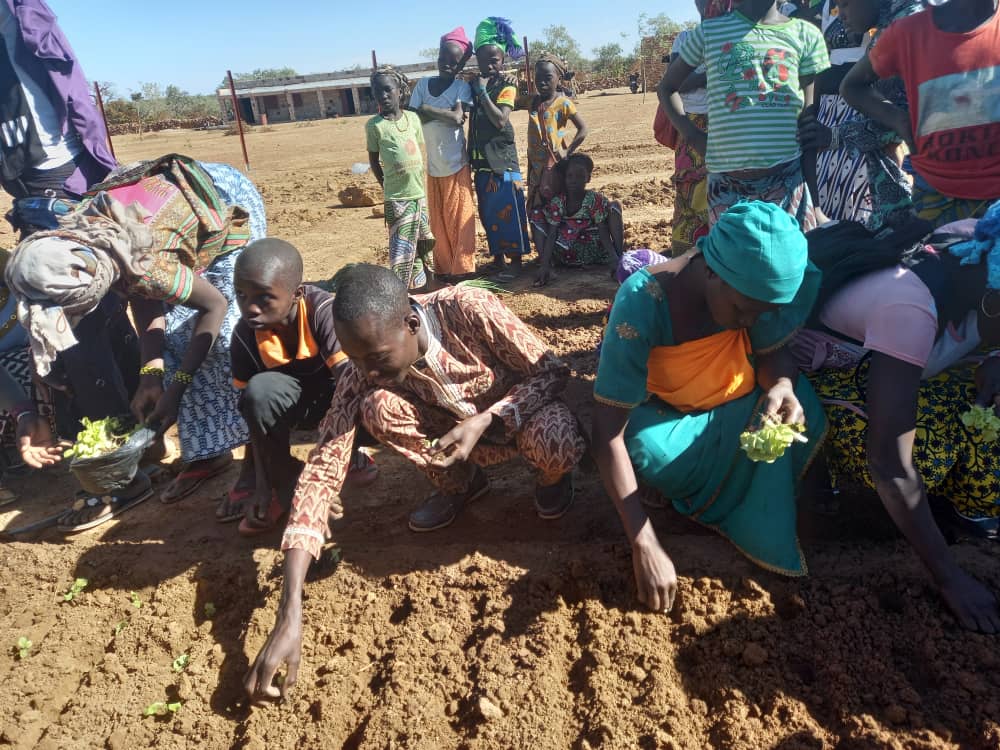
Four new school gardens are up and running. They are in Andjine, Tegou, Sal Ogol, and Nalou. The students, teachers, and parent representatives have all participated in training sessions about gardening and have started planting. We look forward to seeing what they harvest. These gardens were generously funded by AllPeopleBeHappy Foundation and the Nick and Edna Weller Charities. Update: The students and teachers in Tegou, Mali, have harvested manioc from their school garden and look forward to eating it as a source of carbohydrates.
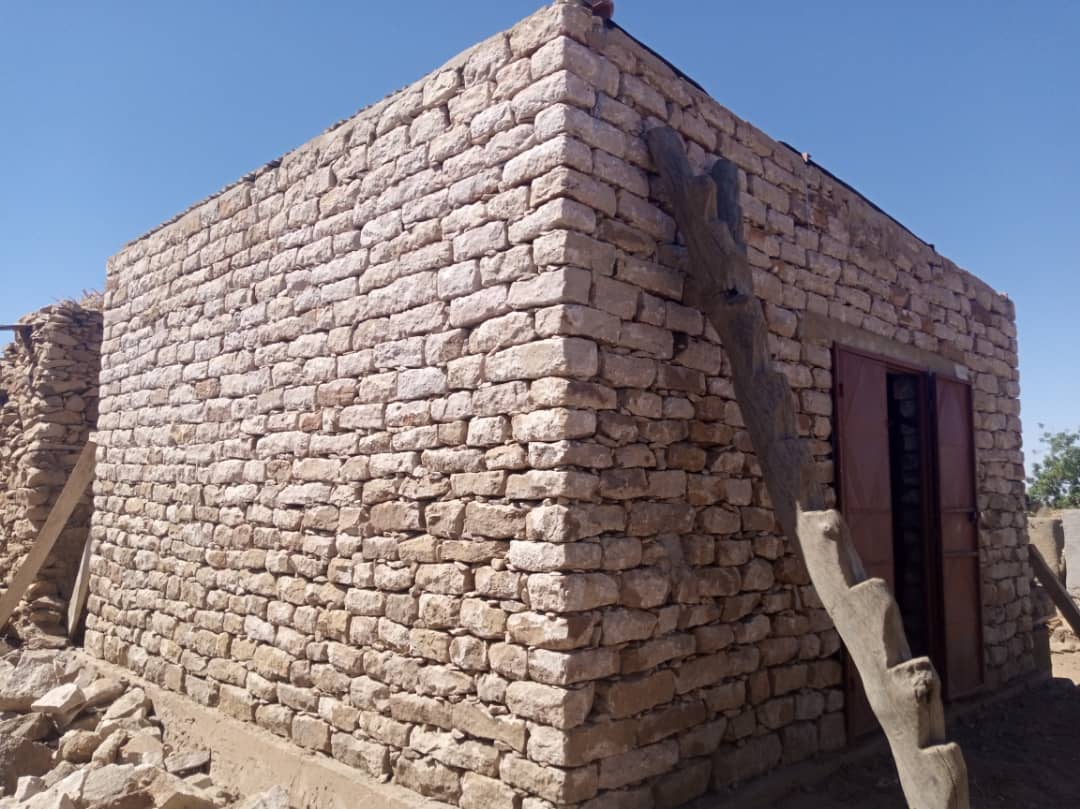
The building at the Nounou Grain bank is complete, the management committee has received their training, and the first stock of millet has arrived! The grain bank will be extremely important this year, as the market price of millet is already climbing high. Luckily, the committee was able to put in their order quickly and get enough millet before it became too exorbitant. This grain bank will help the community towards food security this year and for many years to come. Thanks to the First Community Church Mission Council for helping make this a reality!
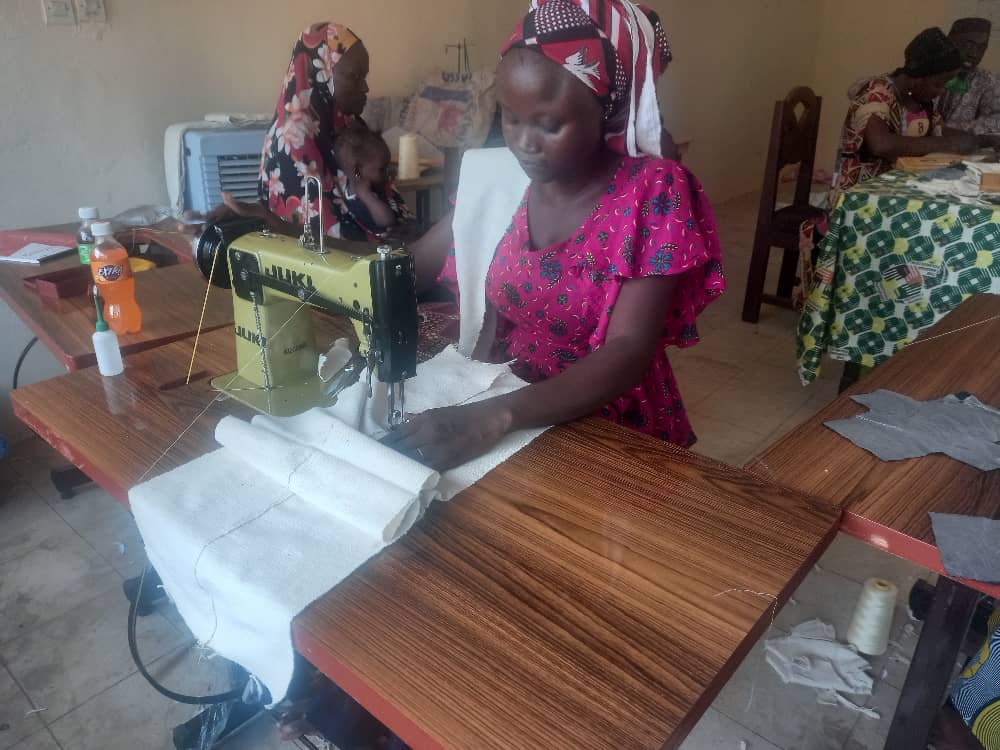
Construction is progressing on the workshop for making menstrual kits in Bandiagara, Mali. Update: The menstrual kit workshop in Mali is up and running. After some construction delays, the new workshop space is ready, and the sewing team has moved in with their sewing machines. They are now producing reusable sanitary menstrual kits to sell inexpensively to local women and girls.
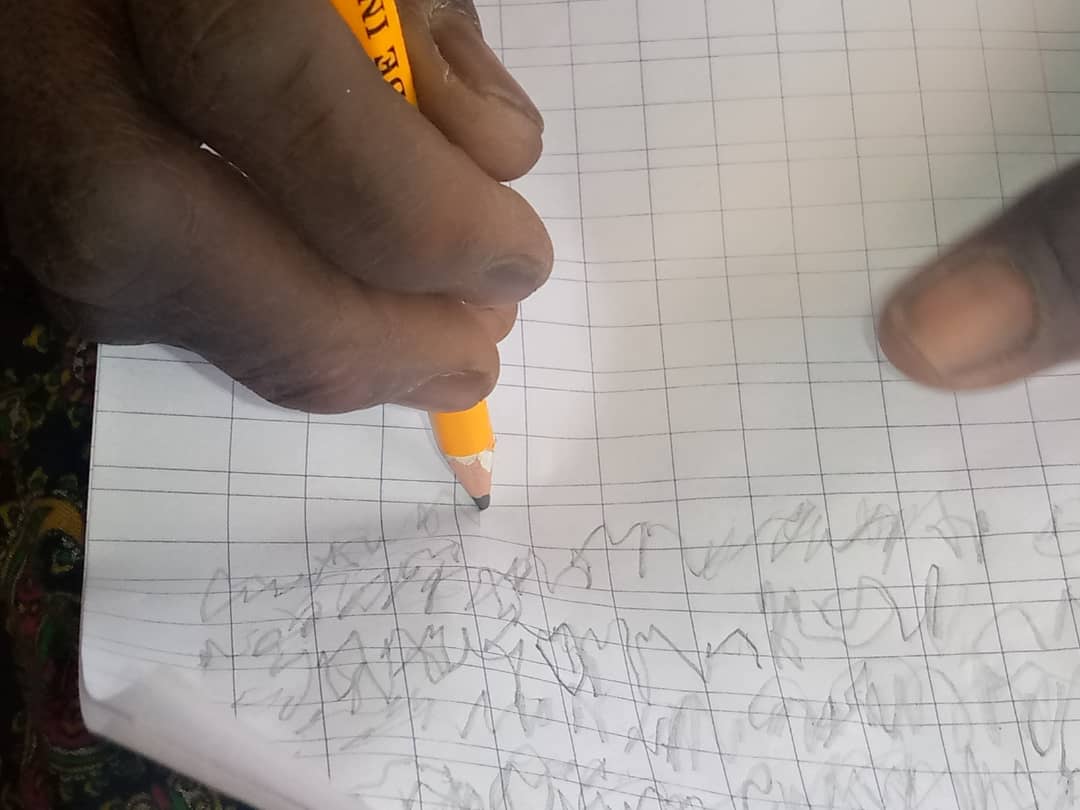
10 new literacy classes for 300 women in Mali have started for 2022! The classes begin with a pre-test so we can see how much the students progress. Update: Our Women's Literacy Program is going well, with the continuation session in progress after a break for the busy farming season. Although the students are still working hard harvesting their crops, they are actively attending classes. Their commitment to prioritizing learning literacy and numeracy skills, even while addressing an urgent food crisis, is evidence of how important this education is to them and what a difference it is making in their lives.
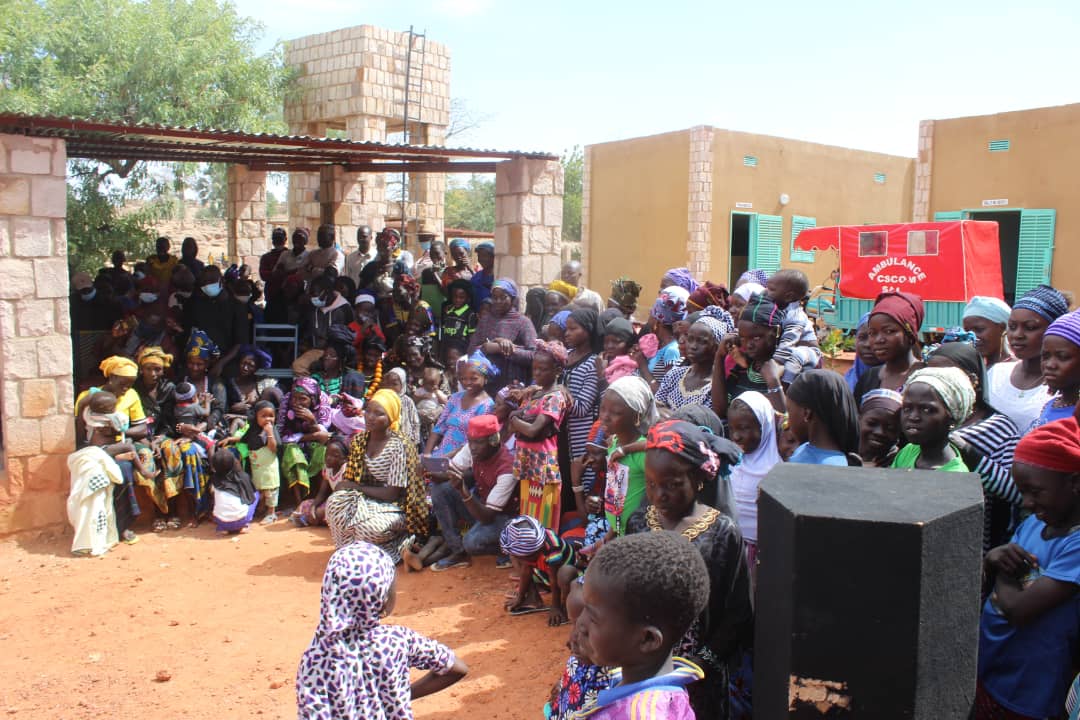
The Sal Health Center is officially open! An official ceremony was held to open the center with all of the staff, officials, village representatives, health center committee, etc. The Prefect of Bandiagara District gave a speech thanking the Foundation for making possible the realization of this project despite the crises of Covid-19 and insecurity in the region. He pointed out how rare it is to see a complete health center built, equipped, and supplied at one time, especially involving inspection from the rural engineering service. They now have a health center close to home where they can access medical care, and also an ambulance to take them to the hospital in case they need higher levels of care. Update: A Covid-19 vaccination campaign for children, pregnant mothers, and nursing mothers was held at the Health Center. This was the first time that children had an opportunity to get vaccinated.
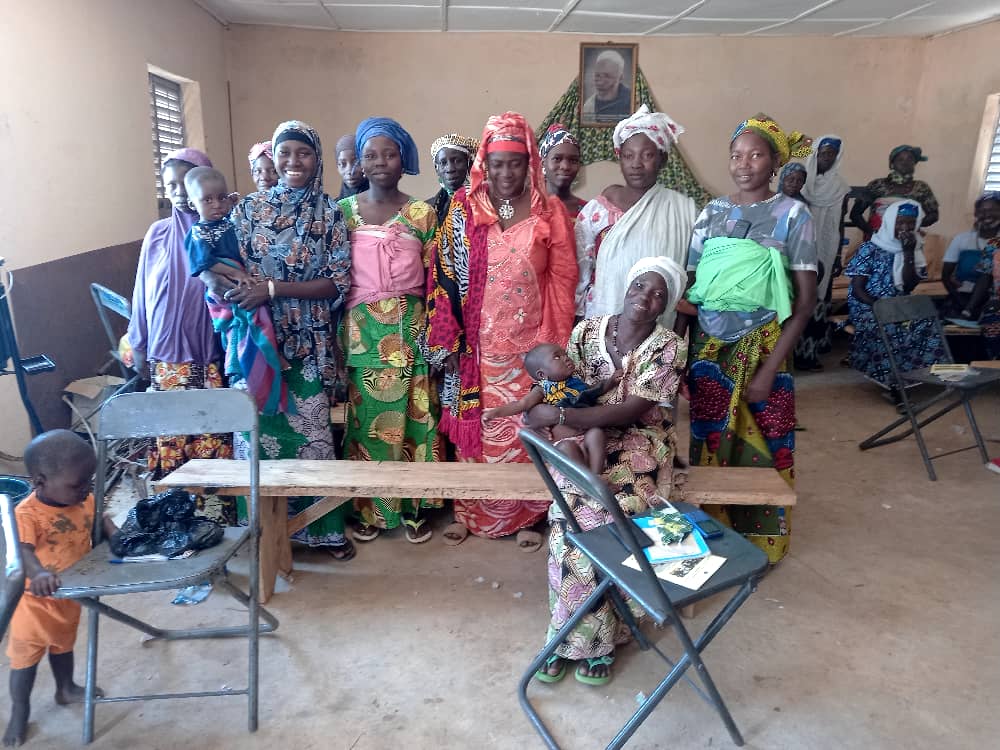
Our women's leadership workshops in Mali have kicked off for this year, with the first one in Mory. Women leaders who participated in the literacy classes last year are now learning how to form and lead women's associations and sharing their experiences getting involved in township elections and speaking up in their villages. The third women's leadership workshop was successfully completed in Kansongo. Women leaders learned how to form and lead women's associations, while also sharing their experiences with local decision-making and practicing their public speaking skills.
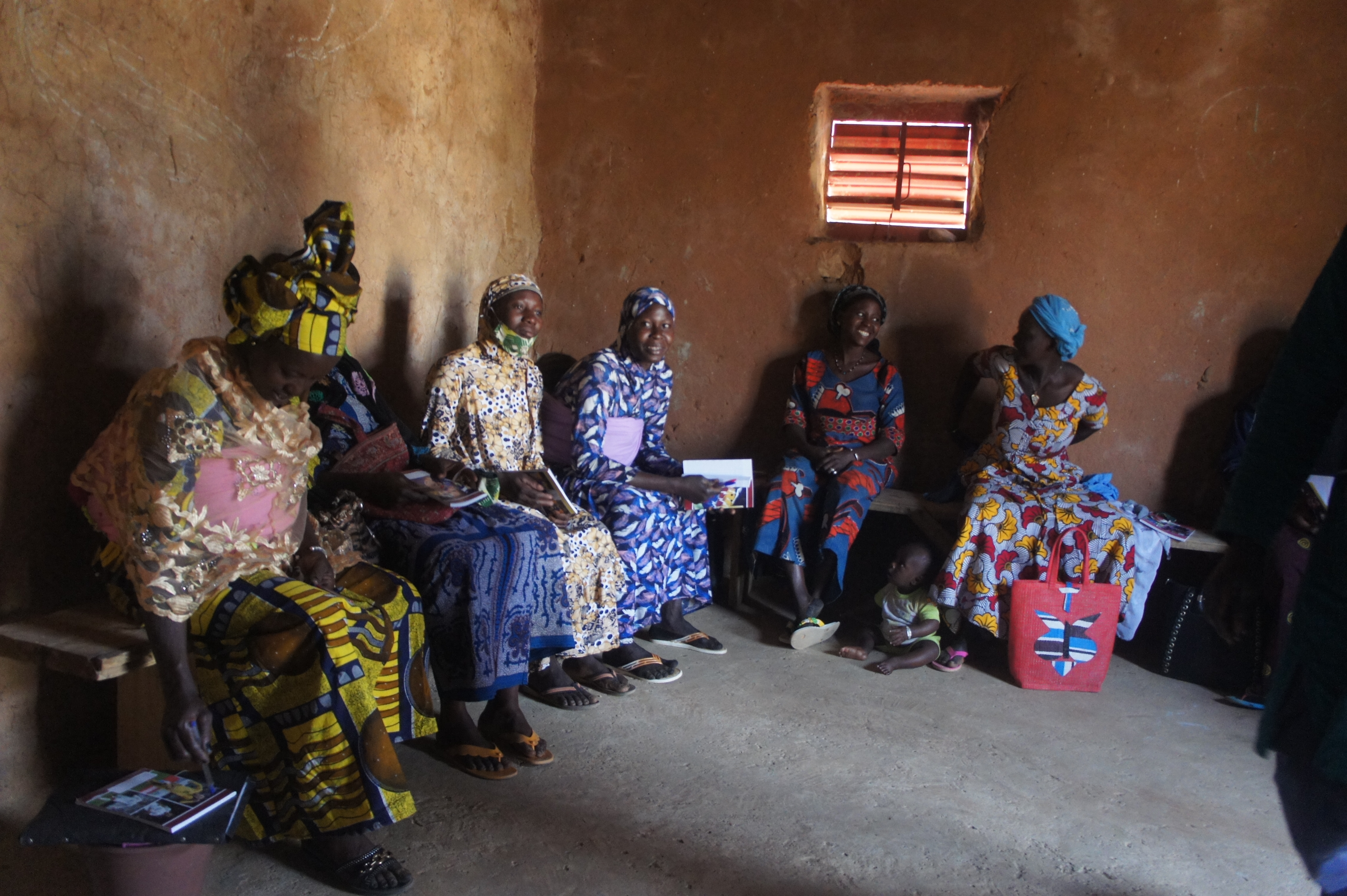
We held a training session for new literacy instructors with 11 participants who were among the best literacy students in past years. They will now be ready to take over if any of the current instructors become unavailable.
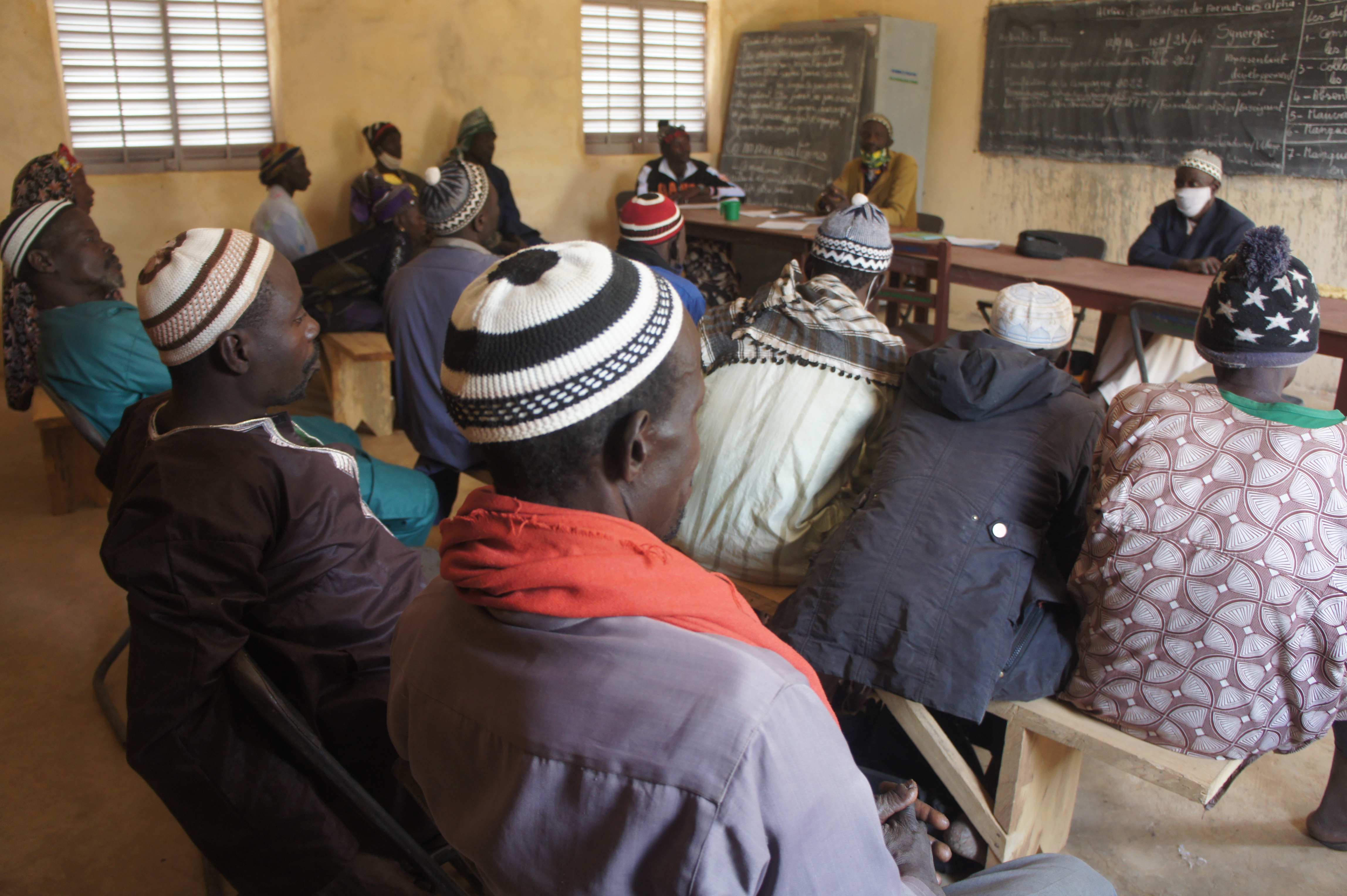
The Olouguelemo Environmental Association held its annual assembly and shared results from each village's efforts throughout 2021. They have built more than 18,600 meters worth of stone contour lines to prevent erosion and retain water in the soil. They have practiced assisted natural regeneration on 7,479 trees. They have made 95 improved cookstoves and built 203 houses. They have measured 2,725 acres of forests they have protected (and they still need to measure a few more protected areas). Congratulations to all the members of the association on their hard work!
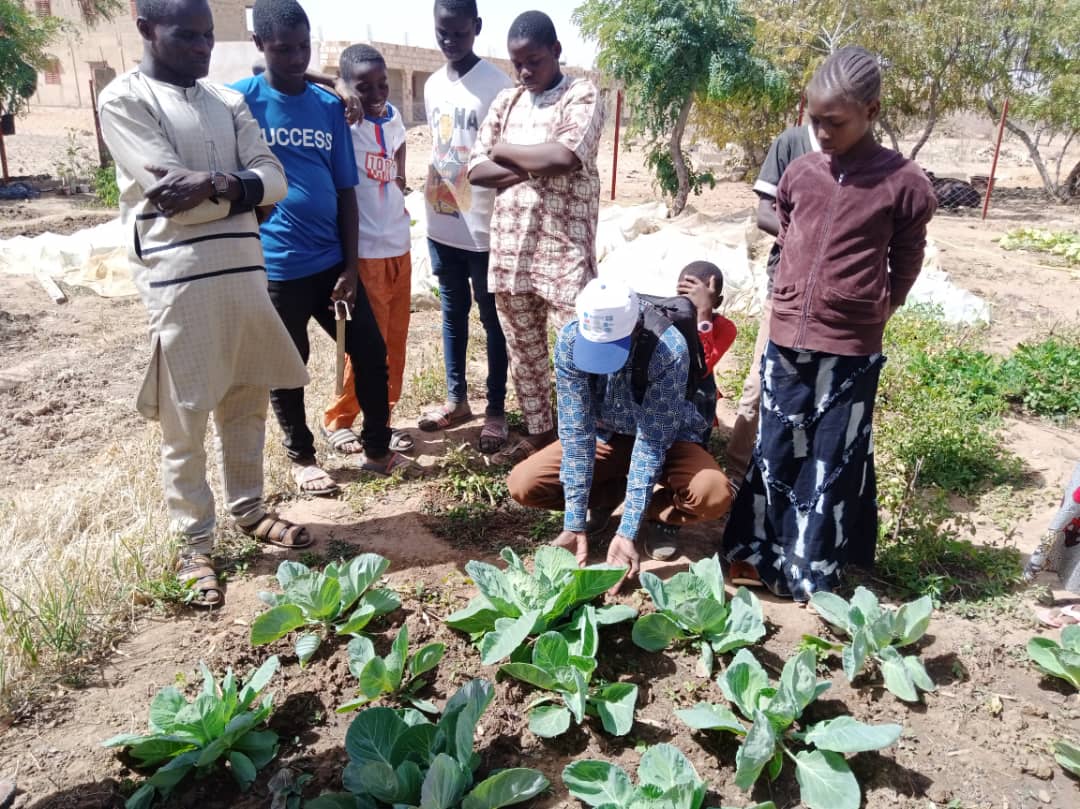
Thanks to a generous donation from Kailua United Methodist Church, a school garden was created at the Amayowo school in Bandiagara, Mali. Students, teachers, and parent representatives have participated in a training session to learn about gardening and planted vegetables and fruit trees. They were able to build a fence and receive gardening tools.
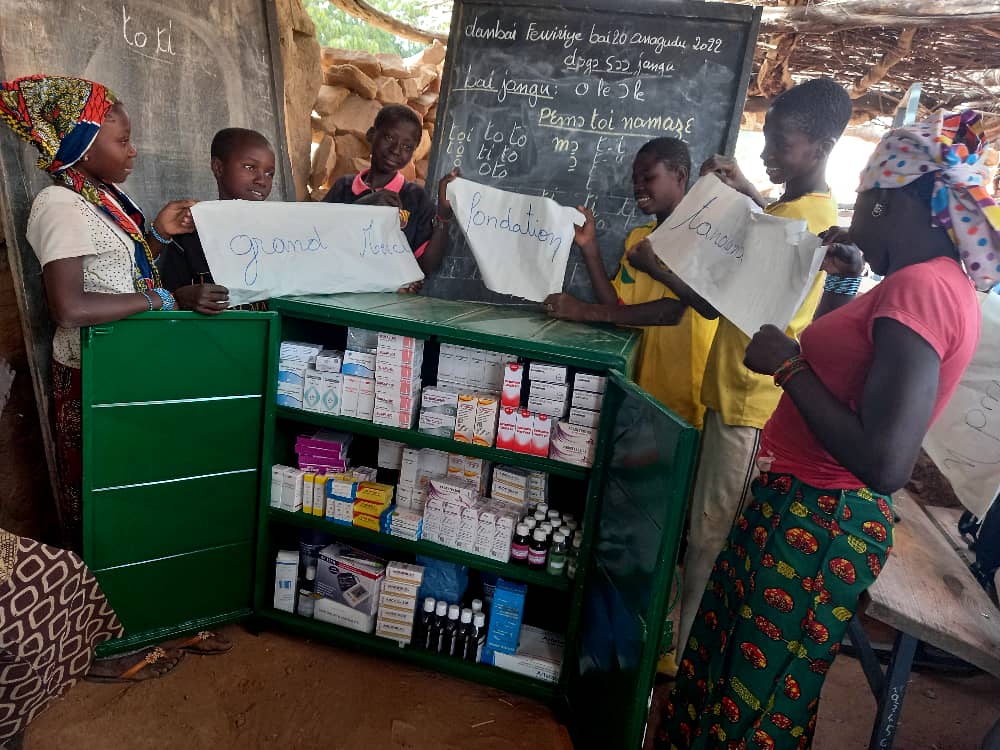
The schools in Andjine and Tegou have received school first aid and pharmacy supplies, thanks to a grant from Nick and Edna Weller Charities. They now have the supplies they need to treat minor illnesses and injuries, which is very important since they are located far away from the nearest health centers. Harouna Yalcouyé, Director of the Tegou school, has written to say that the first aid station provided by Tandana has resulted in "a lot of improvement in the studying and living conditions of the students and also the teachers." The station can accommodate all sick or injured students at the school, so learning is not interrupted as in the past, when teachers had to seek out help.
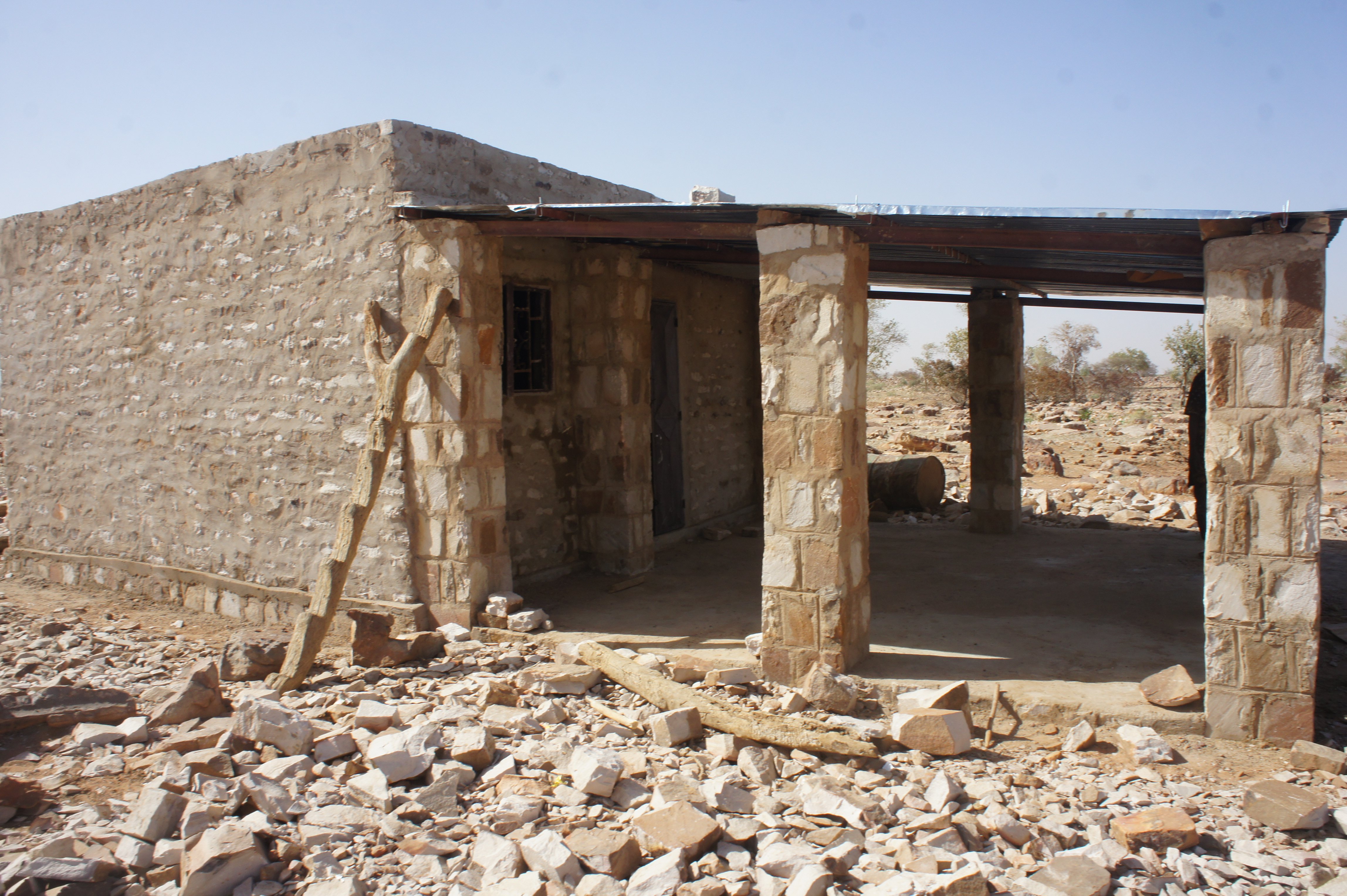
The storehouse for the new cotton and indigo bank in Dassi was completed. The leadership committee for this new bank was formed, participated in a training session, and received their supplies. They will manage a stock of both cotton and indigo dyeing materials using a revolving fund so that these materials are always available to local women who use them to generate income. Thanks to the U.S. Embassy Mali for supporting this project.
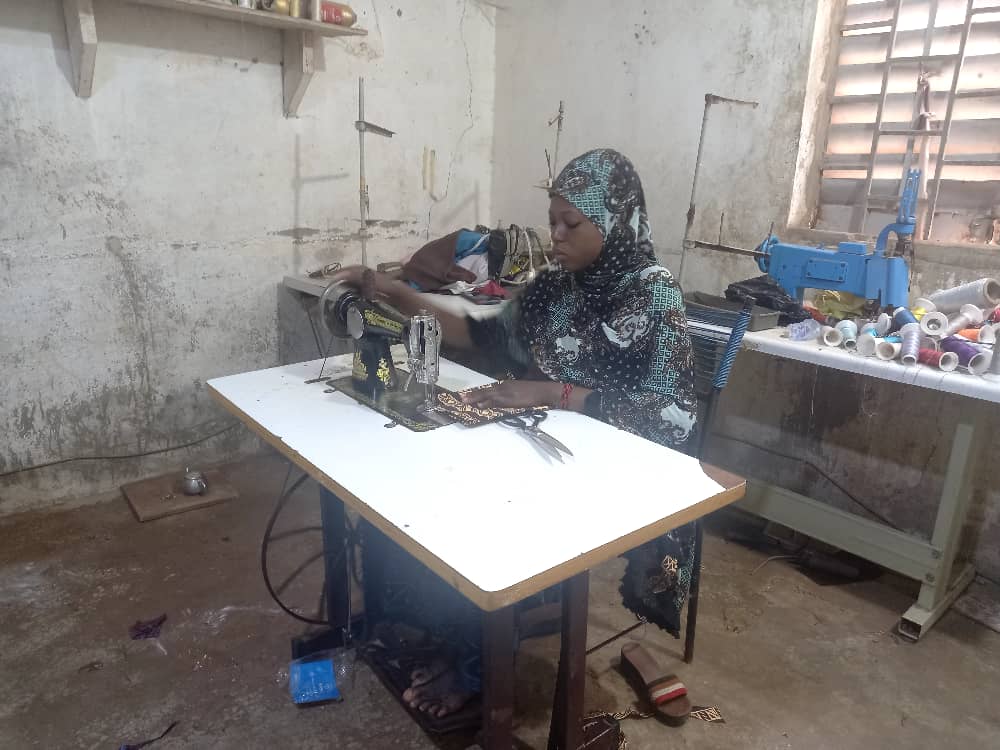
This is Fatoumata Bamia, one of the Dr. Ash B. Varma, M.D. scholars in Mali who is studying to be a tailor. She is already learning how to make some models of clothing. Update: Congratulations to Fatoumata Bamia, the first Dr. Ash B. Varma, M.D. scholar to graduate from her program! She completed her training to be a professional tailor, and also received the tools and supplies she needs to set up her own sewing workshop in her home village of Nounou. She is now able to offer an important service right in her village. Having participated in the training workshop on making menstrual kits, she will be able to make and sell them in her village--a first for Nounou! To see a video of Fatoumata's teacher showing off her creations, Click  here.
here.
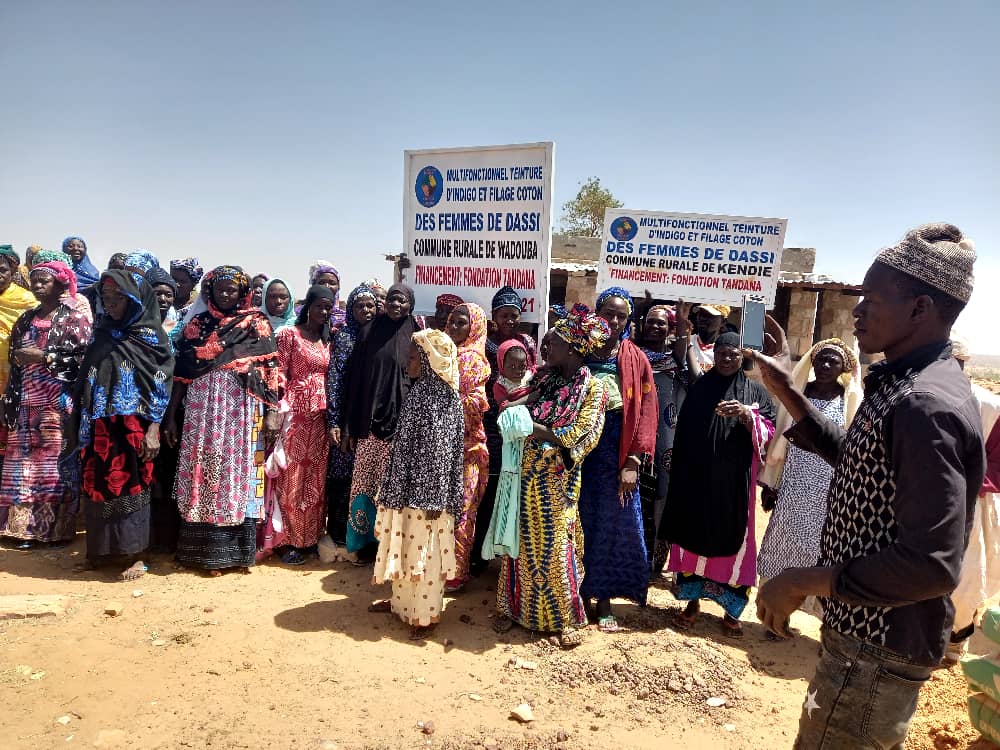
In honor of International Women's Day, the village of Dassi organized an inauguration ceremony for the new cotton and indigo bank. There were many women present, as well as the village and township leaders. They had a ribbon-cutting ceremony and the bank management committee received their revolving fund.
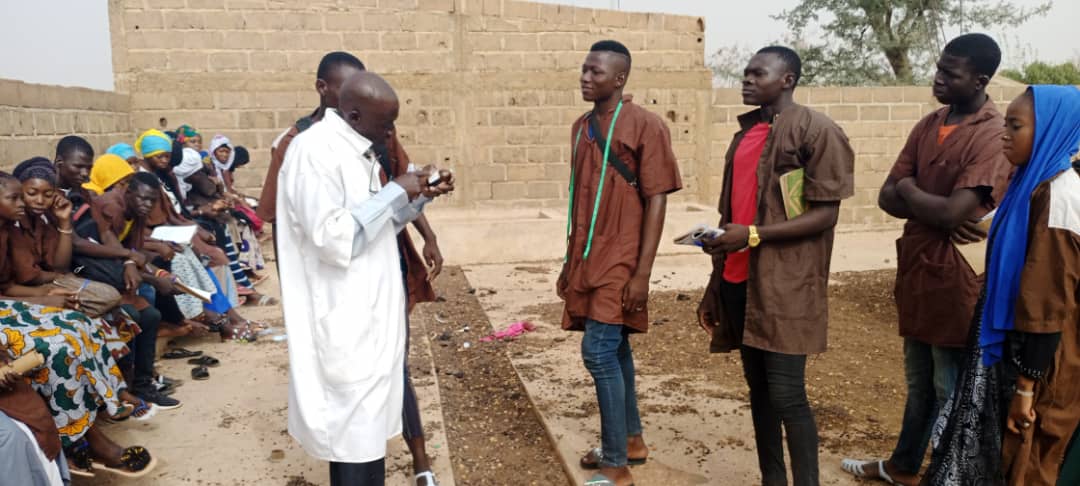
The agroforestry students from the Dr. Ash B. Varma M.D. Scholarship participated in a practical training session to learn several methods of estimating the weight of livestock. They are also going to do some community service work with the environmental association Olouguelemo. The students are excited about learning practical skills that will enable them to help their communities.
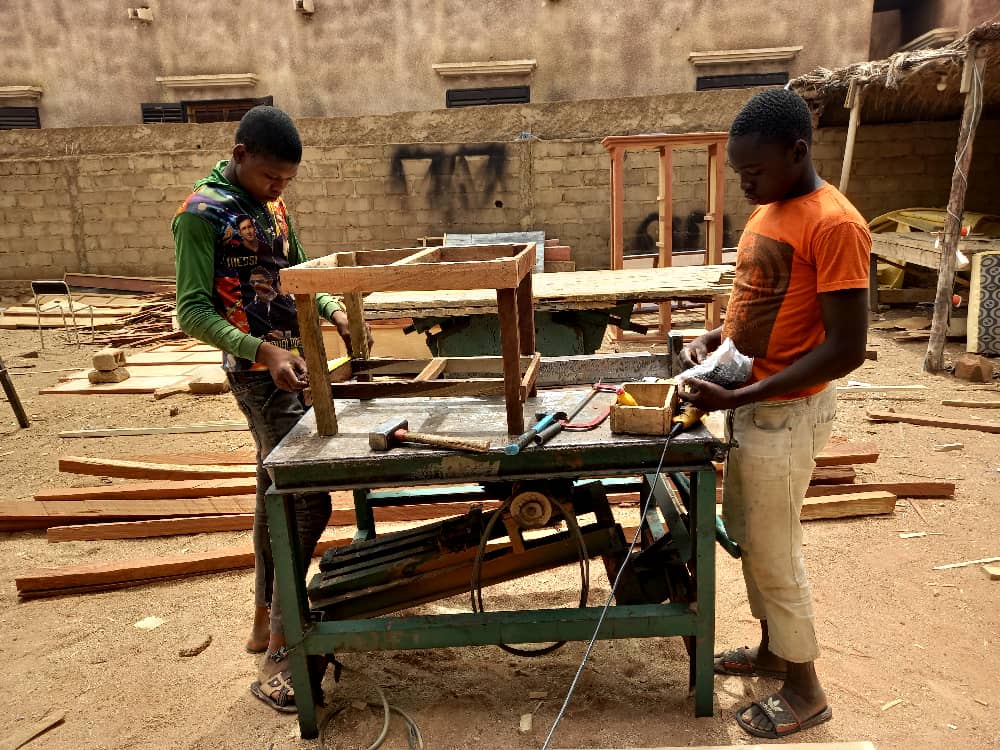
The Kansongo carpenters discussed their priority needs and decided that their biggest challenge was the fact that the trained carpenters kept moving away from the village to seek work in the cities. They decided to hire 2 young men as long-term managers of the workshop and to send them to Bandiagara for training. After their training, they will be able to earn income by managing the workshop. They are currently in Bandiagara participating in a training session.
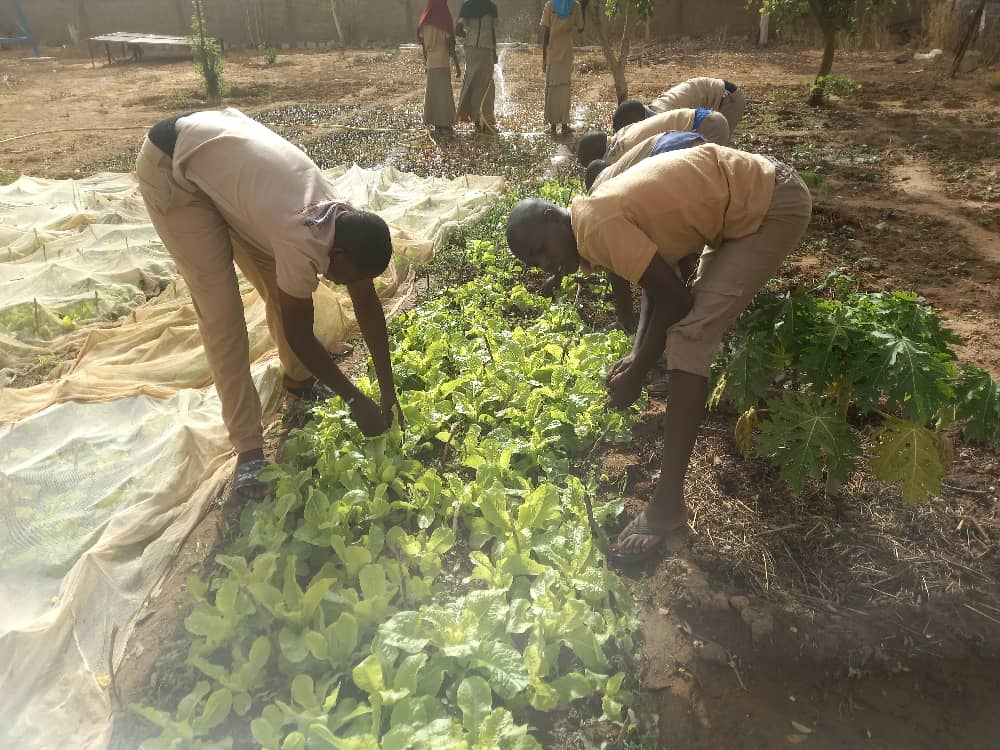
The school garden at the Amayowo school in Bandiagara, Mali is doing well! The students are enjoying working in the garden, and it is growing nice produce.
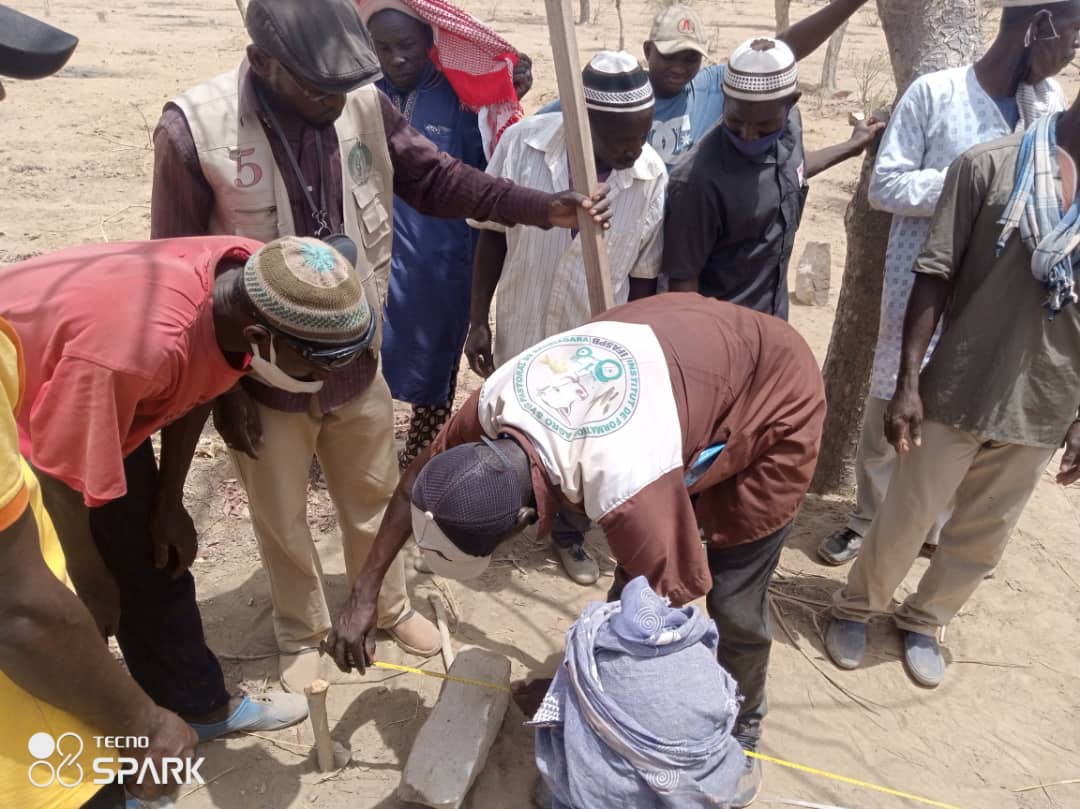
Representatives of the 8 new member villages of the Olouguelemo Environmental Association participated in a training session to learn how to build stone contour lines and other erosion control features. This work makes a tremendous difference in the amount of millet that can be harvested, contributing to food security. It is especially urgent this year since there is a food crisis in the region. Families need to harvest as much as possible after the coming farming season, and this erosion control work will help. Three of Tandana's scholarship students who are studying agroforestry also participated in the training session.

At the Sal Health Center, there was a vaccination campaign for children under 6 years of age. The vaccination team from the hospital came and met parents who had brought their children to the Center. The community health committee provided transportation, using the ambulance to transport pregnant mothers who wanted prenatal checkups, as well as those who were bringing their babies for vaccination.

School gardens made possible by Tandana supporters are flourishing in Tegou and Andjine! Students have been harvesting various vegetables from the gardens, especially Dah leaves that are used to make a sauce as well as shallots.

Five new women's associations won the recent business plan contest and received startup funding for their initiatives. They are starting businesses in market gardening, indigo dyeing, and transforming cotton into cloth. To the left is a photo from the ceremony where they were given their startup funds.
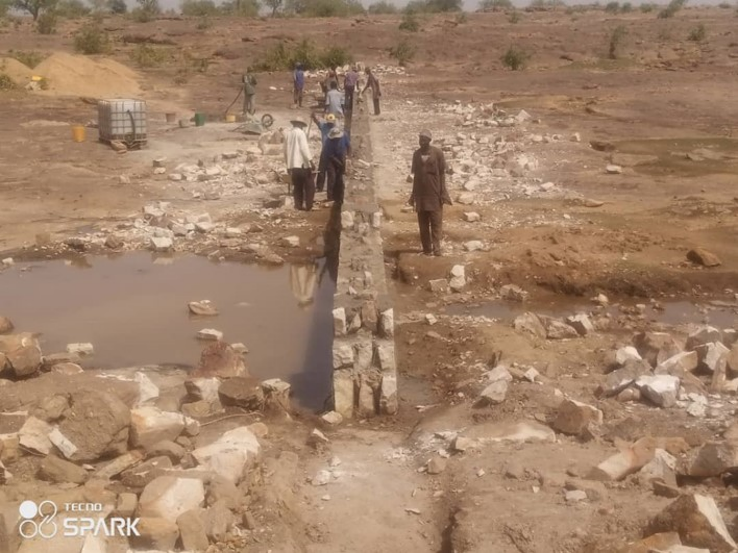
After Tandana staff, the contractor, and village leaders met to mark out the exact location of the stone dam, residents quickly got to work, breaking the stones to be used in the construction. The reservoir in Moe-Leye will conserve water from the brief rainy season (which starts in June) for gardening and livestock in the dry season.

The members of the Dassi cotton and indigo bank participated in an additional training session on dyeing safety when using chemical dyes, in addition to natural indigo dyes. They also received additional personal protective equipment.
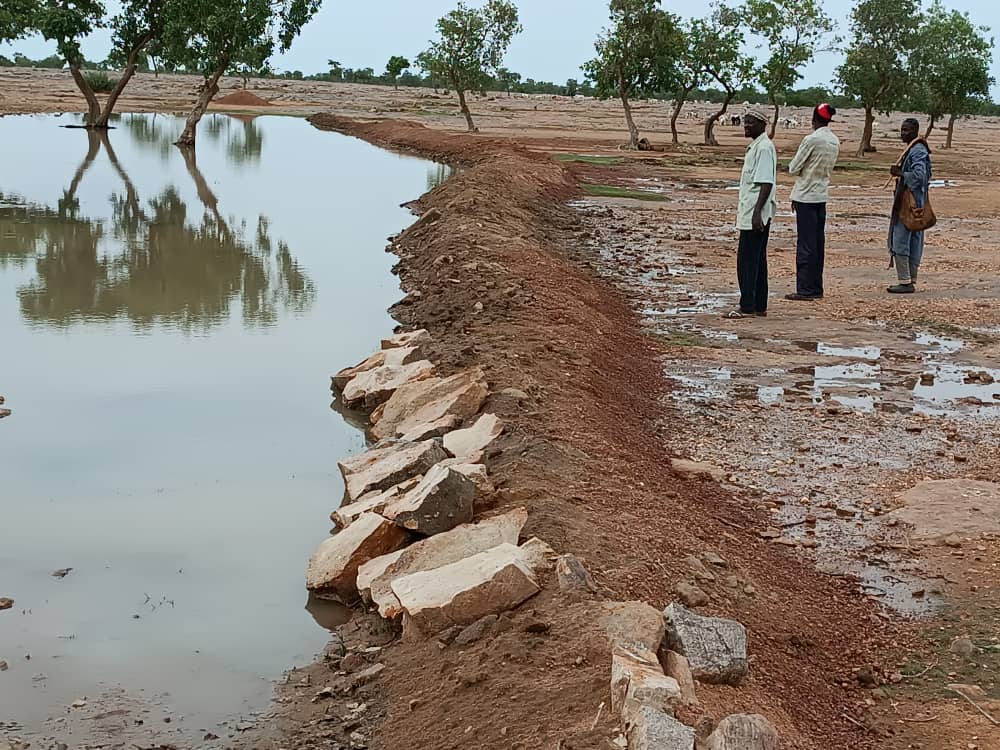
Between global grain market disruptions, violence that has limited food production in Mali, and the continuing effects of climate change, our partners in central Mali can't even find millet to buy in the market. There is rice for purchase at very high prices, but even the staple millet is not available. In the midst of the demanding farming season, more calories are needed for cultivating the fields. We have launched an emergency fundraising campaign, including requests to funding organizations that focus on food security, to provide much needed support for our partners.
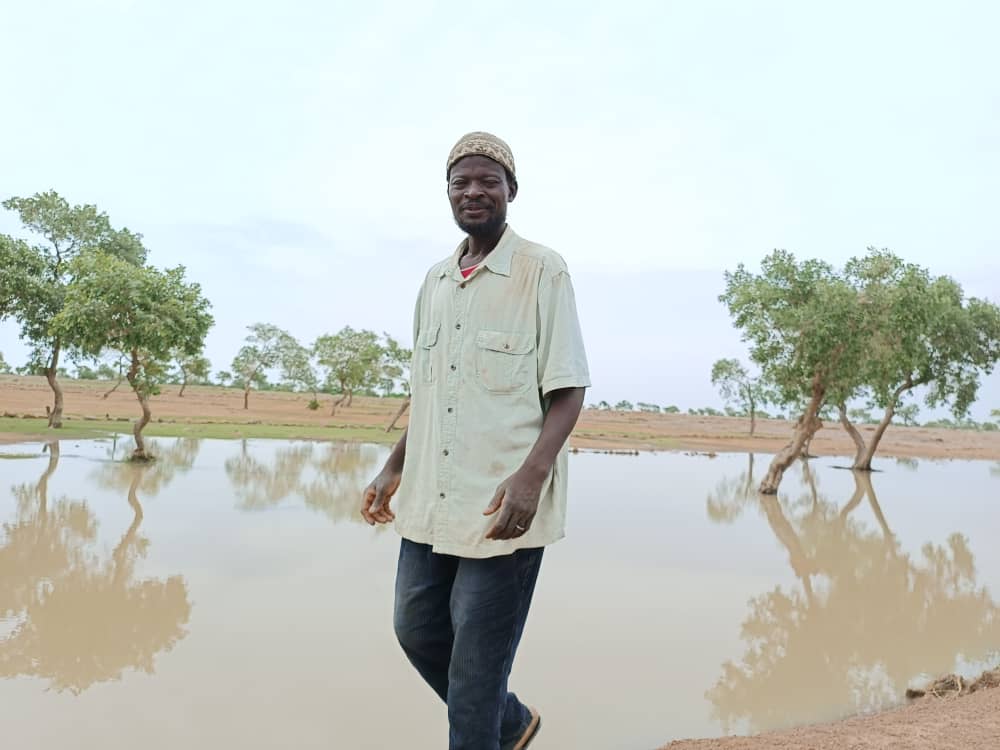
Residents of 10 villages have been working on expanding 3 ponds to conserve water from the rainy season and use it for gardening and livestock during the dry season. Because of the urgent food crisis, we have provided tools and food in exchange for residents working to expand the ponds by hand. “Now that our partners have given us food to eat, there is nothing to stop us from continuing to expand many ponds,” said Daifourou Kassogué, a herder who is working on one of the ponds. “It’s all the people of the village who have benefited from this action.”
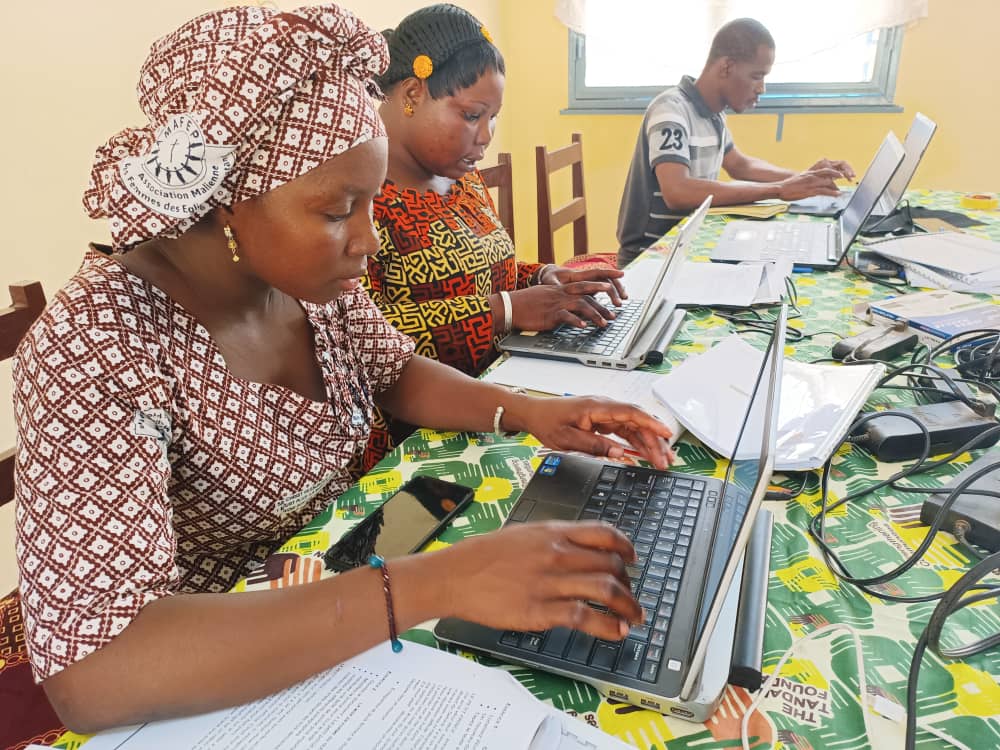
Members of Tandana's staff team in Mali, as well as leaders of two partner organizations, participated in a training program to improve their computer skills and also learn about reporting, collecting feedback from community members, and engaging in professional teamwork.

The Olouguelemo Association's new 2022 reforestation campaign has been launched! This photo is from the village of Kansongo, with local representatives present at the launch ceremony, and their work underway.
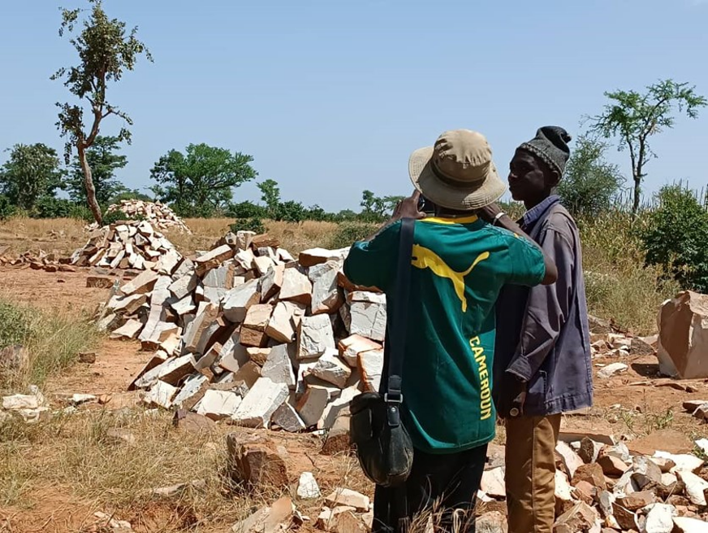
A meeting was held to make initial preparations and begin building the school in Dani, Mali. Tandana staff, the contractor, the inspector, village leaders, the parents' association, representatives of the youth and women, and the mayor of the township all gathered to make sure everyone agrees about how the school will be built, how work groups will be organized, and who will be in charge of storing the materials. Ground has been broken, and construction has started!

A ceremony took place to deliver school supplies and food to the children in the displaced student program. Donor support has been essential in the students being able to attend school. To the left, you can see a photo from the ceremony.
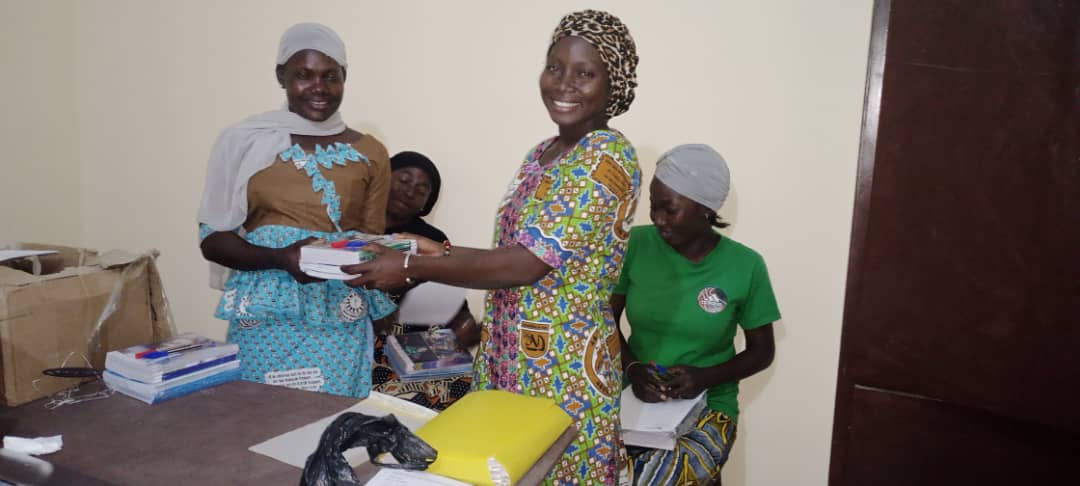
Twenty new scholars have entered the Dr. Ash B. Varma M.D. Scholarship Program. The photo to the right shows them receiving their school supplies as they begin the journey of pursuing their professional dreams.
2021
Mali
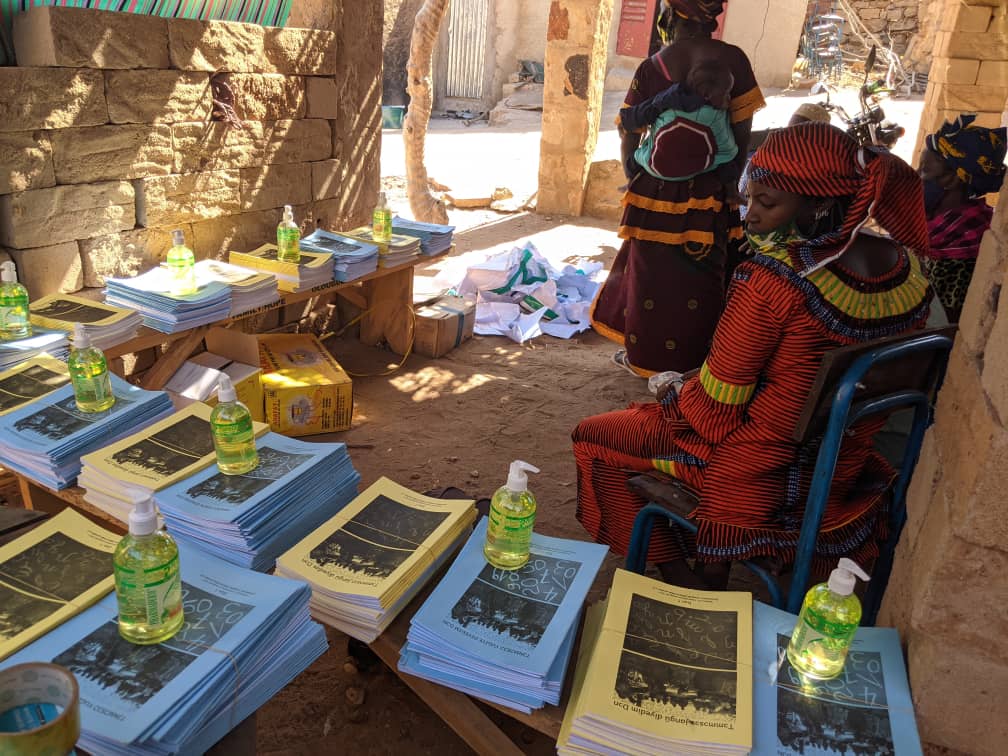
The new literacy classes for 2021 have started! The chalkboards and furniture were made and delivered by the Kansongo carpenters. The 10 new literacy classes started in January with a total of 311 students. Each group meets for about four hours each afternoon, five days a week. They are all using covid precautions. Everyone is committed to success, and the classes are going well. Out of 311 students in the classes, 300 took the test (the other 11 were absent for various reasons). Out of the 300 who took the test, 240 earned passing scores. That is 80% which means that the goal for the entire year has already been reached. After a break for the agricultural season, the classes have started up again for 3 more months of instruction to reinforce and continue building the students' skills.
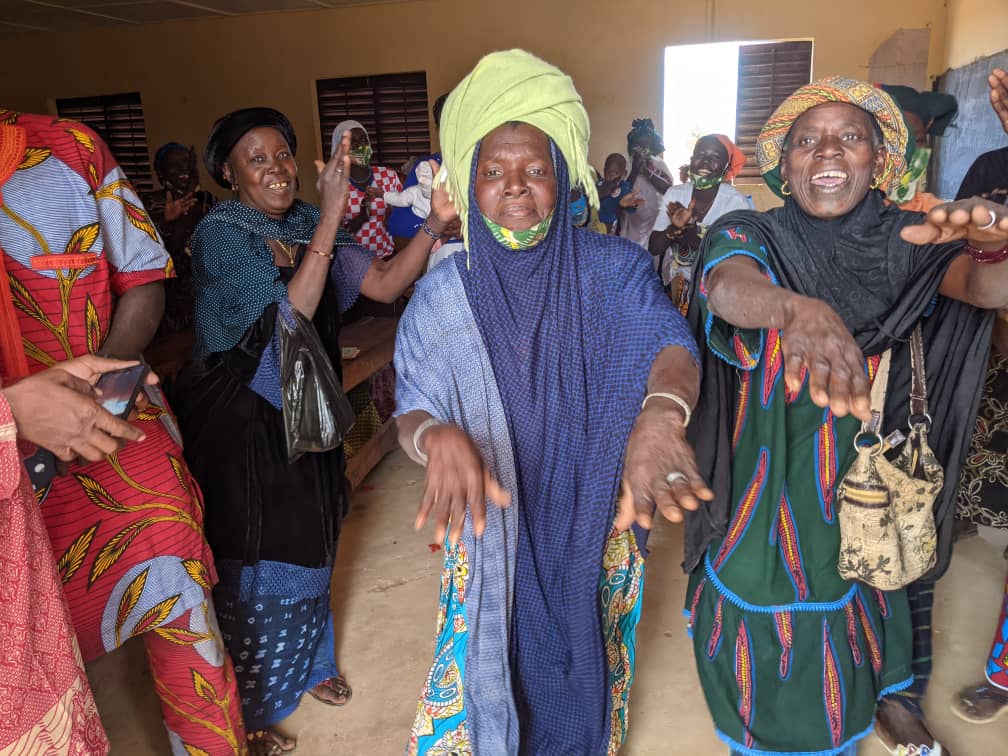
The first women's leadership workshop of 2021 was completed in Mali! 100 women leaders, 80 of whom were literacy students in 2020, participated in a 10-day workshop, learning about how to form and lead women's associations, participate in local decision-making, and make business plans. They also shared their personal experiences as women leaders.
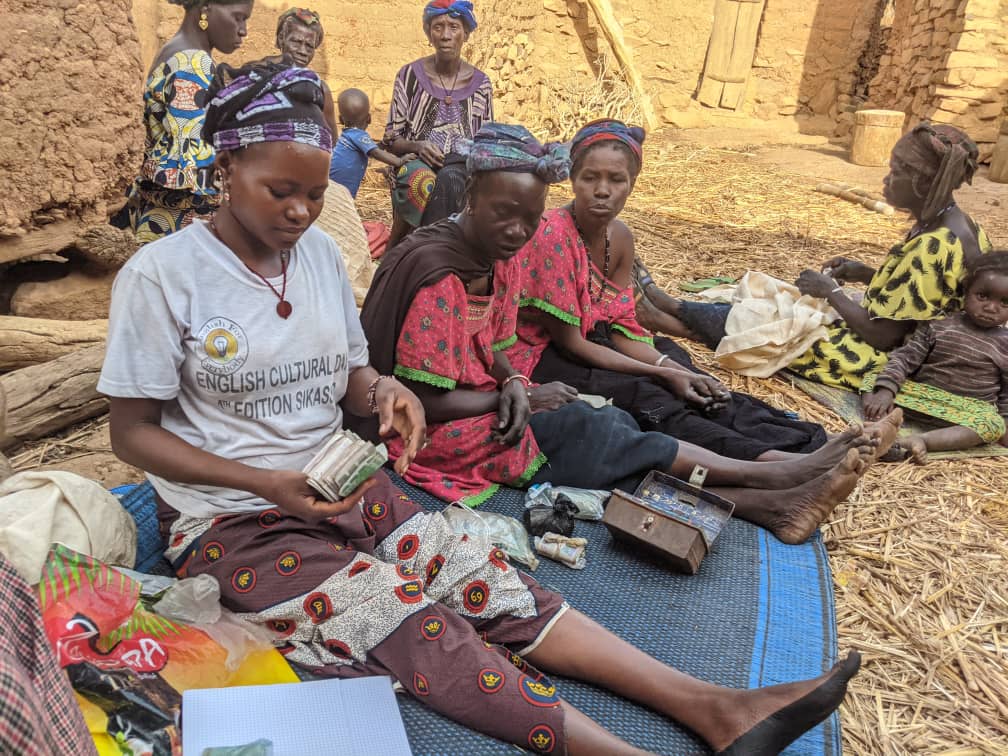
The women's association of Goundoly Djeninke had a very successful year with their indigo dyeing business. They began with a startup fund of 750,000 cfa, which they received as winners of the business plan contest in 2018. Since then, they have expanded their fund to 1,400,000 cfa! In a general assembly, they decided to use some of the interest they had generated to buy koro taru, which are culturally significant musical instruments and decorations. These are used as shakers to accompany drums during dances and also as adornments for all kinds of ceremonies. Update: The village of Goundoly Djeninke is building a storehouse and meeting place for the women's association's indigo dyeing business. The association won a business plan contest and received startup funding. They have been working hard expanding their business, and now they will have a safe place to store all of their dyeing supplies and also to meet and work together while sharing ideas with each other.
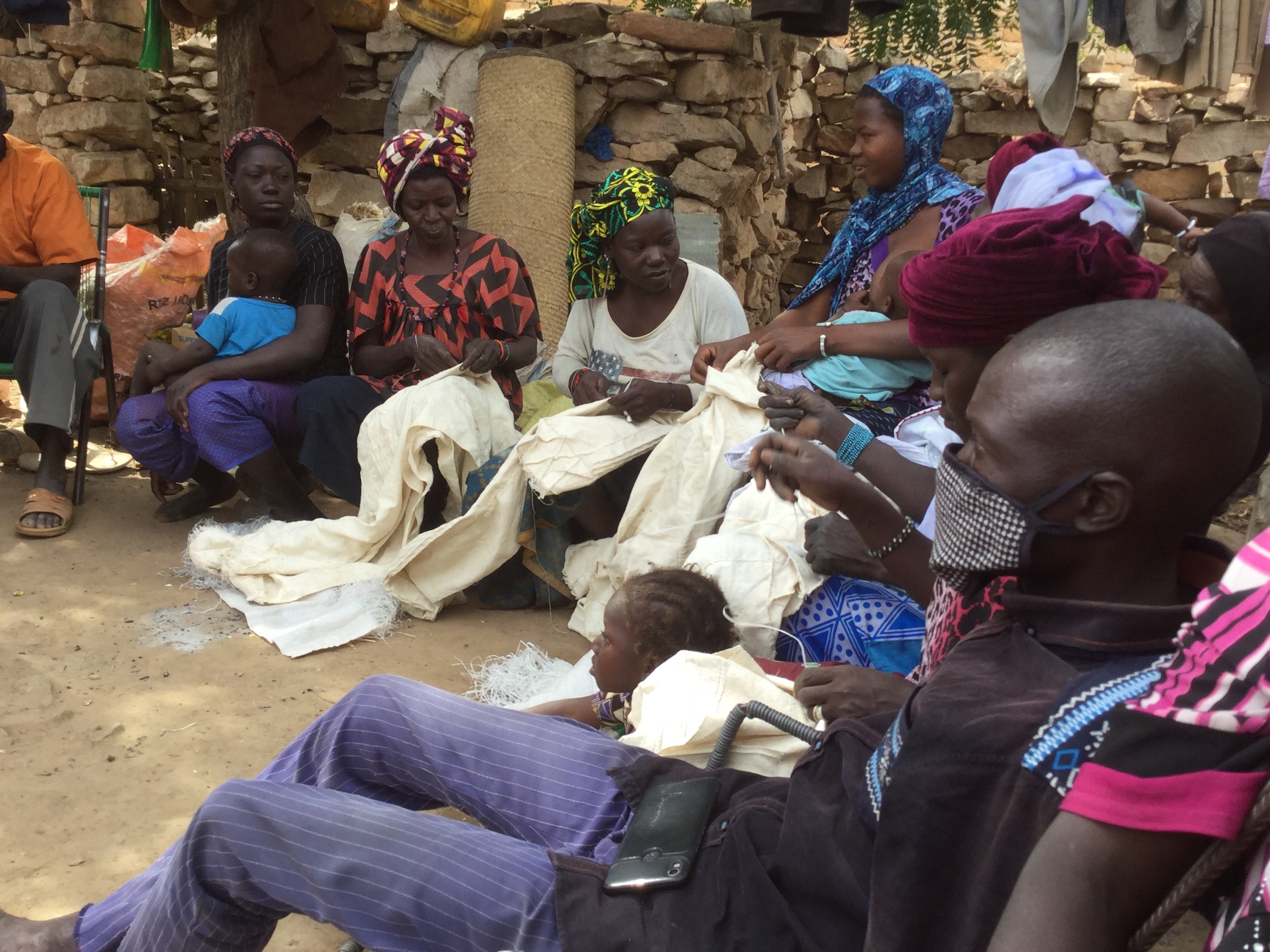
The five women's associations who won the business plan contest in 2020 have shared their reports on their work since beginning their businesses. The groups had between 30 and 45 members, and their proposed businesses were market gardening, indigo dyeing, and raising sheep. Each group has seen a significant increase in funds. The market gardening group has increased their funds by 113,500 cfa; the indigo dyers have increased their funds by 424,000 cfa; and the three sheep-raising groups have increased their funds by 150,000 cfa.

Due to its tremendous growth and popularity, the Ondogou Indigo Bank is being divided into three sub-banks, one for each village of Kondiougou, Guinekandah, and Indell. Tandana staff just conducted a training session for the leaders of each sub-bank so they are clear on their management responsibilities, and they divided their fund among the three groups. The villages of Indell and Guinekandah are in the process of breaking stones for the construction of a new storehouse in each village for their indigo banks. Members are motivated by their success and are excited to make these three new banks just as successful as the Ondogou Bank.
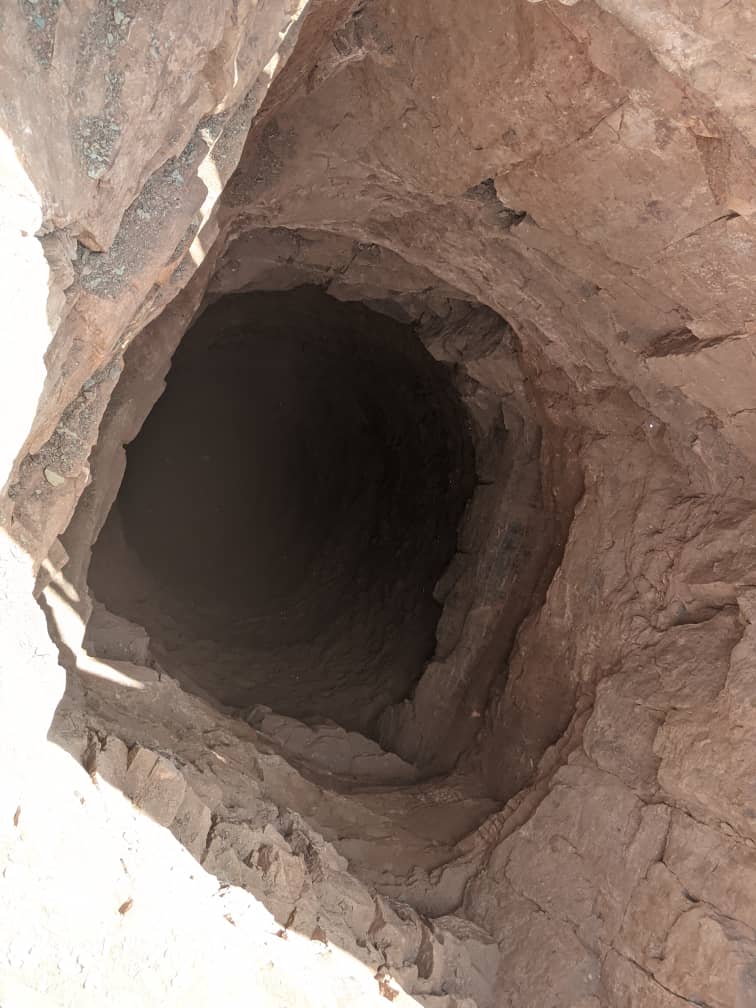
Residents of Wana have brought all of the sand, gravel, and stones needed for the construction of a well. The contractor was delayed due to a death in his family, but he has now been introduced to the village and is ready to start the drilling. Update: The Wana Well is now 13m deep. The community is looking forward to having reliable access to water. Update: The Wana Well project is nearing completion. The Management Committee was elected and their training took place on June 22-23. Update: The Wana well is complete!
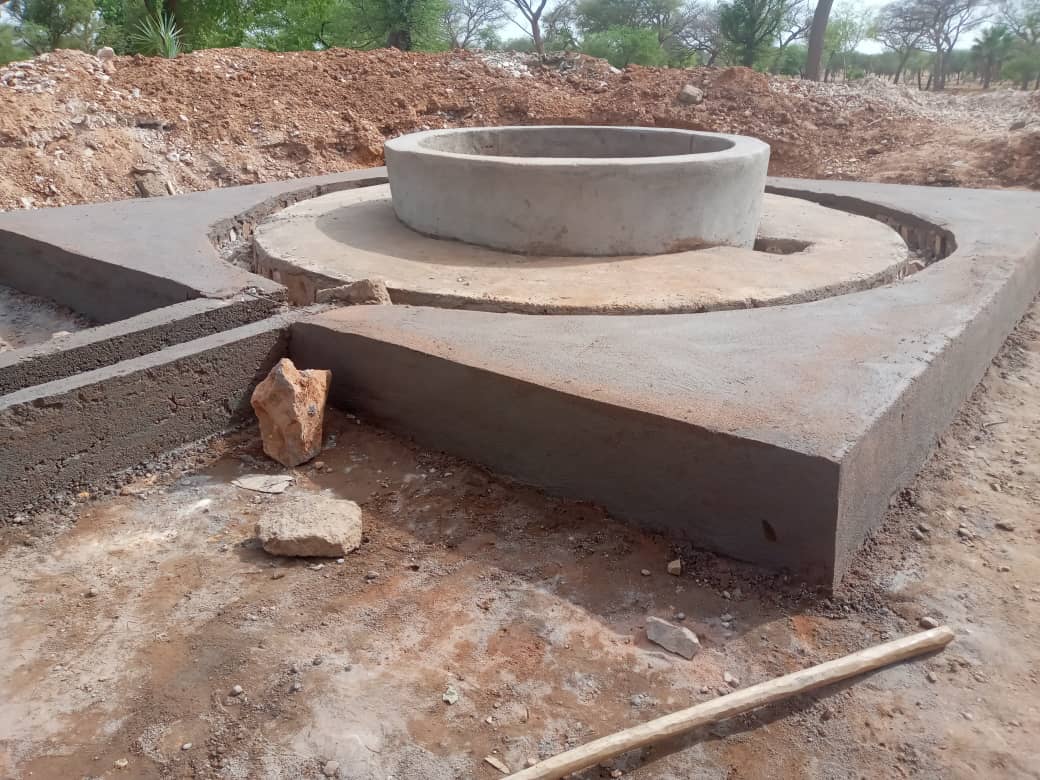
Residents of Sandiam have brought the sand and gravel needed for the construction of a well. The contractor was delayed due to a death in his family, but now he has been introduced in the village and will soon begin drilling. Residents of Sandiam have to go a long way to another village to get water so they are really excited about having the new well soon. Update: The Sandiam Well is now 18m deep. They have hit a very hard rock layer, which means slower going, but the whole team is persistent and continuing to make progress. Update: The well in Sandiam is nearly complete! They have finished the cement lining and built the raised opening and watering basin for livestock. Update: The Sandiam well is complete!

The Kansongho Garden had a successful recent harvest. The red fruits are from the doum palm and the black ones are cashew fruits.
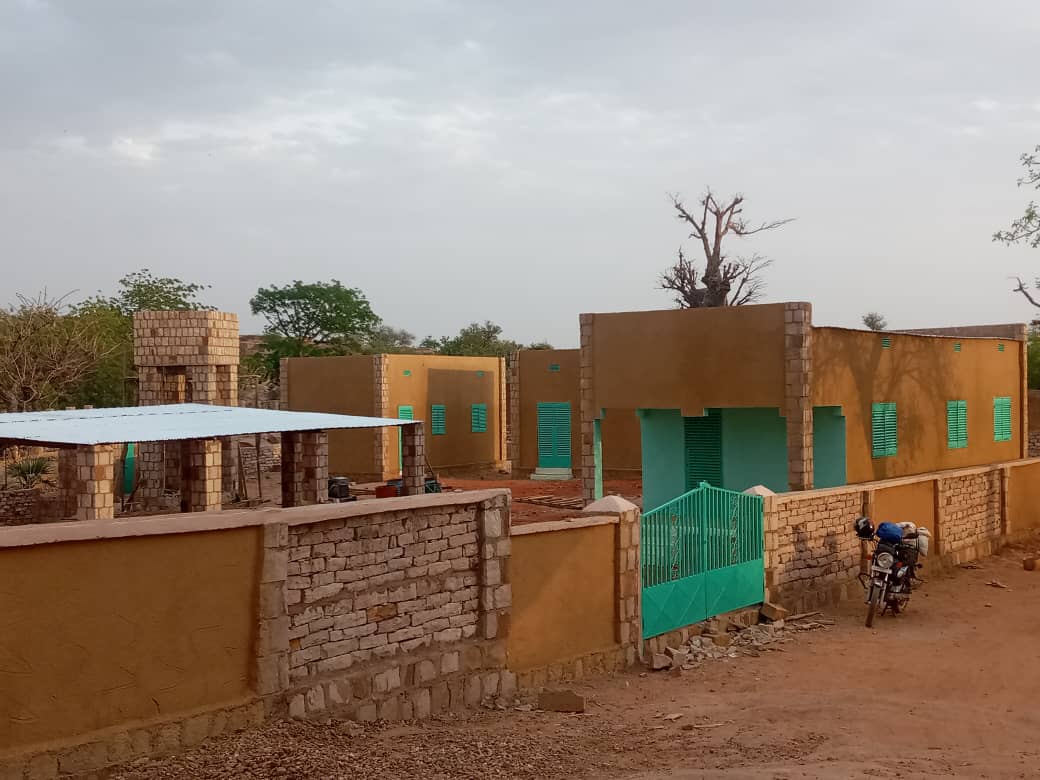
Quite a lot of progress has been made to the Sal Health Center. They brought in rigs to drill a borehole for a well that will be equipped with a solar pump to supply water to the center, they have now started building a water tower, and they are finishing construction on the wall around the whole compound. The ambulance and some of the furniture will be arriving soon, as well. Update: The waiting area is complete, and most recently, they have been working on the water tower and solar panels. Update: The Sal Health Center is complete! After various meetings and inspections this past month, the residents of Sal, finally, held an inauguration ceremony and huge celebration for the new health center! Even young people from Sal who live in Bamako and even further away came back to the villages for this important event. They toured the center, gave speeches, and did performances in the morning, and then continued with a collective dance in the afternoon. Now that the management committee and ambulance drivers have received training, they are excited for the center to starting functioning.

The Olouguelemo Environmental Association now has a GPS unit, and the association's secretary, along with Tandana's Supervisor and Program Manager received training in how to use it. They are using GPS to measure the protected forest areas and record precise locations of boundaries, water sources, and other features. After completing the current survey, they will know the actual area and locations of their protected zones. They also are finding edible wild fruits, which are much more abundant thanks to their forest protection work.
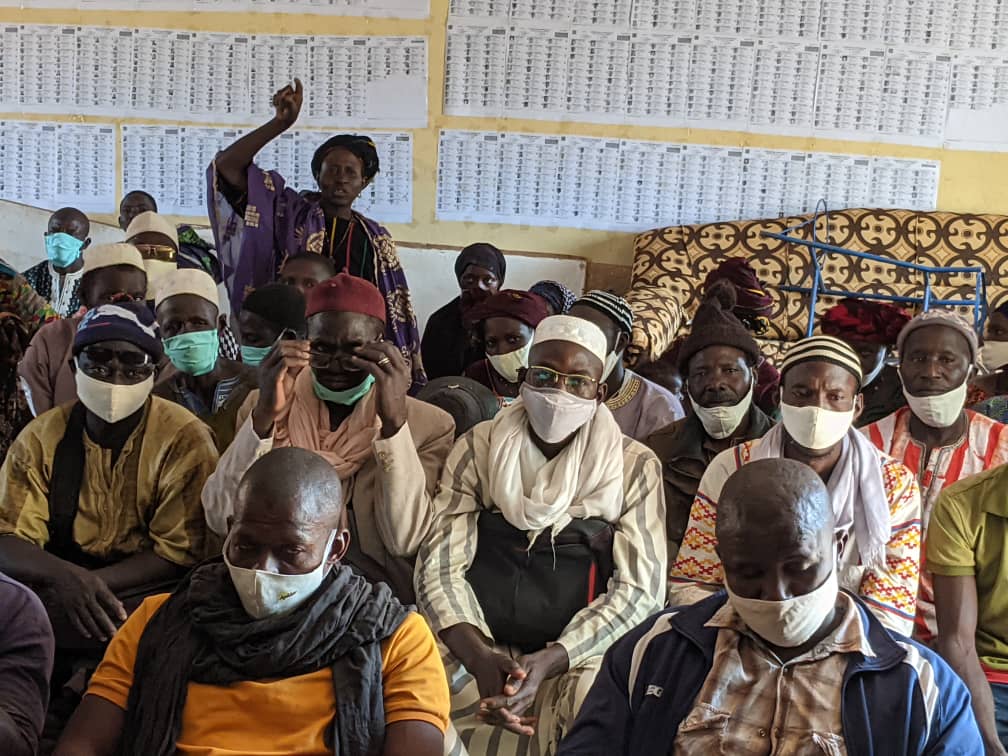
The mayor of Wadouba Township organized a big meeting to discuss the township's development plan for the next five years. In the past, women had not been included in these kinds of meetings, but this year, many of the women's associations that have formed thanks to our Women's Literacy, Leadership, and Enterprise program demanded that their representatives be invited to the meeting. The mayor agreed, and this year, for the first time, many women representing the different associations participated, sharing their ideas and opinions about plans for the Township in the next five years.
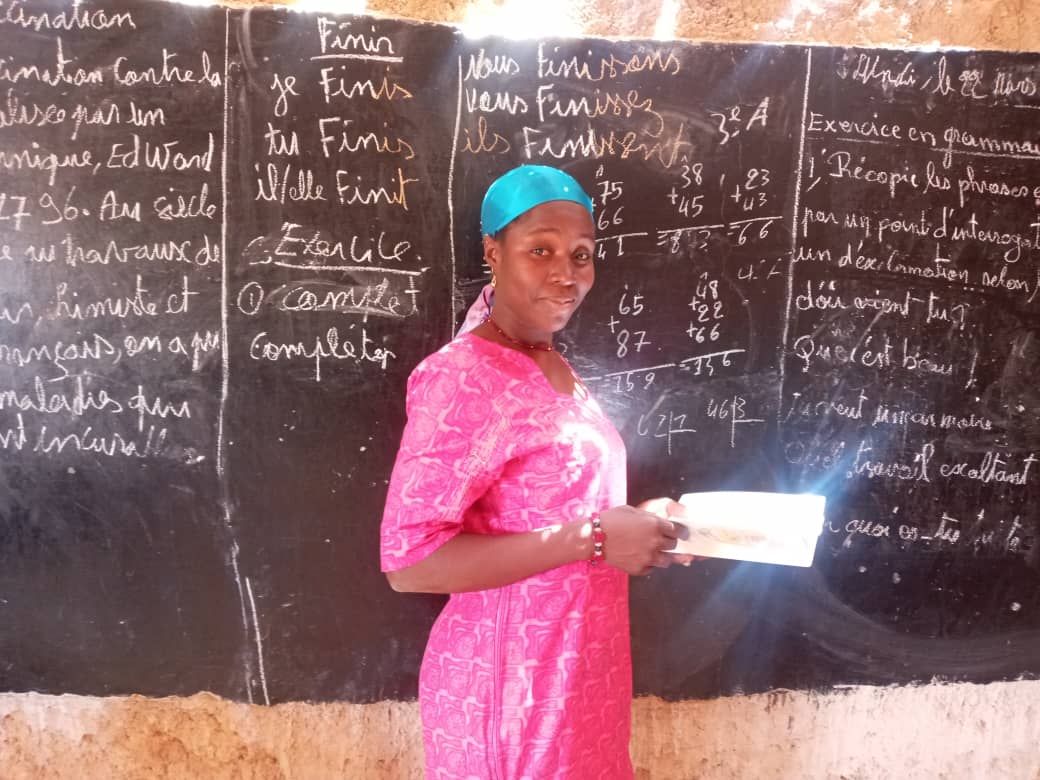
Tandana is supporting a community-based teacher for the school in Andjine. The school only had 3 teachers for 131 students in grades 1 through 6. Salimata Karembe grew up in Andjine, got a certificate in agriculture, and then returned to the village to be with her husband and raise her family. She participated in Tandana's literacy program and women's leadership workshop. She started volunteering at the school to help out, and now she is being paid, half by the community and half by Tandana. She is teaching the 43 students in 3rd and 4th grades. Congratulations to Salimata for great work with the students.
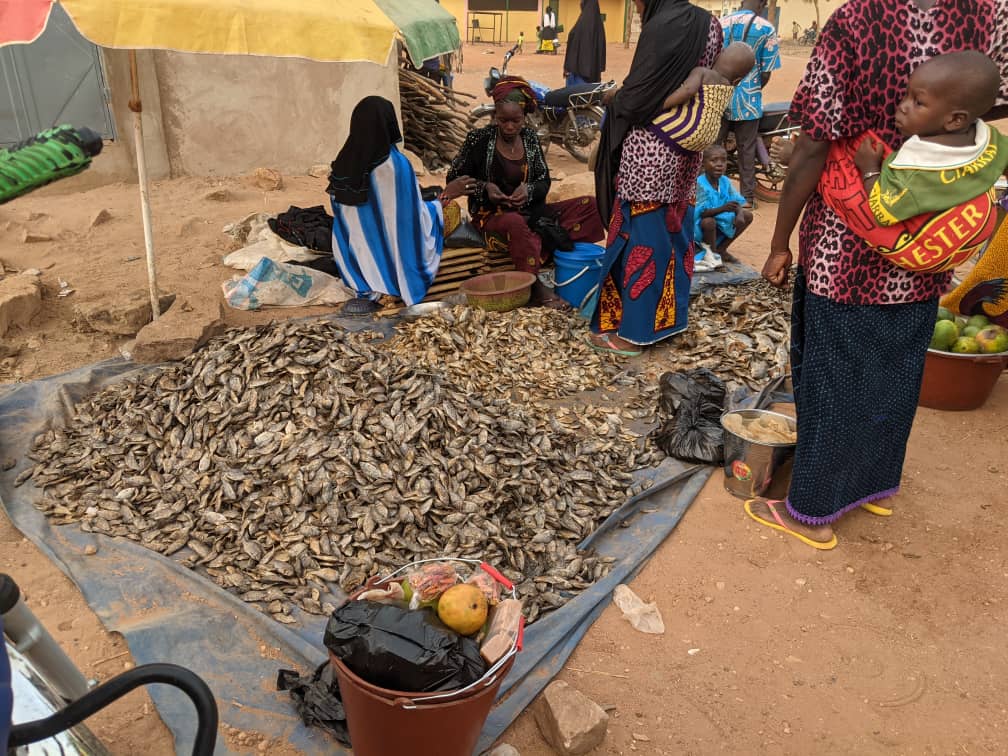
The participants in the 2021 women's leadership workshops have returned to their villages and created 10 new official women's associations. These new associations were invited to submit a business plan to a contest sponsored by Tandana to seek startup funding for their business. The five best proposals were selected and have received their initial fund. Previously-created associations were invited to submit proposals for a second contest, and five of these proposals were also selected to receive funding. The association from Komberou has found the best market to sell their dried fish, and four other associations - one from Andjine, two from Kilegou, and one from Nalou - have bought their sheep and had them vaccinated.
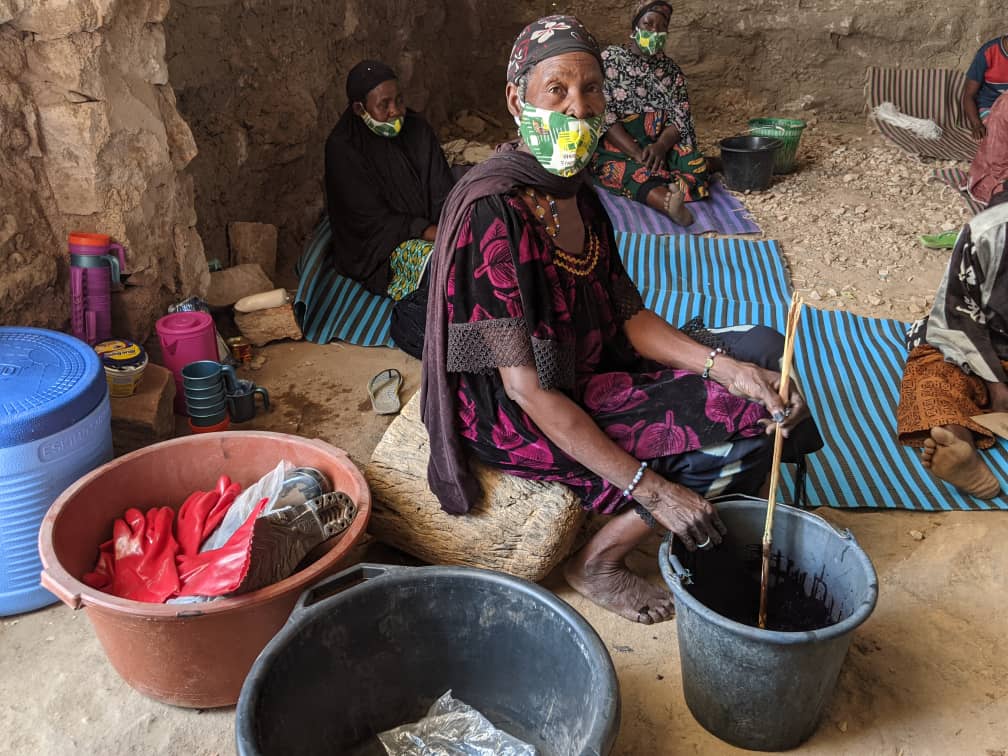
The leadership committee of the Sol Djeninke indigo bank participated in a workshop to learn how to manage their bank and also how to dye safely using both natural and chemical dyes. They also received their equipment and supplies, so the new indigo bank is up and running. They recently held their first meeting to reimburse the materials they used for their indigo dyeing. The meeting went well and the first campaign was successful. They all reimbursed the amounts they owed, and now they have ordered their materials for the next campaign.
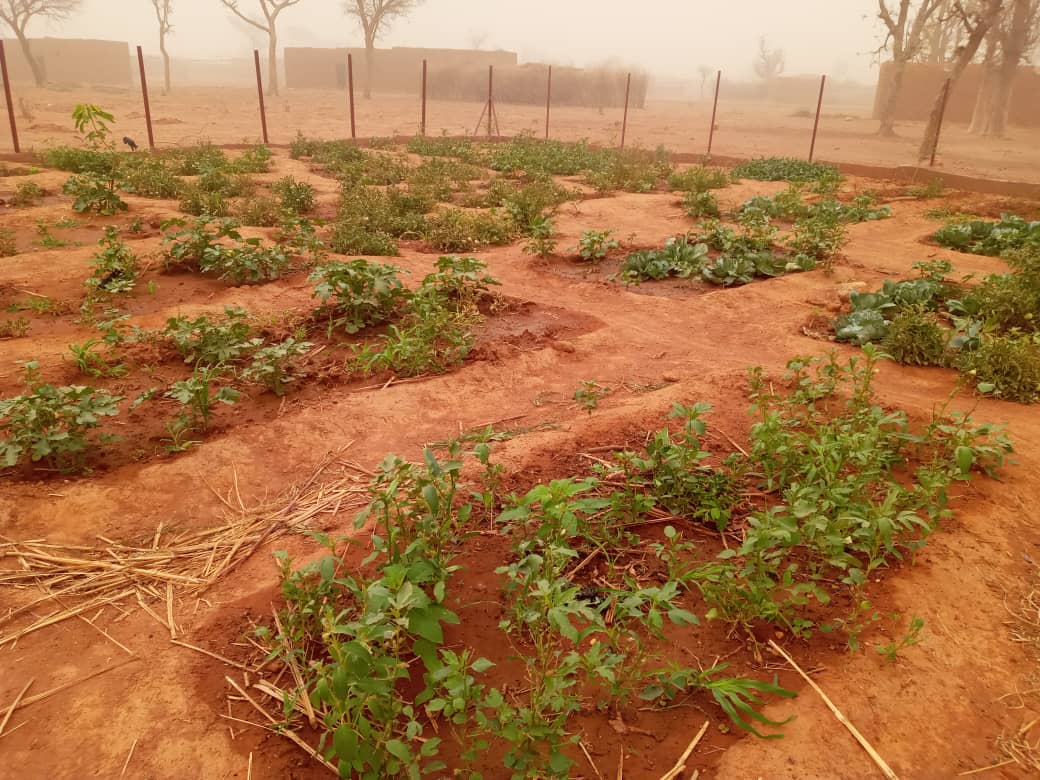
The school gardens at Saredina and Ondogou are both doing well! They are growing tomatoes, lettuce, onions, eggplants, tomatoes, peppers, and carrots as well as taking care of their papaya, pomegranate, mango, lemon, and guava trees. The students are eating produce in their lunches and as fresh snacks, and they have also sold some extra produce to earn money. The Saredina garden committee has earned about $30 and the Ondogou garden committee has earned about $17 from produce sales. They will use these funds to buy school supplies in October when the new school year starts.
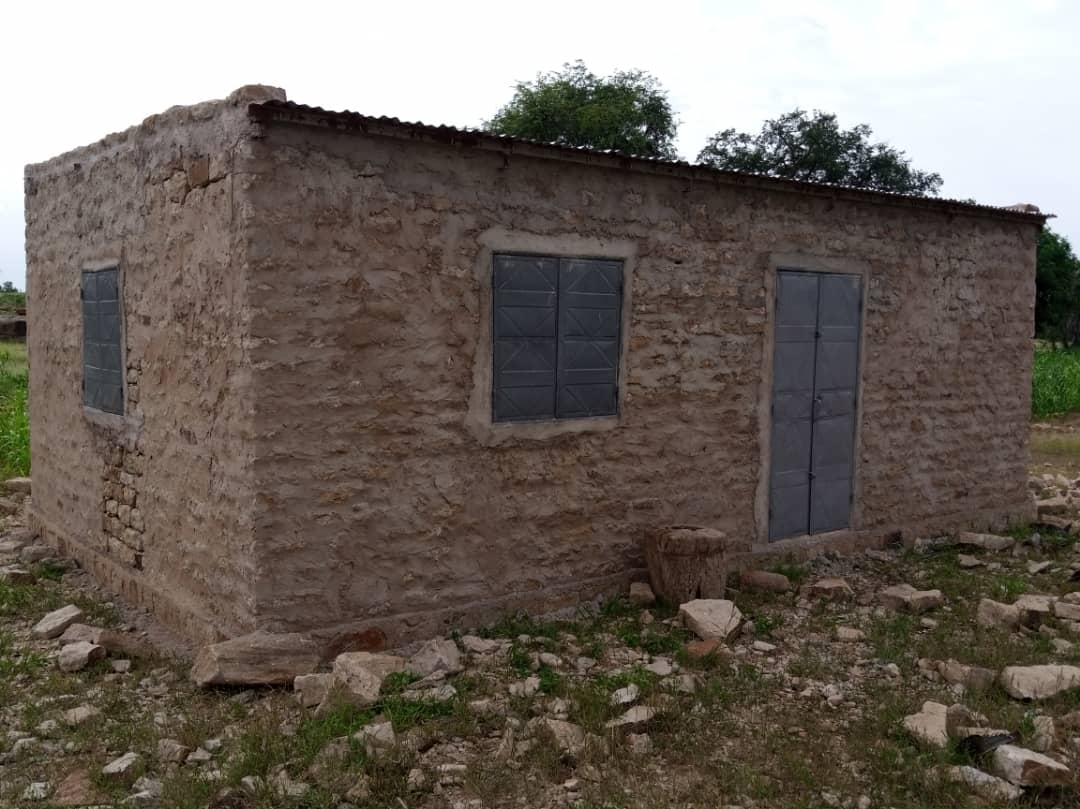
Residents of Kansongo are busy constructing a classroom for their kindergarten. Update: The classroom construction is complete and is now ready for the children to use!
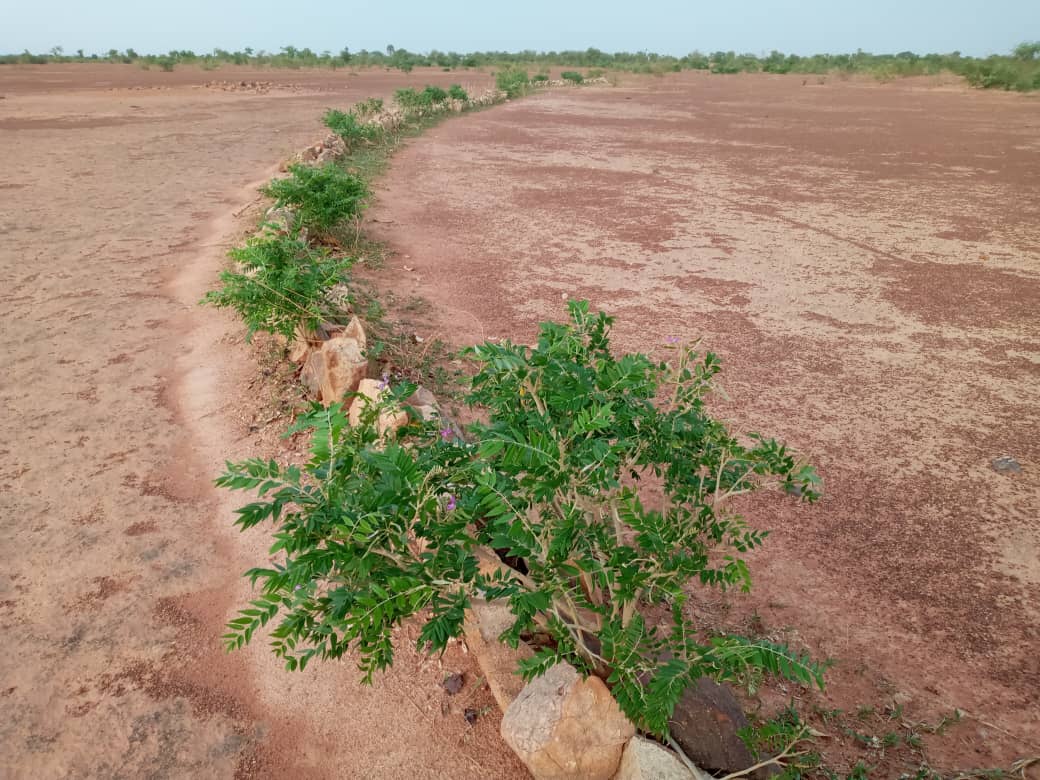
Our team in Mali took some photos recently that really show the value of the erosion control work that the Olouguelemo Environmental Association has been doing. This is near the stock pond in Goundoly. You can see that the area is entirely barren, except for the green plants growing right by the stone contour line that association members built.

Dramane Pamateck, from Sal Ogol, has been selected as pharmacy manager for the new health center in Sal, Mali. He is currently training for his new role in Bandiagara.
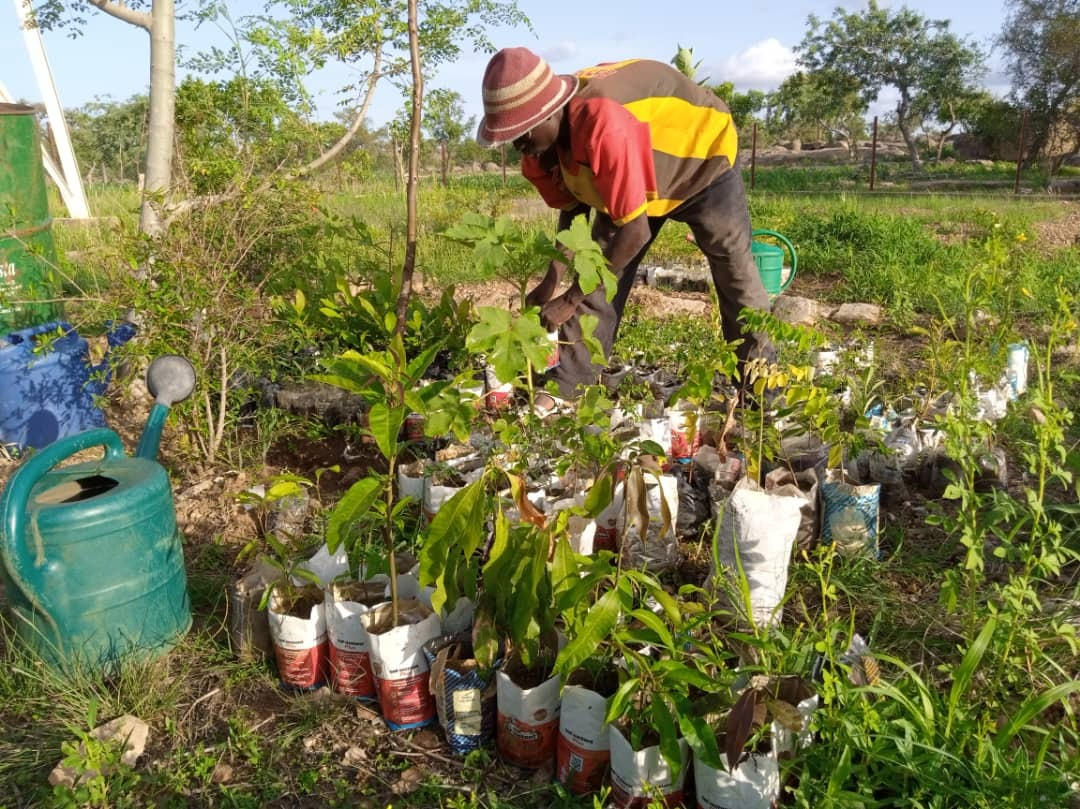
The nursery at Gongo is providing 500 plants for the 2021 reforestation project at Kansongo. You can see a picture (left) of the plants that were grown and where they were planted.
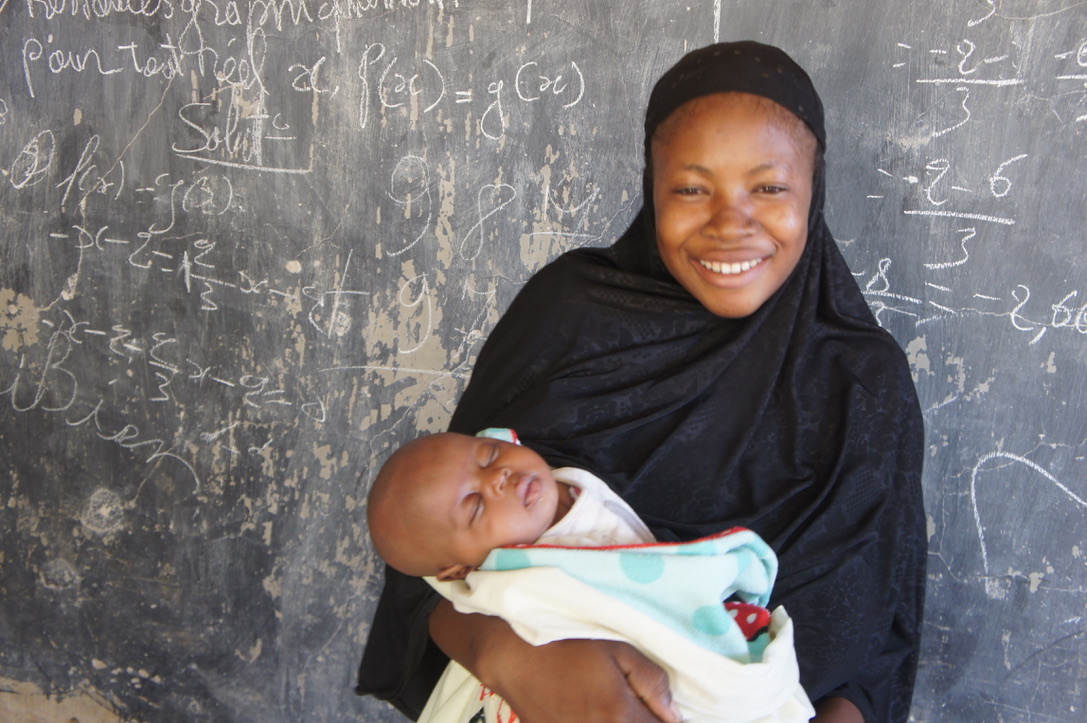
We are happy to report that all 8 of the students in our student mothers program in Mali have passed the year! Five of them passed their DEF exam to receive the diploma of basic education. The other three passed from 7th grade into 8th grade.
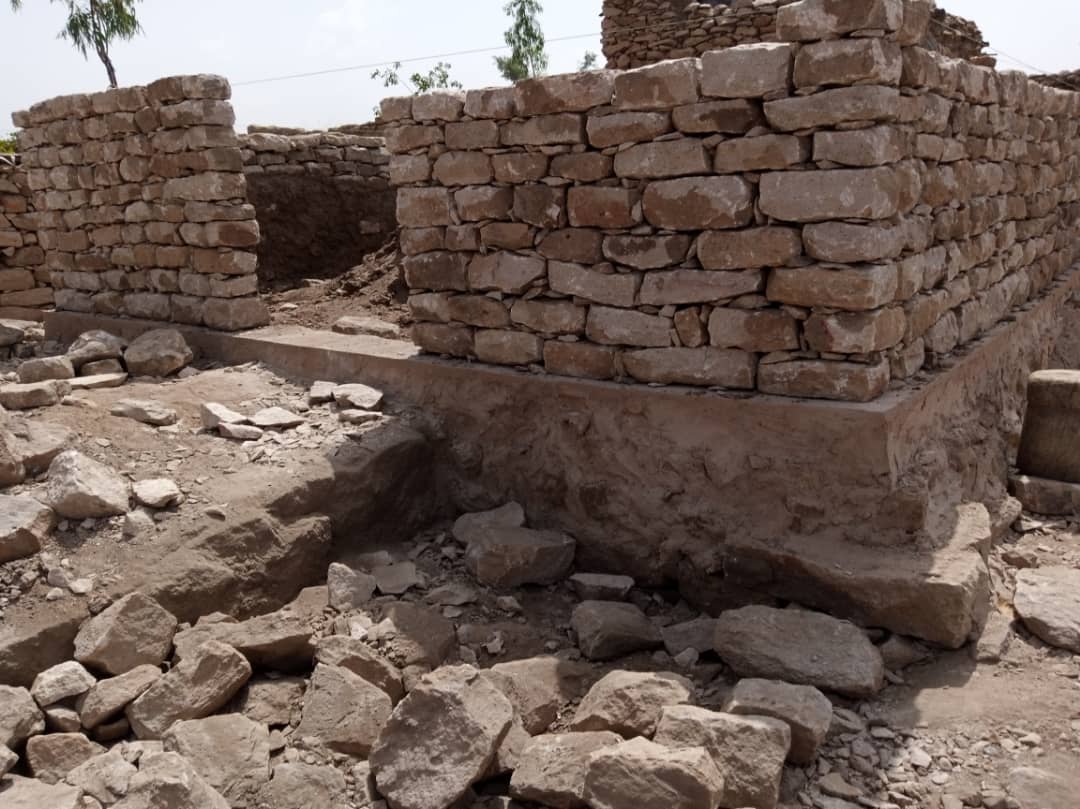
The storehouse for a new grain bank in Nounou, Mali is under construction. Thanks to First Community Church Mission Council for supporting this project!
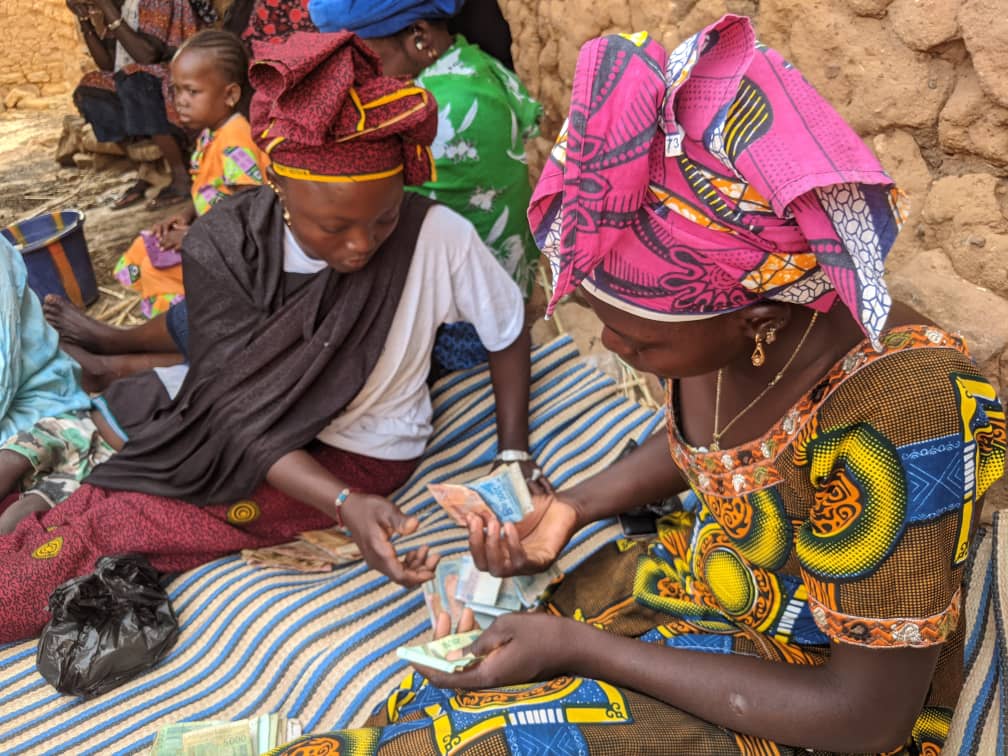
The women's association of Banakane, Mali held their annual assembly to collect the reimbursements for the cotton they have all turned into cloth and discuss the success of their business. They plan to order their next stock of cotton as soon as possible to keep working.
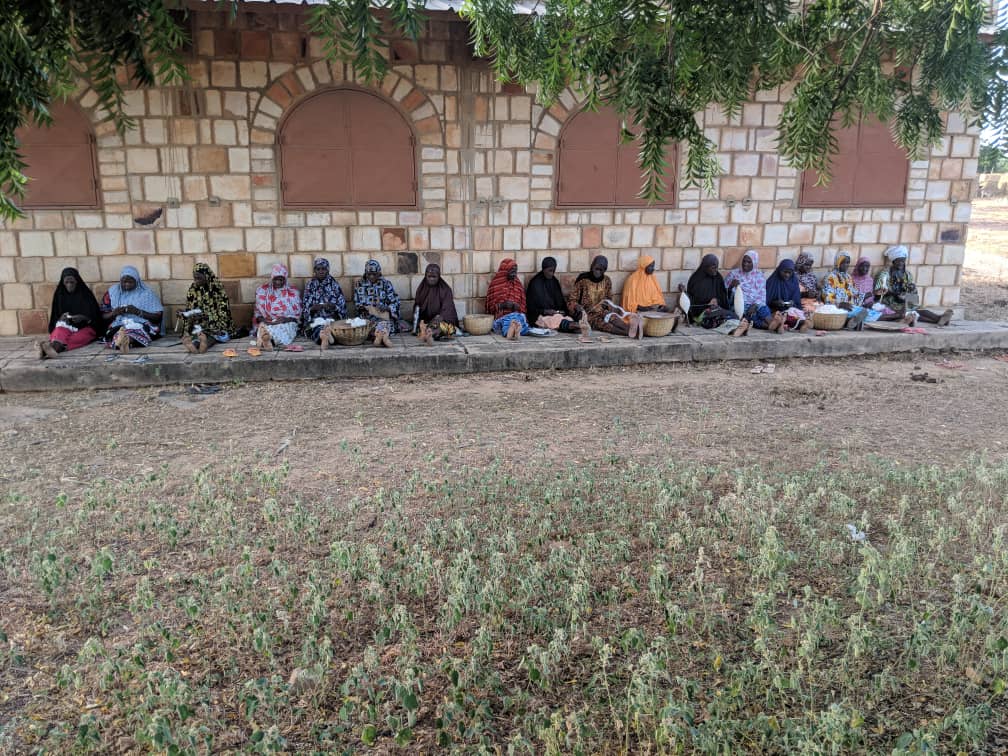
The women of Yarou Plateau, Mali have continued managing their cotton bank well, despite insecurity in their area. They held their annual meeting to reimburse the cotton they had used, and each group reimbursed 100%. Thanks to Ele Samakan, a local teacher supported by Tandana, for supporting their meeting, taking notes, and sending the details to Tandana.
Ecuador
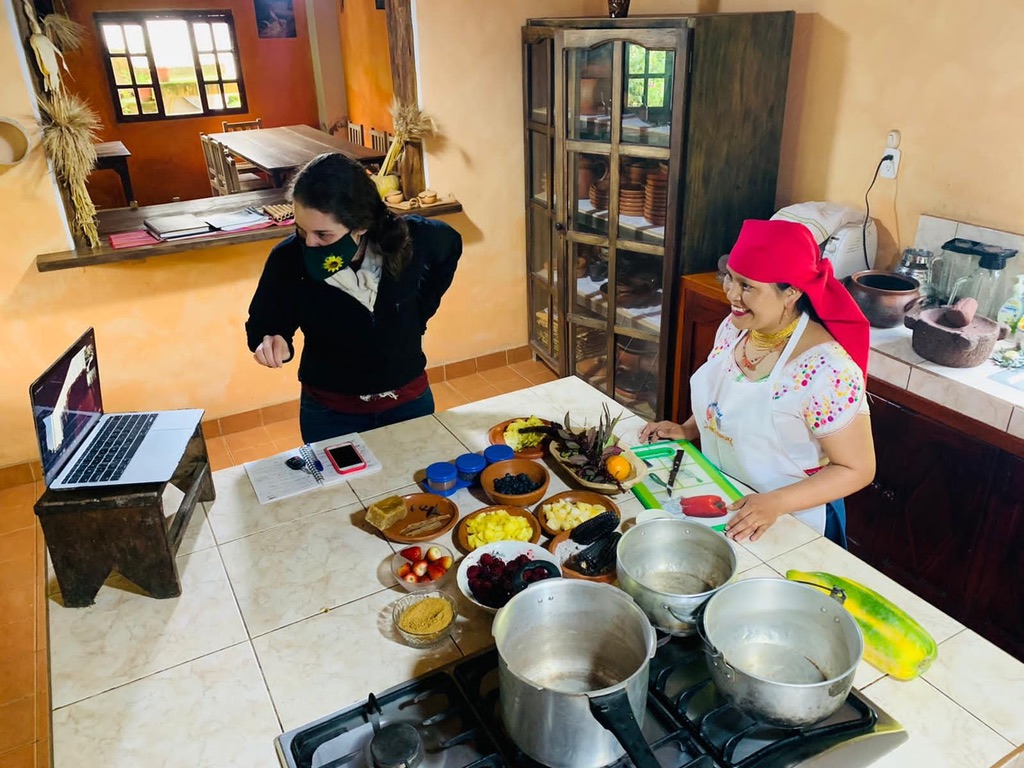
McNair Scholars at the University of Cincinnati participated in a series of remote cultural activities. In one activity they joined Kawsaymi Cocina for a cooking class to learn to prepare traditional Kichwa dishes.

Congratulations to Ricardo Saransig, who recently graduated with a degree in architecture. We are excited to see where this new milestone takes him.
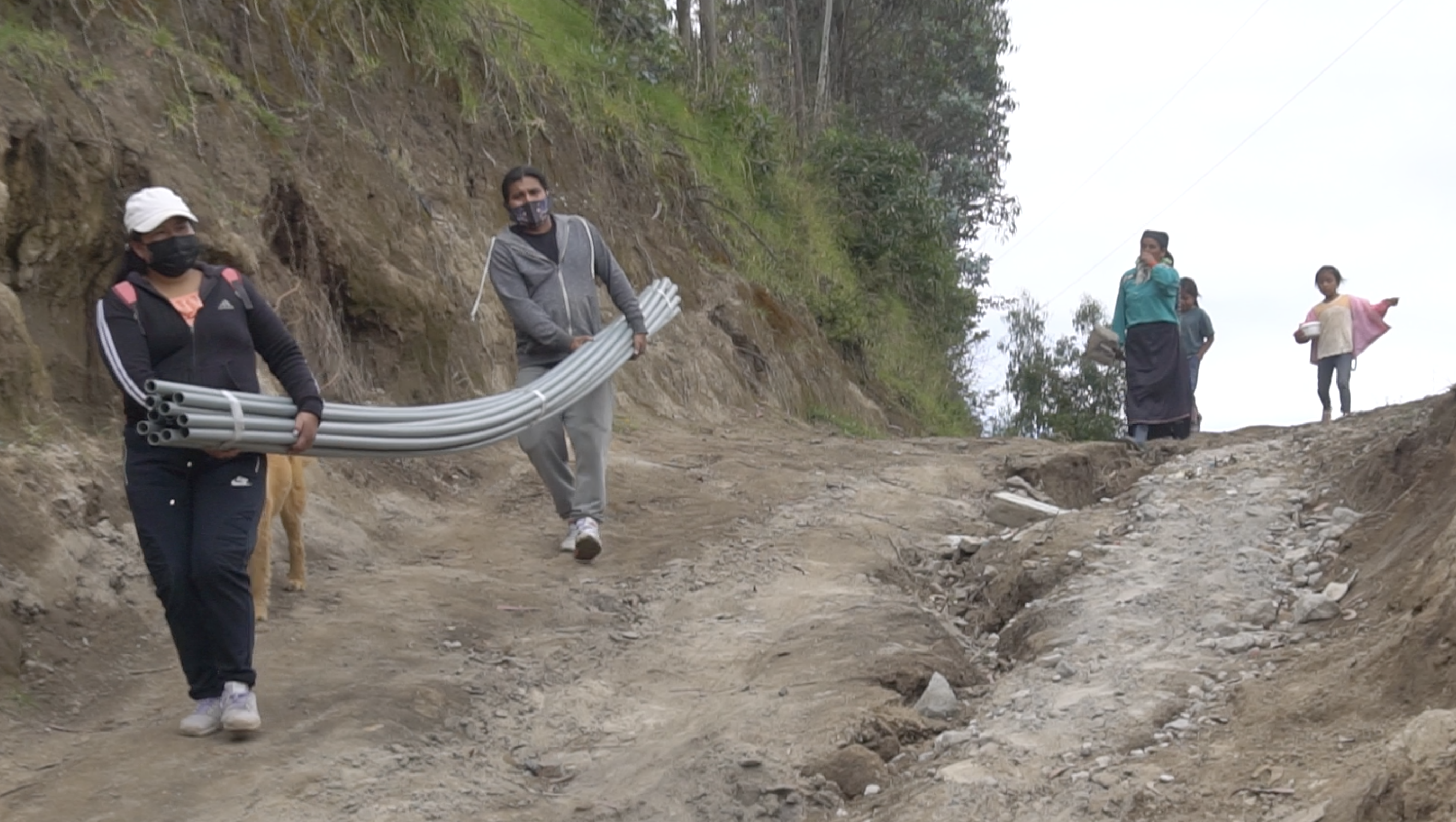
Community members in La Banda have completed the most recent phase of installing the pipes we had previously given to them for their potable water system. They received a generous donation for the final phase of the project and are working on the final phase of installing water pipes to reach all the homes in the community. Once this phase is finished, all of the homes will have water. Update: The La Banda Water project is complete! The last of the pipes needed to complete the system have been installed and are functioning.
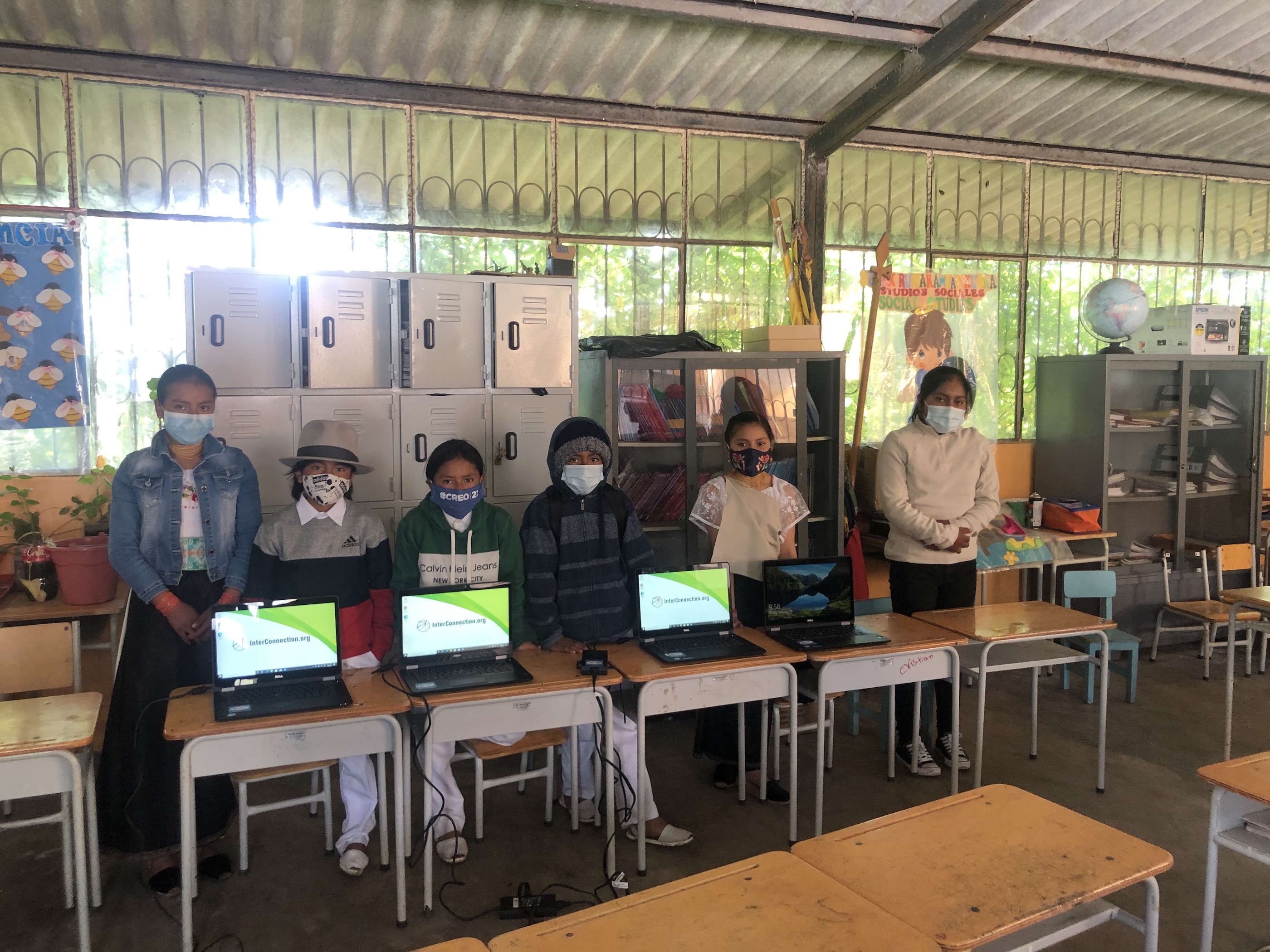
Tandana donated 4 laptop computers and repaired 6 laptop computers and 1 printer for the computer lab at the school in Urkusiki, Ecuador. We are very grateful to Tech Service Corps who donated funds to make this happen.
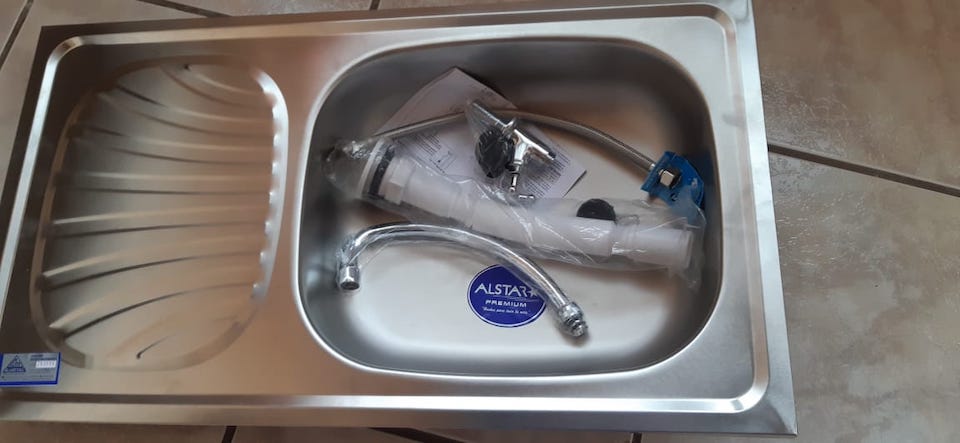
In the continued effort to keep our communities safe and germ-free, we donated soap and paper towel dispensers to the Quichinche Health Center. We also donated a sink and paper towel dispensers to the Gualsaqui Health Center.

Kevin has received his new prosthetic leg! He will now be able to continue with his very active lifestyle. Kevin enjoys playing basketball, cycling, and skating, and, fortunately, he is still working in Ibarra despite the many layoffs due to the pandemic.
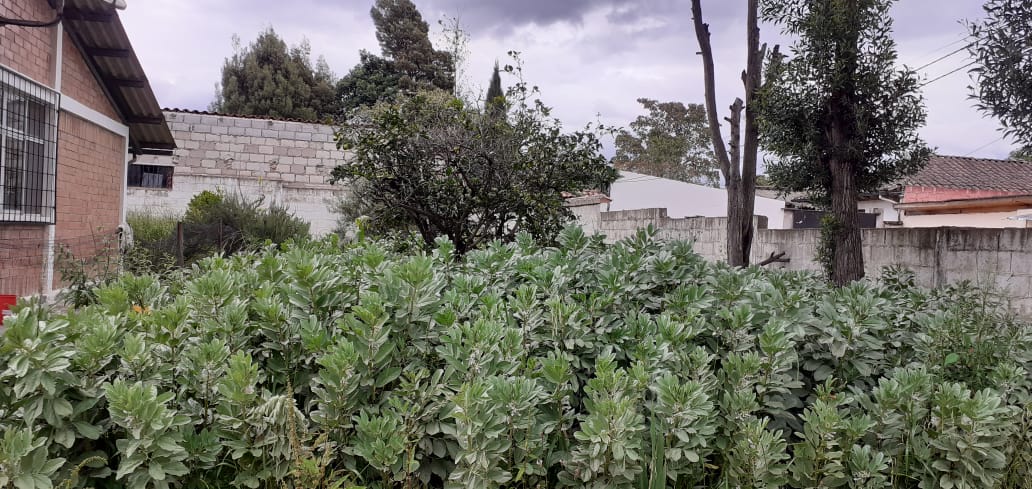
The medicinal and nutritional garden at the Quichinche Health Center is doing well. The health center staff and the health committee planted fava beans, runner beans, and medicinal plants, and they all participated in the harvest.
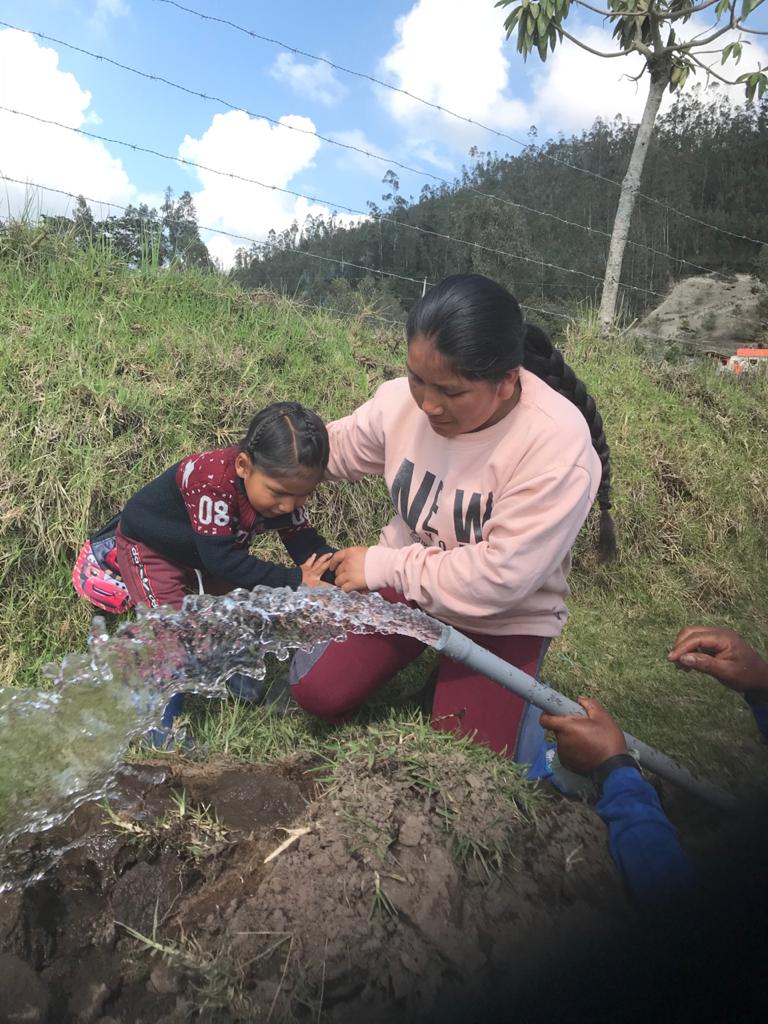
The Gualapuro Water Project is officially complete! All the homes now have access to clean water. A chlorination machine has been installed, an accounting system put in place, a small secure office for accounting, bill paying, and storing tools and supplies related to the water system has been built, and the whole community is very excited for what will come in the future. There have been talks of a family fun park which will include a zipline.

Juan Jose, a patient in our follow-up program, received his bone conduction hearing device after four hours of tests and learning how to use the device. His family is thrilled that he will now be able to hear.
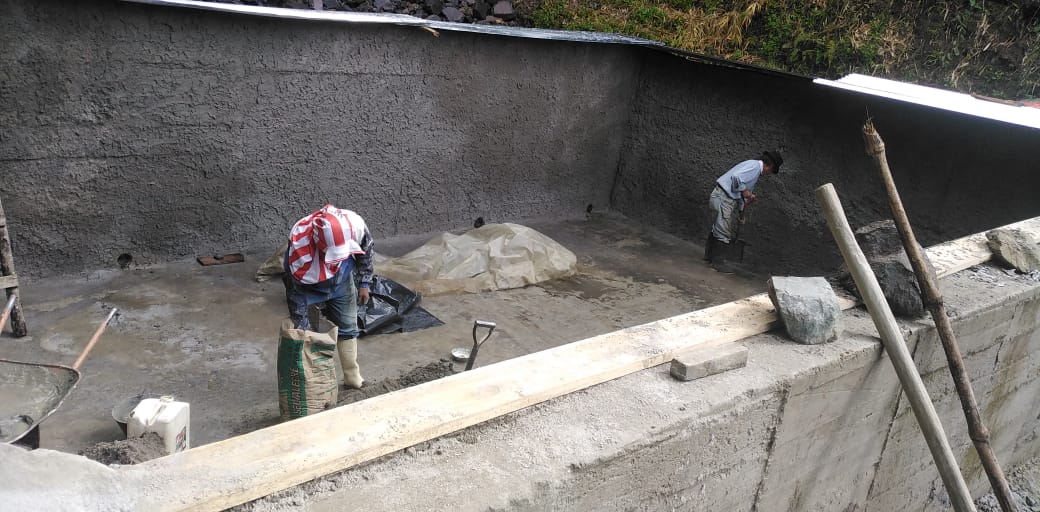
The community of Motilón Chupa is working on the final phase of building their irrigation system. Most recently, they have been working on the water collection tank. Update: The water tank for the irrigation system in Motilón Chupa is complete! They just recently finished the major collection tank and water is flowing to the crops that need them in the irrigation system.
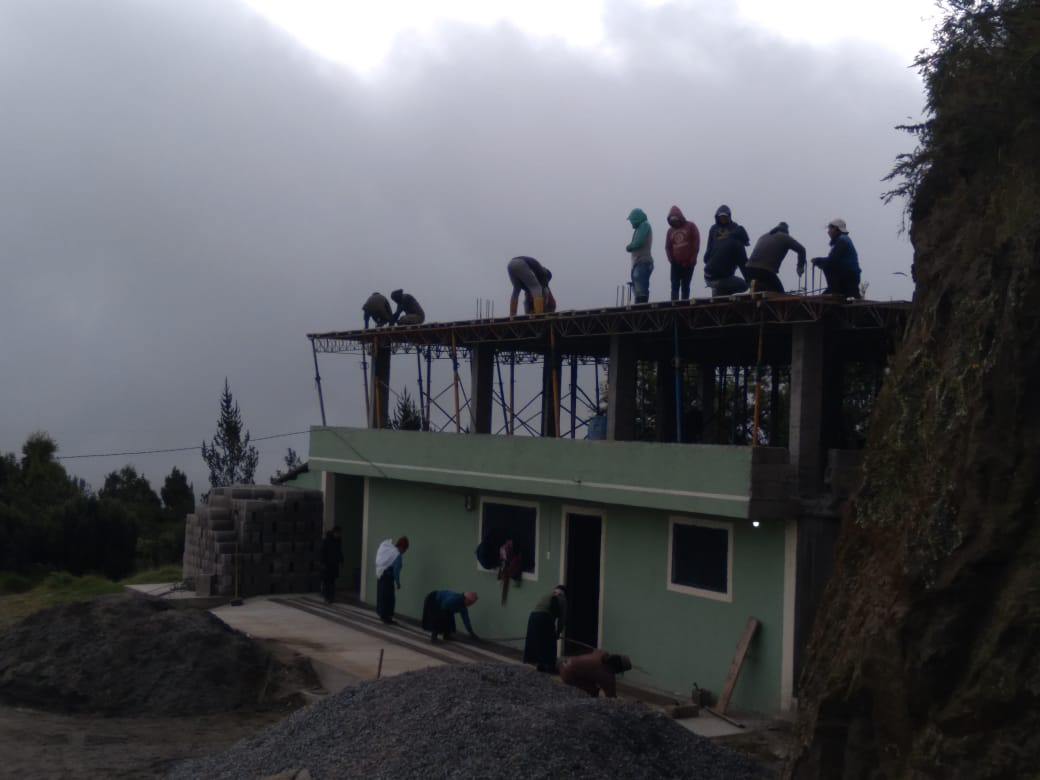
The community of Muenala, with materials provided by Tandana, is building a second story for their community center. This second floor will offer space for events, catechism classes, and community activities. They recently had a minga to pour the cement for the roof of the second story.
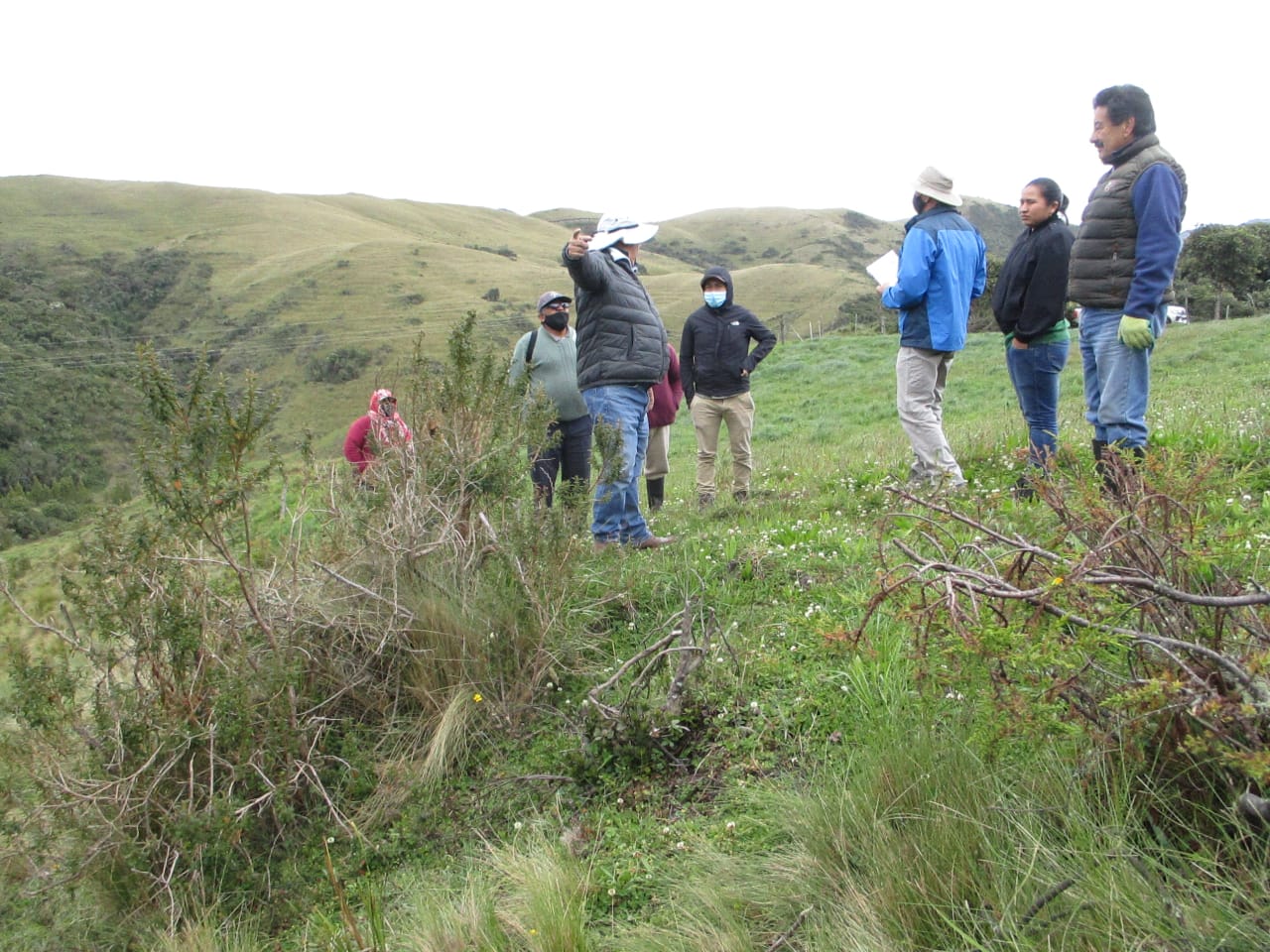
We are working with the community of Inguincho and Rotary International to plan a new, clean water system for the community. So far, a few of the 10,000-liter tanks have been delivered to the community and they have had held many community workdays to build the security area for the tanks and filtering station. The pipes have been located at the strategic sites. A big thanks to Rockey Anderson for his help coordinating this project.
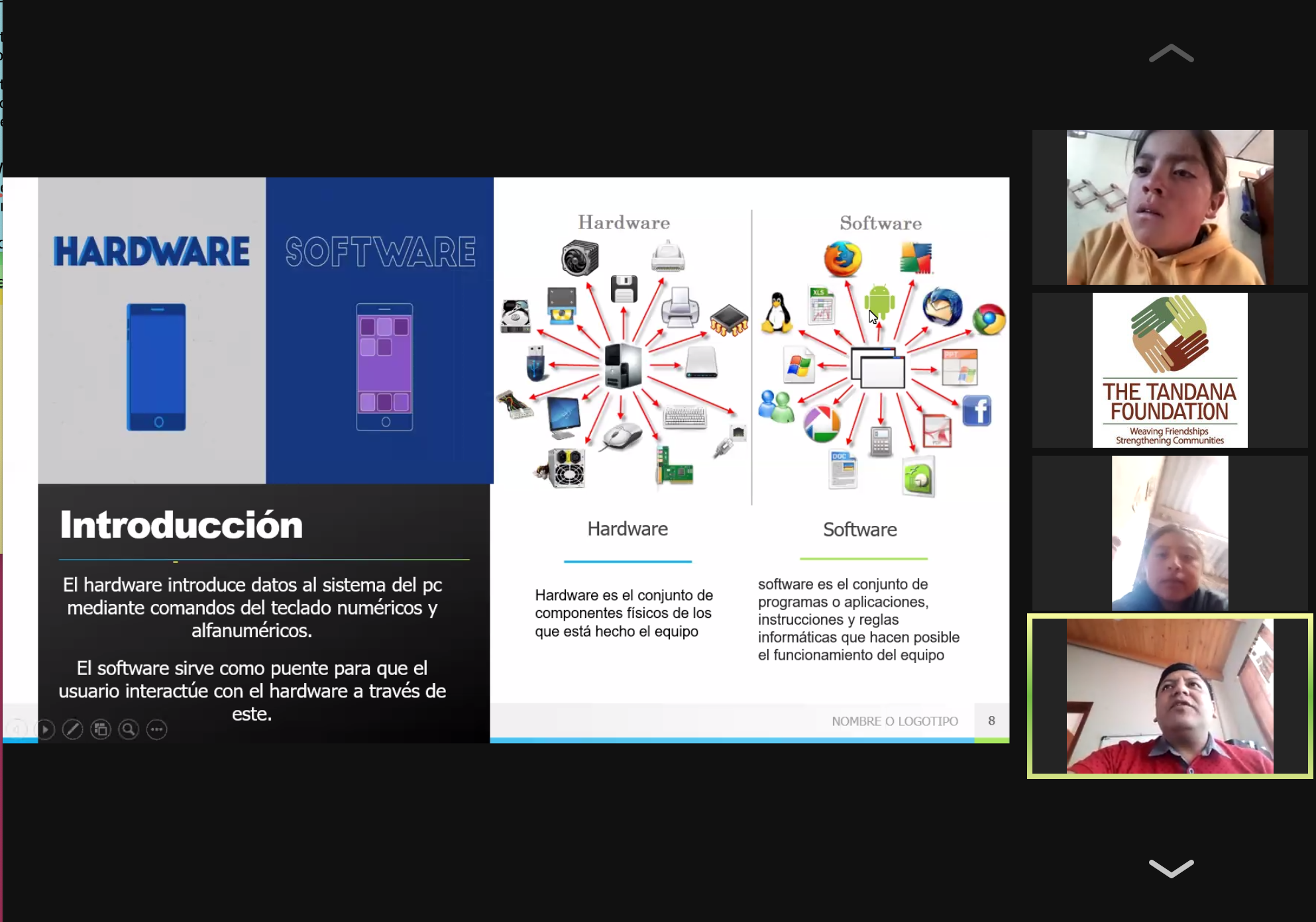
Virtual summer school classes were a great success this year in Ecuador! 20 Students took classes in Math, English, Technology, Art, and Theater, just to name a few.
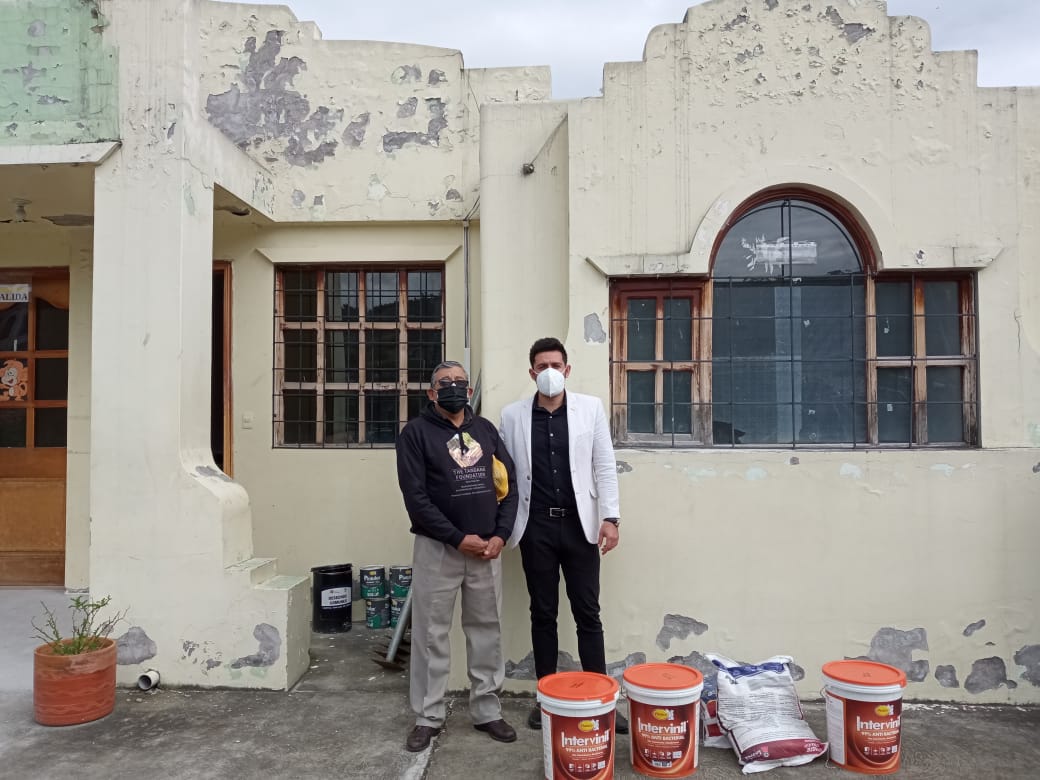
Tandana donated paint to the maternity ward at the Otavalo hospital. We also donated 135 3ml syringes to the Quichinche Health Center to be used for COVID-19 vaccinations.

The Cutambi Community Center is officially complete! Community members installed handrails and windows as the last few finishing touches.
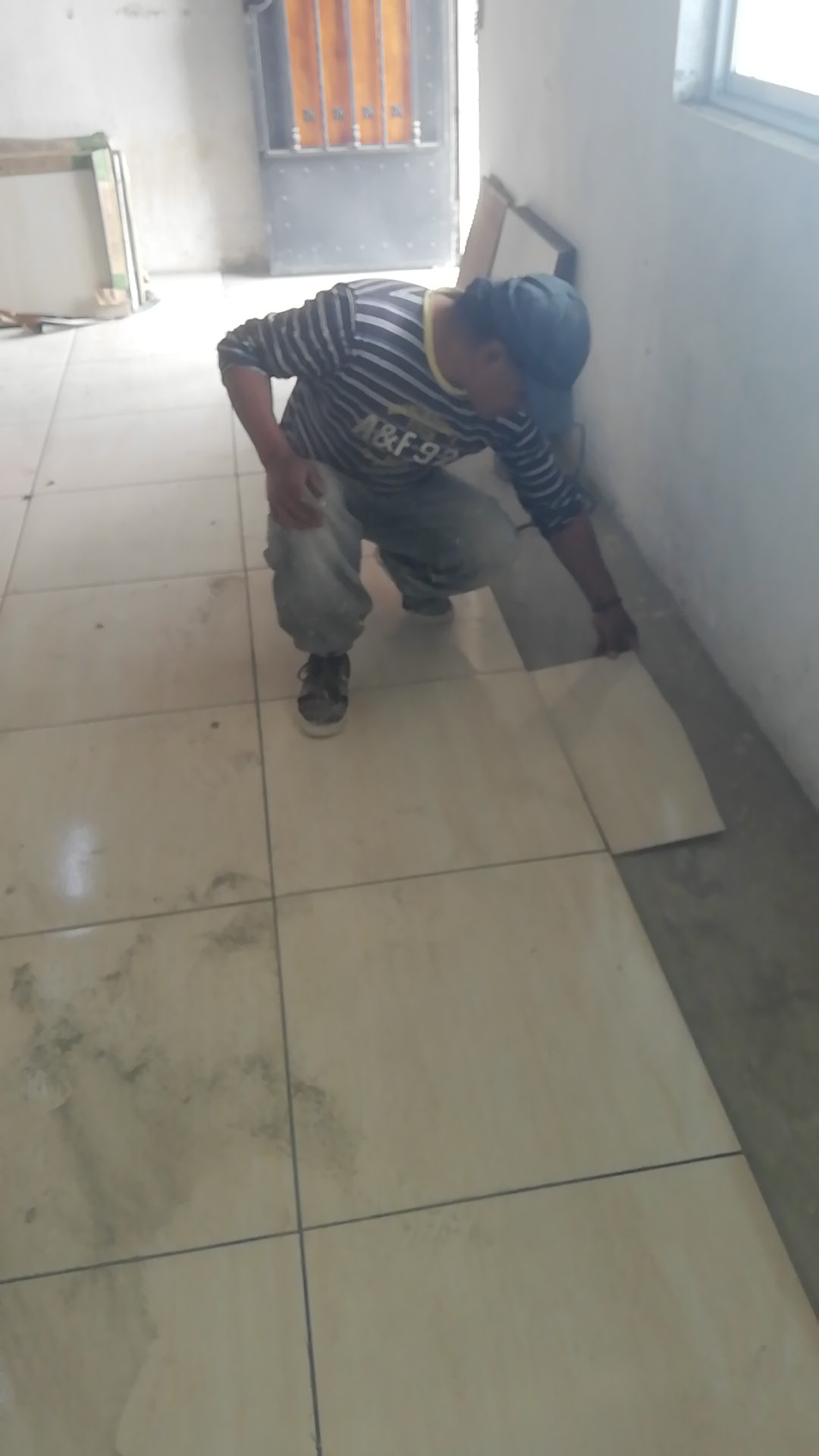
Tiles were delivered for the floor of the community center at San Juan Loma. Members are making progress on laying the floor.

Tandana's favorite theater professional extraordinaire, Hank Fincken, taught a theater class again during summer school. His class, and the play, were conducted virtually, but the show went on without a hitch! Check out the video  here.
here.
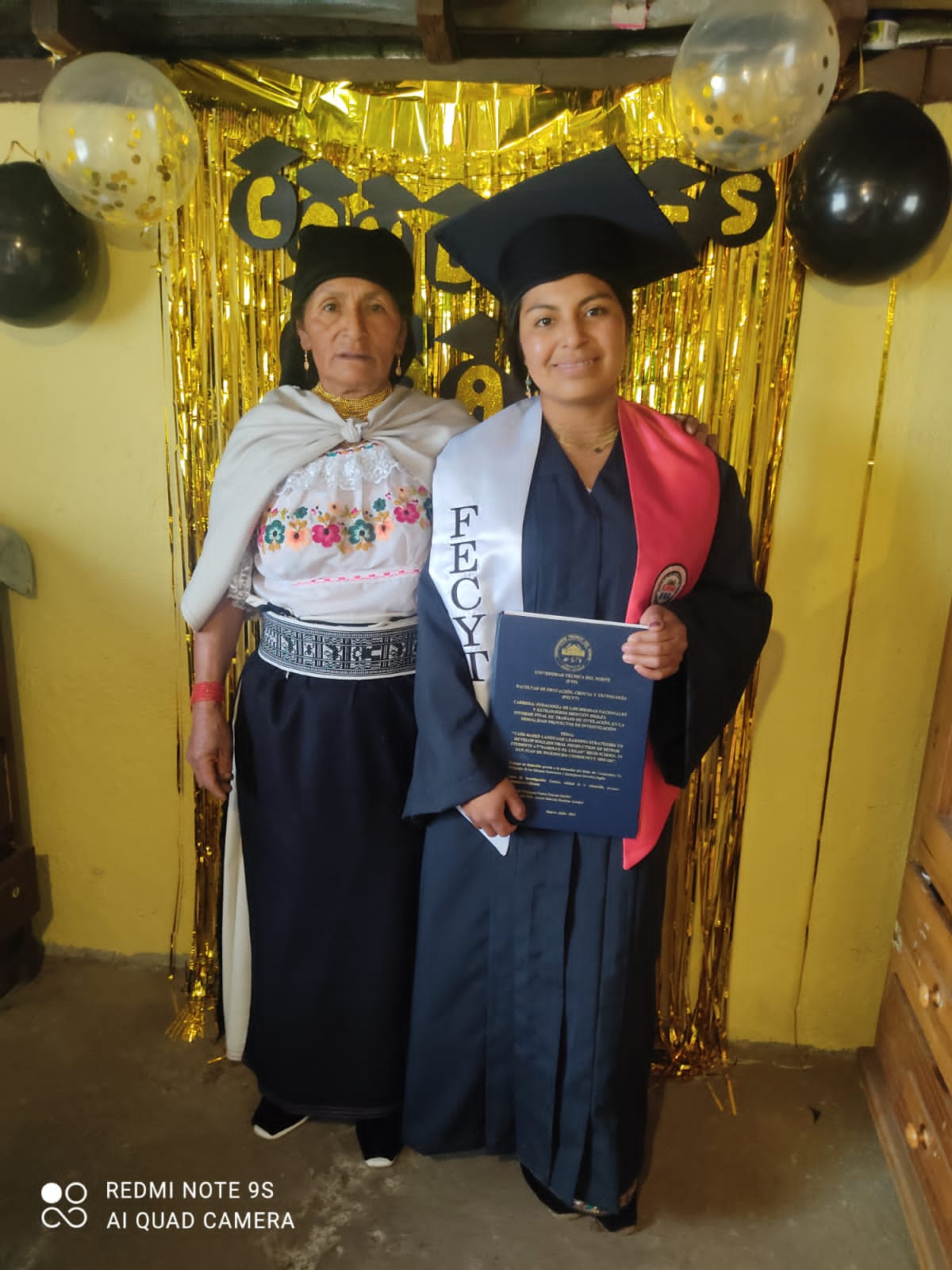
Dayana Velasquez, a Tandana scholarship student, has graduated from university as an English teacher! She has been a great participant in many Tandana activities and recently taught English in our summer school program. We are very proud of her and excited to see her next steps!
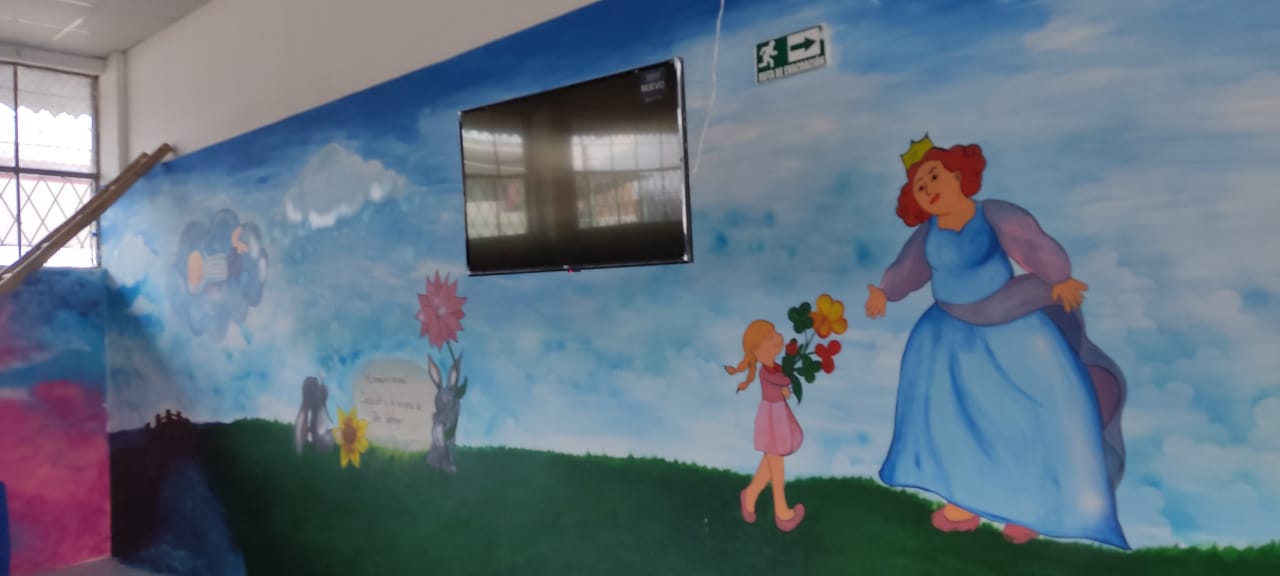
Tandana post-secondary scholarship students are leading young students at the La Joya school for children with special needs in creating a mural in the school. It's looking great! This project was made possible by a donation in memory of John Gehringer, who was Tandana's pro bono graphic designer for many years.
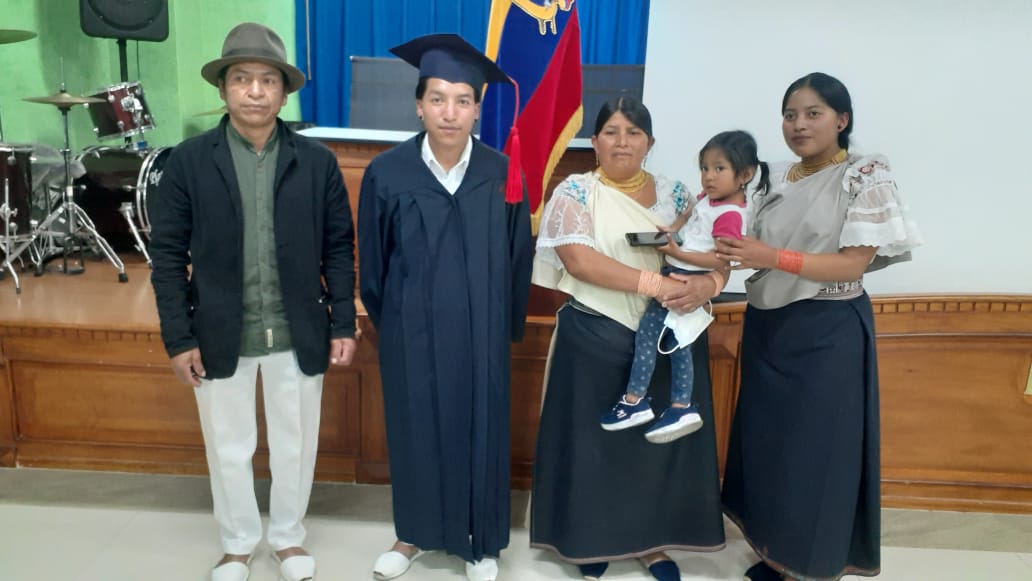
University Scholar Sergio Torres has graduated from Technical University of the North with a degree in electrical engineering.
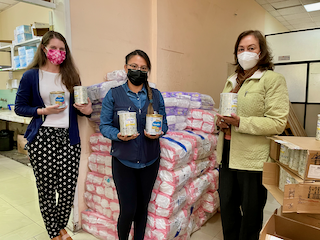
The Otavalo Hospital is receiving needed supplies for its birthing unit thanks to a generous donation from Boston Scientific. Donated items include infant formula, infant diapers, infant clothes, crib sheets, blankets, towels, pregnancy gowns, a refrigerator to store breast milk, and sanitary materials for field birthing units.
2020
Ecuador
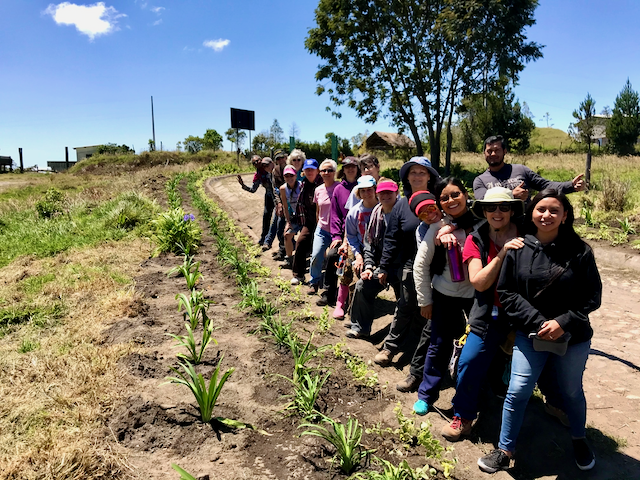
The Ohio Master Gardeners enjoyed a week full of farming, gardening, and cultural activities during this year’s trip. They spent 4 workdays at Saminay High School, a technical agriculture school about 40 minutes from Otavalo. They spent their mornings working with students and teachers to plant along the entrance of the school. They also had the chance to participate in a minga with all the families from the school, which was followed by a pampamesa (traditional potluck style lunch). In addition to their hard work, they learned about traditional Kichwa dress at Margarita’s, roasted guinea pig and learned about medicinal plants at Kawsaymi cooking school, cooked dinner on volcanic rocks at Pakarinka, and visited the nearby leatherworking town of Cotacachi. They also had the unique experience of traveling to Polylepis Forest, where they were able to compare plants in the highlands of Ecuador to the plants they see back in Ohio. Many participants look forward to bringing the new perspectives they gained in Ecuador back to their own gardens.
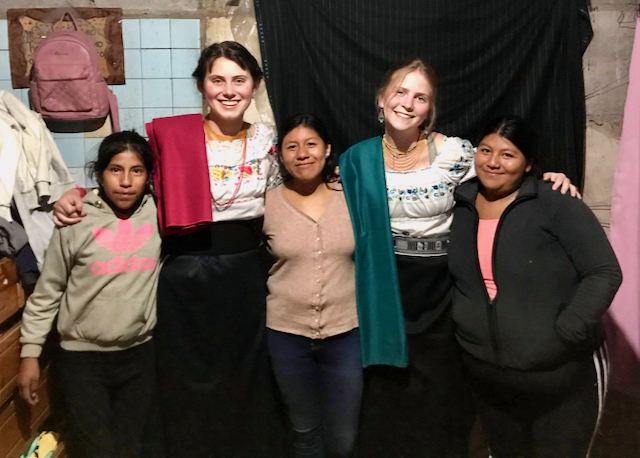 For many years, the Traveling School has come to Ecuador during their semester to work alongside communities and Tandana. This year was no exception as the girls arrived at the community of Agualongo where it all started. Students visited during the Carnaval holiday and got to participate in the festivities by throwing water and spraying foam on everyone. Living with host families and being part of a family away from home was just what the students needed. The students worked alongside the community, cleaning the road from a few landslides due to all the rain. They took their families on a trip to the lake and, on another day, hiked up to a fantastic view to cook lunch and enjoy everyone’s company in another successful “Dia de campo.” It was tough to say goodbye, and in the going-away party, the students showed gratitude to the community and families with songs, raps, and heartfelt words. Safe travels on your continued adventures!
For many years, the Traveling School has come to Ecuador during their semester to work alongside communities and Tandana. This year was no exception as the girls arrived at the community of Agualongo where it all started. Students visited during the Carnaval holiday and got to participate in the festivities by throwing water and spraying foam on everyone. Living with host families and being part of a family away from home was just what the students needed. The students worked alongside the community, cleaning the road from a few landslides due to all the rain. They took their families on a trip to the lake and, on another day, hiked up to a fantastic view to cook lunch and enjoy everyone’s company in another successful “Dia de campo.” It was tough to say goodbye, and in the going-away party, the students showed gratitude to the community and families with songs, raps, and heartfelt words. Safe travels on your continued adventures!
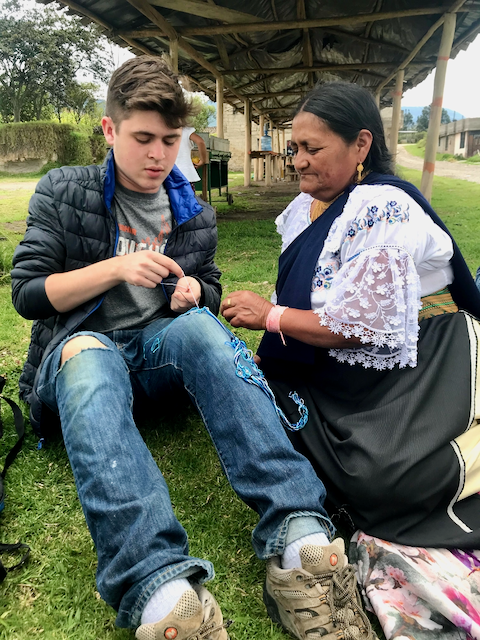
This year Northeastern’s ACES program arrived during spring break to support the community of Gualapuro paint their community center. Students spent all week painting and plastering in the morning and building relationships and learning from community members in the afternoon. Participants took a tour of the large water project Gualapuro has been working on, made bracelets (pictured) and enjoyed freshly baked bread. They got to share the recipe for pizza with kids and community members and had a lovely afternoon playing outside. Each lunch students shared traditional food alongside people they worked with that day and in the morning and evening took turns cooking for the group. They had wonderful weather and were able to walk to the Living Kichwa museum to learn about Kichwa traditions and games. After the project was finished, students visited the nearby crater lake, Cuicocha. Finally, the week came to an end with a tearful despedida (goodbye party), complete with dancing and pamba mesa (potluck).
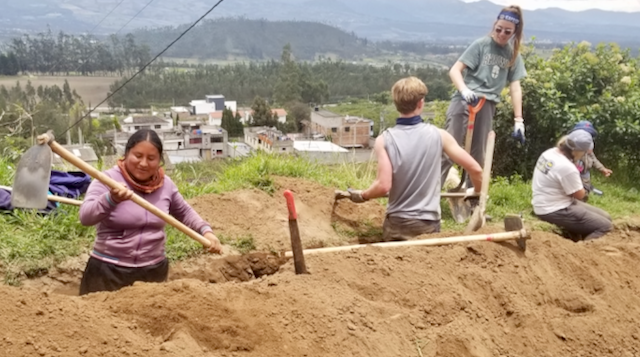
The group from Saline High School in Ann Arbor, Michigan, began their trip to Ecuador with a warm welcome from La Banda, the community they supported in implementing a new water system. The welcome included speeches, dancing, a band, and a traditional pambamesa (potluck style) lunch. For the next five days, the group worked side by side with members of the community to dig 1m deep trenches, stretching almost 800m in length total! The group did not only work hard, they also played hard. With activities such as visiting Peguche waterfall, cooking dinner at Kawsaymi cooking school, visiting the Plaza de Ponchos market, and playing soccer with community members, this group had a busy week trying new things. They also had the chance to learn more about one of the main jobs people from La Banda do- working at weaving workshops! They were lucky to be able to see not only a modern weaving workshop, but also a demonstration at the Otavalango museum about traditional weaving and how techniques have changed over the years.
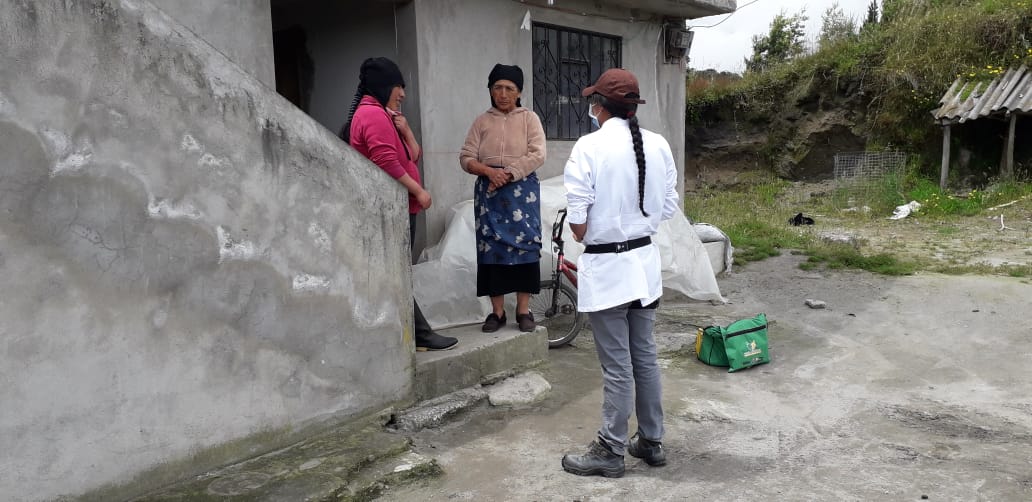
We've supported the staff of the Quichinche and Gualsaqui health centers with PPE, supplies, and medications, as well as transportation to visit the communities they are responsible for. With the lockdown, patients from other communities have not been able to get to the health centers, so the staff went to attend to those who needed assistance in the communities and also to deliver monthly medications to those who usually pick them up at the center.
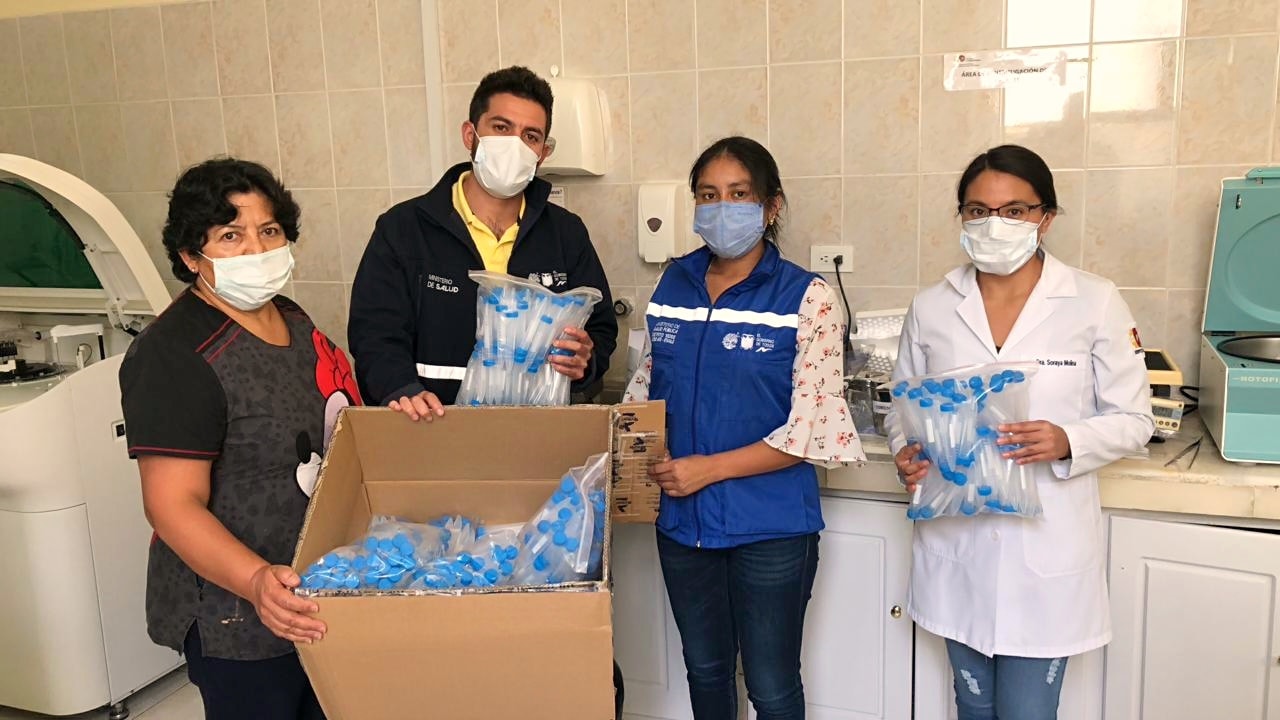
Tandana recently donated 1,000 graduate conical tubes for COVID-19 sample collection. These vital supplies will help ensure that there is not a delay in testing in the Otavalo area so healthcare professionals can stay on top of testing. Thanks to all the frontline healthcare workers putting these test kits to good work!
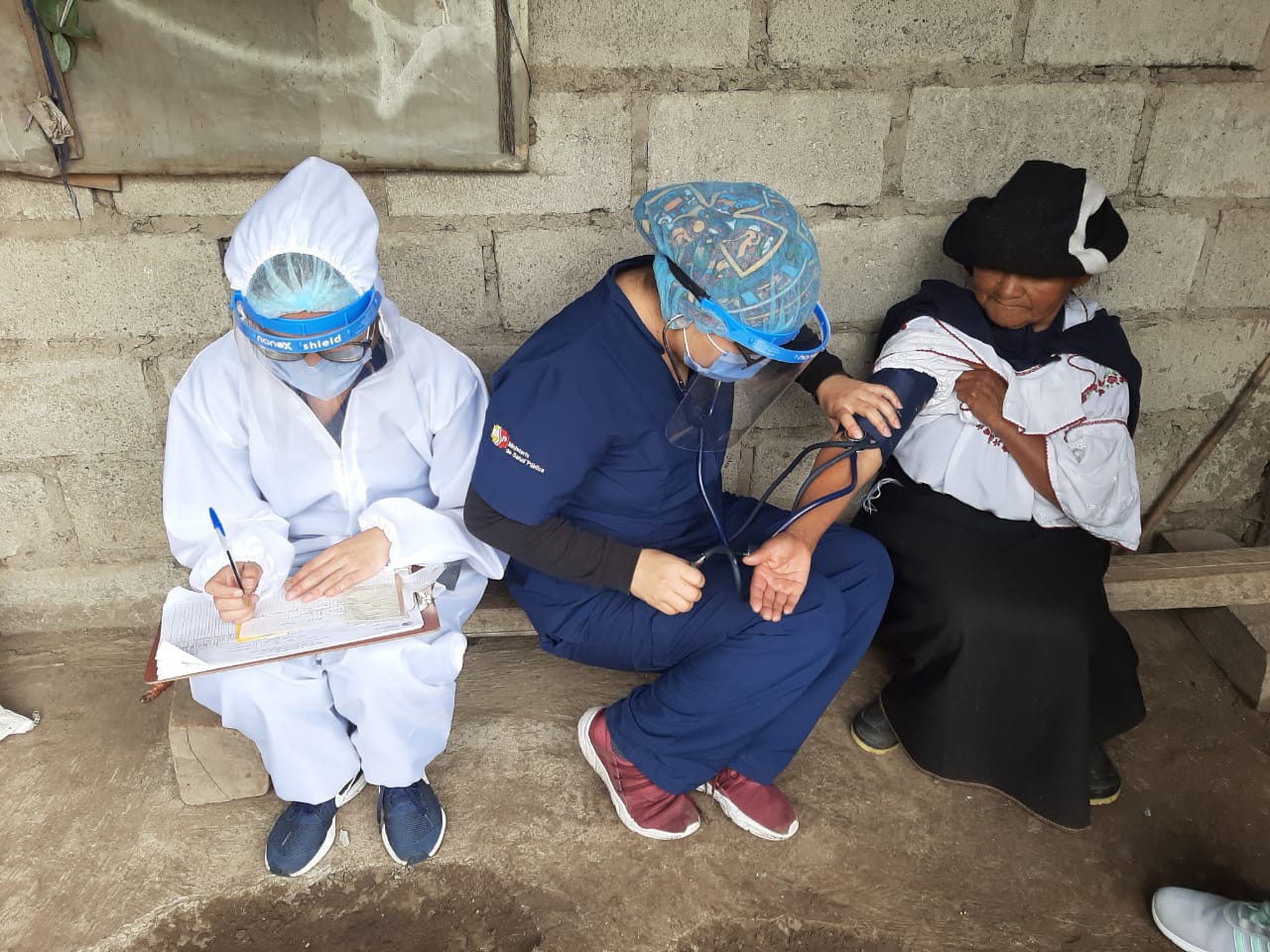
Tandana has covered transportation costs for subcentro workers from the Gualsaqui and Quichinche health centers to travel to the communities to provide necessary medical attention directly to the communities for patients who are vulnerable from their preexisting conditions and are unable to travel to the subcentro for check-ups and medicines due to the stay-at-home order imposed by the national government. A total of 217 patients from 13 different communities in the Quichinche Parish have received care.
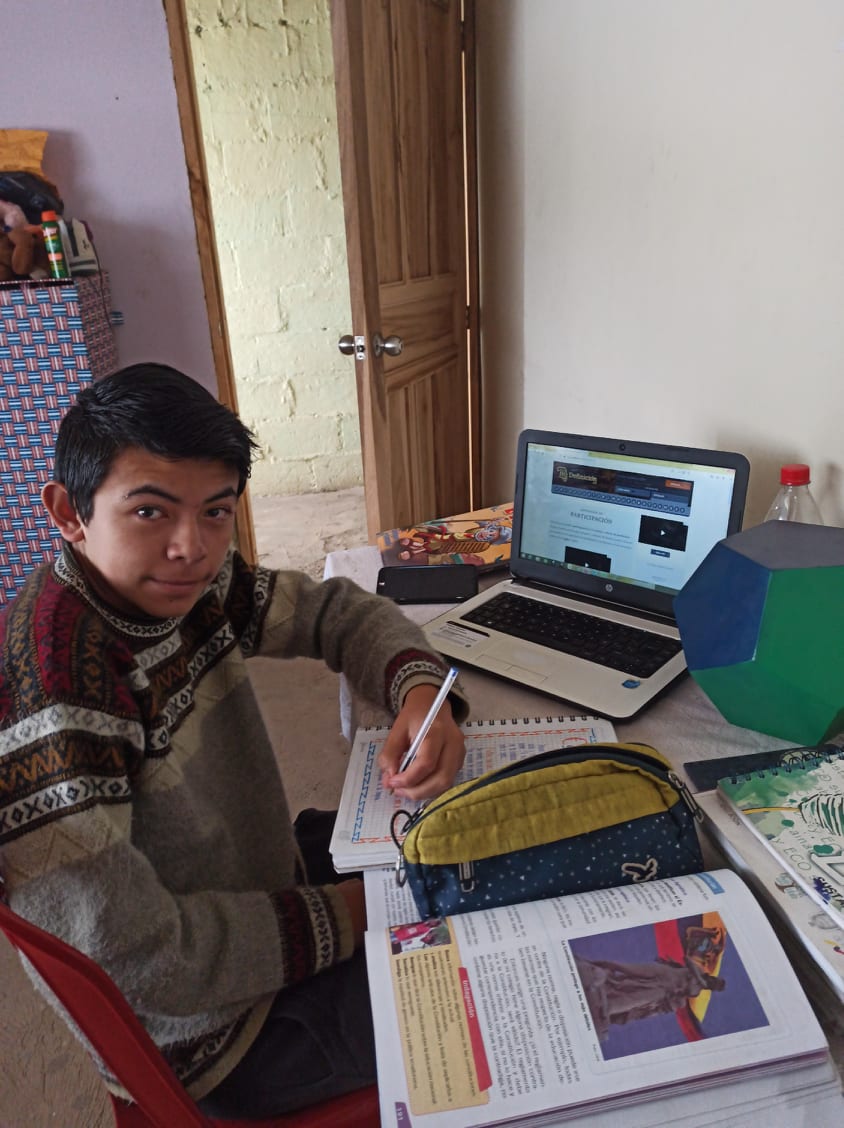
Our scholarship students are engaged in online learning and resourcefully finding ways to access the internet from their mountain communities so they can keep up with their assignments. We are supporting them with additional internet expenses during the pandemic. We've been able to support 20 students with internet costs so that they can continue their studies that are completely online.

Summer School was offered virtually via zoom this year. Veronica, our Scholarship Coordinator pre-zoomed with all 22 potential scholarship students who were eagerly awaiting to meet their teachers. They had classes online on Monday, Wednesday, and Friday for 5 weeks from July 6 - August 7. Interns Mallory, Hannah, and Hank taught remotely from the USA together with 4 Ecuadorian university scholarship students, Amauta, Nicole, Dayana, and Lady. They taught English, Theater, Art, Leadership, Math, and Entrepreneurship. For an added bonus, Wednesdays consisted of a summer school-wide psychology class for students to get to know themselves and others in the program. 20 students completed the full 5-week summer school program and all 20 students that completed the course have been accepted into the high school scholarship program. Congratulations!

The fundraiser organized by Northeastern University’s Alliance of Civically Engaged Students (NU-ACES) was a huge success. 1280 masks were delivered in 21 communities of the Quichinche Parish including Padre Chupa, Motilón Chupa, Minas Chupa, Inguincho, Cambugán, Tangalí, Cutambi, Guachinguero, Achupallas, Urcusiqui, Muenala, Guayrapungo, Moraspungo, Gualsaquí, Panecillo, Agualongo, La Banda, Yambiro, Larcacunga, San Juan Alto, and Gualapuro. Also, 200 disposable masks and 100 KN95 masks were donated to the Health center in Gualsaqui and Quichinche. Additionally, other medical supplies, including bandages and alcohol among others were delivered to the Director of the Hospital of Otavalo and the Director of the Health Center in Gualsaqui.

The new school year kicked off in September, and because the classes are virtual, we decided to open the Panecillo office so scholarship students and community members could use the internet and computers to attend classes and do homework. Our amazing team has been helping students get their work done.

A computer was donated to the Panecillo Community Board. This will help the board during meetings, presentations, and other community events and gatherings.

Our Patient Follow Up program has been making strides during the pandemic. One patient has received her hearing aids and is very thankful to be able to hear clearly. She has been waiting for hearing aids since 2018. It has been important to keep up with seeing patients during the pandemic even though we have not been able to run our normal Health Care Volunteer Ventures.

The Gualsaqui Health Center was recently painted. Here's a look at the final product. It's more sanitary and gives patients more confidence to walk into a clean and sharp looking health center.
Mali
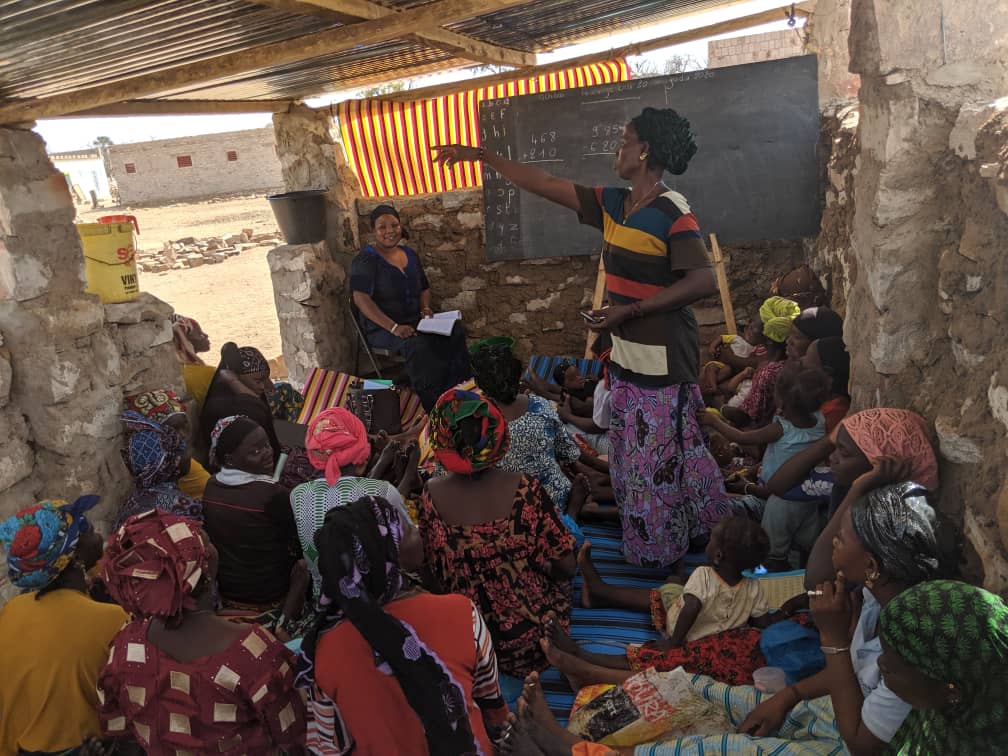
We kicked off the year with 10 new literacy classes, each with 30 women students. The 300 new participants are studied hard! Here's a look inside the classroom in Kilegou. They learned the alphabet, numbers, reading, writing, and arithmetic, skills that give them confidence and independence in the marketplace, in telephone communications, in keeping records for their savings groups and businesses, in reading signs, and taking notes at meetings. Of the 290 women who took the final exam last year, more than 90 percent of participants earned satisfactory scores or better on the literacy and numeracy final exams organized by the Tandana Foundation. Read all about it  here on our blog.
here on our blog.
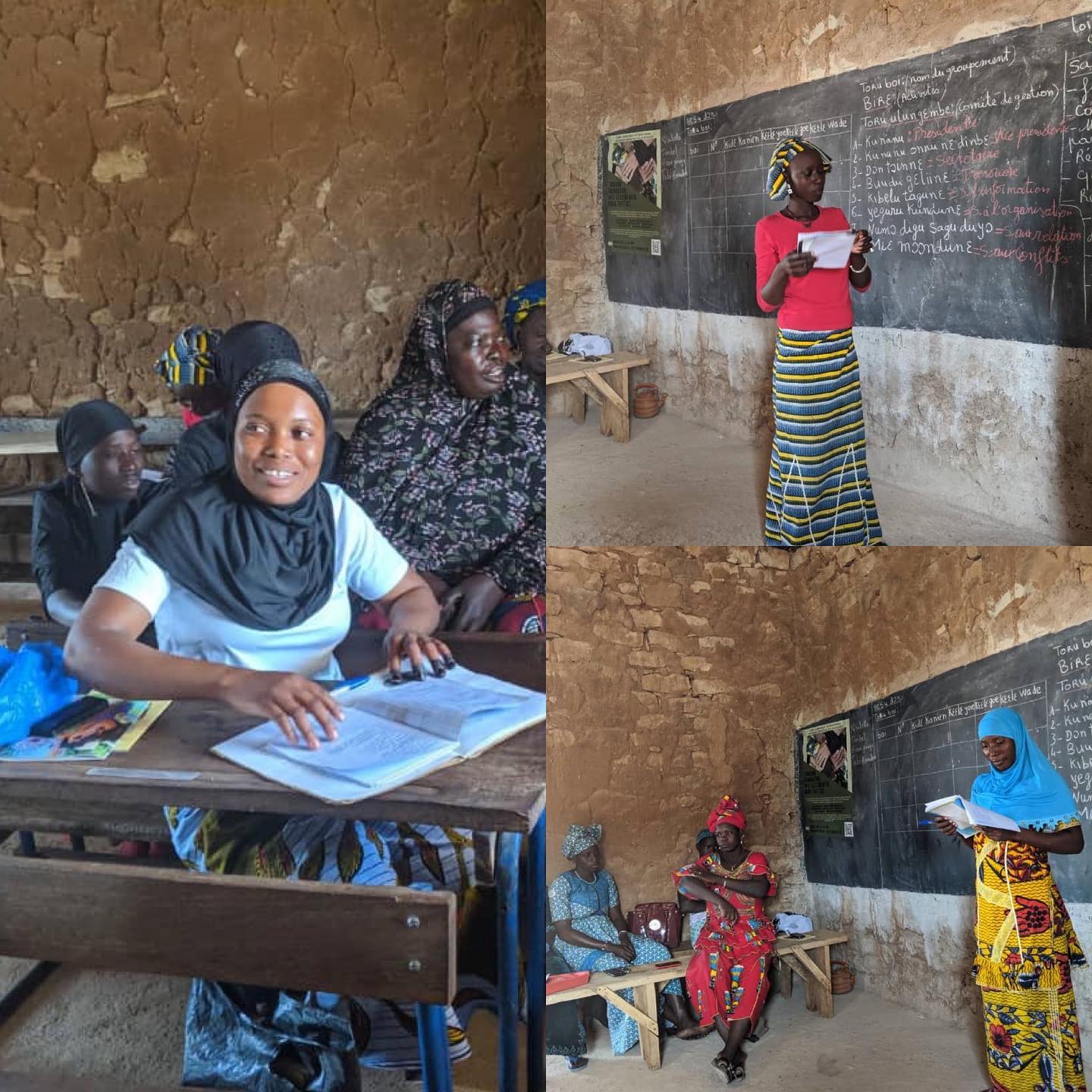
A series of three 8-day workshops for 80 women leaders has been completed in Mali. Each literacy class from 2019 delegated class members to attend the workshops. Participants learned how to form, manage, and lead official women's associations, make business plans and keep records. They also had a chance to share their experiences as women speaking up and getting involved in local decision-making and provide encouragement to each other. At the end of the workshop, the participants showed off what they learned, and celebrated. Check out a video of their last day  here.
here.
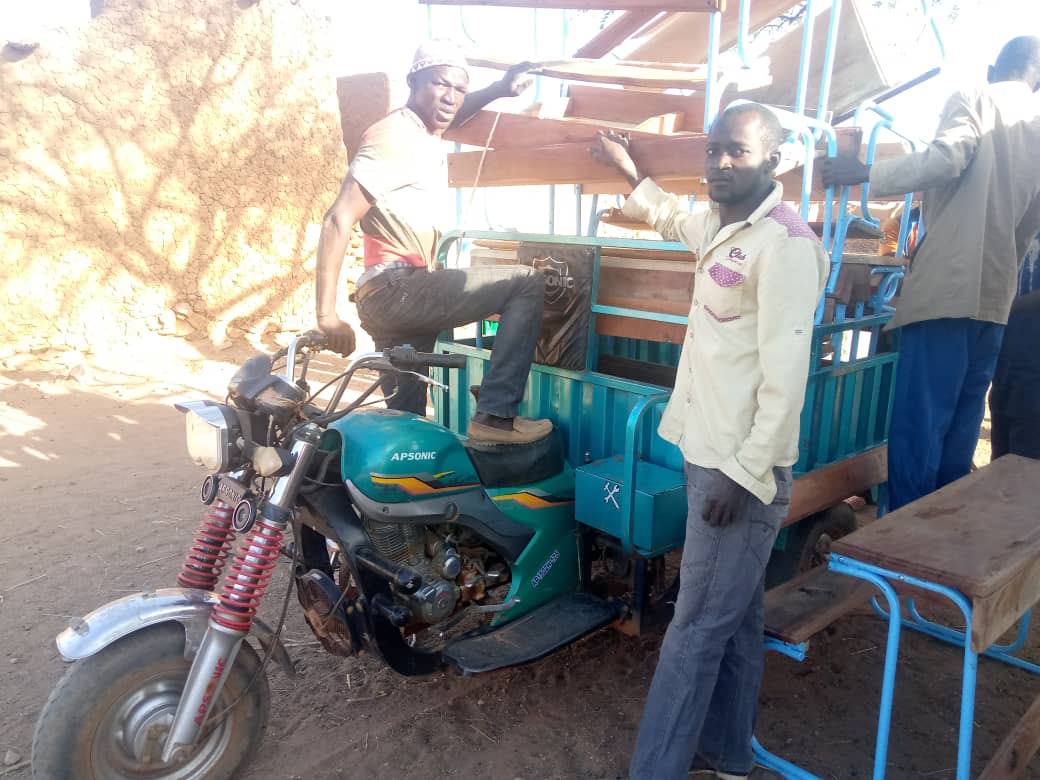
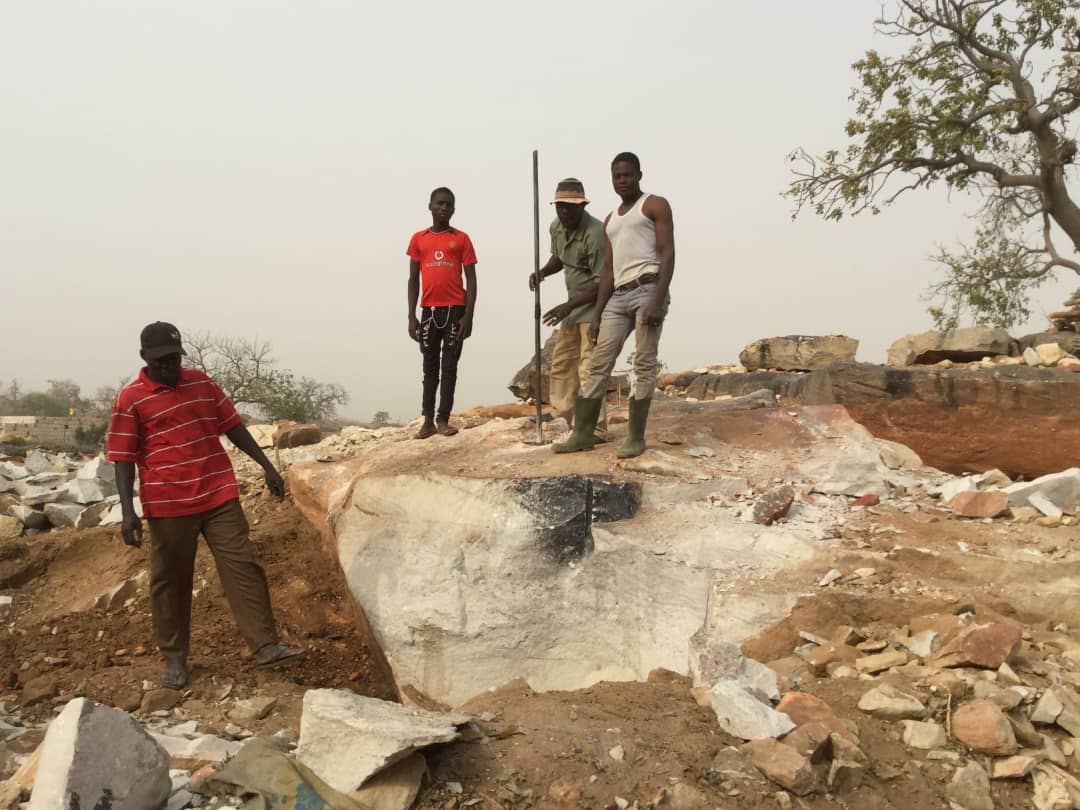
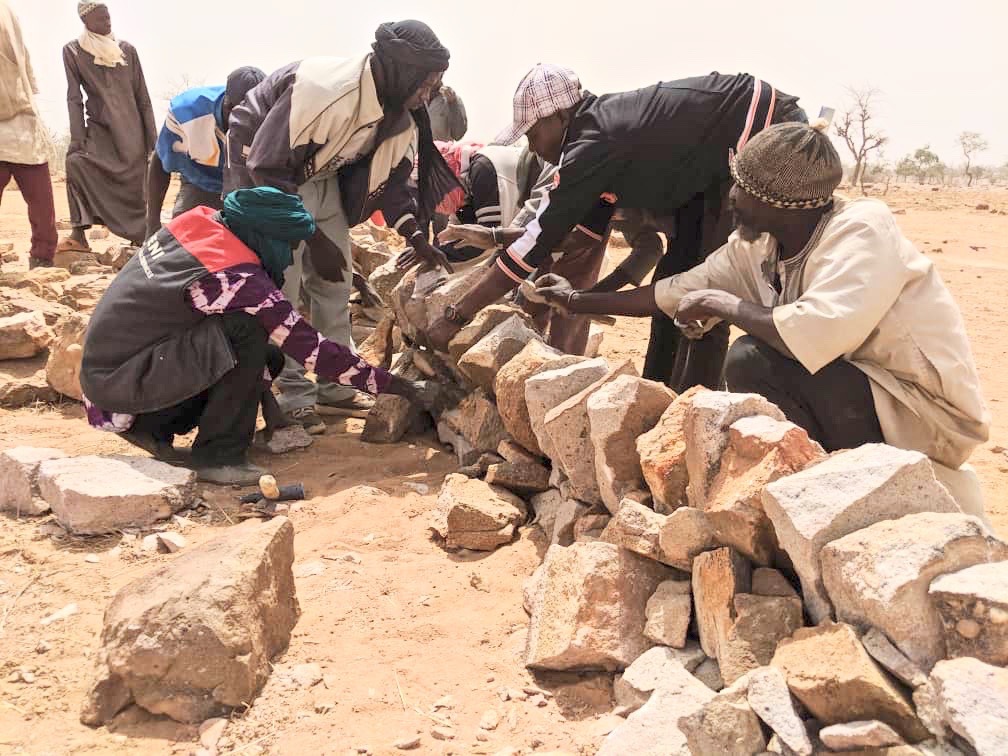
 here.
here.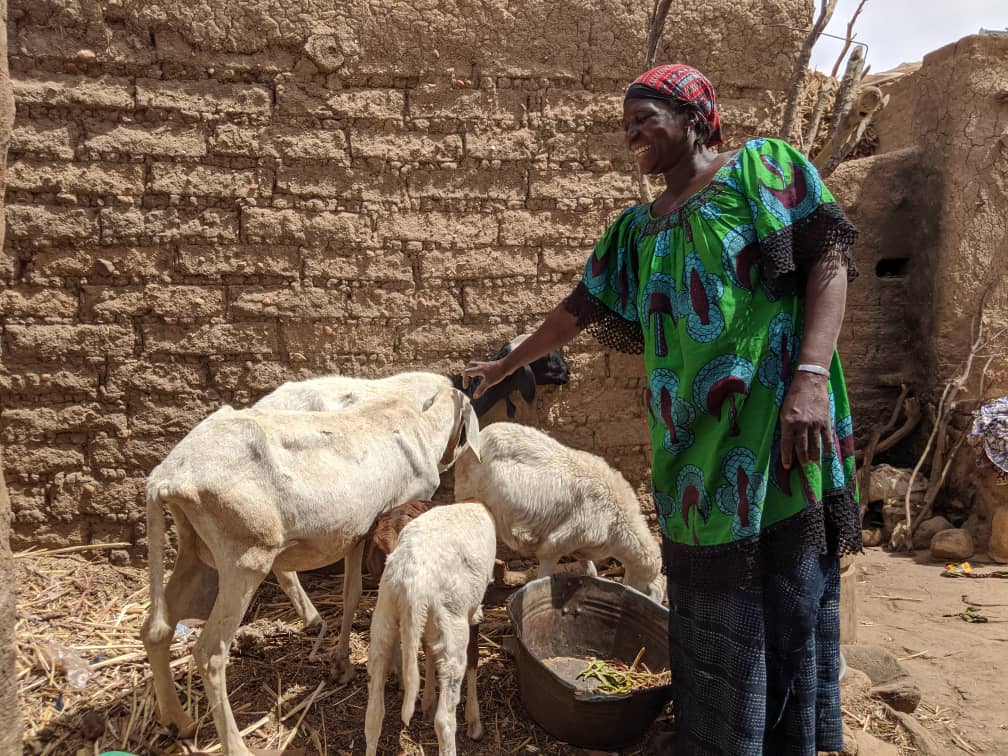
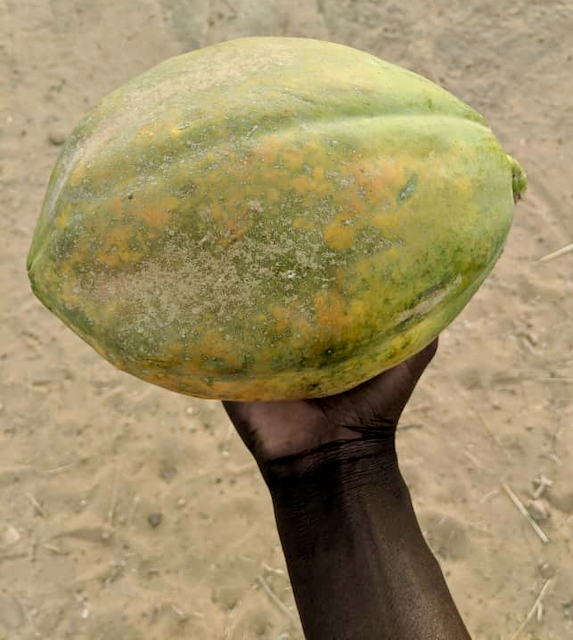

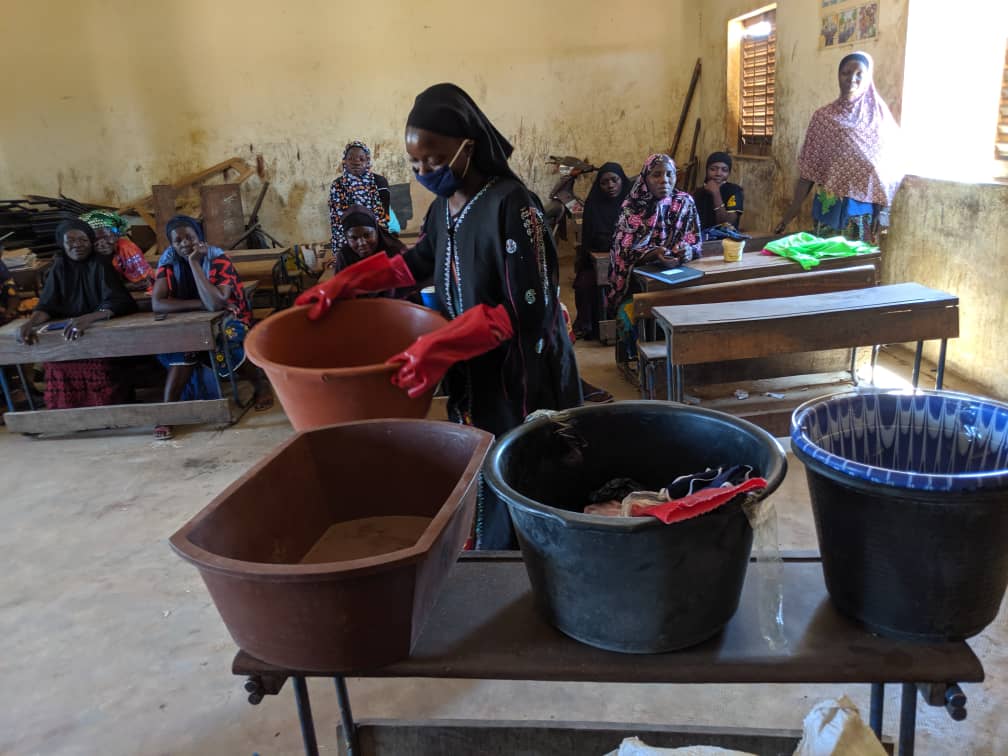


The Olouguelemo Environmental Association held a socially-distanced meeting of the leadership committee and representatives from each village, instead of the large general assembly they would have had in the absence of the pandemic. They later announced the 4th Annual Olouguelemo Reforestation Campaign which was kicked off in Kansongho. The reforestation campaign is supported by the Olouguelemo Environmental Association, the office of the mayor of Wadouba Township, and The Tandana Foundation. It rained last week to water the trees which is a good sign for the success of the campaign. Also, thanks to the environmental protection work of the Olouguelemo Environmental Association in Mali, there are wild fruits growing abundantly in the protected forest areas. The reforestation campaign was completed with a total of 1,890 trees planted in 20 villages, at 3 schools, and at 5 other public buildings.

The residents of Andjine are taking full advantage of the stock pond that Tandana helped them create. This year, good rains filled the pond to the brim, and they are using its water to grow peppers, okra, eggplant, corn, squash, sweet potatoes, and cowpeas.

The emergency COVID response commission of Ningari has completed its work and held its final meeting. The commission thanked The Tandana Foundation for its support. Currently, all of the identified positive cases of COVID in Ningari have recovered, and there are no new cases reported. Families are using the small hand wash kits that Tandana provided, and residents are using the large handwash stations in public places.
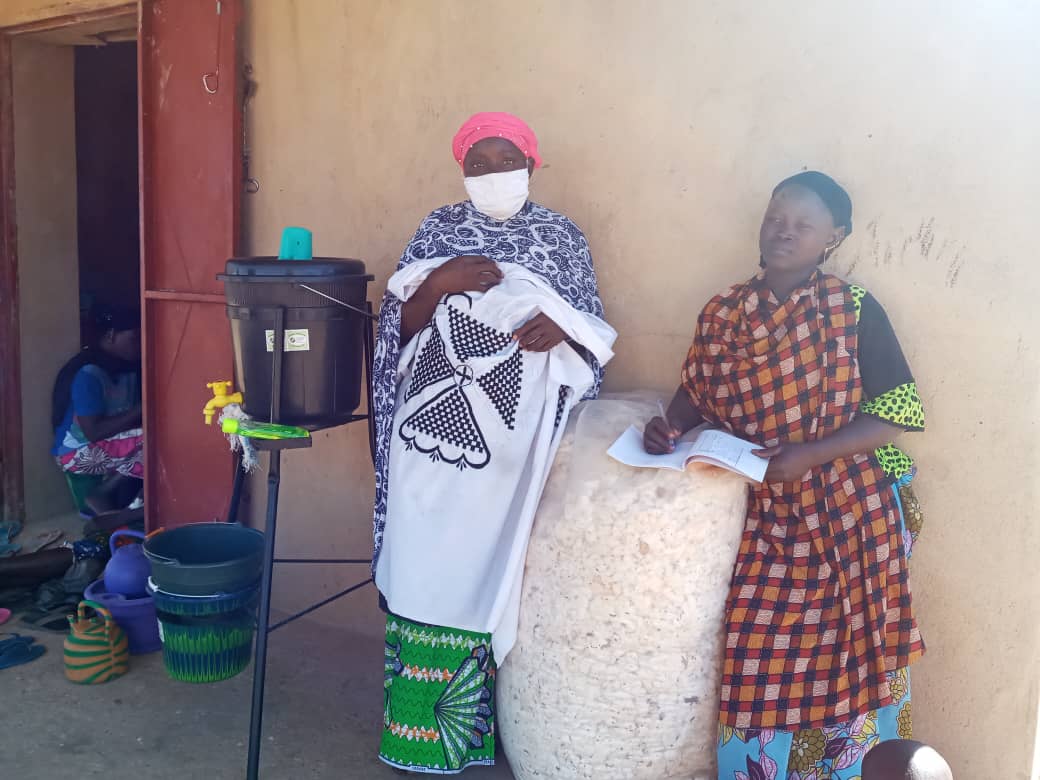
The Papa Hubert Cotton Bank in Dana-Guire, Mali was started in 2018 and continues to function well, giving women an opportunity to earn income by transforming cotton into cloth. A few weeks ago, another NGO, without making any preparations with the village, sent a teacher to Dana-Guire to teach young people who are past school age. They brought the teacher with all of his luggage and told the village chief that he needed a classroom to teach in. Since he hadn't had any warning, the chief said that he could teach in the cotton bank building and that could be the classroom. But Kadidia Yanogue, the President of the cotton bank, stood up to the chief and said, "No, this building was built for our cotton bank. We need it to store the large lot of cotton that we will buy soon, and we use it as our meeting place for women. This can't be turned into a classroom. You will have to find another place for the teacher to hold classes." It took a lot of courage for a woman to speak up against what the village chief said, and her willingness to take this risk shows how important the cotton bank is to the women of the village, as well as the confidence that the women's leadership workshops have inspired. The chief listened and decided that the men would build a shade hangar for the classes to be held in.
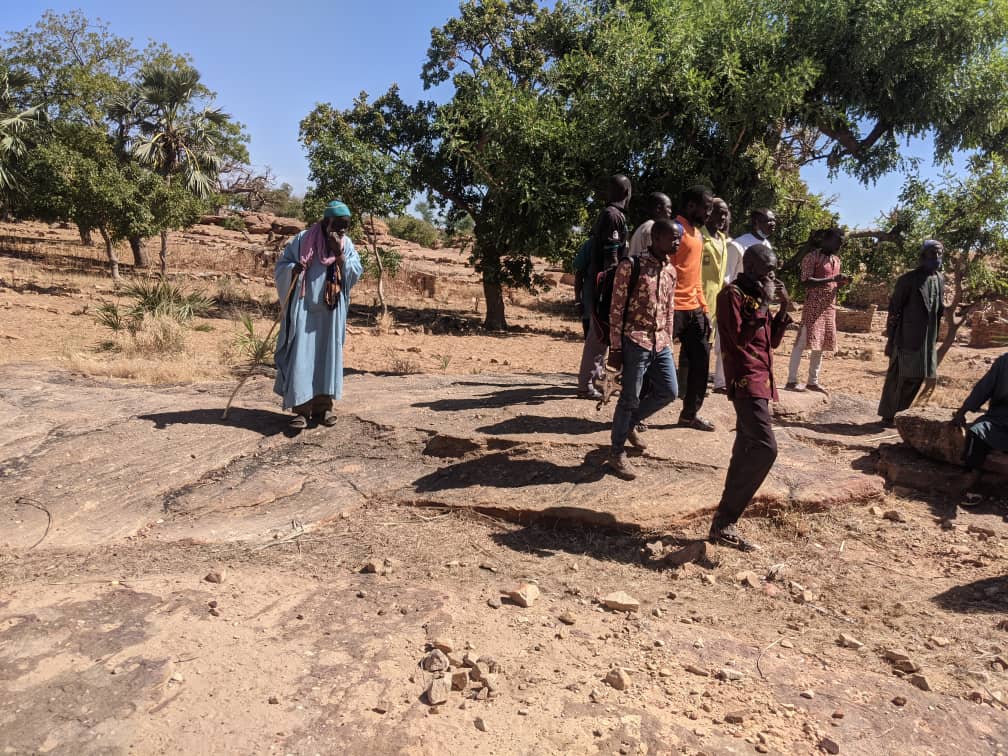
Work is starting on the construction of the new health center in Sal, Mali, thanks to a generous gift from Kitty and Dick Rosenthal. Here is a photo of the site for the new health center, which will serve about 9,000 people, who currently have to travel long distances over rough tracks to access health care. The residents of Sal have completed breaking the stones for the foundations of the five buildings, and the contractor is transporting the sand and gravel needed for the construction.
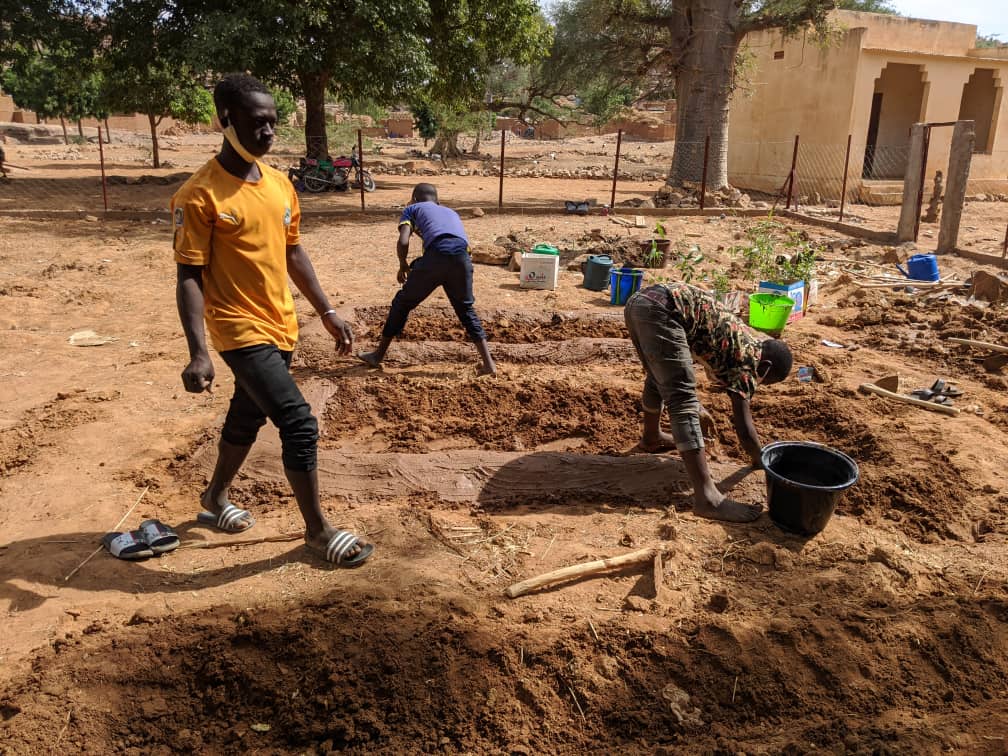
The school gardens in Saredina and Ondogou are ready for action! For both gardens, the fences have been installed, the management committees have been selected, and students, teachers, and parents have participated in training workshops on gardening techniques and management. Both trainings hosted more participants than expected, and we are now eagerly waiting for the plants to be ready for harvest.
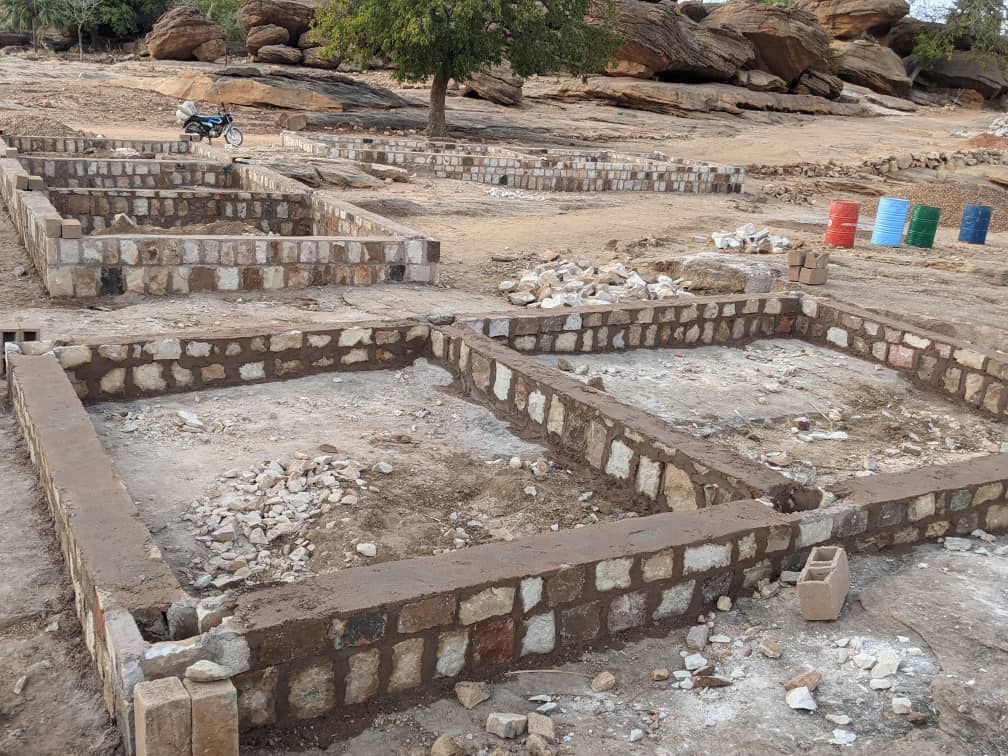
Construction of the Sal Health Center is moving along. At the beginning of the month, the contractor, the masons, and some residents of Sal laid out the corners and built a water reservoir to store water for mixing cement and for other purposes throughout the construction. Now, they are almost finished with the foundations for the main buildings.
2019
Ecuador
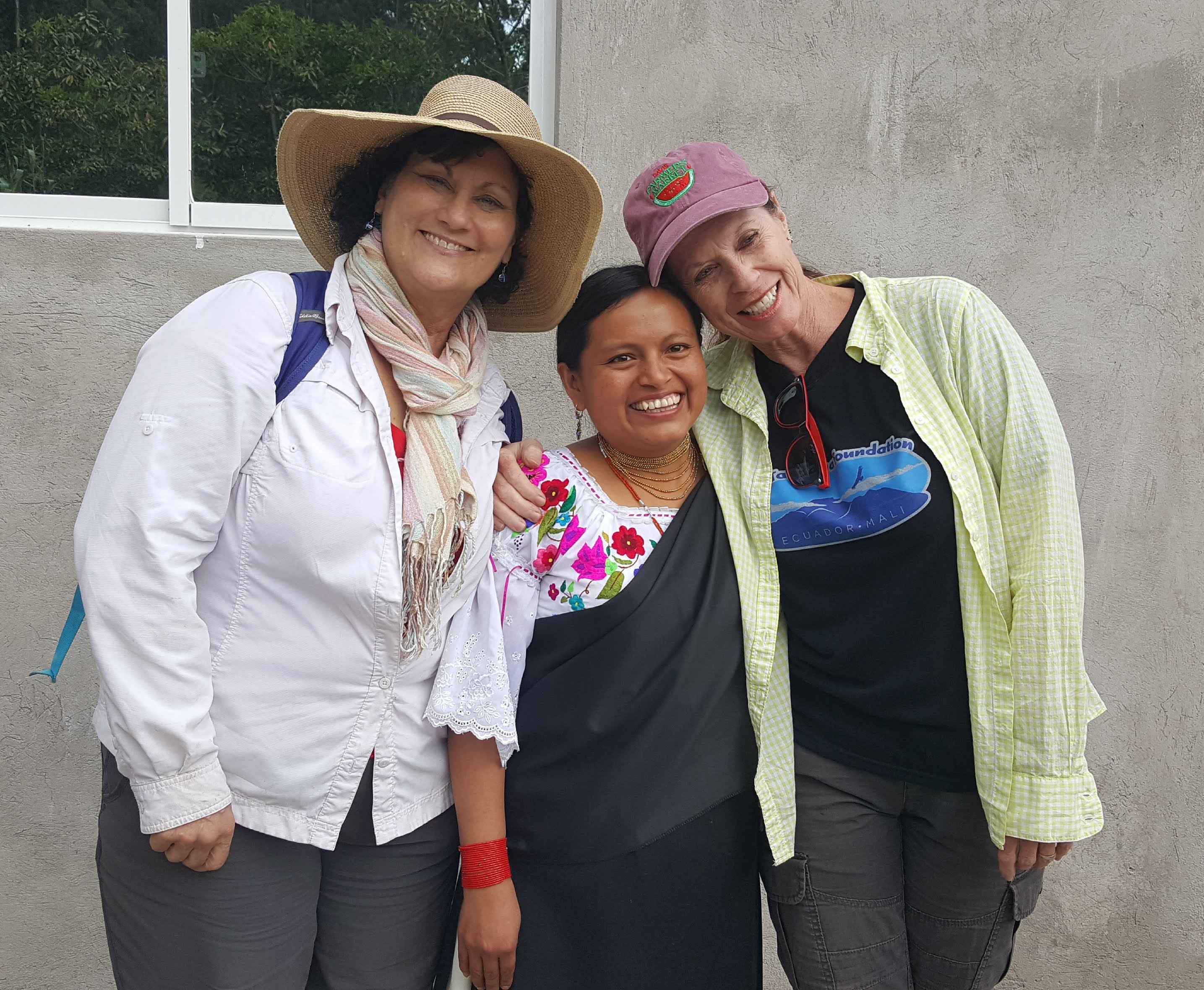
Volunteers from the Ohio Master Gardeners joined Tandana for a week-long adventure to complete different gardening projects and cultural exploration. All week the group was accompanied by our knowledgeable, community friend, Matias Perugachi. They were able to help him work on his land and get dirty assisting with maintenance. The group spent three mornings working in Inguincho at the weather station planting medicinal plants and a variety of trees. Then, they were able to learn about the significance of the weather station to the area and the work that takes place. The group participated in a few afternoon cultural exchanges, learning about traditional dress and cooking methods, attending healing ceremonies and sharing meals and cooking with local friends. The group also had time to explore the Polylepis forest and learn about its unique ecosystem. On the final day, the group joined students and teachers at La Joya school to plant and enjoyed a snack and dancing together.
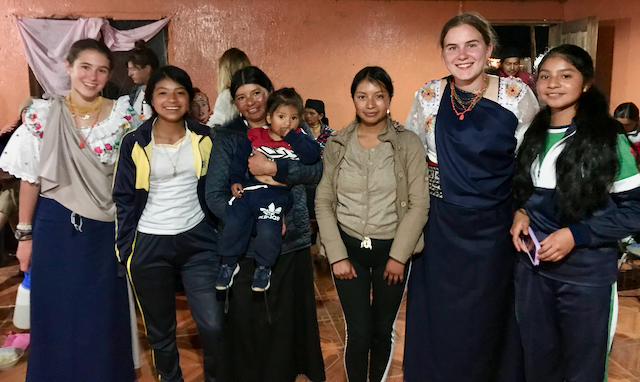 Students from The Traveling School visited and stayed in homestays with the community of Agualongo for a week. During this time, the girls continued their general high school studies all the while experiencing Indigenous Otavaleño culture. They assisted local community members in cleaning drainage trenches on the main road and then in a community minga, started the third wall for the soccer field and moved dirt and rocks to level out the field. The girls expressed their thanks by sharing words and a memory followed by a song in English and Spanish. The experience was enjoyable for everyone and the girls left the next morning full of ways they had grown and would continue to navigate their semester of travel.
Students from The Traveling School visited and stayed in homestays with the community of Agualongo for a week. During this time, the girls continued their general high school studies all the while experiencing Indigenous Otavaleño culture. They assisted local community members in cleaning drainage trenches on the main road and then in a community minga, started the third wall for the soccer field and moved dirt and rocks to level out the field. The girls expressed their thanks by sharing words and a memory followed by a song in English and Spanish. The experience was enjoyable for everyone and the girls left the next morning full of ways they had grown and would continue to navigate their semester of travel.
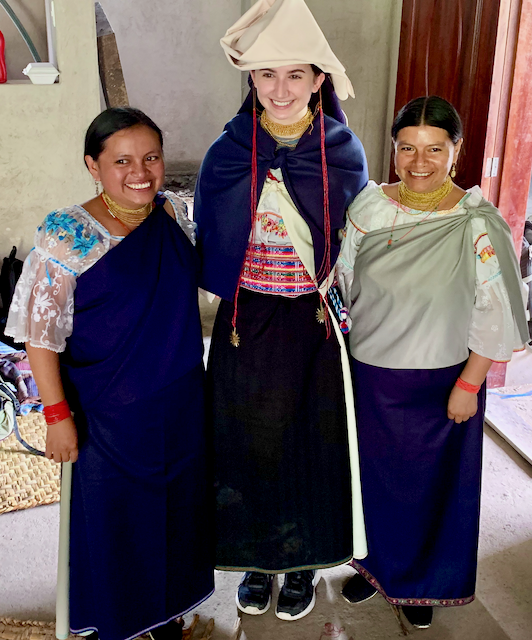
Students from Arendell Parrott Academy began their week full of activities with a visit to Kawsaymi cooking school where they helped prepare a traditional meal and even tried a local delicacy- guinea pig. They spent their afternoons at the Panecillo school teaching art classes to the students. The kids loved making kaleidoscopes, giant paper flowers, seashell necklaces, and color-changing bracelets, and the group enjoyed practicing their Spanish to lead the projects. Additionally, the group contributed to 2 service projects- repainting the bathrooms, and painting a mural inside the school. On their final day at the school, the visiting students and Panecillo students played games and danced together. The event ended with a dance choreographed by the visiting students that the school dance group performed. The group enjoyed all of the activities that they participated in, but the highlight was working with students at the school where they made new friendships and hope to visit again one day.
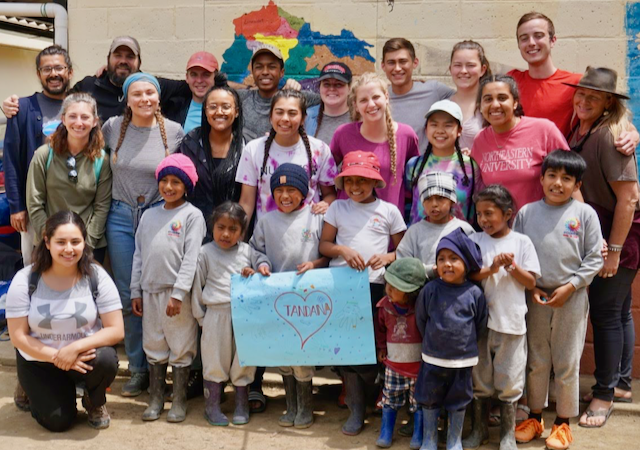 The Tandana Foundation welcomed thirteen students from the Northeastern University Alliance of Civically Engaged Students (NU ACES) for a week long service project in the remote community of Motilón Chupa. Their project for the next four days was to work with community members to dig out a new water containment system. Fortunately, the first day on site was a minga (a community work day that included a representative from every household in the community). The afternoons were full of interesting activities with new local friends, like participating in the carnaval tradition of a community-wide water fight. Everyone was soaked and loving it. Mama Maria taught us how to make local cheese and Maria Cortez treated us to fanesca, a traditional soup that is served around Easter. We worked hard and ate well.
The Tandana Foundation welcomed thirteen students from the Northeastern University Alliance of Civically Engaged Students (NU ACES) for a week long service project in the remote community of Motilón Chupa. Their project for the next four days was to work with community members to dig out a new water containment system. Fortunately, the first day on site was a minga (a community work day that included a representative from every household in the community). The afternoons were full of interesting activities with new local friends, like participating in the carnaval tradition of a community-wide water fight. Everyone was soaked and loving it. Mama Maria taught us how to make local cheese and Maria Cortez treated us to fanesca, a traditional soup that is served around Easter. We worked hard and ate well.
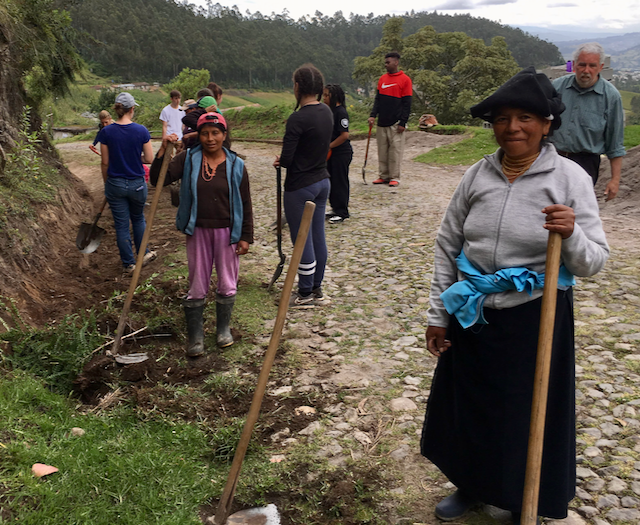 The inaugural group from Purcell Marian High School joined the Tandana Foundation in Ecuador on March 6th. The students and teachers quickly moved into their home stays in Agualongo and shared a week with their new families. They participated in three work days in the community cleaning the roads and putting in an drainage system for the soccer stadium. Students were able to learn about local indigenous Otavaleño culture while sharing meals and experiences every day. There was not a shortage of beautiful places as the group traveled to Lake Cuicocha, Lake Yahuarcocha and hiked up to a site to cook and eat lunch. When students were expressing gratitude and preparing to leave the community, an unexpected flight cancellation gave them three extra days. The extra days were spent visiting Taxopamba waterfall, a traditional cooking class, making bracelets, and a full day exploring Quito. The memories and friendships made will last a lifetime.
The inaugural group from Purcell Marian High School joined the Tandana Foundation in Ecuador on March 6th. The students and teachers quickly moved into their home stays in Agualongo and shared a week with their new families. They participated in three work days in the community cleaning the roads and putting in an drainage system for the soccer stadium. Students were able to learn about local indigenous Otavaleño culture while sharing meals and experiences every day. There was not a shortage of beautiful places as the group traveled to Lake Cuicocha, Lake Yahuarcocha and hiked up to a site to cook and eat lunch. When students were expressing gratitude and preparing to leave the community, an unexpected flight cancellation gave them three extra days. The extra days were spent visiting Taxopamba waterfall, a traditional cooking class, making bracelets, and a full day exploring Quito. The memories and friendships made will last a lifetime.
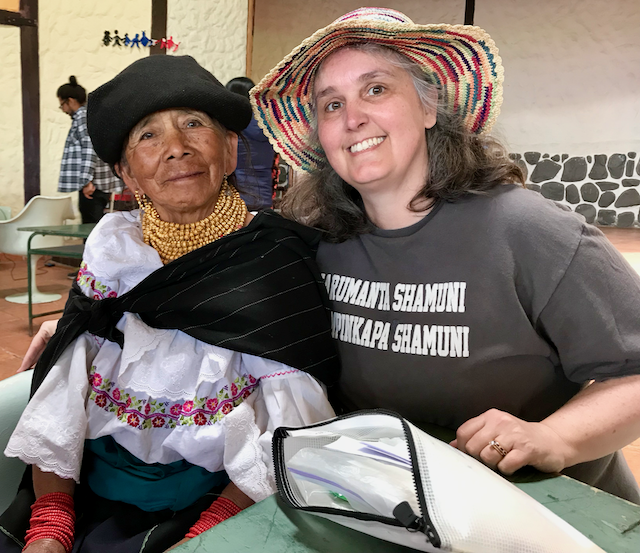
The 25th Health Care Volunteer Venture kept us very busy. Our usual pace of 10 clinics in 10 days was tempered by some great afternoon adventures like visits to the local cultural history museum and to the home of our dear friend Margarita. Our clinic mornings took us near and far as we traveled to remote communities like Motilon Chupa and Muenala, mountain top locations with views (on a clear day!) of distant volcanoes and valleys below. But we also stayed close to town with a visit to nearby community La Banda. With so many returning volunteers, we got off to a running start and our team came together very quickly. We tried out a new afternoon activity with a local leather shop, La Tierra. Volunteers had a chance to try their hands at leatherwork and everyone created a small passport-sized leather carrying case. It was a wonderful way to shift gears from the busy rhythm of clinic and relax for a moment. We appreciate the flexibility and dedication of our volunteers!
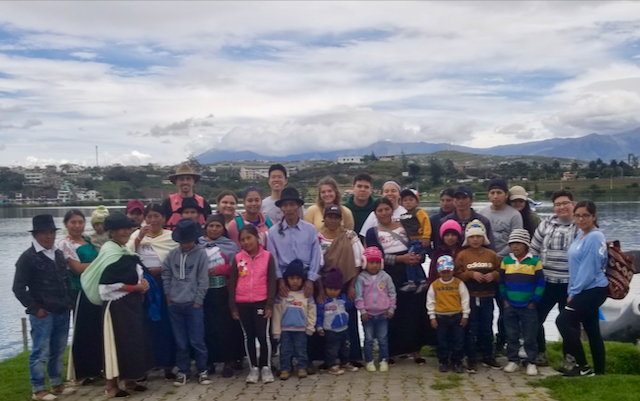
In May the Tandana Foundation was joined by a group of 8 students and one leader from Colgate University. The students stayed with host families in the community of Motilon Chupa where they were able to bake fresh bread, try colada morada, cook for the community, and work to help build a water tank at the top of the hill of the community. This was phase two of the project and students moved heavy mud and mixed and moved concrete to build the base and three walls of the tank. Students were pushed to their limits with 7 half days of hard work. Other activities included a cooking class, kichwa lessons and a talk about global warming and the effects on food, Otavalango museum to learn about kichwa culture, a speaker on local indigenous politics and also a day tour of the agricultural technical high school.
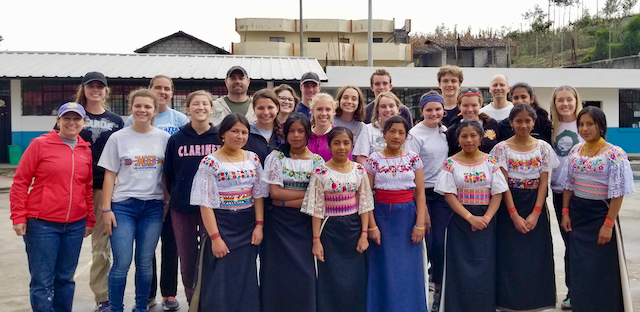 When the group from Bellbrook, Ohio arrived, they went right away to cook at the Kawsaymi cooking school and restaurant where they made a delicious traditional dinner. During the week they also participated in activities such as making dreamcatchers and bracelets, making bread, learning about Kichwa traditions and clothing, visiting the solar clock in Cayambe, hiking to Taxopamba waterfall, and of course spending some quality shopping time in the Plaza de Ponchos in Otavalo. All of these activities were on top of the service project that they completed at the local school in Tangali. They assisted the parents’ organization in painting the outside of the many buildings that make up the school. They also spent some time playing with the school kids, and partook in a couple of friendly soccer matches on our last day at the school. They had a fantastic week participating in the program, and many of them would like to return to work on another project and visit the friends they made at the school.
When the group from Bellbrook, Ohio arrived, they went right away to cook at the Kawsaymi cooking school and restaurant where they made a delicious traditional dinner. During the week they also participated in activities such as making dreamcatchers and bracelets, making bread, learning about Kichwa traditions and clothing, visiting the solar clock in Cayambe, hiking to Taxopamba waterfall, and of course spending some quality shopping time in the Plaza de Ponchos in Otavalo. All of these activities were on top of the service project that they completed at the local school in Tangali. They assisted the parents’ organization in painting the outside of the many buildings that make up the school. They also spent some time playing with the school kids, and partook in a couple of friendly soccer matches on our last day at the school. They had a fantastic week participating in the program, and many of them would like to return to work on another project and visit the friends they made at the school.
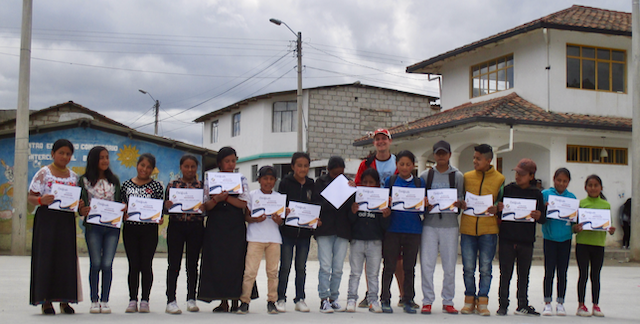
Now that the summer school has come to an end, we are exhausted but sad that it is over. The team of five teachers had a wonderful experience teaching English, art, sports, indoors games, theatre, math, science, documentaries, and animals classes. We had amazing trips to two lakes in the area and a pool nearby. Students presented their English knowledge and three plays in the final day performance. Afterwards 200 family members, staff and students enjoyed amazing hornado (a dish of potato patties, pulled pork and mote)! Fun was had by all!
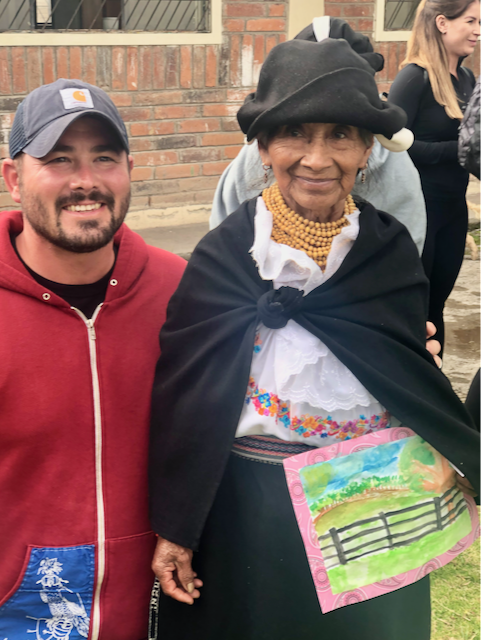
Tandana recently had the pleasure of hosting a group from Boston Scientific. The group had the opportunity to do many different types of jobs from painting and gardening to building the walls of a water tank and digging a trench to repairing a road. The group also had a lot of fun. They spent time with many local friends cooking traditional dinners including guinea pig known locally as cuy. They also got to tour the traditional birthing rooms at the award winning Otavalo Hospital and see traditional cleansings to see how natural medicine is practiced. They had lunch in the communities and got to spend one afternoon painting with elders of the community. The relationships that were built will last a lifetime. Participants had a challenging week but were up to the challenge of stepping out of their comfort zone for the common good. They learned the word minga and were able to practice working together for the good of all the whole week.
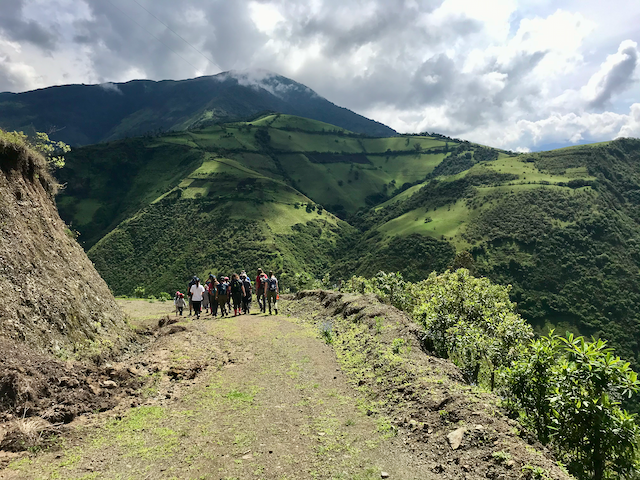
Shortly after the ARCC group arrived in Otavalo they were whisked away for their week-long stay in Motilon Chupa. Mornings were spent working with community members on the third phase of a water tank project, and after a few long days of carrying supplies and mixing cement, the final wall of the structure was completed. During two of the “mingas” (everyone coming together to work for a common goal) the women of Motilon Chupa cooked lunch for everyone at the worksite, and the volunteers were able to try local cuisine such as potatoes, corn, fava beans, fresh cheese, and a traditional soup. The group of travelers also had the opportunity to engage with community members in the afternoon, doing activities such as bread making, pizza making, a hike to a microclimate where they were able to make and try sugar cane juice, and spending time with students from the local school. They were also able to see an exposition done by the mothers of the school about their project to knit and sell hats. The group’s energy made it possible for full days of work, activities, cooking, and playing with the kids. The week concluded with some heartfelt speeches from both the community members and the volunteers, and with handmade cards that the school children made for the group. After a fun night of dancing and eating, the group said their goodbyes and the next morning returned to Otavalo to continue on their journey.
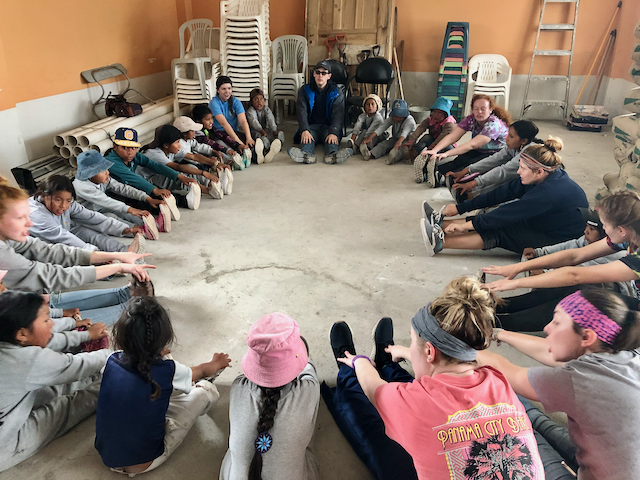
Right after the semester ended, eleven students and two leaders from a Lindsey Wilson College community service group, came to Ecuador to support the community of Cutambi in Ecuador. These hard working participants had five full work days and managed to complete a painting and cement project alongside community members. They painted one room of the community center, cement paved a sidewalk and some stairs, and smoothed out the side of the community kitchen with cement. In the afternoons, LWC participants were able to take a local cooking class, learn how to make bracelets, learn embroidery, and play games with the students at the school in Cutambi. After dinner each night one would find the group at the kitchen table working on their embroidery projects. Margarita Fuerez, Tandana’s accountant, and our embroidery expert was so proud of all the work they did with their embroidery projects. The final day in the community students were able to experience a pamba mesa (potluck style meal) in the community while they said goodbye to all their new friends. Then, on their last day in Ecuador, they took a trip to Cuicocha Lake and hike for about two hours, this was followed by Tandana’s despedida (going away party) and then off to their airport. The Tandana Foundation hopes to host LWC participants in the coming year, what a great group!
Mali

Tandana's ten literacy instructors have begun new classes with 300 students! They are excited to bring numeracy and literacy skills to more women in more villages in covered, open-air classrooms. To the right is a picture of nine of the instructors who will be teaching the classes this year. To learn more about the Literacy program in Mali please click this  link and then click on the literacy and leadership tab. We are excited about expanding this program to reach more women!
link and then click on the literacy and leadership tab. We are excited about expanding this program to reach more women!
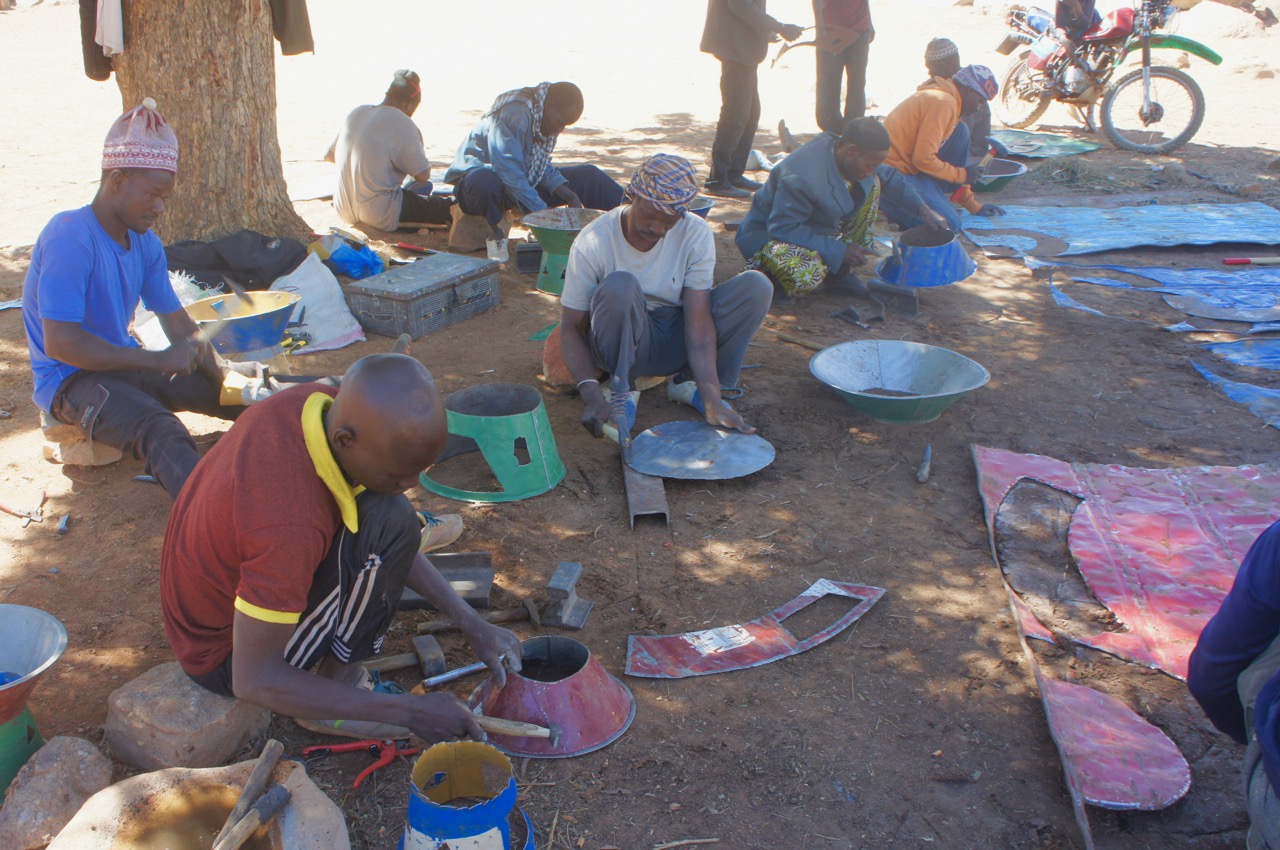
Representatives from the  Olouguelemo Environmental Association's five new member villages and volunteers from nine additional villages learned how to make efficient cookstoves that reduce the need for firewood. Representatives of the new member villages also received bicycles and boots to help them in their conservation work in the protected forests. Leaders of the association also met with a contractor to survey the sites for the new stock ponds that will be created.
Olouguelemo Environmental Association's five new member villages and volunteers from nine additional villages learned how to make efficient cookstoves that reduce the need for firewood. Representatives of the new member villages also received bicycles and boots to help them in their conservation work in the protected forests. Leaders of the association also met with a contractor to survey the sites for the new stock ponds that will be created.
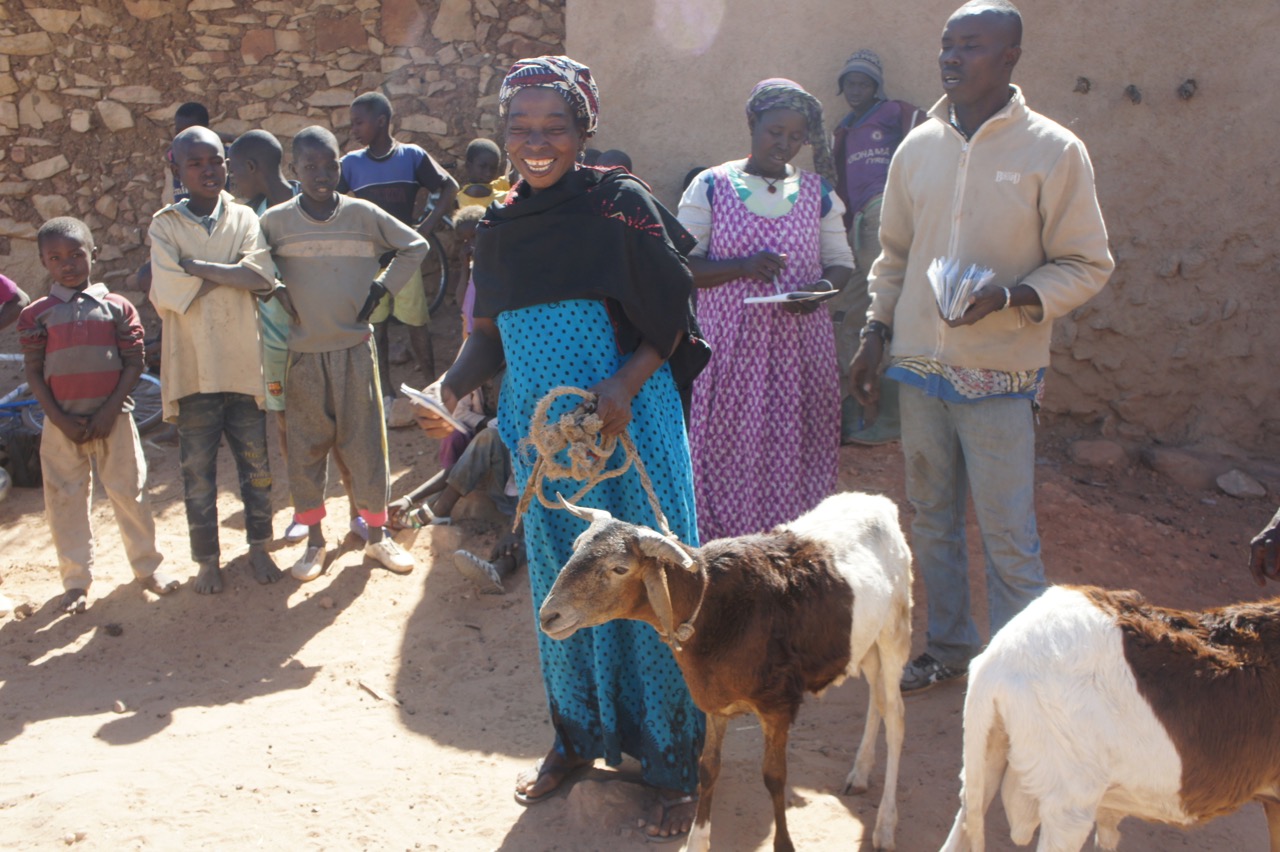
The women’s association of Kani-Gogouna, one of the groups selected to receive funding for their new business, has used their funds to purchase sheep and get training on how to vaccinate them. To the right is a photo of some happy members of the association with their sheep.

The  Student Mothers Program exists because often times in Mali, when a female student becomes pregnant, she is unable to support herself and ends up having to drop out of school. The program was formed to support them through this critical stage of their development and allow them to continue to study. This year, the ten student mothers have received their food and supplies for this academic year and are ready to study. To the left is a picture of some of the mothers receiving their supplies.
Student Mothers Program exists because often times in Mali, when a female student becomes pregnant, she is unable to support herself and ends up having to drop out of school. The program was formed to support them through this critical stage of their development and allow them to continue to study. This year, the ten student mothers have received their food and supplies for this academic year and are ready to study. To the left is a picture of some of the mothers receiving their supplies.
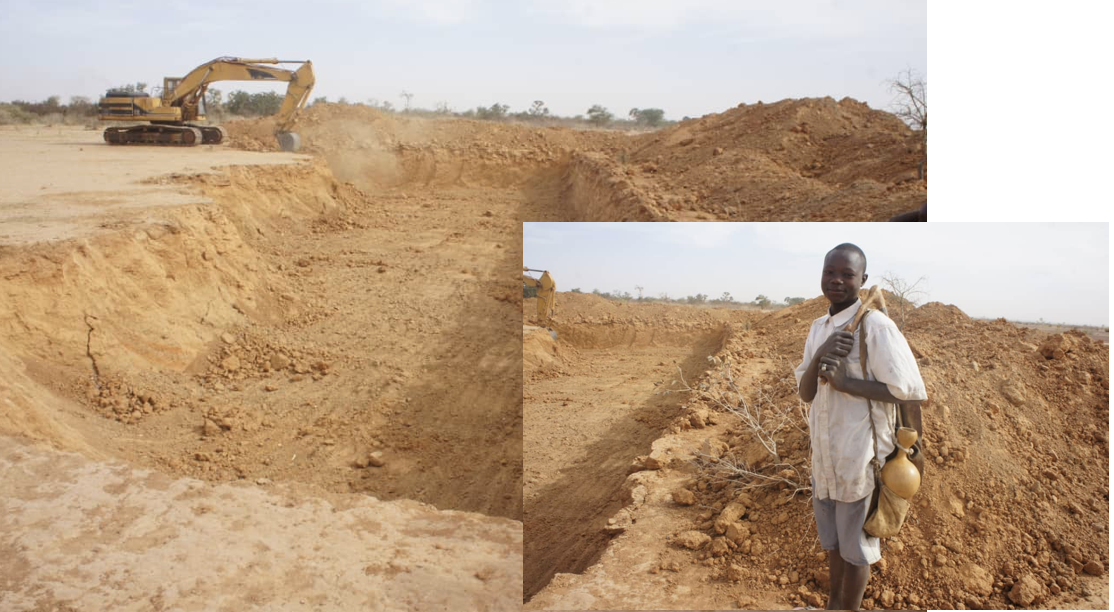
With Tandana's help The Olouguelemo Environmental Association has created two stock ponds. The ponds will conserve water for livestock, which will also help keep the livestock out of their protected forest areas. Also, the village of Sal Sombogou has just joined The Olouguelemo Environmental Association, bringing the total number of member villages to 17.
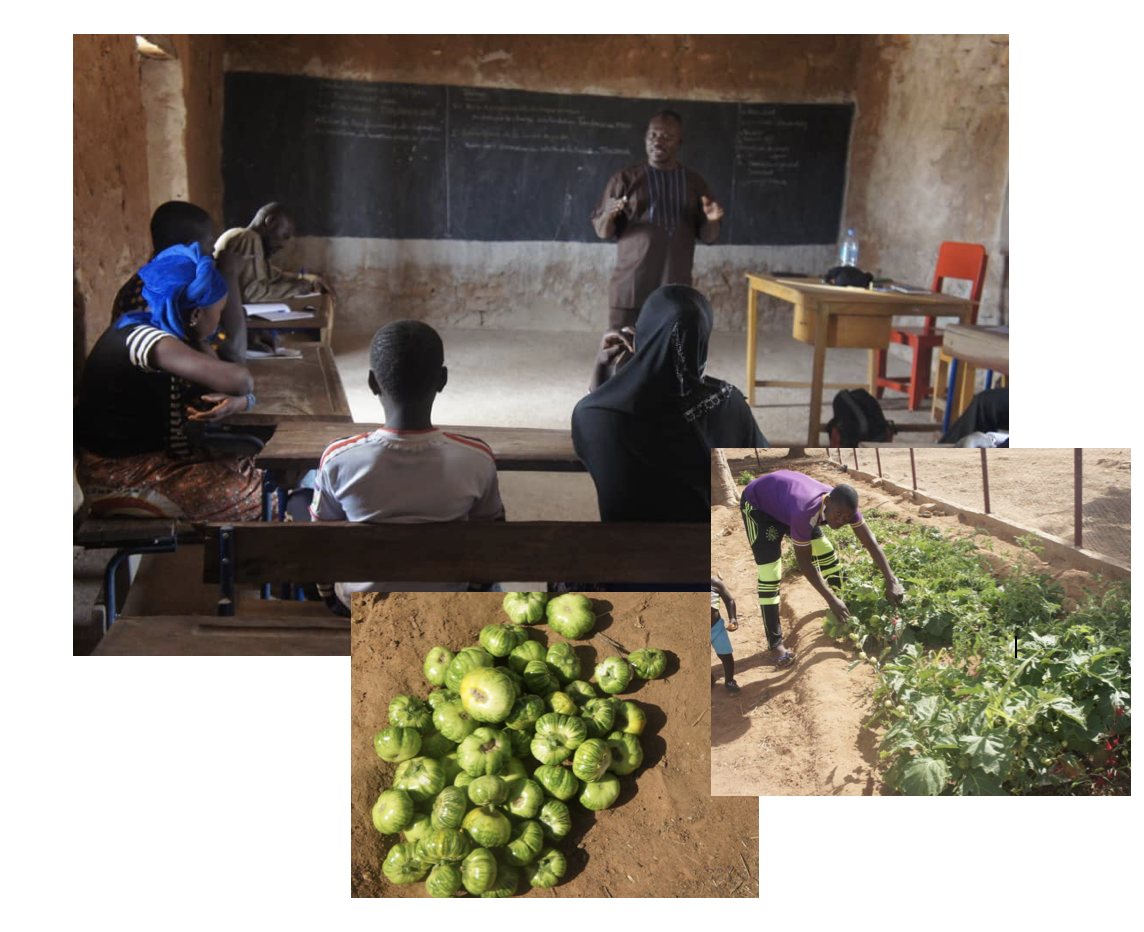
The students who were elected to this year's Kilegou School Garden management committee participated in a training session to learn how to take care of the garden and how to keep records. They are excited to learn new skills and take care of this important garden. The garden also received new water containers to facilitate irrigation.
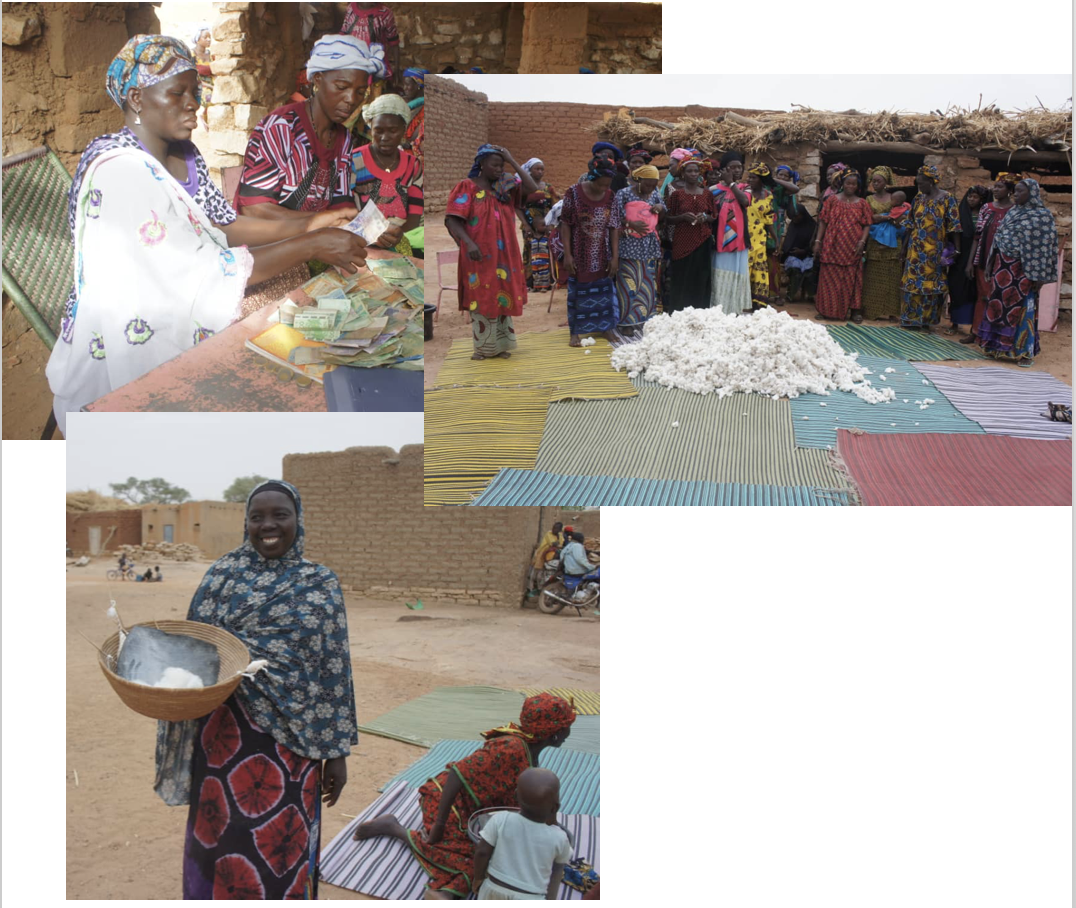
The women's association of Kedou was one of the groups who received funding for their enterprise turning cotton into cloth. They have all paid for the first lot of cotton and used the fund to buy a second lot. They have distributed this second lot among the members to be transformed into cloth and keep their businesses growing.
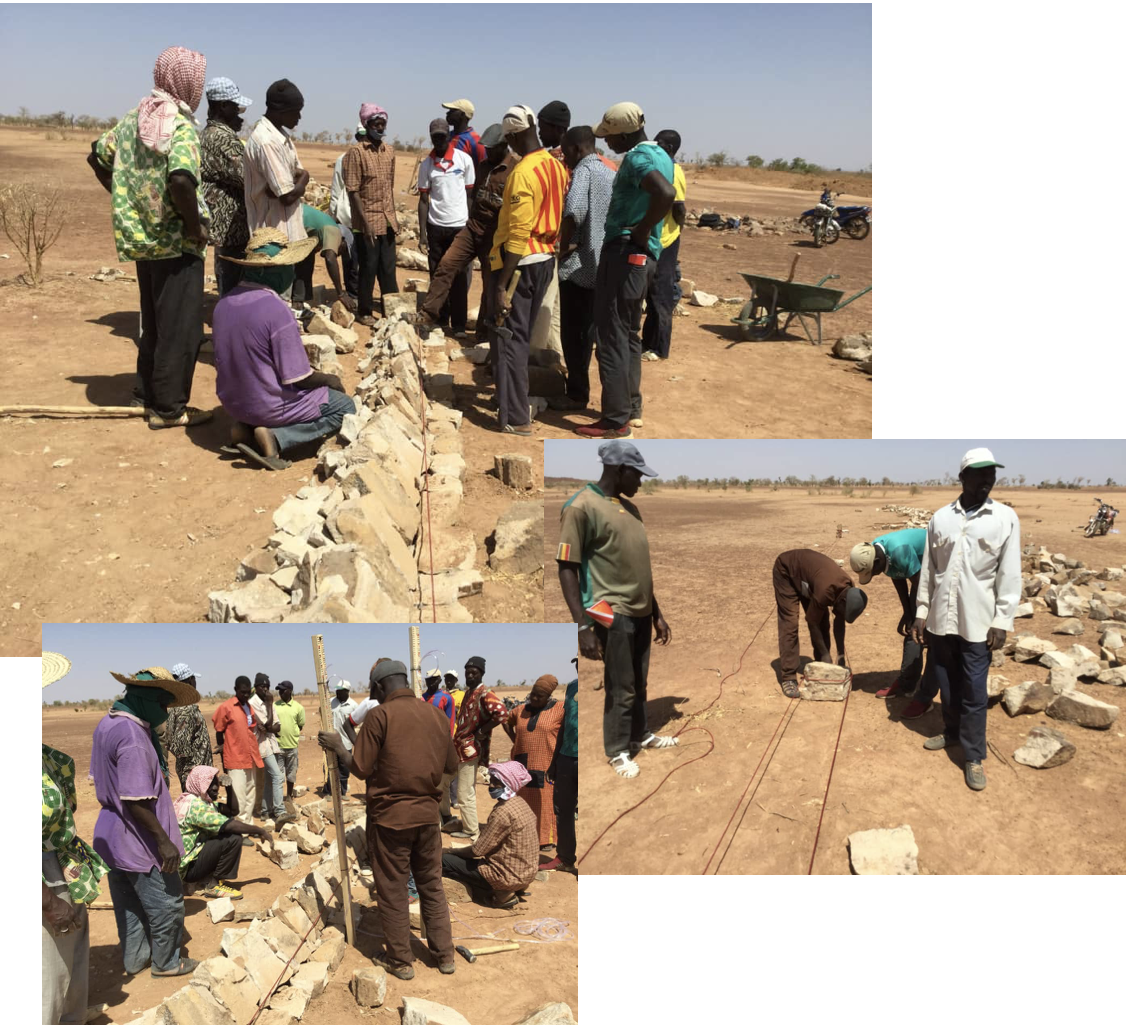
The Olouguelemo Environmental Association recently held a training session for representatives from 9 of its 17 member villages on the construction of stone contour lines for erosion prevention. A quick glance at the photos and it's clear how essential erosion prevention is for these farmers. During the training they learned how to construct stone contour lines to protect and enhance the new stock pond in Goundoly Dogon. The village representatives then went home and taught the techniques they have learned to other farmers in their villages. They also received tools, so that they will all have the ability to continue to build stone contour lines to prevent erosion in their own fields. This work will conserve both soil and water and increase crop yields.
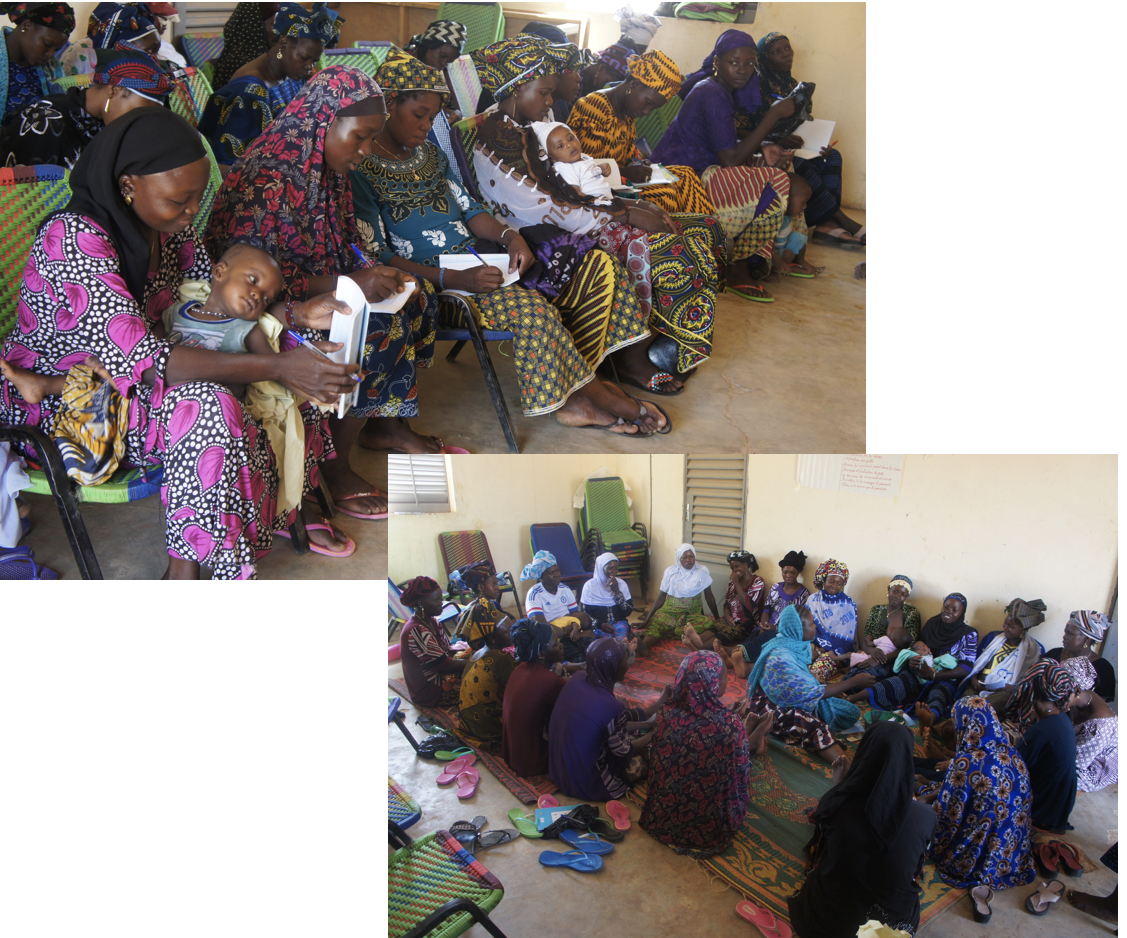
Our Mali team recently completed a training session for Savings for Change "replicators." These women, who are all members of existing Savings for Change groups, have now learned how to form and support new groups in their fund-sharing ceremonies. Now that they have the knowledge to create new groups they can bring the program to more women in and around their villages and ensure the beginners manage their fund-sharing well.

Thanks to the protection of the forests through the Olouguelemo Association, there has been an abundant harvest of Gogdio fruits, which used to be rare. There are even enough for some residents to collect and sell in the market.
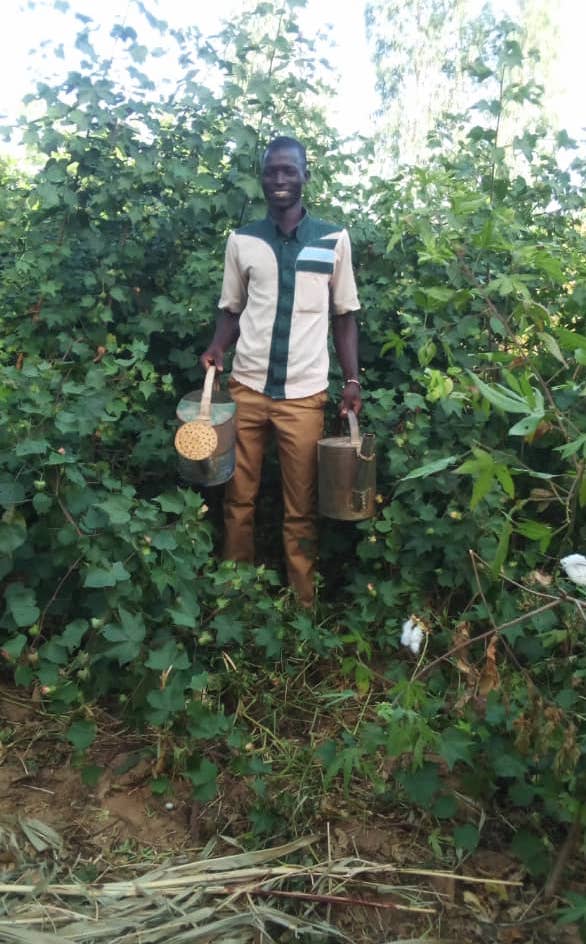
The school garden in the community of Yarou led by Ele Samakan, a teacher Tandana supports, is doing well. This is quite a feat as he is currently the only teacher at the school and has managed to keep it all running by himself.
2018
Mali

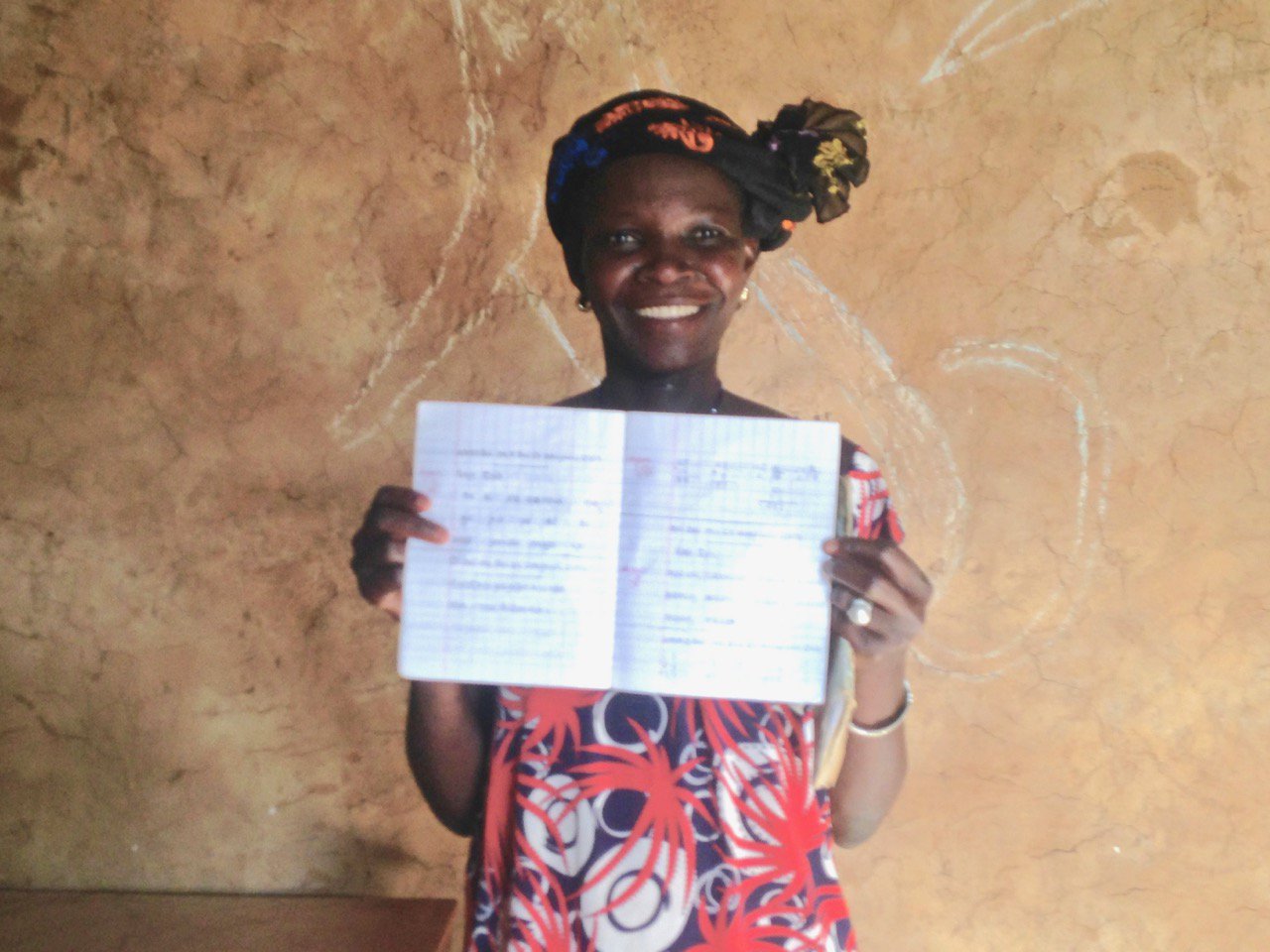
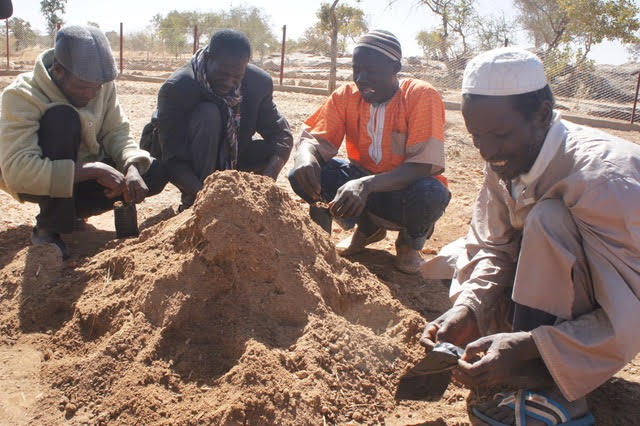
Olouguelemo's two new tree nurseries are in the villages of Gongo and Sandian. The tree nurseries' managers received training on how to produce young trees. The nurseries provide native, medicinal, fruit-bearing, and soil-enriching trees for both reforestation in the protected forest zones and for farmers to plant in their fields.
 The Savings for Change groups in Kani held their annual fund-sharing ceremony in February. At the ceremony, each member receives her savings plus interest, which she can use to buy whatever she needs – whether it is seeds for a garden, cotton to transform into cloth, clothing, food for a special event coming up, etc. Also, The Kansongho village has elected a new committee to manage the grain bank for the coming year. The new committee members participated in a training session to learn their roles and have now assumed their responsibilities. The grain bank is extremely important to ensure that community members can afford to buy millet at an affordable price all year round.
The Savings for Change groups in Kani held their annual fund-sharing ceremony in February. At the ceremony, each member receives her savings plus interest, which she can use to buy whatever she needs – whether it is seeds for a garden, cotton to transform into cloth, clothing, food for a special event coming up, etc. Also, The Kansongho village has elected a new committee to manage the grain bank for the coming year. The new committee members participated in a training session to learn their roles and have now assumed their responsibilities. The grain bank is extremely important to ensure that community members can afford to buy millet at an affordable price all year round.
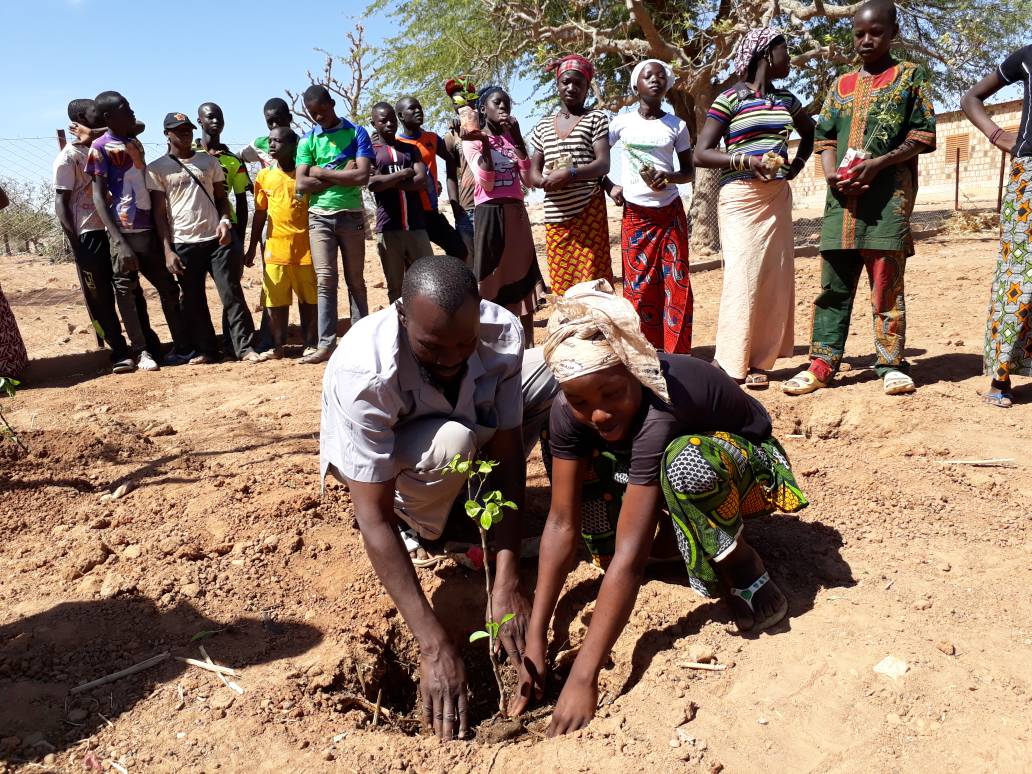
The fence is erected for the orchard of the school in Kilegou. The teachers and students have also received training in horticulture so that they can maintain this project on their own. This garden will help maintain a nutritious diet and also provide students with produce that they can sell in order to buy school supplies. The trend of school gardening is gaining strength and it seems that whenever school officials visit another school and see a garden, they would also like to have one.
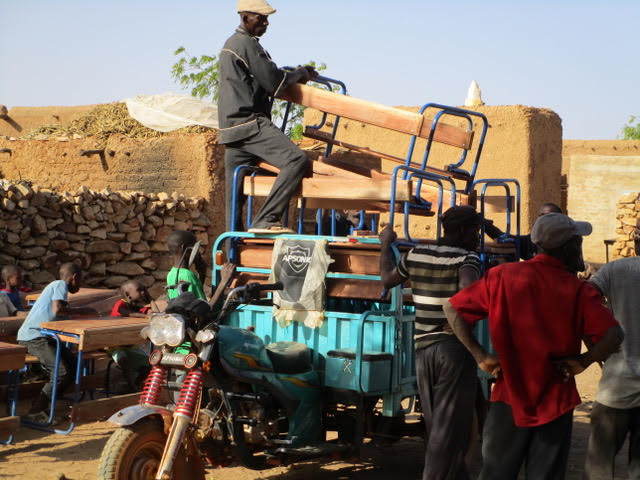
The new furniture for the school in Sal-Ogol, Mali, has been finished and delivered by members of the Kansongho carpentry workshop. The furniture was delivered using the workshop's motorcycle. This furniture will ensure that schoolchildren have a comfortable place to sit and learn.
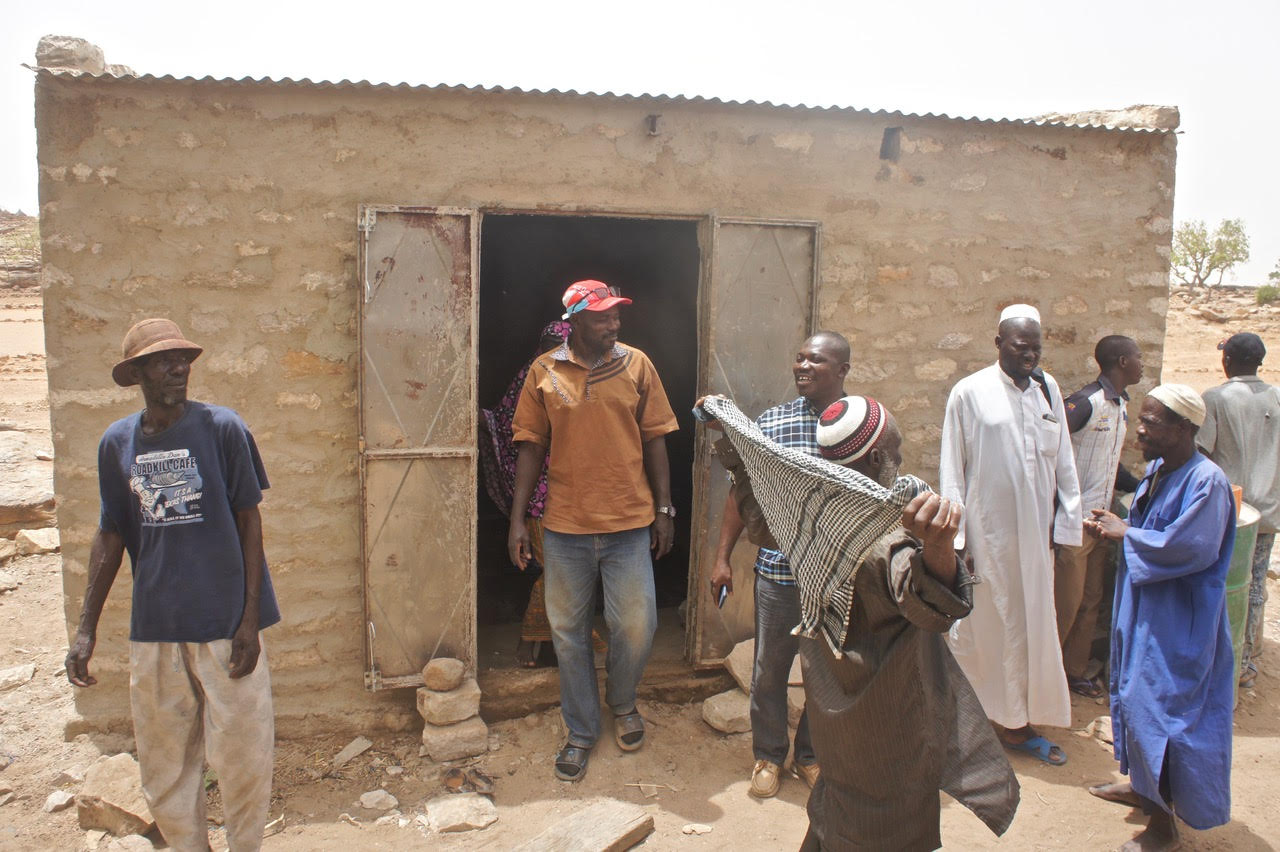
Construction of the storehouse for the grain bank in Dologou is complete, and the members of the bank’s management committee have received training. The management committee purchases a large stock of millet and sells it at a constant price year round so that residents can afford it when they need it.
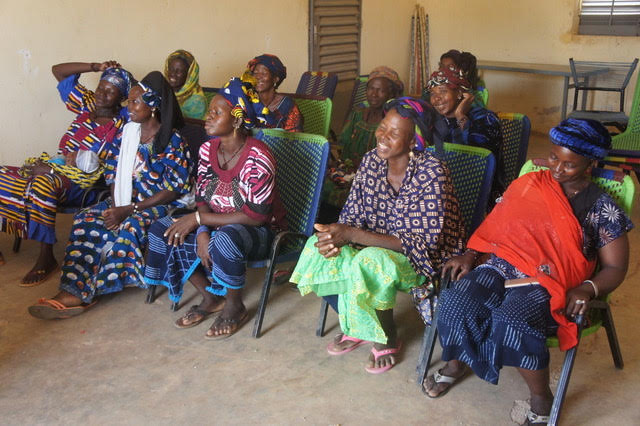
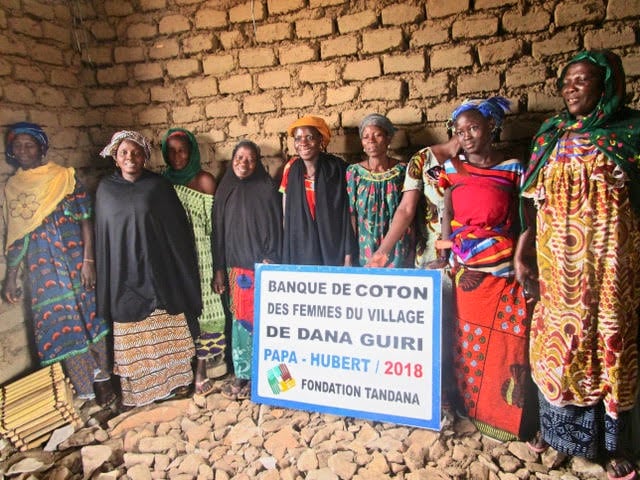
The new cotton bank in Dana Guiri is called the Papa Hubert cotton bank because it honors the generous donations of Tandana friends and family members who gave in memory of Ed “Papa” Hubert. The construction of the building for the cotton bank is complete, and the bank’s management committee has also received their training.
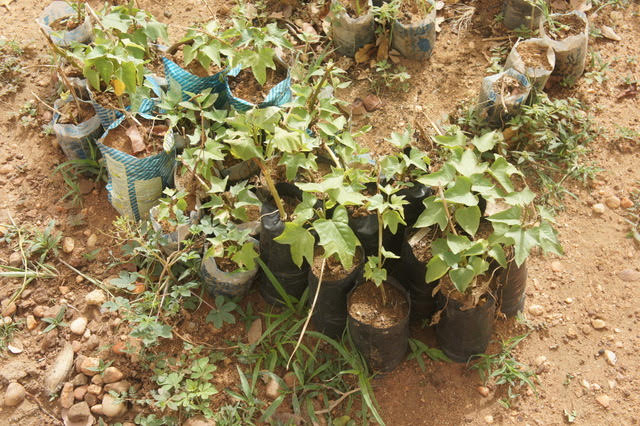
Ecuador
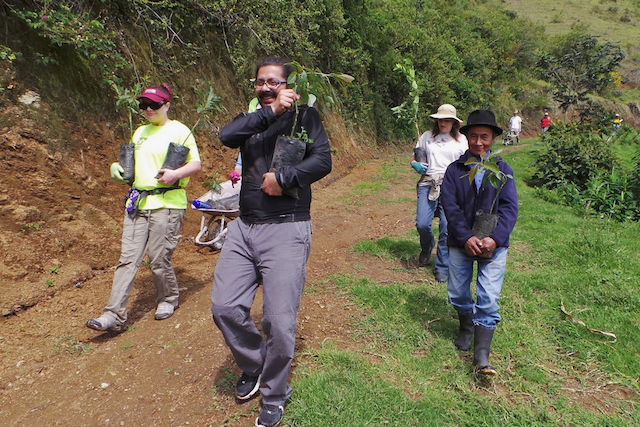
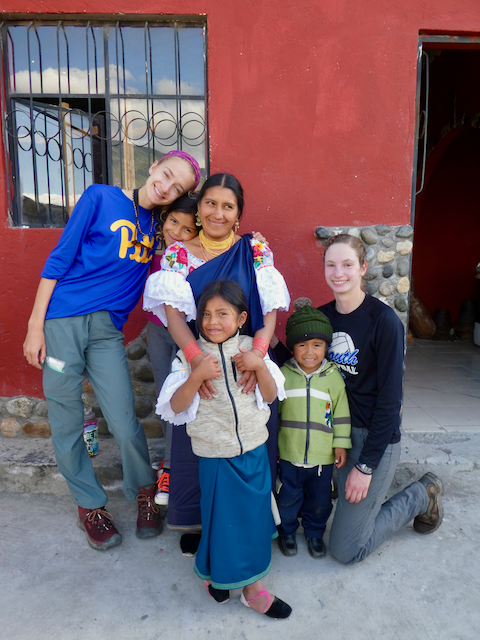
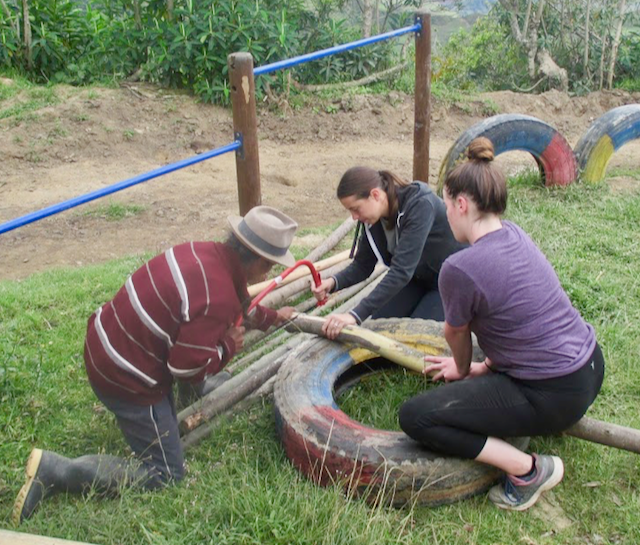
Northeastern University in Boston joined us in Ecuador for an immersion experience. The small group of students, on an alternative spring break trip, visited for a week to live and work in the mountain community of Motilón Chupa. The students, along with project foreman Alberto Panama and other community members, helped build an 8x8x10 ft. concrete water tank. The tank improves the community's irrigation system.
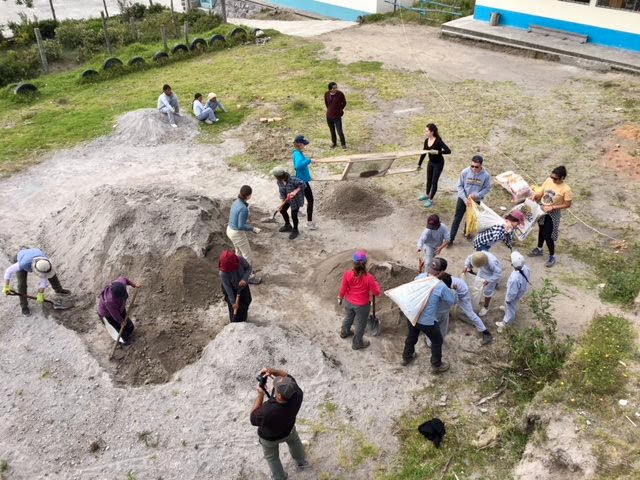
The Tandana Foundation was delighted to welcome a group of students from George Washington University in Ecuador. They spent most mornings helping the local community, Guachinguero, improve a multipurpose building next to their soccer field. This building serves as a center for the community, especially in the month of June, when they organize a large multi-community soccer competition.
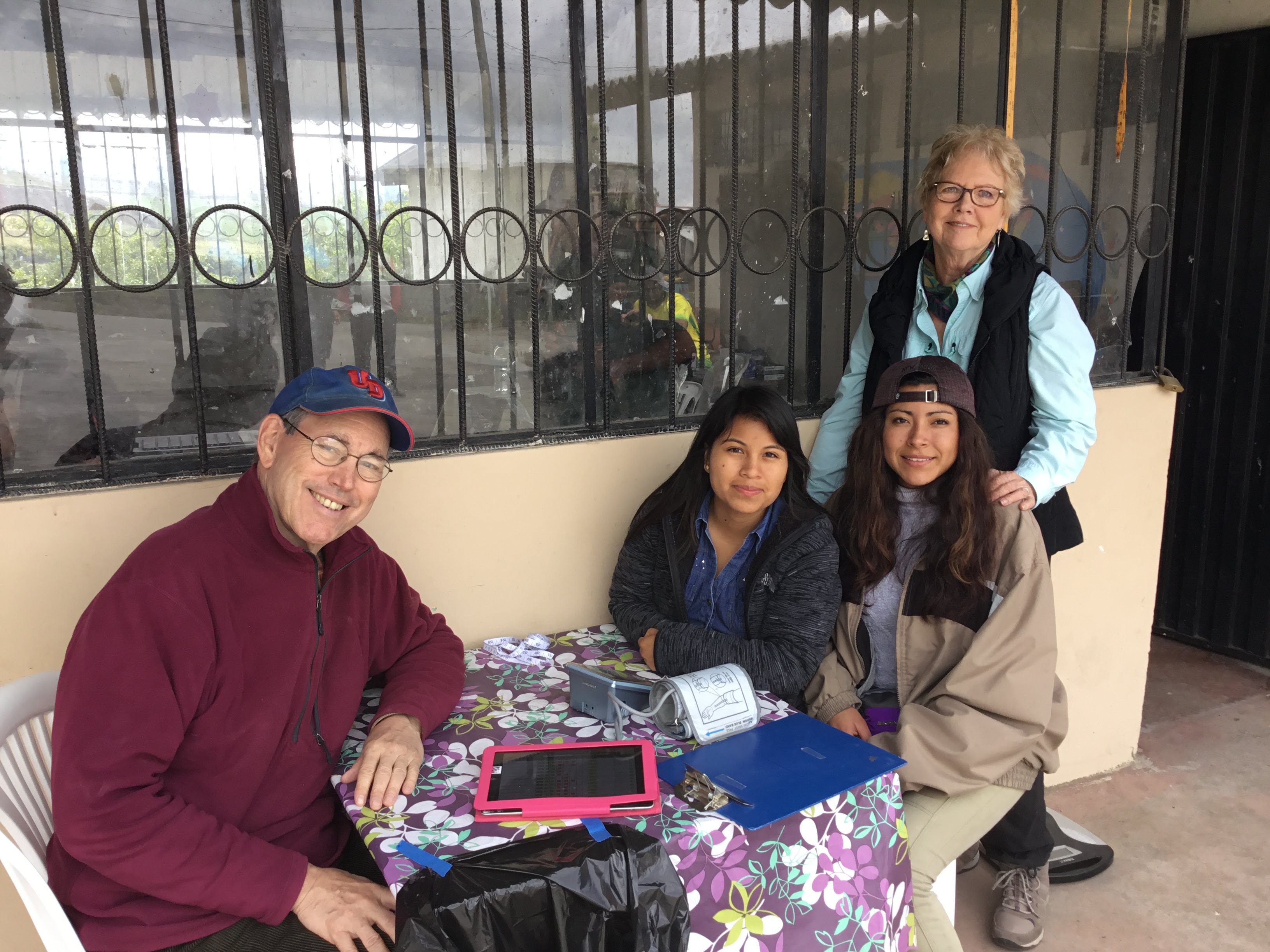
Over the course of a week-long program, Tandana partnered with local and international volunteers to provide basic health care in 5 communities in Ecuador's rural highlands. Larcacunga, Motilón Chupa, Achupallas, Muenala and La Banda opened their doors to receive our volunteers and organized mobile health clinics with enthusiasm. Program participants also, in turn, gained from the genuine friendships they formed in and with Tandana's community partners, learning from their local knowledge and culture in medicine, agriculture, cooking and history.
A group of 13 people from the University of Cincinnati joined Tandana for a week in May to participate in a number of education-based activities and projects. UC students split into three distinct groups who had previously prepared a curriculum on a range of topics to present to several different local schools. The UC students observed classes at the schools to understand the dynamics of classrooms in this area. After observing, each group presented their lessons on weather, sports, and scientific method, respectively. Challenges were faced, lessons were learned and open minds were filled with information that helped broaden the perspectives and perceptions of the world and those who inhabit it.
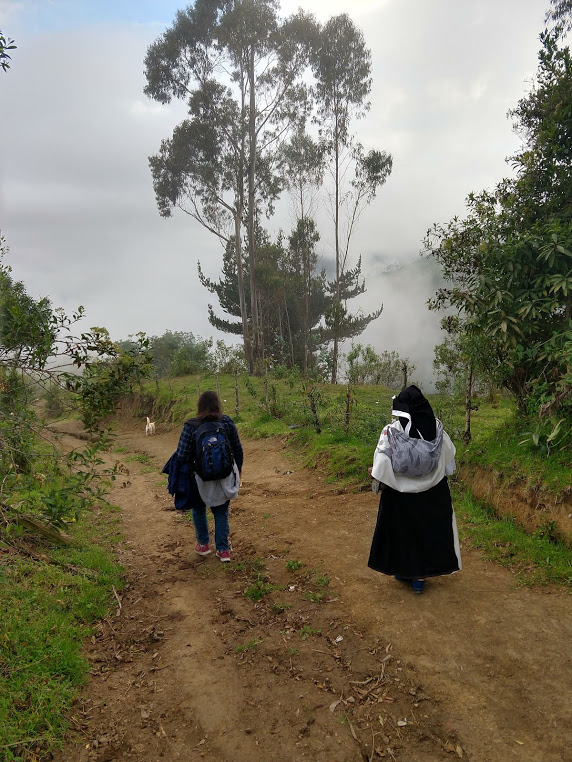
Colgate University students joined Motilón Chupa's families, together renovating the community school. During two weeks of collaboration, they added new paint, fixed holes in the walls, replaced broken windows, and painted an educational mural. In addition, Colgate students lived with Motilon's families, sharing daily life with their new friends. Working hard and having fun through a variety of activities, everyone involved formed strong friendships through the time they spent together. Tandana appreciates Motilón's collaboration and Colgate's investment of time and energy as we all come together to learn and grow.
This year's Summer School program began on July 9 and ended on August 3. Approximately 53 students between the ages of 10 and 16 attended this year's program. The Summer School Program Director and four ESL interns taught English and elective classes. A theater professional returned for another summer and taught the students all about acting and public speaking.
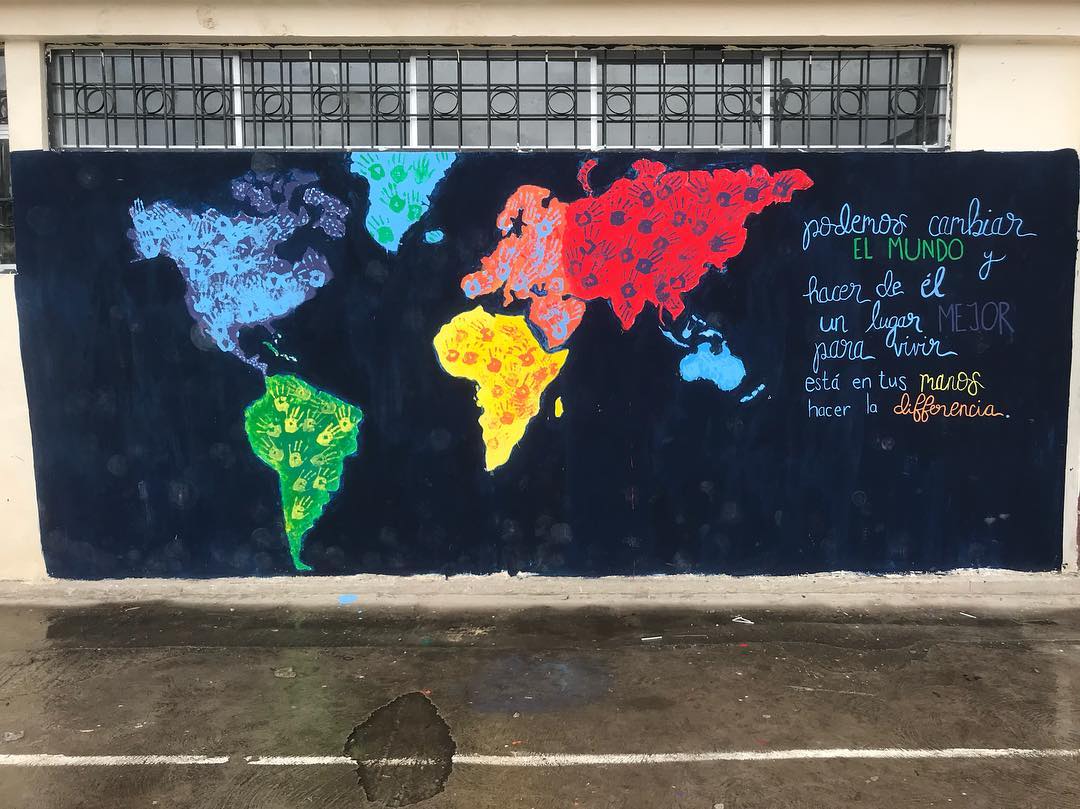
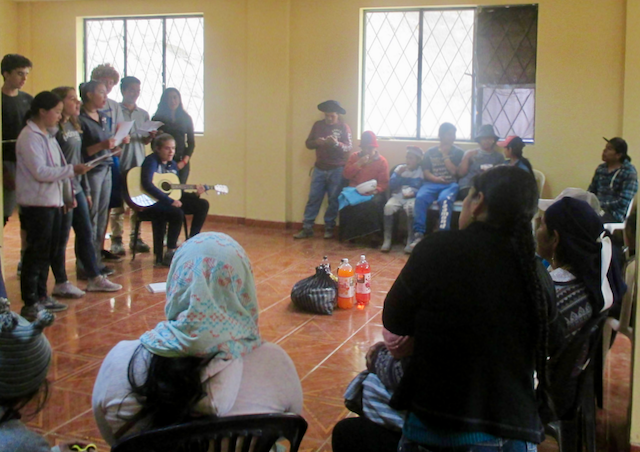 This summer, a group of Lakeside School students joined Tandana for three weeks. During their stay, the students lived with host families in the Agualongo. While there, the group helped the community build a fence around their soccer field to solve the continuing problem of cars damaging the field. The students also participated in a series of cultural activities involving the community, including baking bread in one of a large brick oven, listening to the stories of the haciendas surrounding Agualongo, and climbing to the top of a mountain to spend a day roasting food and flying kites.
This summer, a group of Lakeside School students joined Tandana for three weeks. During their stay, the students lived with host families in the Agualongo. While there, the group helped the community build a fence around their soccer field to solve the continuing problem of cars damaging the field. The students also participated in a series of cultural activities involving the community, including baking bread in one of a large brick oven, listening to the stories of the haciendas surrounding Agualongo, and climbing to the top of a mountain to spend a day roasting food and flying kites.
For two weeks this fall, our largest team ever assembled to provide healthcare to 12 total communities in highland Ecuador over a two-week period. About 60 foreign volunteers, local staff members, and local professionals all came together to visit 10 different villages while transportation was provided to two nearby villages so they could also attend. It was a great success and over 1,000 patients were seen. When the team was not providing basic medical care they could be found visiting with Tandana friends who live in the area enjoying local attractions.
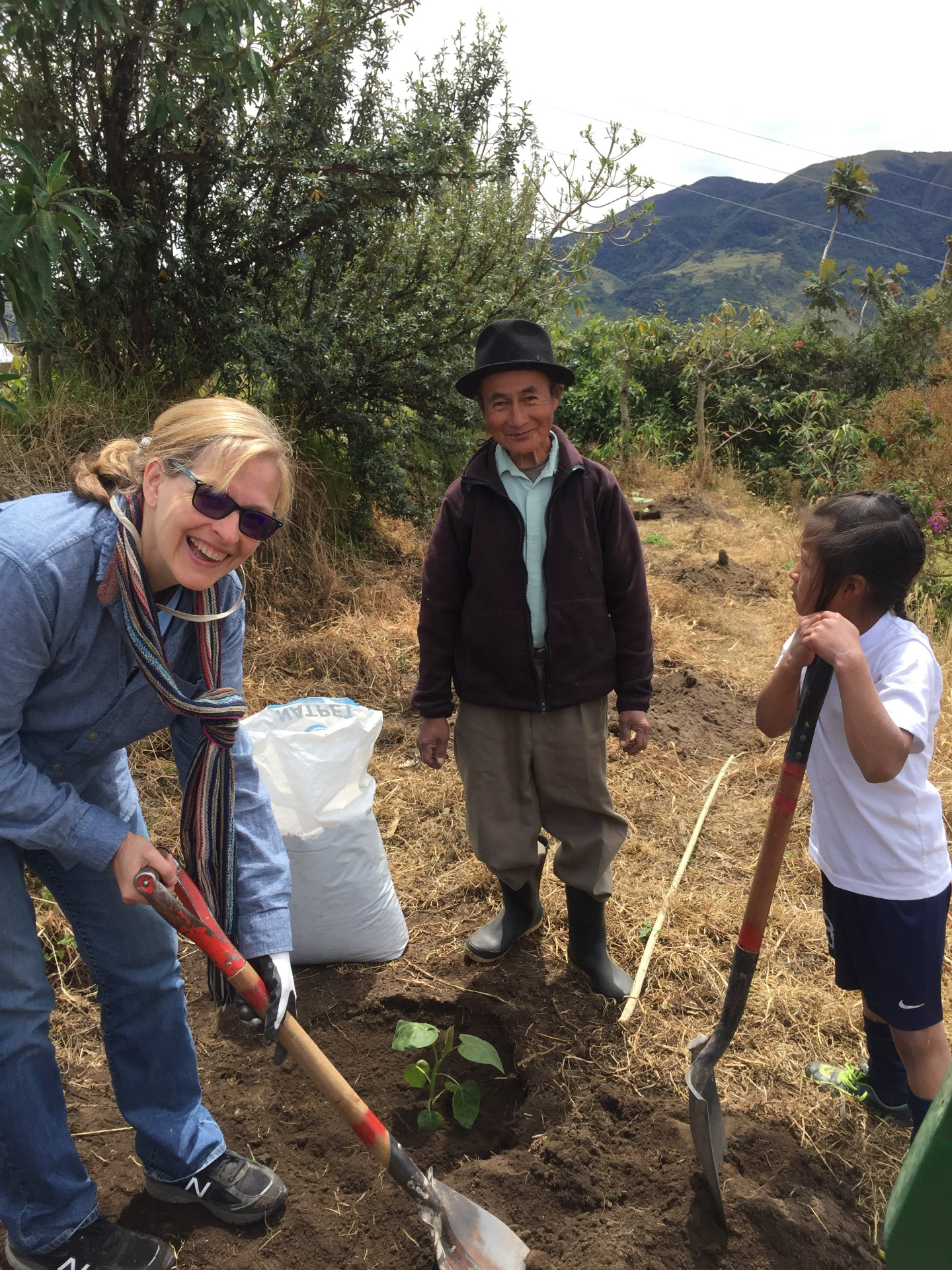
For a week this fall a small but hardy team of dedicated volunteers worked at the community center and school property in the community of Padre Chupa. They put their green thumbs to work alongside local community members, planting medicinal plants, ornamental plants and fruit trees on the property surrounding the school. Lime trees and tree tomato trees are now growing and will one day provide food to help supplement the school lunches. In order to keep these plants strong with sufficient water, the team also installed a section of pipe that brings water from a tank above down to the school garden for irrigation. It was a wonderful week and the end was marked with a heartfelt ceremony led by Don Matias.
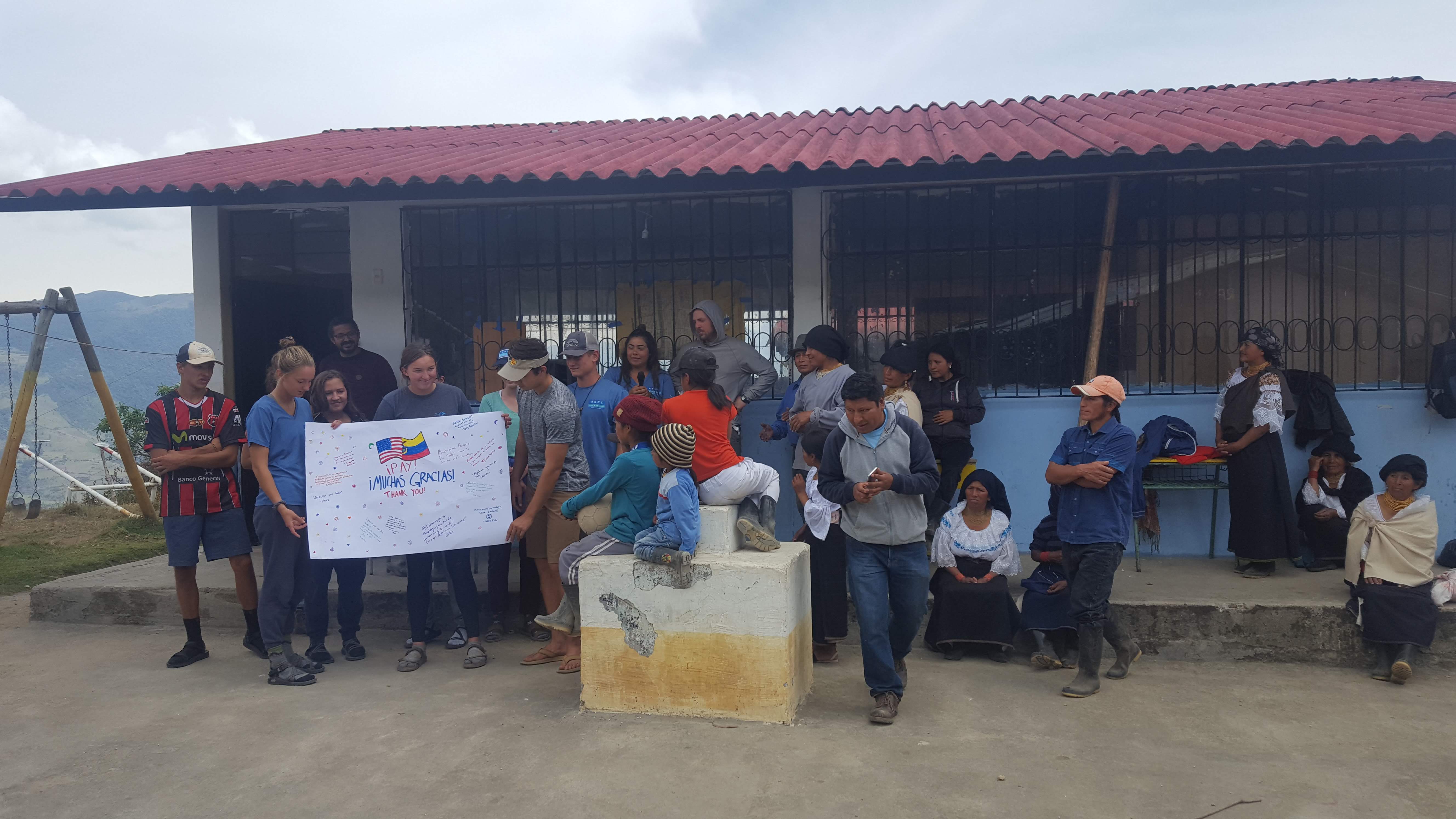
During their week with Tandana in Otavalo in late October and then again with another group in late November, 9 ARCC students and their 2 leaders spent their time in the community of Minas Chupa. Students worked side by side with community members, remodeling the community center in a series of mingas (community work days) for four mornings. The project involved plastering all the inside walls of the structure, covering the floors with cement and giving the walls a paint primer coat. They also enjoyed several activities in the area, including a hike with the president and several kids from the local school, spending an afternoon learning from the mothers in the community how to embroider beautiful designs, and making bread to be eaten with a golden berry colada/ drink. The week culminated with a ‘despedida’ in Minas Chupa including a lot of delicious food and dances with community members!
2017
Ecuador
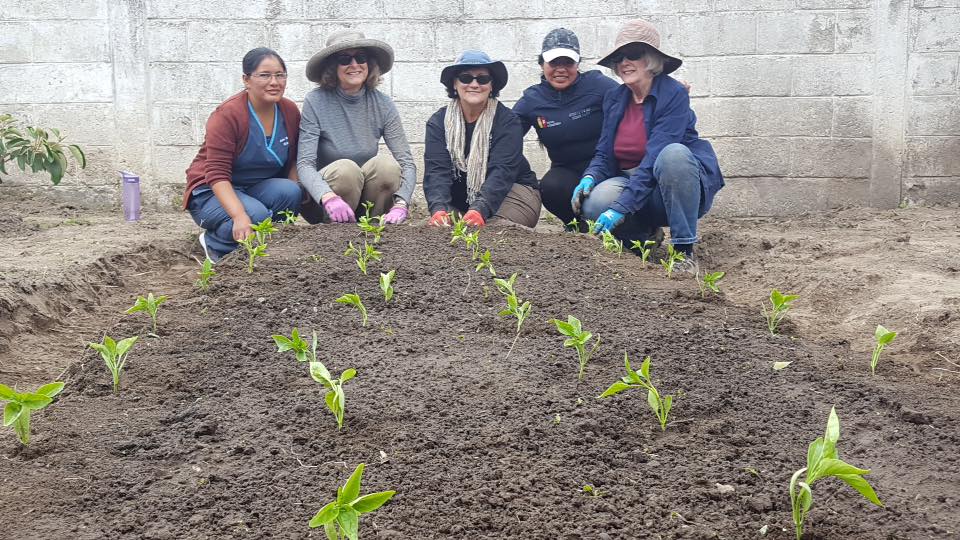
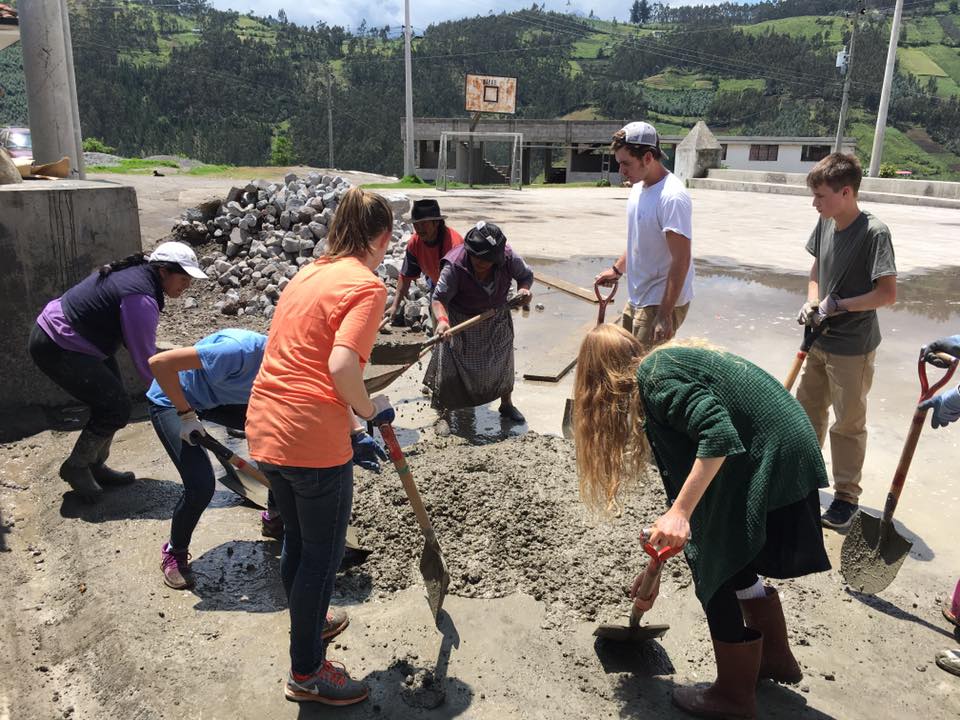
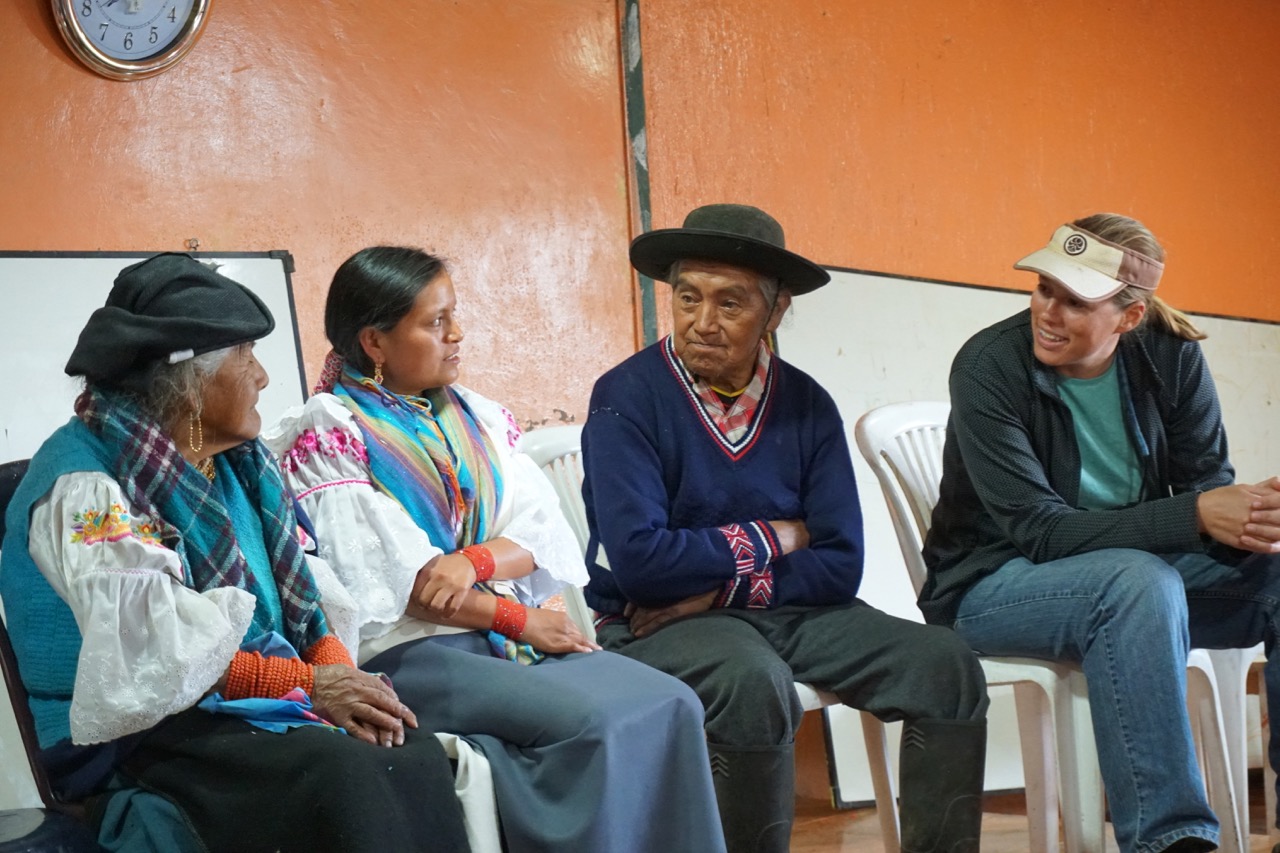
For one week of their semester-long trek through the Andes Mountains, 14 students and 4 teachers from The Traveling School stayed in the rural Ecuadorian community of Agualongo for a cultural immersion experience organized for them by Tandana. The students stayed with host families in Agualongo in early March. The immersion experience gave them opportunities to work in the community, learn about the community's history and spend time with their host families.
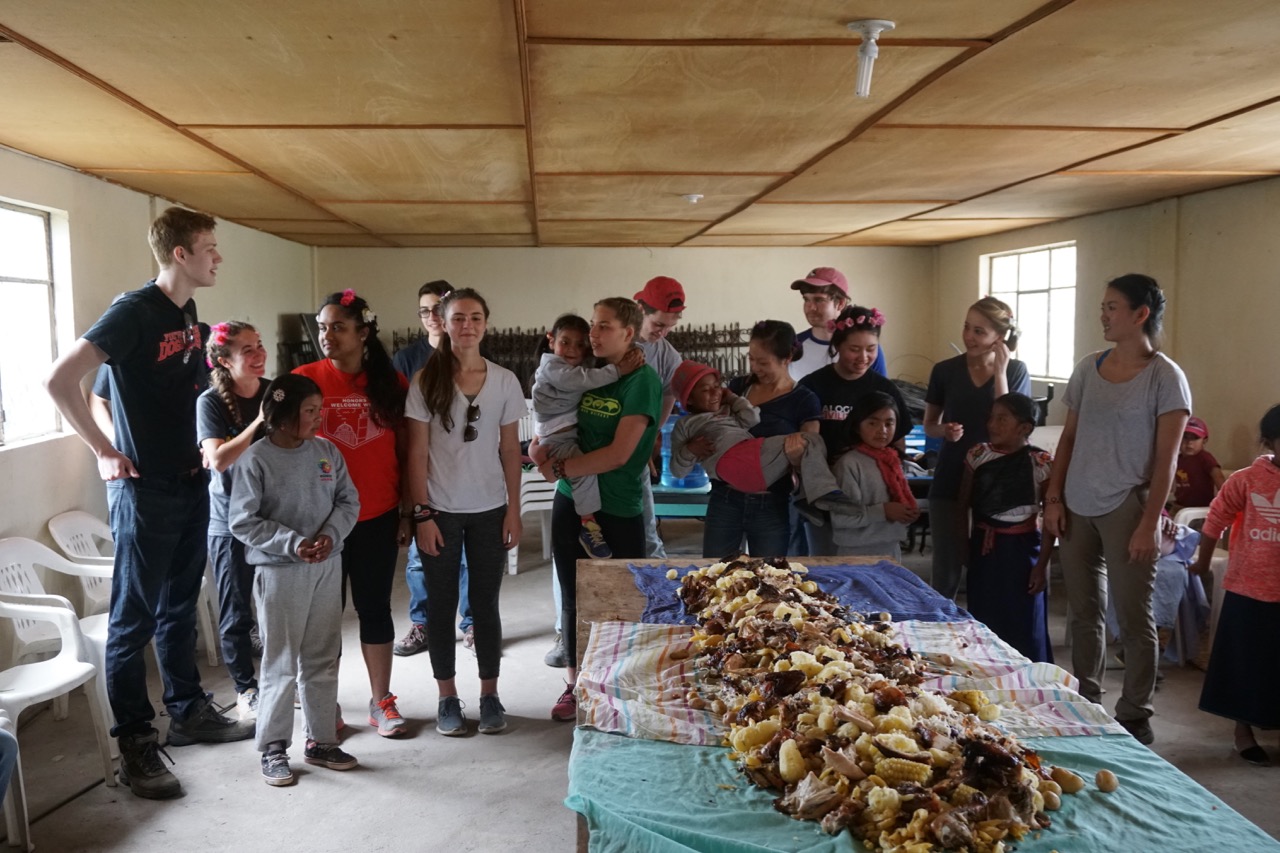
As part of an Alternative Spring Break Program, 13 students and 1 university rep from Northeastern University spent 6 days participating in a group service project organized for them by Tandana. From March 4th-10th, the students worked with community members in Guachinguero to help build the walls of a new multi-purpose community center. Most of the building's exterior walls are up as well as a few interior walls. Building the walls involved sifting sand, mixing cement, placing blocks and filling in the empty spaces between the blocks with cement.
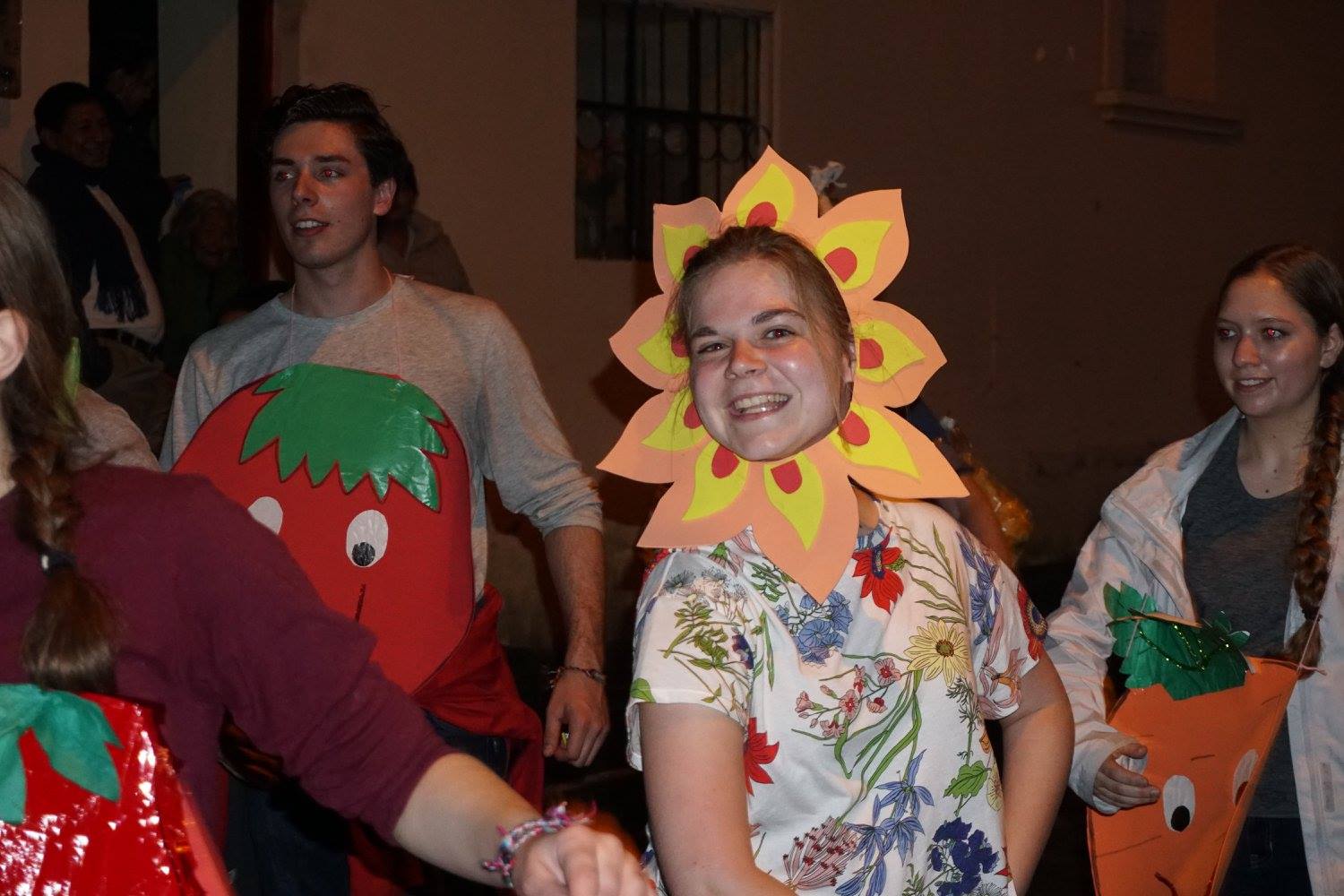
14 students and university reps from George Washington University joined the community of Guachinguero building a multipurpose center. They spent the week sifting sand, mixing cement, and helping finish off the first floor. They also were able to spend time in the classrooms doing activities in both English and Spanish. They learned about local culture at the Otavalango museum, made dreamcatchers in a community home, learned to dance salsa and took part in a cooking class. They topped of their week celebrating the day of San Jose, dressing up as vegetables and fruits and dancing in the pregón.
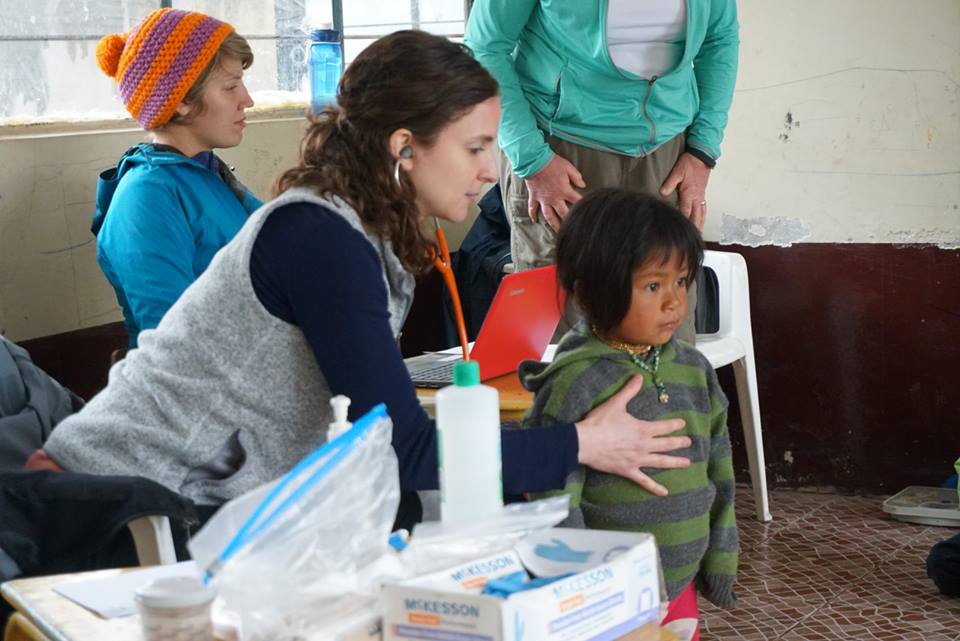
From March 25th to April 8th, a team of 25 volunteers worked alongside Ecuadorian medical professionals providing medical care to 875 children and adult community members in 10 different rural communities surrounding the city of Otavalo. It was a busy two weeks for the team. Every morning, they visited a different community to set up a health clinic. The volunteers treated 405 medical patients and 432 dental patients. They conducted 196 vision screenings, and 279 children received a pediatric checkup.
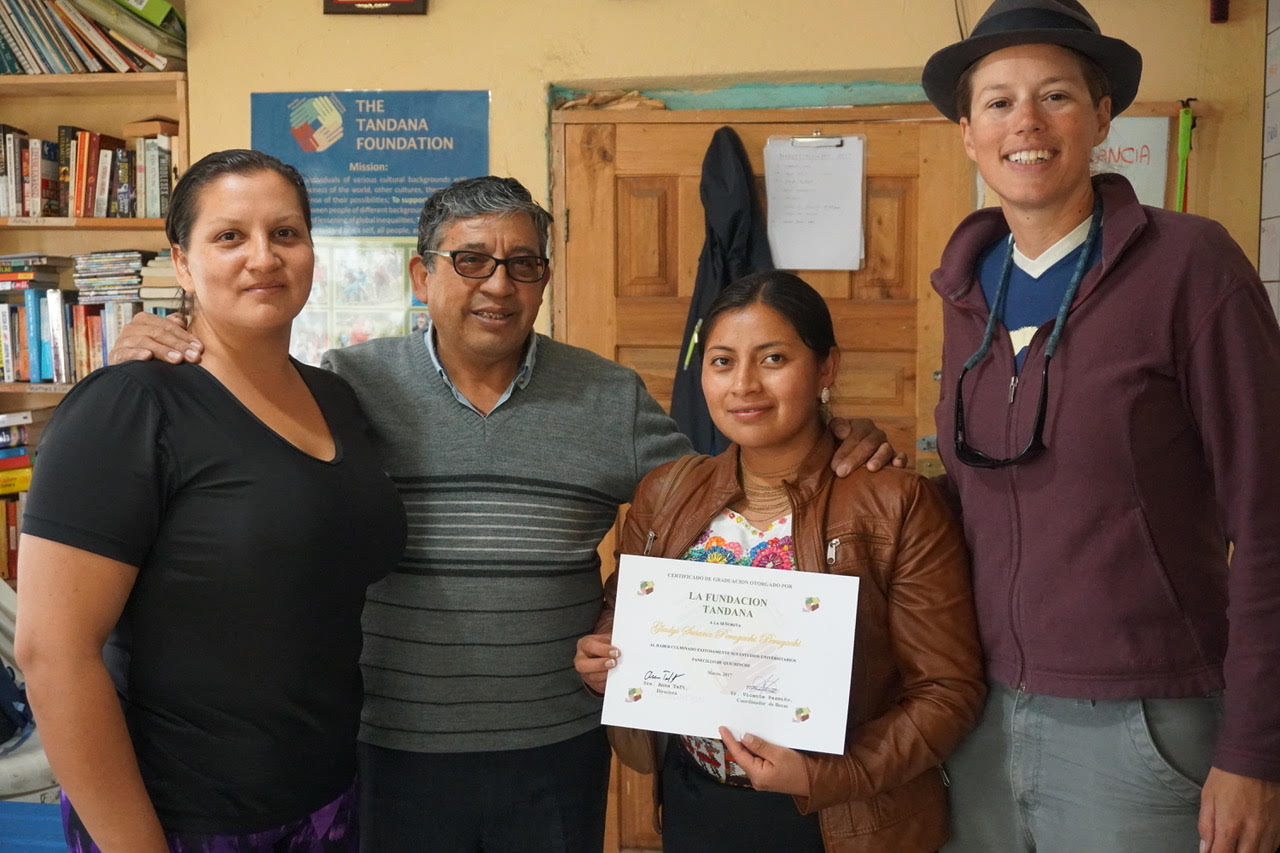
Tandana's Scholarship Program in Ecuador –Tandana scholarship student Gladys Perugachi graduated from University and has officially become a lawyer. She is currently practicing law in Otavalo. Gladys specializes in land title cases. From left to right: Vero Pazmiño, Tandana's Scholarship coordinator; Don Vicente Pazmiño, Tandana's Logistics Manager; Gladys Perugachi, holding the certificate; and Anna Taft, Tandana's Founding Director.
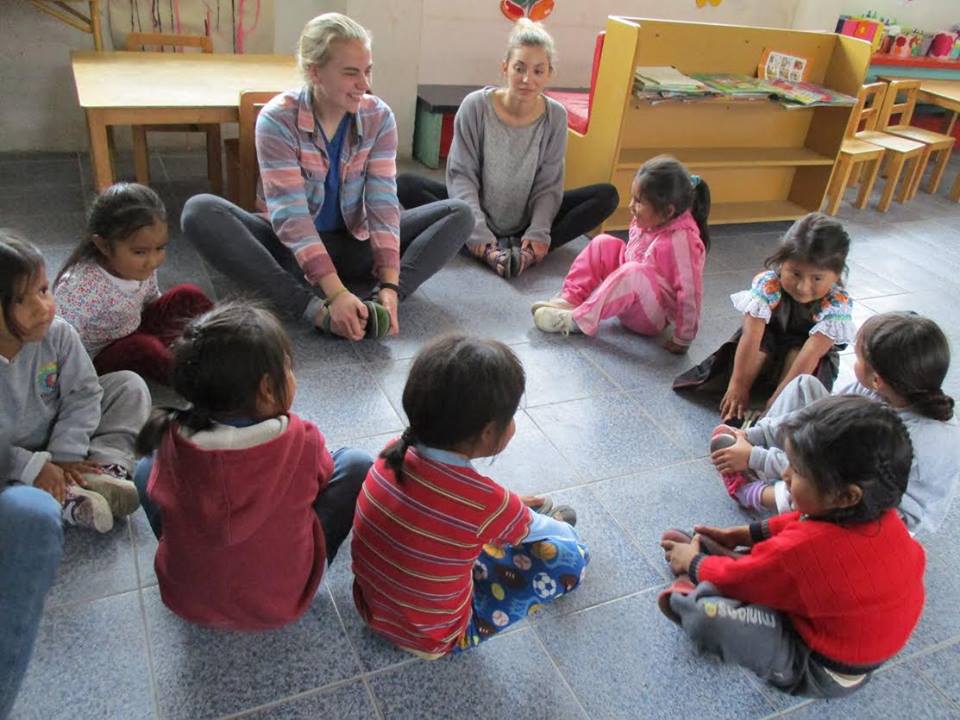
11 students and 2 faculty members from University of Cincinnati spent a week in different schools practicing lessons and observing the Ecuadorian education system. They taught all ages, from kindergarten to high school, about, physical & mental health, hygiene, and dreams & future planning. They also spent some time in La Joya, a school for children with disabilities, playing with the kids and lending a hand to the teachers. In the afternoons, they participated in cultural activities such as the Kichwa museum, cooking school, learning about traditional dress, making bracelets, and hiking to an ancient Incan Grotto.
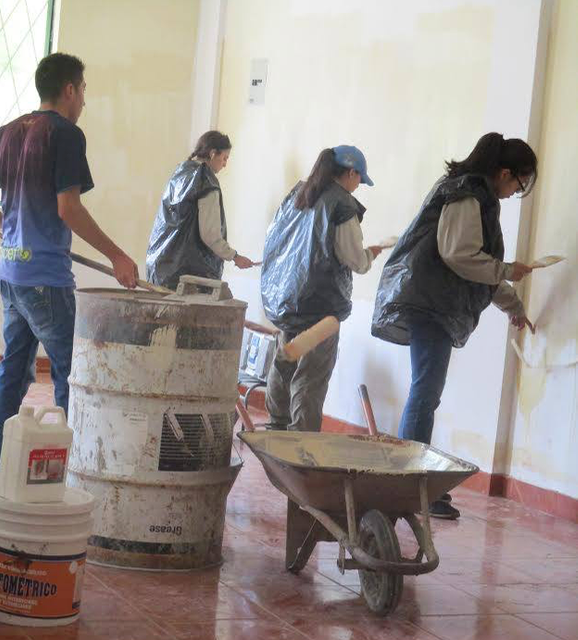
15 REACH students joined us in Ecuador for 19 days. Students stayed with families in the community of Agualongo and worked together to build a retention wall for a water tank, repair the community’s water tubing, paint and construct a floor in the new community center, and carve out a new and safer footpath to the nearest bus stop. REACH also provided a generous donation for the community’s dream of improving the communal sports field. In addition, they also enjoyed the adventures of waterfall and volcano crater hikes, cooking classes of traditional kichwa cuisine, traditional weaving and salsa dancing classes, and a bonfire party on July 4th, where the students were able to exchange their own culture with the entire community of Agualongo.
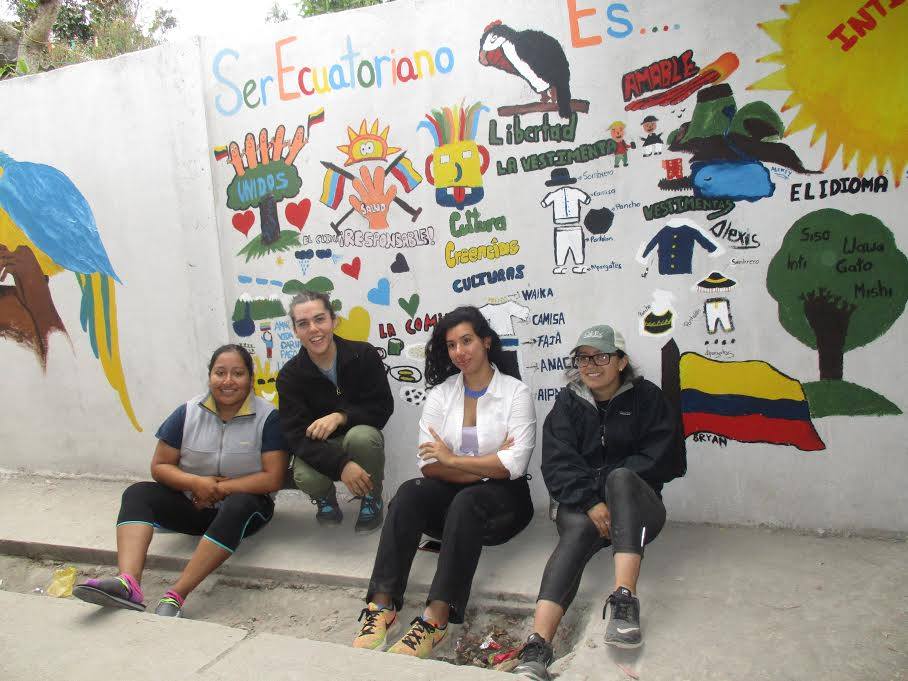
16 students from the REACH program spent two weeks in the community of Agualongo, in the second installment of this REACH cohort’s cumulative experience in Ecuador with Tandana. The group spent a week teaching a variety of interactive classes in Tandana’s summer school, including food science, music, painting, and P.E. The following week, they focused on projects in Agualongo, including finishing a drainage ditch to secure the side of the road in the rainy season. The students learned about Agualongo’s history and continued close ties with Hacienda Perugachi, and participated in a variety of immersive activities with the community.
Eight Lakeside School students and two program leaders spent three weeks working and experiencing daily life in the rural community of Tangali. The students worked side-by-side with the community members to start building a community kitchen. They moved materials, mixed cement and sifted sand. The students also placed bricks to build the kitchen's walls, and they helped put up the support for the ceiling. The students also organized a five-day summer camp for about 35 children, ranging in age from 4 to 17 years old. They students prepared science, English, art and sports lessons, as well as other games and activities.
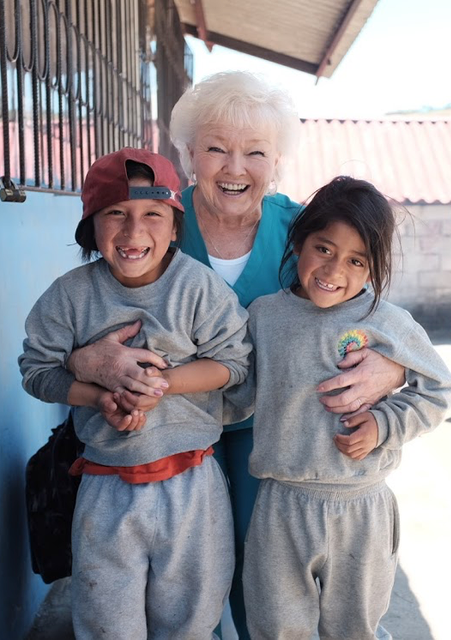
Tandana teamed up with local and international medical volunteers from all backgrounds to provide a week's worth of mobile health clinics. They visited 5 different communities over the course of the week, and were able to support nearly 350 individuals with free medical and dental care. What further marks Tandana, however, is the foundation's commitment to follow up with patients who cannot receive all that they need in the short time of a clinic; our professional medical providers referred many patients to continue in our Patient Follow-Up Program, through which Tandana staff will help them navigate the public health system and obtain their necessary treatment. Participants enjoyed learning from all the richness that the local culture and people have to offer. They took part in activities such as local museums, visiting master weavers, hearing local legends at a volcano crater lake, and cooking a meal at a family-operated cooking school.
Mali
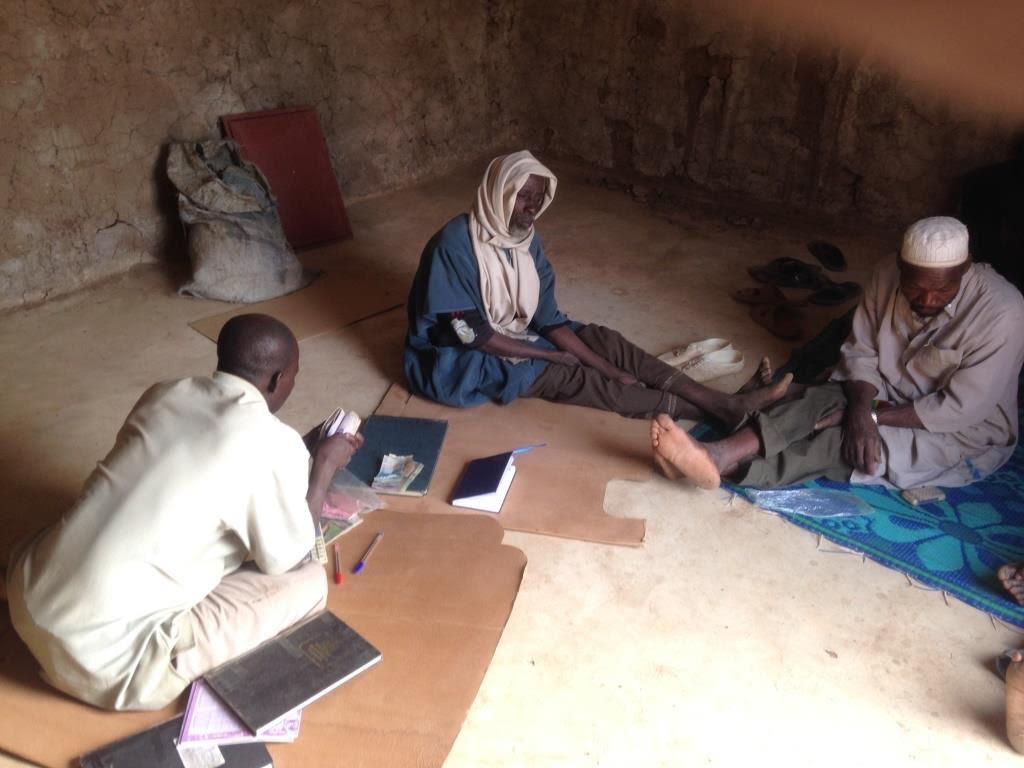
Grain Bank in Sal-Dimi – During the annual meeting to evaluate grain bank operation, the village assembly congratulated the committee on their great management of the bank. The community members asked the committee to continue selling the remaining 6 sacks of rice that they have in stock and to purchase 2 tons of millet to sell throughout the coming year. To the left is a picture taken at the evaluation meeting.
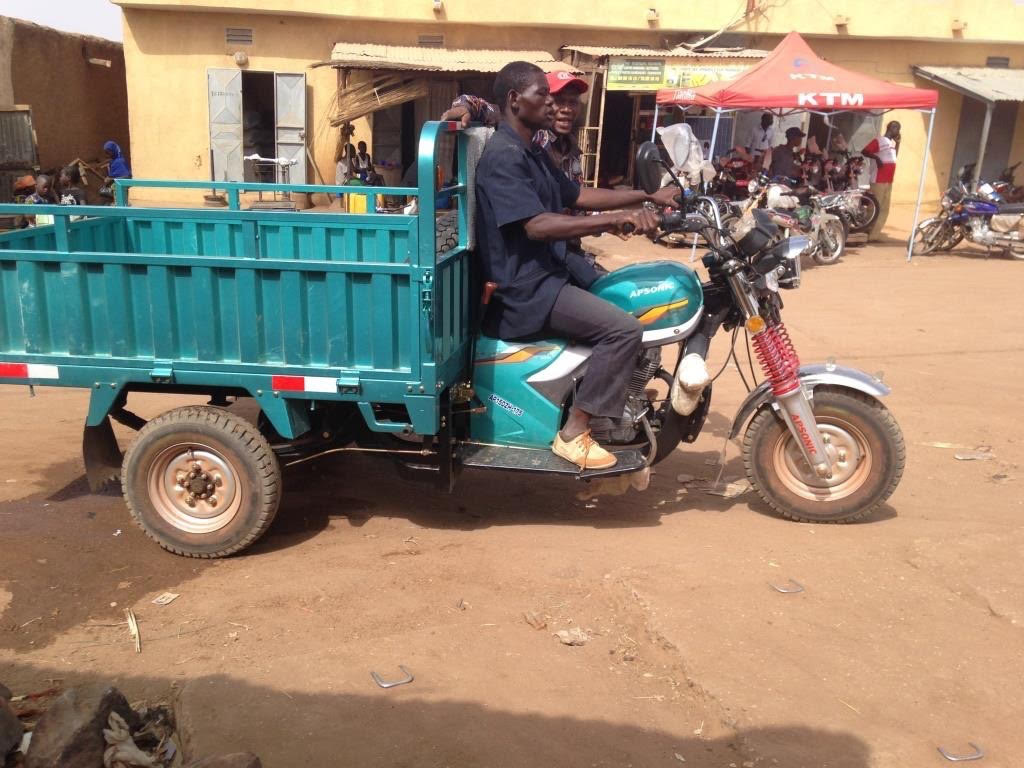
Carpentry Workshop in Kansongho - The moto-tricycle purchased for the carpentry workshop is now being used. Two drivers received training on how to operate the moto-tricycle and are now using it to transport purchased materials to the workshop. To the right is a picture of the moto-tricycle.
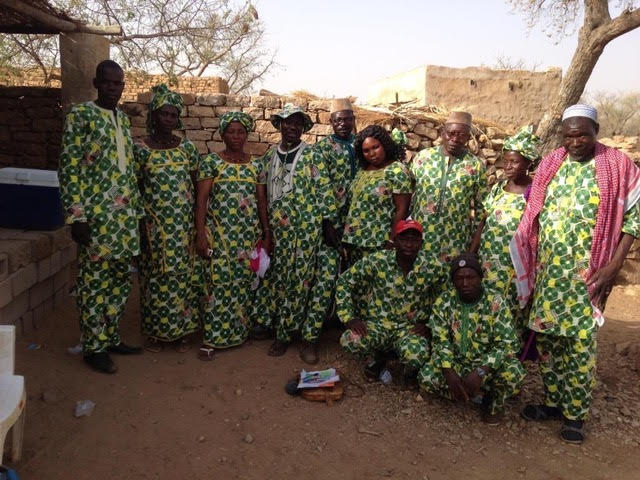
Community Meeting Room in Kansongho, Mali - A great inaugural ceremony was held for the building on April 8th. The members of the Ologuelemo Environmental Association, the community members, and the local authorities are thrilled to have the building in use. To the left is a picture from the inaugural ceremony.
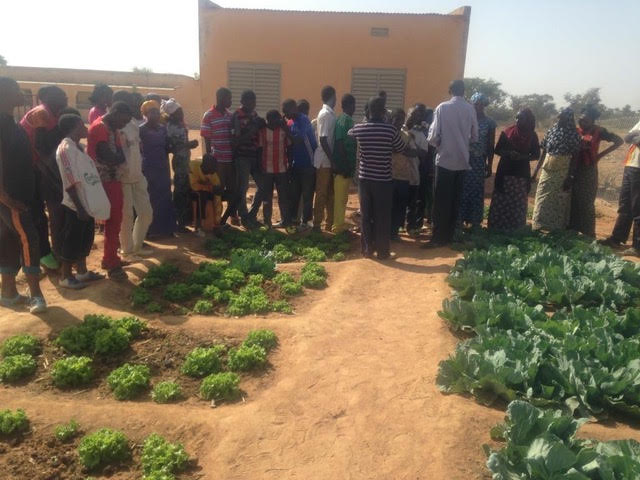
School Garden in De, Mali -There was another bountiful harvest from the garden. The students shared some of the vegetables they harvested with the school and sold cucumbers, lettuce, and cabbage for around $36. They used $27 of this money to buy chalk and notebooks.
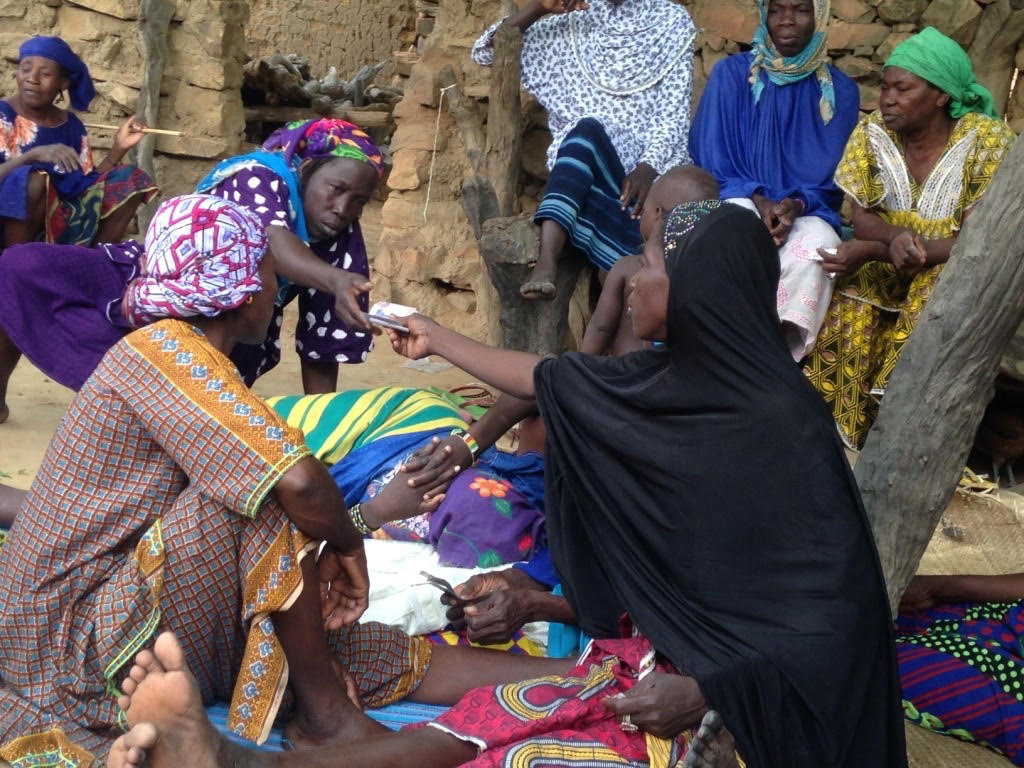
Savings for Change Program – Two savings groups in the village of Yarou Plateau held their annual fund-sharing ceremony. They divided the group fund among all the members, which will allow each member to buy her bean, sesame, and peanut seeds for this rainy season. Then they started saving again in their weekly meetings. Their combined funds were over $1,600, and each member received approximately $30 as her share. Now in December women in 15 more villages have asked Tandana to bring the program to their villages.
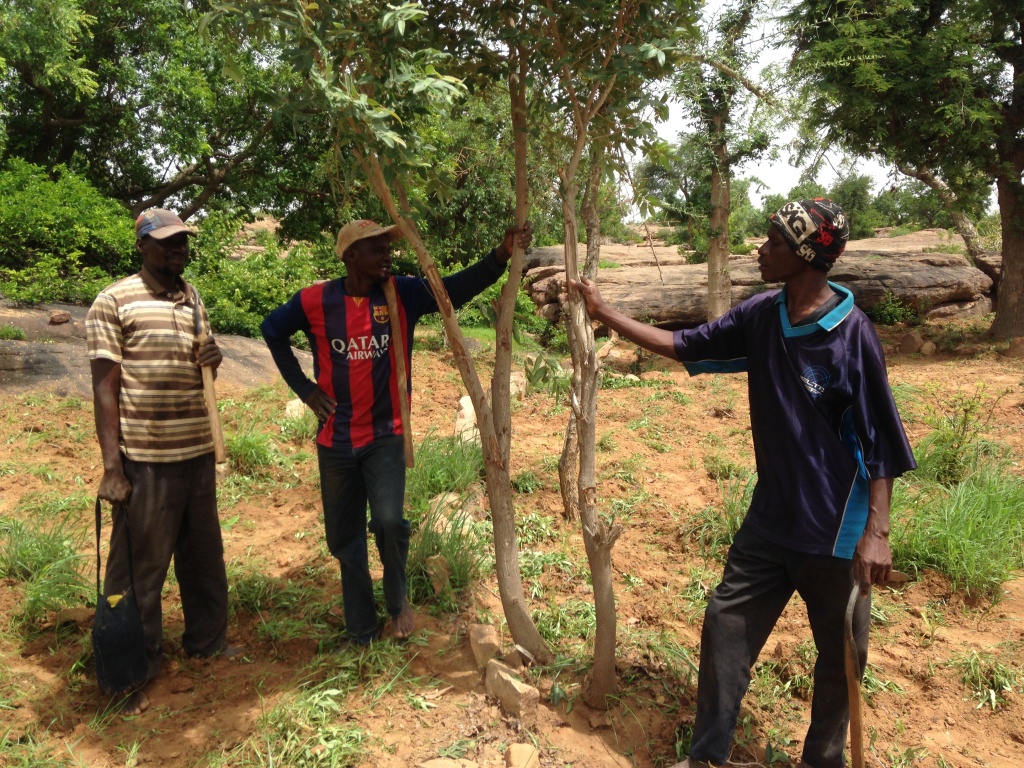
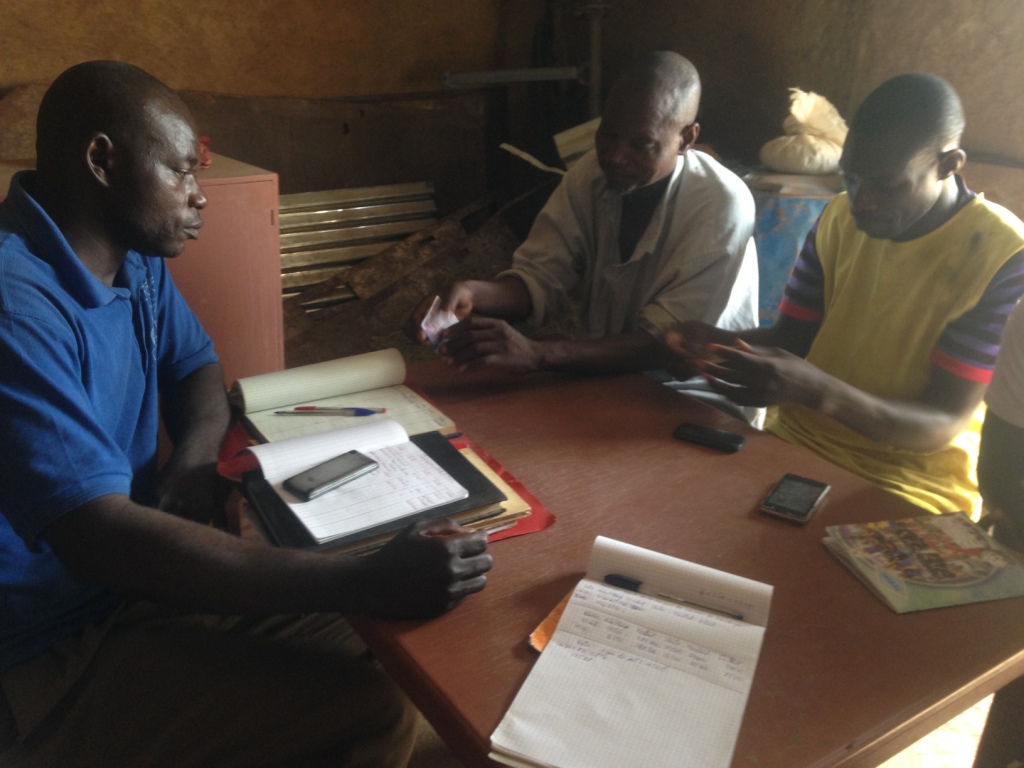
Grain bank in Kansongho, Mali – The bank is operating well and is selling millet and rice to community members at a reasonable price. The bank currently has 11 sacks of millet and 20 sacks of rice in stock. The bank's management committee recently met.
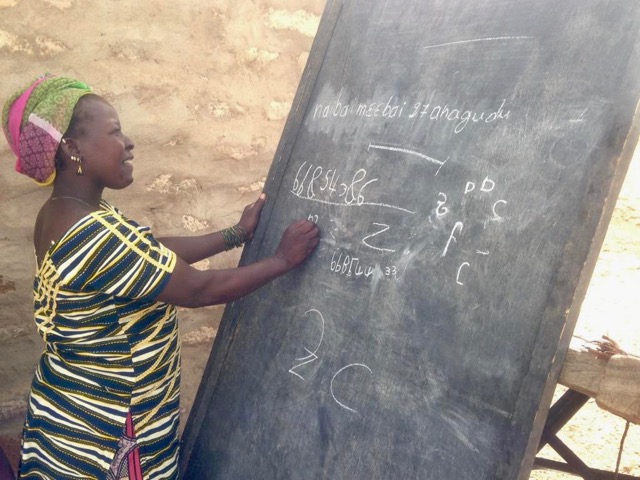
Literacy Program in Mali - All 30 villages have completed the continuation course. Out of 837 students, 687 achieved basic literacy. Our partner organization AFTCD/PD has translated literacy and governance booklets into Tommo So to be used in the workshops that will be the next phase of the literacy program.
Kansongho Cotton Bank - The Kansongho cotton bank is doing well. The sales and purchases are proceeding as intended and thanks to this project all of the women of Kansongho have access to cotton. They are also happy about the completion of the meeting room, because it has freed up their cotton bank building from being used as a meeting room for other village events.
Kansongho Orchard and Garden - The Kansongho orchard and garden are doing well. The committee made about $100 by selling pomegranates, lemons, and other fruits from the orchard.
Ondougou Township Indigo Bank - The indigo bank is doing well. The committee is managing sales and purchases very well, maintaining their fund successfully. The only challenge is that the 100% organically-dyed cloths are not selling well, and for that reason, most women continue to use mixed organic and chemical dyeing techniques.
Sal-Dimi Cotton Bank - The Sal-Dimi cotton bank is doing well. As in Kansongho, the committee is managing it well, and all of the women have access to cotton to work with.
Yarou Plateau Cotton Bank - The cotton bank in Yarou Plateau, like the others, is a success. The women of Yarou Plateau were able to use income from the cotton sales to buy materials for a collective ceremony.
School Garden in Yarou Plateau - The harvest from the garden was great this year. In addition to using some of the vegetables for the school and sharing some of the vegetables with the local authorities, the students sold potatoes, onions, lettuce, tomatoes, peppers, and jujubes from the garden for about $26. They used about $19 of this money to buy notebooks, pens, pencils, and pencil sharpeners for all of the students. They are very proud of buying their own school supplies without having to ask their parents for help. Also, Ele, the teacher Tandana is supporting at the school is doing well. Tandana pays part of Ele's salary and the village pays the other part. Since the village knows Tandana’s payment to him depends on their contribution arriving, the village now pays him their part on time. Prior to this, the village did not pay him when they were supposed to. Now, the school has 3 teachers. Teachers always try to get transferred away from Yarou Plateau to other places because it is so remote. Ele is local, so he will provide more stability. The regular teachers have been going on strike because the government does not pay them regularly. Since he is paid by the village and Tandana, Ele keeps working during the strikes and teaches all three classrooms of students in 1st through 6th grades. He also takes care of the school garden and organizes the watering groups.
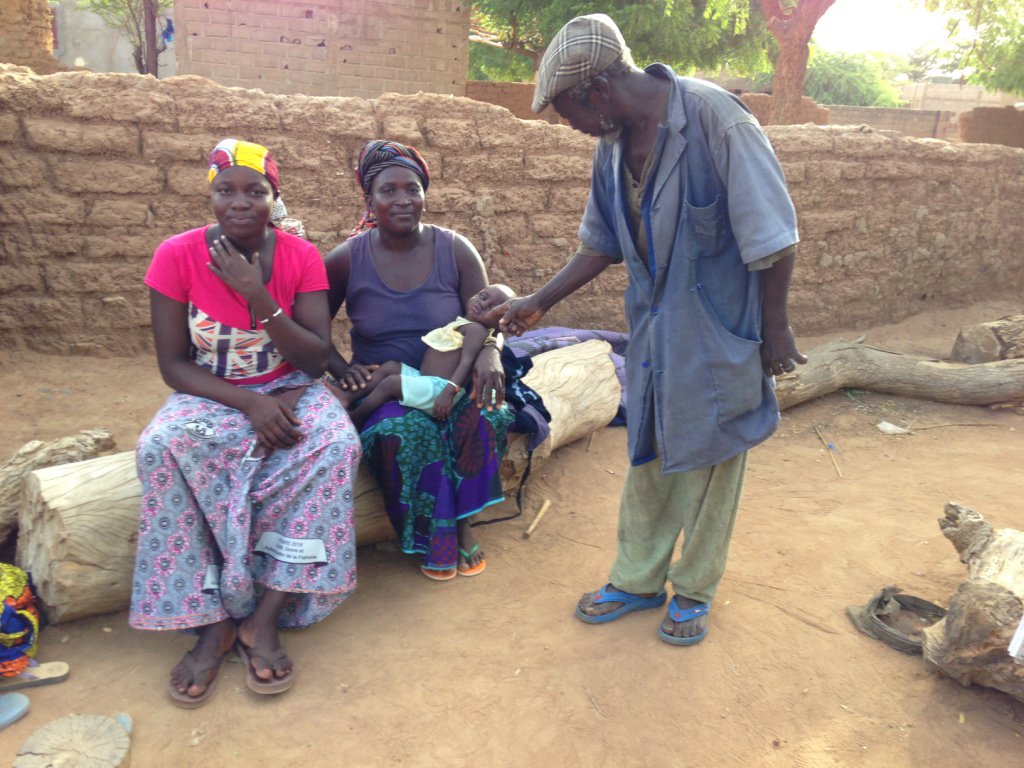 Student Mothers Program – Tandana's student mothers program provides young mothers from rural villages in Mali the opportunity to continue their middle school education. Mothers enrolled in this program receive food for themselves and their babies for the school year as well as supplies and first aid care for their babies. The students have to live with host families in Bandiagara because there are no middle schools available near their own villages. This program also provides training to the host families on how best to support the students. Our staff in Mali has received the end of year results for the students that Tandana supports. Of the two students in the seventh grade, one moved up to the eighth grade. Of the four students in the eighth grade, three went on to the ninth grade. Two of the four students in the ninth grade passed the exams and received their middle school diplomas. While these results may not seem impressive at first, it is important to keep several facts in mind when considering them. On average, only 60 percent of the students in Mali move on to the next grade, and other students have to repeat grades. These statistics are for students who do not have to deal with being a young mother on top of keeping up with their school work. Without Tandana's help, these 10 students would have dropped out of school entirely. Now they have a chance to continue their education.
Student Mothers Program – Tandana's student mothers program provides young mothers from rural villages in Mali the opportunity to continue their middle school education. Mothers enrolled in this program receive food for themselves and their babies for the school year as well as supplies and first aid care for their babies. The students have to live with host families in Bandiagara because there are no middle schools available near their own villages. This program also provides training to the host families on how best to support the students. Our staff in Mali has received the end of year results for the students that Tandana supports. Of the two students in the seventh grade, one moved up to the eighth grade. Of the four students in the eighth grade, three went on to the ninth grade. Two of the four students in the ninth grade passed the exams and received their middle school diplomas. While these results may not seem impressive at first, it is important to keep several facts in mind when considering them. On average, only 60 percent of the students in Mali move on to the next grade, and other students have to repeat grades. These statistics are for students who do not have to deal with being a young mother on top of keeping up with their school work. Without Tandana's help, these 10 students would have dropped out of school entirely. Now they have a chance to continue their education.
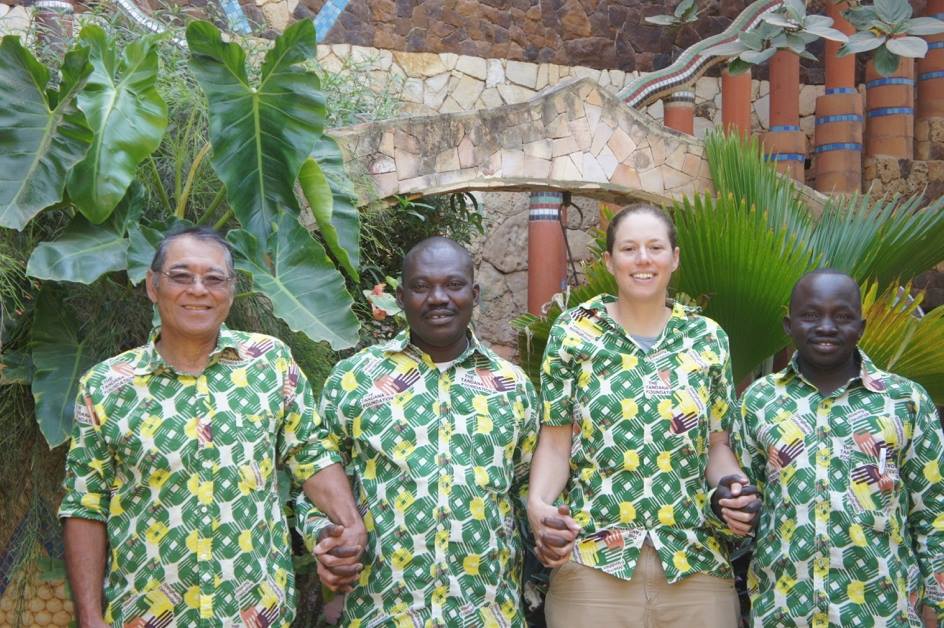
In December, Tandana's Founding Director, Anna Taft, and her husband, John, flew to Dakar, Senegal to meet with Mali Program Manager Moussa Tembiné and Mali Local Supervisor Housseyni Pamateck. Since there is still an active travel warning for U.S. Citizens in Mali from the U.S. Department of State, they chose to meet in a 3rd party location that could ensure safety. During this week-long meeting, they reviewed the projects they have completed this year as well as planned for all the 2018 projects. It was great for them to meet in person, and everyone is more energized about the projects that will start in the upcoming year.
Early 2016
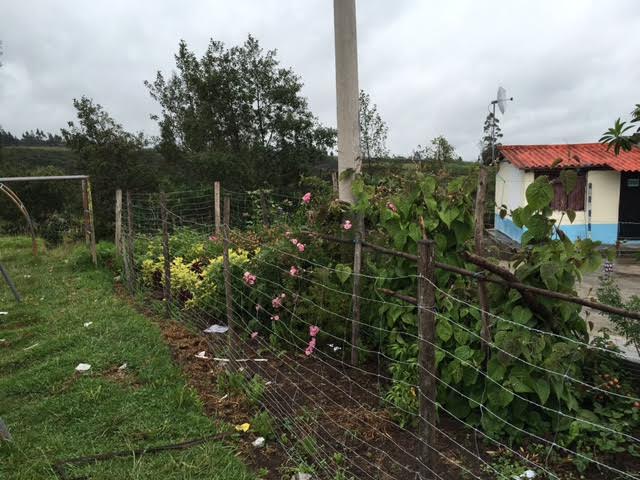
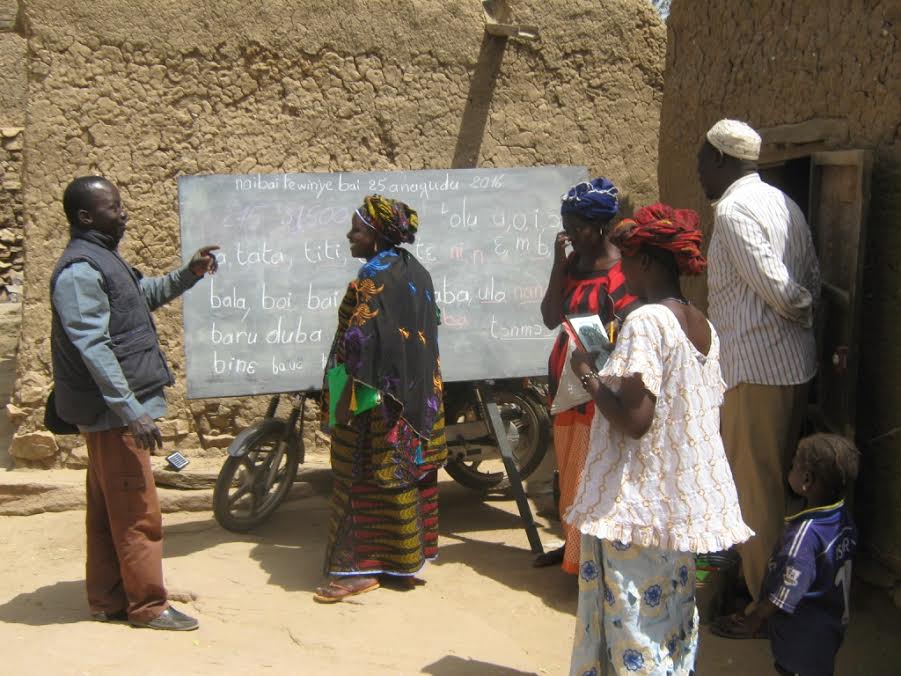
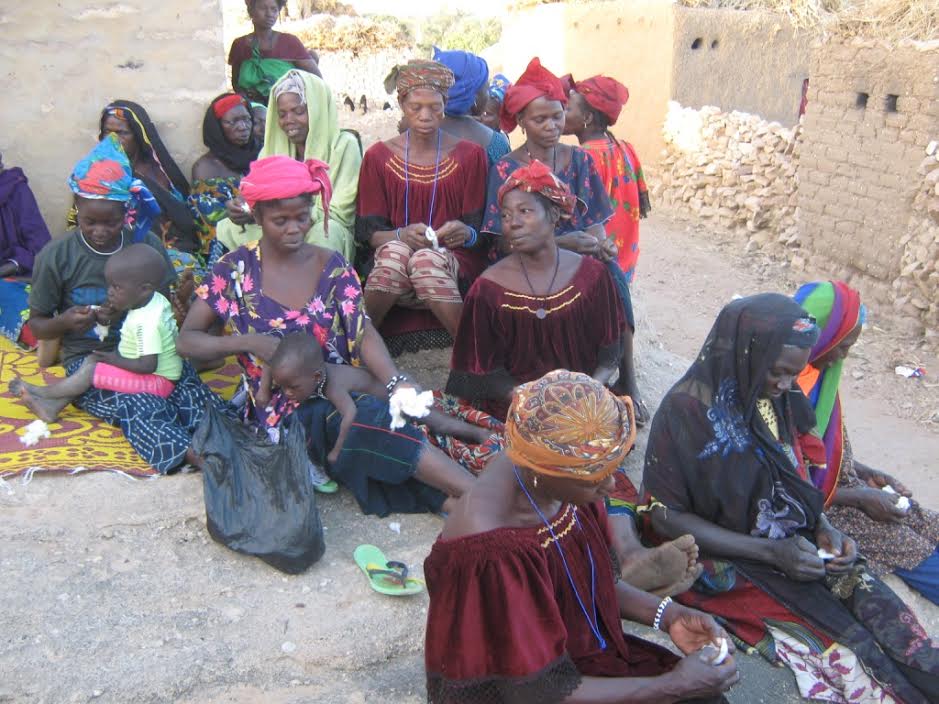
Grain & Cotton Banks in Sal-Dimi - At a general assembly meeting in Sal-Dimi (Mali), the community members heard a report by the committee that manages the bank and evaluated their work. The community members congratulated the committee for their good management, reelected the committee members for next year, and asked them to try and buy 2 tons of millet by the end of February. At that same meeting, the community members also evaluated the work of the committee that manages the cotton bank, which is run the same as the grain bank, and made plans for next year.
Spring & Summer 2016
Mali
April 2016
“Dining for Women” Grant - Tandana is pleased to announce that it was awarded a grant by Dining for Women, a nonprofit organization that funds grassroots programs working in developing countries to fight gender inequality. The grant will help support Tandana's Literacy Program for women in Mali.
May 2016
Ologuine Well Project - The well has reached 21 meters in depth! They have not hit water yet, but the soil is moist and they expect to hit water soon.
June 2016
Literacy Program - To date, 1,117 women have completed the first phase of the Literacy Program. In this phase, the women have learned reading, writing and arithmetic.
July 2016
Kansongho Community Garden - The garden is thriving and the community members have even harvested fruit from the moringa trees!
Indigo Bank - The new indigo bank, which Tandana supported, is officially open. Having the bank allows women in several villages in Ondogou Township to purchase all the supplies used in the indigo dyeing trade at an affordable and stable price. The women purchase the supplies they need on credit and once they have sold their product, they repay the bank. Training in safe indigo dyeing techniques was also provided for the women. Seven women were chosen to sit on the bank's management committee. The committee members attended a four-day training session to learn how to manage the bank and keep records. The committee members learned the skills needed to keep the records by participating in Tandana's Literacy Program.
Ecuador
July 2016
Quichinche - Master Gardener Volunteers purchased a tent for the Pastavi neighborhood in Quichinche so that community members would have a place to hold their community meetings and celebrations.
Lakeside Service Program - Eleven students from Washington state assisted the school for students with special needs in La Joya where they painted furniture for a living classroom that will teach students home economics and lifestyle. The students also repainted the community center in Tangali. Throughout their trip the students participated in various cultural exchange activities such as homestays, salsa dancing, a visit to the Kichwa museum, and participation in a cooking class.
REACH Service Program - Two different groups totaling thirty-two participants from Santa Barbara county in California joined Tandana for three weeks each. These groups are part of a four year scholarship and mentorship program who visited Ecuador as a culminating experience to end their program. One group stayed in the neighborhood of Pastavi, while the second stayed in the community of Agualongo. Both worked at the Quichinche school. There they installed a cement floor and put up the structure for the school’s new gazebo project, which will be used as a reading space and for lectures. They also spent a week working at Tandana’s summer school, where the REACH students worked in small groups to teach elective classes including dance, geography, food science, arts and crafts, and painting.
August 2016
Tech Service Corps Service Trip - The group of eighteen spent one week living and working at the Ulpiano Navarro School in the community of Quichinche. Work included installation of twenty desktop computers, one document camera, and the Rachel+ software system. They also installed 29 laptops and the Rachel+ system in Tangali as well as donated laptops to the Community Center, Milk Association, and the Water Coop. The participants had the opportunity to teach English classes that applied to the recently installed software system. Throughout their trip, the participants engaged in cultural activities such as the interactive Kichwa museum, salsa lessons, and a visit to the Afro-Ecuadorian community of El Juncal.
Late 2016
September 2016
10th Anniversary - In celebration of the 10th anniversary of the Tandana Foundation, board members, staff, and friends of the foundation met in Ecuador for a week-long program in the end of September. The week was filled with presentations to help strengthen the work we do in areas such as scholarships, patient follow-up, expense reporting, storytelling, teambuilding, supporting our interns & fellows, community projects, and others. There was also time to do meaningful work in a few communities planting trees in Muenala, painting a community center in Cutambi, and cleaning out a drainage ditch along a road in Agualongo.
“Tandana is an incredible foundation that has priorities in place. It's an honor to work with such awesome people in both the communities and the Tandana staff.” – Shannon Cantor
October 2016
Health Care Volunteer Venture - From October 9-16th, the Tandana Foundation held its twentieth Health Care Volunteer Venture. Fifteen volunteers arrived from various locations in the US to Ecuador, where they teamed up to provide free basic healthcare to five different rural communities in the Quichinche Parrish. The group included 4 certified medical providers, several professionals in the medical field, and volunteers without medical background. Volunteers, Tandana staff, two local dentists, and professionals from local public health clinics all worked together to intake patients, direct them to the providers, vision center, or dental care, and finally to prescribe and give any needed medications. Over the course of the week, over 500 patients from 5 different communities were seen. For patients who necessitate continuing care, the Patient Follow Up Program will walk with the patient through the public health system to access the care they need.
"This was my fourth trip. After the first day, I said to myself: "this is going to be one of the best weeks of my life." – Chuck Birkle
Gardening Volunteer Venture - A small and dedicated group opened their hearts to Ecuador, planting 100 ornamental plants, 150 native trees and 25 medicinal plants during the last week of October. At the weather station in Inguincho, meteorologist Galo Perugachi shared observations about the impacts of climate change on Ecuador’s snowpack, species distribution, and growing seasons. Local friends joined the group on a field trip to the rumored to be 5,000-year-old Polylepis forest and to see the unique frailejon plants. Then, the group partnered with seventh graders from Quichinche school to beautify the school farm and share songs. They also planted Andean alders and other native trees along a streamside trail in Tangali, helping the community move toward its vision of a sustainable tourism venture.
“Great experience. Lovely, organized, gracious, patient, upbeat staff. Beautiful native Ecuadorians. Natural beauty can't be beat.” – Kelly McGee
November 2016
ARCC Programs - Two different group from ARCC's Latin America Gap Year program joined Tandana for a week each as a part of their travels and studies. The group is part of a three-month gap semester program which focuses on service learning and experiential education. The ARCC groups each stayed in the community center in Panecillo for a week while working at the Quichinche school. They contributed to creating the walls and ceiling for the school’s new gazebo project, which will be used as a reading space and for lectures. They also spent time learning about the traditions and practices of the region, and wrapping up their observations after their month in Ecuador.
“The work you do is work the community asks you to do, rather than work you think needs to be done. 10/10 for listening and following the needs of the people you help!!!” - Andrea Stanley
Student Mothers Project - The student mothers project supports girls from rural villages who are living in the town of Bandiagara, Mali, so they can attend middle and high school. They have to find families to host them, and, if they get pregnant, the families usually send them home and they have to drop out. This project provides training for the families to explain that they still host the students even if they are young mothers, and supplies food and basic medical supplies for the babies, so they are not an extra cost to the families. It helps girls stay in school despite the challenges of motherhood.
School Garden in De - Kaleb Poudiougou, director of the middle school in De, Mali, wanted his students to learn about gardening and also realize that they could earn money for school supplies they need. Tandana helped make this dream a reality. The students and teachers now grow vegetables, such as tomatoes, squash, lettuce, peppers, eggplants, etc., and then the students sell the produce to earn money to buy school supplies. Tandana also provided tools, seeds, and training for the teachers, students, and parents association representatives.
Ecuador 2015
Bear Lake Health Care Volunteer Program –Three medical practitioners and twelve volunteers – all from the Bear Lake region of Idaho – joined Tandana and several local medical practitioners for a week of medical work in rural communities around Otavalo, Ecuador. In five days of clinics, the group provided care for 84 dental patients, 138 vision patients, 216 medical patients, and a total of 253 individuals. They also learned to cook a traditional Kichwa meal at  Cocina Samyanuy visited the nearby town of Cotacachi, met with a local weaver and witnessed the traditional weaving process, explored Condor Park and watched a flight demonstration, and boated around the islands of the volcanic Cuicocha Lake.
Cocina Samyanuy visited the nearby town of Cotacachi, met with a local weaver and witnessed the traditional weaving process, explored Condor Park and watched a flight demonstration, and boated around the islands of the volcanic Cuicocha Lake.
Ohio Master Gardeners Volunteer Venture – Fourteen dedicated master gardeners from Ohio joined Tandana for a week. They spent time in several communities around Otavalo, Ecuador; at the vivero (tree nursery) in Achupallas, they weeded countless beds, covered over 100 feet of piping for the sewage system of the new building, and prepared bags of soil for future use. In Muenala, they planted around 500 trees and participated in an incredible minga feast with the community. In Guachingero, they planted and weeded a community garden, helped build a fence around a new garden area, and created activities for the grade school students using vegetables, leaves, and other natural (gardening) products. It was a lovely week of service, education, and joy.
Northeastern University Group Service Project – Eleven students and one faculty member from Northeastern University in Boston spent a week building a bathroom at the community center in the community of La Banda. They worked alongside community members mixing cement, digging a trench for pipes, and laying cement bricks. They also had a lot of fun building relationships with the community members by not only participating in indigenous games but also by teaching them some of their own games, and enjoying community lunches with them. The community of La Banda enjoyed sharing this experience with a great group of students.
George Washington University Group Service Project – A group of eighteen students and two faculty advisors from George Washington University in D. C. chose to spend their spring break week in and around Otavalo, Ecuador. Every morning, they worked in the community of Panecillo, learning from a local maestro the art (and science) of mixing concrete, plastering, and paving. In the process, they also built a stove that the community will use to cook large meals for mingas and celebrations, plastered the community kitchen, and paved a patio. While in Panecillo, they taught English classes to students in the local primary school. They also spent time with community members in Panecillo; they spent one afternoon with a Tandana intern's host family learning about traditional embroidery and bracelet making; another afternoon baking bread with a different intern's host family; and learning to cook a traditional Kichwa meal at a  Panecillo-based cooking school. Additionally, they hiked around the volcanic Cuicocha Lake, explored the Condor Park and watched a flight demonstration of eagles and kestrel, and adventured along the shores of Mojanda Lakes. It was a week of laughter, service, and reflection.
Panecillo-based cooking school. Additionally, they hiked around the volcanic Cuicocha Lake, explored the Condor Park and watched a flight demonstration of eagles and kestrel, and adventured along the shores of Mojanda Lakes. It was a week of laughter, service, and reflection.
Health Care Volunteer Venture in Ecuador March 2015 – Over the course of two weeks, nine medical practitioners, one dentist, and thirteen volunteers from the U.S. and Canada joined Tandana and several Ecuadorian medical professionals to provide medical care in rural communities around Otavalo, Ecuador. In ten days of clinics, the group provided care for 218 vision patients, 406 medical patients, 706 pediatric patients, and 419 dental patients. They also learned to cook a traditional Kichwa meal at a  local cooking school, visited a reed weaving cooperative, watched a master weaver practice his traditional craft, hiked to two lovely waterfalls, watched an instrument-maker create a pan-flute, played a game of soccer, hiked around Mojanda Lakes, participated in the
local cooking school, visited a reed weaving cooperative, watched a master weaver practice his traditional craft, hiked to two lovely waterfalls, watched an instrument-maker create a pan-flute, played a game of soccer, hiked around Mojanda Lakes, participated in the  Quichinche parade, explored the quaint village of Cotacachi, and boated around the sparkling San Pablo Lake.
Quichinche parade, explored the quaint village of Cotacachi, and boated around the sparkling San Pablo Lake.
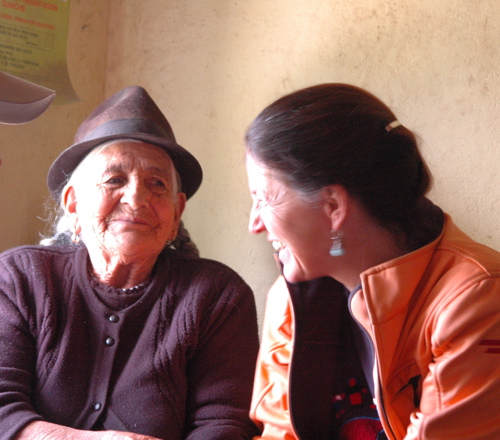
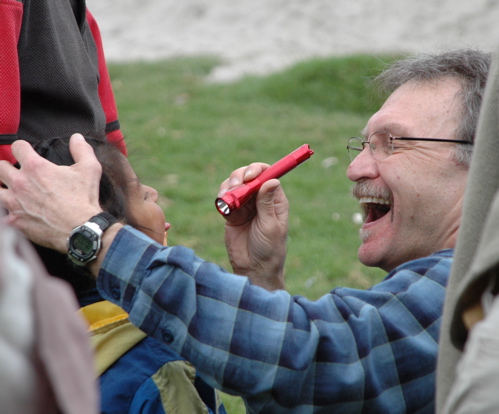
University of Cincinnati Education Program – In May 2015, 18 students and 4 chaperones from the University of Cincinnati joined Tandana to teach in four schools in different communities. The communities of Guachinguero, Cutambi, and Panecillo welcomed the students into their classrooms to teach English lessons, while the La Joya school offered the students a chance to work with 13 special needs children. The group enjoyed a wide variety of cultural activities including dancing in an Afro-Ecuadorian community, visiting a Kichwa culture museum, and learning about bilingual education after an exhilarating hike to Taxopamba waterfall. The trip was a wonderful way to end their semester after learning about Ecuador's culture and education system all semester long.
In June 2015, a group of high school students and teachers from Ohio joined The Tandana Foundation in Otavalo for environmental service week. They helped local construction workers build raised germination beds inside the greenhouse at the UCINQUI native tree nursery and worked with Matias to care for the trees. They also visited a weather station to learn about climate change, hiked to the Peguche waterfall, and enjoyed a cooking class with Tandana's Patient Follow Up Coordinator Virginia Sanchez. It was an exceptionally rewarding experience for all. Debra, one of the teachers, remarked, "I have traveled with students on 8 different trips, in the US and abroad, and this was the best trip I have ever done. From the relationships we formed and the experiences we had, every aspect of this trip was wonderful. . . I know our students are better people for having been a part of Tandana!"
Summer School – Three volunteers from the States and France took on 55 students for this year's summer school in July and August. Hosted by Ati Pillahuasu School in Panecillo, the students not only learned English but also a variety of other subjects. Each week had a different theme including movies, art, science, geography, and sports, and every Friday, the students did an activity together or went on a field trip. They made murals, played trivia games, and took trips to La Mitad del Mundo and The Living Kichwa Museum. The classes prepared the students to succeed in the new school year and offered new experiences.
In June and July, another group of high school students and leaders from Lakeside School in Washington became new members of host families in Agualongo, Ecuador. During their month together, the families and students worked in the fields, baked bread, collected firewood, worked in mingas to improve the new community center, played games and did art projects, and enjoyed a boat ride on Cuicocha Lake. The Lakeside group also spent a week improving the facility of the La Joya school for children with special needs, brightening it up and making it more magical for the students. They hiked Fuya Fuya volcano and visited El Juncal, an Afro-Ecuadorian community. When it was time to part, everyone was sad that the end of their time together had come and grateful for the new friendships formed.
In July, the community of Cutambi, Ecuador welcomed 15 students and 2 leaders from Adventures Cross-Country for a week. The students worked alongside community members constructing the first phase of the new casa communal. The students worked diligently and interacted with community members during their stay, making bracelets and playing exciting games of soccer. They enjoyed bathing in Peguche waterfall and learning about the vibrant Kichwa culture at the living museum. They were sent off with a wonderful despedida lunch of chicken soup and cuy and everyone was very excited and satisfied at the progress that was made.
In October, Tandana’s Health Care Volunteer Venture visited five communities, namely Mojandita, Panecillo, Cutambi, Minas Chupa, and Guachingero. Four volunteer medical providers and nine non-medical support volunteers from the United States were joined by several local medical and dental providers, a few of Tandana's university scholarship students, interpreters, and other local team members. We provided medical and dental attention to 447 patients. This was our first medical program to incorporate EMR (electronic medical records). That first day in clinic was the test of our new technology and everyone wondered how it would work. After ironing out a few hiccups in the morning, as a team we got all our wires connected and ran a very successful day with our updated electronic records. There are many exciting advantages to the new electronic procedure, particularly in terms of the accessibility of patient histories for tracking patients’ medical concerns. Also, the new technology will allow Tandana even more accurate record keeping for patient totals, complaints, referrals, and other important documentation. And as usual, it wasn’t all work. Our group did several afternoon excursions to explore the Ecuadorian countryside and re-connect with many of Tandana Foundation’s old friends. We held our final luncheon at Tambo Inti in Quichinche and invited all of our team members; our amazing local dentists Doctors Pablo and Anita , our interpreters, our bus driver, and several of the Tandana Foundation Scholarship students who joined us in clinic were outstanding in their dedication and assistance.
Also in October, Tandana Foundation hosted thirteen volunteers in various gardening projects in the Otavalo region north of Quito, Ecuador. We spent our first two work days in the school garden at Cutambi, planting bougainvillea, hibiscus, and begonias as well as building and painting planters out of old tires. The school children were thrilled to participate in these projects with their new North American friends. The clear skies gave us extraordinary views of Volcano Cayambe, the third highest volcano in Ecuador. Spectacular! The following day, we ventured north of Ibarra, the capital of the Imbabura province, to visit the Afro-Ecuadorian community of El Juncal. There, we were treated to a tour at an organic fruit farm with our friend, Don Fabian, a delicious lunch at the cultural center, and a dance presentation by several girls from the community. Our next two work days were spent at the native plant nursery in Achupallas, supporting Don Matias in the important work he and UCINQUI are doing to revitalize native plants in this region. It is amazing to consider that in just four days we donated 288 hours worth of gardening work to local communities!
In November of 2015, a group of gap semester students from Adventures Cross Country came to the community of Cutambi to help with the second step of building the casa communal. 14 participants joined us for 8 days in the community where they stayed at the local school and worked in the mornings with the community members. They also enjoyed spending time with the community children and participating in cultural activities such as bread making, bracelet making, and a community hike. On the last day of the community stay, community members in Cutambi and the ARCC participants together finished the roof of the building, achieving their goal.
Mali 2015
Stove making – From January 12 to January 19, 2015, The Olouguelemo Environmental Association – in partnership with The Tandana Foundation – held a training session on making more environmentally-friendly iron stoves. These stoves are much more efficient than cooking on open fires, requiring much less firewood. Twenty-two participants, representing the ten villages that make up Olouguelemo, attended the training session. The participants learned how to make two types of stoves, then returned to their villages to continue production.
Cotton Bank in Sal-Dimi – The village and contractor have constructed a storehouse for the cotton bank, and the assembly of women chose a committee to manage the bank. Tandana provided training to the committee. The first stock of cotton has arrived, and the committee has divided it among the women in the village who want to work with it. Once they have sold the cloth made from the cotton, they will pay for the cotton they used, providing the fund for restocking the bank next year. Having the cotton bank will allow the women of Sal-Dimi to have access to cotton year-round at an affordable price.
Cotton Bank in Yarou Plateau – As of April 2015, the cotton bank is operating, using a previously-built storehouse. The assembly of women has chosen a committee to manage the bank. Tandana provided training and the first stock of cotton to the committee. The women of Yarou Plateau are dancing with joy in the confidence that they will always be able to afford cotton to transform into cloth.
Literacy Program – Our 2014-2015 session ended with a closing ceremony in each of the different villages where literacy classes were held. Students said that thanks to the classes they could count from 1 to 10,000, perform basic calculations (addition, subtraction, multiplication, and division), and read words. They also said they now could identify the numbers on a telephone and sizes on shoes. In two villages, the students performed songs and skits expressing the importance of what they had learned and its impact on their daily lives.
Second Stove-Making Session-- Tandana, in partnership with the Ologuelemo Association, held a second stove making training session for the representatives from the four new villages who recently joined Ologuelemo. Just like the first training, this training was a huge success. The two representatives from Kansongho, who were at the first training session, also participated in this session as a refresher course.
Savings for Change-- Tandana held a training session for the trainer and supervisor who will be involved in the new Savings for Change Program in Ondogou Commune. Aldiouma Tembiné, a local teacher, will be the trainer, forming groups of women and teaching them how to run the savings and credit program. Housseyni Pamateck, Tandana's Local Supevisor, supervises and supports Aldiouma. As of July 2015, there were 5 savings groups operating, with a total of 125 women. Each group had saved at least 35,000 CFA ($70) so far and loaned out the majority of that to members.
Ecuador 2014
In January 2014 the community of Gualapuro, Ecuador welcomed Miami Valley School from Dayton, Ohio into their homes for a two week immersion program. The group stayed with host families, sharing food, learning Kichwa, and lending a hand with some construction on the community’s school. Miami Valley School completed the first upstairs classroom by installing floor tiles, finishing the ceiling, and laying blocks on the cement staircase. The community of Gualapuro believes education to be extremely important and they have set a goal to provide each individual grade level its own classroom. They are grateful to the Miami Valley School students as they helped the community get one step closer to achieving its goal. Additional highlights from the program include: taking a trip to Lake Cuicocha with the students of Miami Valley and their host families, dressing up in traditional Otavaleno clothes for a soccer match, and teaching the community how to make pizzas and smores! After spending two memorable weeks in Gualapuro, the Miami Valley students returned home full of life changing memories that they will carry with them forever. The classroom is now complete and ready for use. The students have a beautiful mural painted on the staircase to remember Miami Valley School’s contribution to the community.
In February 2014, a group of 16 enthusiastic Ohio Master Gardeners came to Ecuador interested in learning about local agricultural methods and techniques. They worked several days at the tree nursery in Achupallas with the Foundation’s good friend, Matias. Many hands made light work of filling bags up with dirt to be used for little seedlings, and for weeding the acclimatization beds. The participants also participated in two mingas, one planting trees in Muenala, and the other planting potatoes in Padre Chupa. As a part of this experience, the Gardeners enjoyed almuerzos comunitarios (community lunches) – a custom typical of indigenous communities where people bring dishes to share that are dumped onto a blanket and mixed together to be enjoyed by all. The Gardeners also did an amazing job facilitating educational art projects for students at Padre Chupa and Achupallas. In the afternoons, the Gardeners participated in various activities such as meeting a traditional weaver and healer, learning how to cook traditional Ecuadorian food, and touring a rose plantation. Thanks to the Master Gardeners for all their hard work!
On Valentine’s Day 2014, Agualongo de Quichinche welcomed 18 Traveling School students and their 5 teachers into the community for a week! The Traveling School stayed with host families, learning how to peel potatoes with knives, eating around the tulpa (hearth), practicing their Spanish (and some Kichwa), and teaching their families how to make s’mores. TTS also had the amazing opportunity to participate in a minga with the community, during which they helped lay tiles in a new community center, dug trenches in preparation for the installation of soccer stadium lights, and gutted chickens to be cooked for lunch. The community prepared a generous lunch for them, and all the girls had the opportunity to try cuy (guinea pig, a traditional Ecuadorian dish made for special occasions)! School looked a little different this week: learning about birds through an outing with their host families at the Condor Park; learning math from a local shopkeeper; taking a traditional cooking class; and learning about meteorology at a weather station in the middle of the clouds. Both Tandana and Agualongo are very grateful that TTS was able to spend some time with them during their three-and-a-half month South American travel adventure!
Also in February, The Tandana Foundation welcomed 16 students and 4 chaperones from Parrott Academy (PA) to Panecillo for a week of a great variety of service projects and learning in the area. The first project they participated in was a painting minga in Agualongo, a community that is quite intent on improving their infrastructure and casa comunal. The PA students greatly helped with several projects at the UCINQUI tree nursery, by deconstructing the old greenhouse and helping put together the frame and dig holes for the new structure. They also taught English and craft lessons to the students in Panecillo and Perugachi, much to the enjoyment of those kids. The group also learned how to cook a traditional meal, visited a master weaver, visited Lake Cuicocha, played a great soccer game against the community of Agualongo and hiked to 14,000 feet on Fuya Fuya. Both the Tandana Foundation and the communities that the PA students visited are grateful for their enthusiasm and hard work!
In March 2014, two groups from Northeastern University joined Tandana in Ecuador. One group stayed in the remote mountain community of Minas Chupa and worked with community members to build a fence to keep livestock out of the school yard. Together they installed a gate, put in posts, pulled barbed wire, and built friendships. While in Minas Chupa, the group also baked bread with a local family, taught computer lessons to local students, and danced to live Inti Raymi music with a chicken. Meanwhile, the other group, composed of twelve Northeastern Honors students and faculty, joined the community of Gualapuro to help build a school and join the fun of Carnaval. Alongside community members, the NE students mixed cement and laid bricks like pros, building the brick walls for two new classrooms in the community. In their rest time, the NE students led English lessons for the community’s students, made traditional meals, explored culture sights and blasted each other with foam and water during the community’s Carnaval celebrations.
Also in March, a group of Alternative Spring Break students from George Washington University came to participate in a service trip in Ecuador. They worked in the beautiful community of Guachinguero moving sand, rocks, and tying wire to help with the beginning stages of building a second story of a school building. The University students also prepared and taught thoughtful and creative English lessons for the school kids. When they weren’t working, they enjoyed hiking around Guachinguero, baking bread and making bracelets with the women of the community, taking a traditional cooking class, playing with kids, and soaking in the healing waters of some local thermal springs. Thanks to GW for bringing their willingness and ánimo to everything they did!
Next, Tandana welcomed a group of students from the University of Cincinnati to Ecuador. The students worked in a different community each day –Perugachi, Quichinche, Panecillo, Guachinguero, and La Joya – teaching English and playing games with the students. At La Joya, a school for children with special needs, the UC students helped paint a mural and even fed the kids breakfast and lunch. In the afternoons, the students learned more about Ecuadorian culture through a traditional cooking class, a musical instrument demonstration, a talk about bilingual education by Tandana’s good friend Segundo, and an outing with Tandana University scholarship students to the Condor Park and Lechero tree. What a full week!
To wrap up March of 2014, Tandana had two weeks of health care during which we visited ten communities and attended to 661 children and adults. We traveled to several far away communities including Minas Chupa and Muenala, offering care to patients who have difficulty accessing medical services. Staff from the Gualsaqui subcentro traveled with us on many days and even volunteered to work with us on Saturday. Patients were treated for hypertension, H. pylori, parasites, and many other medical conditions, in addition to receiving extractions and fillings from our dental team. When not hard at work, the volunteers enjoyed a boat ride on Lago San Pablo, swimming in the volcanic springs at Tangali, learning about traditional healing from shaman Santos Quilumbango, and visiting master weaver Miguel Andrango.
In April 2014, The Tandana Foundation and the community of Guachinguero welcomed 20 participants from Raymond High School in Alberta, Canada. The community is working on building a second floor on one of their school buildings, which will serve as a computer lab and teacher prep room. The group worked on the second phase of this project and stayed in the community center. Thanks to the many additional hands, the entire concrete floor on the second story was completed and the walls were removed from the first floor. The Raymond students also enjoyed the chance to teach in the classroom, as they had already spent lots of time getting to know the local kids. They also learned how to make bracelets and bread, hiked to the mineral springs in Tangali, and learned to cook a traditional meal. Their enthusiasm and teamwork while moving thousands of pounds of cement were impressive, and the community is excited to have shared the experience with Raymond School and to be one step closer to completing this important project.
During the summer, Lakeside School of Seattle, Washington worked with The Tandana Foundation as part of their Global Service Learning Program. Through this program and partnership, ten students and their chaperones completed three different service projects over the course of 30 days. Specifically, they helped construct part of a local school, worked in a native tree nursery, and painted a house complete with a beautiful mural. They also organized a day camp for the children of their host community, teaching English, art, and field games. This cross-cultural learning experience was made even more special by the bond formed with their host families of Gualapuro, who welcomed them with such open hearts. Alongside their new families, students enjoyed making smores at a community bonfire, practicing their Kichwa, and dressing up in traditional clothing for the annual Inty Raymi festival! The month was full of unforgettable moments for the Lakeside students, introducing them to a new culture and new friendships.
In October, Tandana spent a week with 13 incredible volunteer gardeners from across the United States. In the mountains around Otavalo, Ecuador, they worked with Matias to plant granadilla seeds, cut alder shoots, reinforce the greenhouse at the Vivero, and plant 500 acacia trees with the community of Muenala. They also created activities for the grade school at Guachingero, including an interactive lesson about compost and another on starting seeds in a hollowed out orange peel. It was a wonderful week of service, adventure, and laughter.
Next, five medical practitioners, one dentist, and eight volunteers joined Tandana for a week of medical work in rural communities around Otavalo, Ecuador. In five days of clinics, the group provided care for 102 vision patients, 213 medical patients, 274 pediatric patients, and 337 dental patients. They also learned to cook a tradition Kichwa meal at a local cooking school, visited an instrument maker and watched a pipe be assembled in less than five minutes, met with a traditional shaman, and boated around the islands of the volcanic Cuicocha Lake. The week was lovely – full of service, care, and exploration.
In early November, Tandana was joined by a Gap year group of students from Adventures Cross Country. They spent one week in the community of Guachinguero working on the fourth phase of construction of a new building for the local school. The group started off priming and plastering the building, and later painted it three different vibrant colors. They also had the opportunity to teach English at the school. The group participated in a number of local excursions and activities including: bread and bracelet making, cooking, attending a local wedding, dressing in traditional attire, visiting Cuicocha Lake and of course spending time shopping in the famous Otavalo market. The community sent them off with an amazing despedida filled with speeches, songs, dances and a grand feast of guinea pig, chicken soup, corn, cheese, favas and juice.
In December, three students and two leaders from Breakwater Expeditions participated in a volunteer program in Panecillo, Ecuador. They started off their trip by joining in a community minga, helping build a kitchen and bathroom next to the school. They then stayed in the community center and taught songs in English at the school each day they were there. On the final day, the kids put on a despedida and sang the songs they had learned. The participants also sang for the kids, and then everyone had a wonderful lunch together. The participants enjoyed the waterfall at Peguche and the always-delicious food at Cocina Samyanuy cooking school. They also enjoyed time with community members, working in Dionisia’s garden and making fajas with Rosa.
Mali 2014
Community Garden in Kansongho – Tandana supported community members in Kansongho with a fence, water tower, solar pump, and irrigation system for a community garden. In the fall of 2014, community members harvested their first crops from their garden. They learned how to grow new vegetables, which they had never gone before. They also learned how to prevent termite attacks, germinate seeds, and make garden beds. Along with all the training they received on gardening, they also receive training on the garden's new irrigation system. They learned how to care for, maintain, and fix the irrigation system. The community members enjoyed the training and are now enjoying putting their new knowledge into practice.
Literacy Program – This important Tandana program keeps growing. In December 2014, a 30 day training for new literacy instructors was held. At the end of the training. The seven most qualified candidates were chosen to join Tandana's three experienced instructors. Out of the seven new instructors, three are women, which is very exciting. Most impressive is Ada Kanambaye, who was one of our literacy students a couple years ago and is now working to teach her fellow women how to read and write. Each of the ten instructors are now teaching five days a week in different villages. The different villages are Orsongho, Dianou, Oyè, Goundoli-Dogon, Ologuiné, Sol-Dogon, Sandian, Tené, Gagnaga, and Kani. All the classes are going well, and in March the updated version of the teacher's guide was finalized and distributed to the instructors.
Cotton Bank in Sal-Dimi – The construction of the storehouse for the cotton bank is going well. The committee who will manage the cotton bank have been selected and trained. The first stock of cotton has arrived and has been divided among the women in the village who want to work with it. Once they have sold the cloth made from the cotton, they will pay for the cotton they used, providing the fund for restocking the bank next year. Having the cotton bank will allow the village's women to have access to cotton year-round at an affordable price. The women are excited to have control over the cotton, which is a vital resource for them. This project is truly improving the lives of women in Sal-Dimi.
Savings for Change -- Savings for Change group members in Yarou Plateau meet weekly to save and receive loans. Each week, every member contributes a set sum to the fund, and they use the fund to make loans to members for expanding their businesses, which include micro-commerce, gardening, and cotton work. The loan repayment rate is 100%.
Ologuelemo -- Tandana provided support for the environmental protection association Ologuelemo, involving 8 villages, and training in the fabrication of efficient cookstoves.
Carpentry -- Tandana provided additional carpentry training for men in Kansongho.
Ecuador 2013
In February 2013, nineteen Master Gardeners from Ohio came for the first time to work with Tandana in Ecuador. They worked alongside Matias Perugachi in the UCINQUI tree nursery in Achupallas. Matias, our good friend and sole employee of the nursery, was blown away by their enthusiasm and how much they accomplished. In addition to improving the tree nursery, which benefits twenty-three communities, the group was also able to participate in many other cultural exchange activities, including a traditional cooking class and seeing an international chainsaw sculpture symposium in action. A highlight of the trip included planting 200 trees with 46 students at the Quinchinche school and teaching some fun lessons on the importance of plants.
At the beginning of March, a group of 12 students from Northeastern University joined Tandana to work and learn together in the community of Gualapuro. Every morning the students worked on building two playground structures for the preschool in Gualapuro and caring for the preschoolers. One structure was designed kids ages 4 and up, and one for toddlers. By the end of the week, they completed the play structures and were able to see the children enjoying their new toys. In the afternoon, the students spent more time in the community harvesting local crops, weaving bracelets and making bread by hand. The week culminated in a celebration featuring dance and song performances by both local children and the Northeastern students.
Next, nineteen staff and family from Bear Lake Memorial Hospital in Idaho flew to Otavalo to work with Tandana putting on free medical clinics. Bringing a strong sense of enthusiasm and organization, the group went straight to work, running six medical clinics in five days! The team saw 190 medical patients and performed 228 pediatric check ups. They also added to our diagnostic abilities by bringing a portable ultrasound machine. In their free time they explored Peguche Waterfall, saw a weaving demonstration from master weaver Miguel Anrango and cooked a traditional dinner with indigenous chef Claudia Fuerez. They also danced and one group member rode as queen on the Tandana float in the parade opening the Quichinche festival.
Then came our thirteenth Health Care Volunteer Venture. For two weeks, volunteers including six doctors, a dentist, and others from throughout the United States and Mexico worked together to provide health care in ten rural communities in Quichinche parish. They improved our dental capabilities with more equipment and materials for preventative treatments such as fluoride and sealants, and they performed check ups on 591 children in addition to seeing 443 medical patients. After work, they enjoyed seeing Ecuador beat Paraguay in a World Cup qualifying soccer match, hiking from the condor park to the Peguche waterfall, visiting Cuicocha and Mojanda Lakes, and dancing to live Andean music.
In the last week of April, the 8th grade class from Headwaters Academy in Bozeman, Montana joined us in the rural community of Padre Chupa for a week-long camping trip. The group of ten students and two teachers packed their sleeping bags and stayed at the elementary school located at over 10,000 feet elevation in the Andes Mountains. There the group helped the community to harvest over 400 pounds of potatoes and plant an assortment of vegetables for the upcoming harvest season. The students of Headwaters also taught an array of activities from Capture the Flag to “Twinkle, Twinkle, Little Star.” Likewise, the children of Padre Chupa shared their culture in the form of dance, food, and traditional music. They wrapped up the week with a day trip to the Interactive Science Museum in Quito where all of the kids learned about the human brain and laws of physics before saying their sad goodbyes.
During the summer, twelve students and three chaperones from Lakeside school in Seattle, Washington spent a month living in the community of Agualongo and completing service projects. Each student was paired up with a host family, allowing them to immerse themselves in the local indigenous culture and practice their Spanish. For the first two weeks they spent their mornings volunteering at the native tree nursery of UCINQUI, building a water reservoir and lending a hand to the sole caretaker Matias Perugachi. During the last two weeks of their stay they helped the Tandana Foundation run its summer school for local students. They assisted in English classes and taught their own classes on music, physics, and biology. They also had the opportunity to have fun with their host families while painting a community center, taking a boat ride on Lake Cuicocha, and teaching them how to make smores over a bonfire!
In October 2013 a small group of medical professionals and volunteers came together in Quichinche to provide quality medical care at no cost to 5 different communities. The numbers say it all: 167 medical patients, 70 dental patients, 176 pediatric check-ups, all done in 5 short days. Not only did the group work hard but they also enjoyed the sights, including the majestic Cuicocha crater lake and watched the Ecuadorian national soccer team nearly qualify for the 2014 World Cup in Brazil.
Later in the month, 6 wonderful gardeners assisted Matias in the tree nursery in Achupallas where they filled 564 bags with dirt and later transplanted 408 seedlings that they collected from the roadsides. They also participated in a tree planting community work day in the community of Muenala where, alongside members of the community, they planted 600 alder and Pumamaki trees. They also helped a 7th grade class plant a school garden and then taught them lessons about composting and insects. In the afternoons they enjoyed the Saturday market in Otavalo, the Peguche waterfall and many other local sights. Great Job everyone!
Mali 2013
Agricultural Innovations -- Short-cycle cowpeas, which Tandana introduced to ten villages, were the only ones that bore edible peas in some villages this year, because the rainy season was so short. These peas provide food during the most difficult time of year, when other crops have not matured and the previous harvest is long gone.
Well in Sal-Sombogou-- Community members and masons put the finishing touches on the restored and improved well in Sal-Sombogou, Mali. Before restoration, the well was dangerous and pollutants easily fell into the water.
Literacy-- Tandana provided literacy classes in 10 villages this year. These classes empower women with literacy, numeracy, and calculation skills. With the abilities they gain in these classes, students say they can manage independently in the marketplace, buy and sell without fear, get the products they want, and even keep better track of their menstrual cycles for spacing their pregnancies.
Ologuelemo-- Tandana provided training in assisting the natural regeneration of trees and soil conservation for members of the environmental protection association Ologuelemo, involving 8 villages. During a meeting of the association, a government forestry agent addressed the group, the first appearance of a public official of that level in the area. The villages are working together to protect trees in their region.
Carpentry-- Tandana provided carpentry training for men in Kansongho. They now have a carpentry workshop where they can build doors, windows, furniture, chalk boards, and other wood products. This local business empowers them with a source of income close to home.
Savings for Change-- Tandana provided training to women’s savings and credit groups in Yarou Plateau. They meet weekly to save money and then make loans from their group fund to members to expand their micro-businesses.
Ecuador 2012
In Ecuador, we had a busy spring with five different volunteer groups. In February, twenty students and six chaperones from Parrott Academy in North Carolina spent a week with us, rotating through several communities outside of Otavalo. They participated in a minga (community work party) that prepared the materials to build a retaining wall to protect Panecillo's water source from erosion and pollution. They also volunteered at two local primary schools, in Panecillo and Padre Chupa, where they taught English as well as arts and crafts. The group also helped at a plant nursery owned by the Union of Indigenous Communities of Quichinche. After visiting the Peguche waterfall and a master weaver, the group capped off its trip with a tour of Quito. Some of the student are already planning ways they can return!
Also in February, fourteen students and four teachers from The Traveling School also joined us for their sixth stay in the rural community of Agualongo. In seven short days the students and teachers cultivated deep and meaningful relationships with the members of the community. During their stay, the students took classes and also participated in a traditional Ecuadorian cooking class, bread making, a hike above the valley with a local woman, a lesson on rural farm practices, and of course many hours of soccer with local children and dancing to traditional Ecuadorian music. The students helped with a two day minga to replace the roof of the community center, followed by a feast complete with guinea pig, corn, soup, and potatoes. When it was time for their departure, tears were shed by students and families alike. The community insisted that next time, they must stay longer!
In March, came a group form Northeastern University, traveling as part of their Alternative Spring Break program. This group worked with community members from Panecillo to complete the construction of a retaining wall designed to prevent erosion that pollutes and blocks one of the community's two water sources. The students also collected saplings and planted a local tree species that provides extra protection against erosion. In addition to their community service, the group enjoyed cultural activities and outings, including a cooking class, a visit to a local weaving master, and a trip to Mojanda Lakes.
Meanwhile, 11 students and 2 leaders from Carpe Diem International Education came to stay for 10 days in the community of Achupallas. For seven days the students worked on constructing a greenhouse for the UCINQUI native tree nursery. Their hands and hard work were deeply appreciated by Matias, who runs the nursery, and the other members of UCINQUI. Carpe Diem students also taught English classes to the elementary students of the community and managed to fit in bread making, cooking class, arts and crafts with community children, a visit to the Peguche waterfall, a beautiful hike around Laguna Cuicocha with community members, and a wonderful fiesta with live music and traditional food! The experience was a first for both the community, which had never hosted a foreign group before, and the students, who had never stayed in a rural community such as Achupallas. Many of the students found a deeper appreciation for living more simply with a greater focus on family. The community is anxious to host another group.
Finally, thirteen volunteers traveled to the Quichinche parish of Ecuador for our eleventh Health Care Volunteer Venture. Together, the group accomplished an amazing amount, setting up basic health clinics in five villages in five days. The doctors were able to see 134 patients, while 49 adults received dental treatment. 223 children received preventative dental treatment including fluoride and sealants to prevent cavities, as well as parasite medication. In between administering quality health care, the volunteers cooked a traditional Ecuadorian meal, hiked to the Peguche waterfall, watched a traditional weaver practice his art, and had a picnic at Mojanda Lakes. Tandana health care teams have seen over 3,600 medical patients and 780 dental patients!
In late September of 2012, twelve students from Carpe Diem Education and their two Leaders joined six Tandana representatives in the community of Achupallas, Ecuador. The participants spent ten days living with local families and making friends with their hosts. In the mornings, they volunteered in the UCINQUI Tree Nursery, helping to construct a house and take care of the plants. In the afternoons the participants cooked a traditional Ecuadorian meal, toured the Condor Park, hiked to Cuicocha Lake, learned Kichwa phrases and made bread with a local family. The participants also joined in with community members to repaint the elementary school and created beautiful murals for the children to enjoy.
In October, we hosted our twelfth Health Care Volunteer Venture in Quichinche, Ecuador. Twenty volunteers, including three doctors, three P.A.s, three nurses, and other helping hands worked together, along with a local dentist and interpreters, to provide primary health care in ten different villages. Through medical consultations, dental treatments, and pediatric check-ups, they served 902 patients in two weeks. In addition to bringing their care and skills to rural villages, they also enjoyed Ecuador's food, music, crafts, and sporting events. A highlight was watching Ecuador beat Chile in a World Cup qualifying soccer match.
Mali 2012
In January 2012, eleven volunteers spent 16 days in Mali, helping with a variety of community projects. They helped build a grain bank for the village of Sal-Dimi and a latrine for the Kansongho cotton bank, as well as watering trees in the Kansongho orchard and participating in a soap-making training and a literacy class. They also found time to do lots of Dogon dancing, learn to speak some Tommo So, try drumming the traditional rhythms, visit a school and a mosque, participate in a wedding ceremony, and show villagers how to use new tools. The community members in Sal-Dimi are thrilled to have a stock of grain in this very difficult year and a safe place to store it and escorted the volunteers out of the village with song and drumming to alleviate the sadness of the farewell. Our fourth Mali Volunteer Venture was a meaningful experience for all: "we formed friendships and became fully immersed in the culture of Mali's Dogon region while providing aid for truly sustainable projects; And most importantly we worked right alongside WITH the community in the finishing of such projects, truly a collective effort allowing us to weave lasting friendships. The appreciation and welcome we received from these communities was like none other I've ever experienced!" said volunteer Kelly McCosh.
Meanwhile, we have begun a literacy class for the women of Kansongho and Kani, Mali. Using the first books printed in Tommo So, 150 women in 6 classes enthusiastically practice writing letters and numbers with the help of a local teacher. Thanks to a soap-making training, Kansongho women are also diversifying their sources of income. In Sal-Dimi, we have begun restoration and stabilization of the traditional well, which was in danger of collapse and needed constant repairs. We've also been assisting both villages with agricultural innovations such as the natural regeneration of trees in the fields and short-cycle cowpeas.
Later in 2012, our projects continue to move forward despite the unsettling national news. The community members of Kansongho and Sal-Dimi are extremely grateful for our gift of millet, which allowed them to cultivate their fields and bring in a bountiful harvest this year. Our second season of literacy classes is beginning, and we are expanding the Savings for Change micro-credit program to Yarou Plateau, in addition to more villages in Wadouba Commune. The environmental association Ologuelemo, which we supported in becoming a legal organization, is busy working for the encouragement of natural regeneration of trees in an eight-village area.
We have also completed restoration of the traditional well in Sal-Dimi, and villagers are confidently using it. In Yarou Plateau, we've helped the school and village with some seeds and training for their garden. And community members in Kansongho, Sal-Dimi, and 6 neighboring villages have held an assembly, with our support, and determined to create an association for protection of the environment, most specifically the encouragement of natural regeneration of trees and the prevention of wood cutting in a large area. In partnership with Vital Edge Aid, we are helping to expand the savings and micro-credit program that has begun in 8 villages of Wadouba commune. The literacy classes continue. The community members we work with are as determined as ever to keep working for the improvement of their communities. We hope that the political situation will allow them to do so.
Ecuador 2011
During the first week of March 2011, a group of 12 students from Boston’s Northeastern University spent their spring break working on various community service projects in the rural communities surrounding Otavalo, Ecuador. Students were greeted by the community of La Banda with a welcome ceremony featuring traditional music and a communal lunch. During the week, they dug and hauled dirt and mixed cement to build a new bus stop. The covered bus stop will provide much-needed protection from heavy rain and intense sun for residents of La Banda, who ride the bus for their daily commute to Otavalo. Other community projects included organizing and inventorying books for a new library in the local elementary school and working in a native tree nursery. In their free time, the students enjoyed a cooking class and delicious dinner with a local family. They prepared and ate guinea pig, chicken, marinated tomato and onion salad, llapingachos (spiced and fried mashed potato pancakes), mote (steamed fresh corn), and quimbolitos (banana leaf wrapped pastries). They also challenged the local kids to a soccer game, visited both traditional and modern weavers, learned about traditional musical instruments, hiked around Cuicocha Lake, went to the Peguche Waterfall, and celebrated Carnaval with a water balloon fight. Our local friends were grateful to the students for their willingness to work hard and leave a lasting legacy in their community.
Carpe Diem International Education joined Tandana for 2 weeks in March, doing homestays in the community of Agualongo and helping with projects from trash cleanup with local kids to weeding and transplanting native tree seedlings to teaching English and computer classes, preparing books for a new school library, and even Tandana's health care work in rural communities. During their time with Tandana, the students and their leaders not only experienced the Ecuadorian minga but also cooked and ate traditional foods, played soccer, joined in water fights for Carnaval, and danced in the parade opening the Quichinche festivals alongside the students they had been teaching during the week.
Tandana's ninth Health Care Volunteer Venture, in March 2011, was a great success. We worked in a different community every day, including two nearby and three more remote communities. Volunteers worked to take patients’ histories and vitals, interpreted for the doctors, dispensed medication in the pharmacy, and were runners between each station. The doctors saw a total of 133 patients in 5 community centers, and the local dentist saw 74 patients. Afternoon activities for the volunteers included going to the Peguche waterfall, having a cooking class (followed by a delicious dinner), visiting the Condor Park, shopping at the famous Otavalo market, and visiting Cotacachi, a town known for its leather goods. They also participated in Tandana's first ever float and dance troupe in the parade opening the Quichinche festivals!
In early May, ten students and two teachers from Headwaters Academy in Bozeman, Montana spent a week in the community of Padre Chupa. They were welcomed by the students and the entire community with a procession to the school, bringing firewood to make a huge bonfire, where everyone ate hot dogs and s’mores. They worked in the school garden alongside the 24 Padre Chupa students, and the community came together to install new soccer goals and volleyball posts in the soccer field. Needless to say, much soccer was played throughout the week! The Headwaters students also planned and taught lessons and activities to the Padre Chupa kids (including line dancing and Red Rover), and took a hike down into the valley to a waterfall. They took the Padre Chupa students to the thermal springs at Chachimbiro, an excursion that was enjoyed by all. They also made time during their brief stay in Otavalo to stop by the market, visit some local friends, and see a traditional weaving demonstration. The kids were sad to say goodbye to their new friends in Padre Chupa, but proud of all they had accomplished!
Five intrepid volunteers spent five weeks volunteering in Ecuador through our Summer Volunteer Program. Four worked with the Tandana intern to teach a month-long summer break English course, and one worked with local nurses and doctors in a rural health center. Volunteers stayed with host families around the communities of Panecillo and Quichinche and played countless games with all the neighborhood kids. They experienced traditional music and dancing during the fiestas of Inti Raymi in June, went to the thermal springs at Nangulvi, helped plant seedlings at a native tree nursery, rafted in the Chota Valley, hiked around Mojanda and Cuicocha Lakes and even 15,000 foot Imbabura Volcano. They also had two cooking classes with Tandana friend Claudia, and ate their way through every flavor of pie at the Pie Shop in Otavalo. They took two longer excursions, one to Atacames, a beach town on the coast, and a final trip to a jungle river lodge in the Amazonian eastern part of Ecuador. Relationships they formed their host families by sharing daily life, meals, work, and play were a highlight of the experience.
In October 2011, nine health care volunteers joined four long-term volunteers, our intern, our Group Coordinator, and Tandana's director for our tenth Health Care Volunteer Venture in Ecuador. With great camaraderie, commitment, and an ever present sense of fun, they visited five communities to offer basic medical consultations. The providers treated 168 patients, while the dentist saw 85. Meanwhile, our team of nurses did an additional 251 pediatric check-ups and treated all of those children for parasites. The team also found time to take in the scenery at Mojanda Lakes, cook quimbolitos and other goodies with Claudia, visit a shaman and a master weaver, and celebrate two birthdays. Over the last five years, Tandana health care teams have seen over 3,500 medical patients and 650 dental patients!
Also, in October, eight students and two leaders from Carpe Diem International Education joined us for a week in the community of Agualongo, Ecuador. They constructed acclimatization beds for tree seedlings at the UCINQUI native tree nursery and helped the community of Agualongo install a sink and countertop in the community center. Meanwhile, they also learned to bake bread with Agualongo women, went on a hike above the village with a host mother, played soccer with local kids, and learned about the family trees, food preparation practices, and culture of their host families. After the minga on Saturday, they sang a song in Kichwa at the farewell ceremony, ate soup, fava beans, potatoes, corn, colada morada, and tortillas de tiesto prepared by the community, and danced to the music of a local band. They left a mark on the community and carry many happy memories as they continue their journey through the Andes.
Mali 2011
In January, we hosted our third Mali Volunteer Venture. After making mudcloths in Djenne, the group traveled to the village of Yarou Plateau, where they were welcomed with performances by horsemen, hunters, and women. Volunteers and students planted mango trees in the new school garden and visited the storehouse for the the school lunch program, both projects made possible by Tandana. In Kori-Maounde, the volunteers also helped students plant fruit trees and visited the caves where village ancestors hid from enemies before and during the French occupation. The highlight of the trip was the week spent in the village of Kansongho, reconnecting with old friends and making new ones. Community members and volunteers danced in celebration of the group's arrival, then got to work building a storehouse for the new cotton bank, which will allow the women of the village to manage a large stock of cotton so that it is always available on credit and at a good price for them to transform and generate income. The children of the village did a mask dance and the young adults did a skit about cotton and a bendie dance performance, showcasing aspects of their culture that are in danger of being lost. Finally, the volunteers visited Sal-Dimi, where Tandana is restoring a well, then spent two days relaxing on the Niger River and reflecting on the amazing projects, celebration, and sharing they had participated in.
Ecuador 2010
In February and March, Tandana coordinated 2 service projects, hosted a benefit trip, and put on 2 health care volunteer ventures in Ecuador. The first project was for The Traveling School, who did their fifth village stay and service project in Agualongo. The girls and their teachers attended a traditional wedding ceremony on their first day in the community, then taught English classes for local children and helped to replace the roof on the community center. They went on a hike in the surrounding mountains and baked bread with local women, visited Tandana's scholarship coordinator for a math lesson, and went to a community-owned native tree nursery for science class. A highlight for many was helping to prepare guinea pig for the celebration feast on their last day in the village, and their memories of the week in Agualongo remain strong as they continue their journey through the Andes.
Next, a group of enthusiastic, energetic women from Northeastern University arrived to work with the community of La Banda. A ceremony featuring a communal lunch, traditional dances, demonstrations of traditional dress, and "ollas encantadas" a local version of piñatas, welcomed them to the community. During the week, they hauled sand and gravel up a steep hill, dug a trench, carried bricks, and helped community members build a water filtration tank to provide clean drinking water for the village. They also helped at the native tree nursery, visited both traditional and modern weavers, baked bread with community members, and visited Cuicocha Lake. The group's excitement about their experience has led them to recommend traveling with Tandana to their friends back in Boston.
We also had our second benefit trip, hosted by Nik Millhouse and Hacienda Cusin. The group enjoyed a wonderful tour, featuring world-class Pakacuna gardens, Haciendas Cusin and Pinsaqui, colonial Quito, a meeting with Tandana scholarship students, and visits to several communities where Tandana works, a master weaver, and leather and wood carving craft towns. They are excited about seeing Tandana's work and the beautiful Andean countryside, and their support of our efforts is tremendously appreciated.
Finally, in March we had two wonderful groups of volunteers who helped provide health care to rural communities in our seventh round of Health Care Volunteer Ventures. Both groups became efficient teams, allowing local access to important health services and also enjoyed visiting local friends, cooking class and baking bread in local homes, seeing waterfalls and lakes, and singing our new Kichwa health care song. We now have our own dental equipment and were able to hire a local dentist to fill cavities and extract teeth on site with us while we work. She did a fantastic job, treating 15-20 patients during each morning of work. The groups saw 428 patients in 7 communities, treating everything from parasites and conjunctivitis to arthritis, hypertension, and pharyngitis.
In June, The Tandana Foundation hosted 14 volunteers from North Carolina and Georgia in service projects in two communities just outside of Otavalo, Ecuador. The all-women group enthusiastically dove into all aspects of their Ecuadorian experience. From mornings in Larcacunga trimming baby trees in the local native plant nursery and shoveling rocks and cement at the community center in La Banda to afternoons visiting indigenous artisans and hiking to sacred waterfalls, they embraced every opportunity to get to know this new place and all of their new friends. One of the group’s favorite afternoon activities was spent at our friend Claudia’s house for a cooking lesson. The group learned how to make llapingachos (spiced and fried mashed potato pancakes), quimbolitos (banana leaf wrapped pastries), mote (steamed fresh corn), marinated tomato and onion salad, and a delicious spiced beef. That night, they feasted wonderful foods, but Claudia’s incredible warmth and hospitality was the greatest treat of all. All of the volunteers worked hard and our local friends were pleased with their efforts. On our final night in Quito, everyone brainstormed ideas for further service projects and all of the friends and family members they wish to bring along on the next Tandana adventure.
Three volunteers spent six weeks in Ecuador through our Summer Volunteer Program. They started with a week in Otavalo where they began to learn about what life in the rural Ecuadorian highlands would be like through walks in the nearby communities, visits with local friends, and an introduction to shopping in the market. They further explored the area by attending an Inti Raymi (Incan Sun) festival in the leather town of Cotocachi and a hike around the rim of the volcanic lake Cuicocha. Next, the volunteers settled into life with their host families and began their volunteer placements at subcentros (rural health centers) or teaching summer classes for Tandana’s scholarship students. Although everyone was busy with their volunteer work and spending time with their host families, the group got together every Friday to take the summer class students on field trips to waterfalls, lakes, and swimming pools. They also met up for weekend adventures to go hiking and rafting. The program concluded with a trip to the coast to enjoy a few days of whale watching and wildlife viewing on Isla de la Plata. About 50 students benefited from the summer enrichment classes in their most difficult subjects, and two rural health centers received support in their work to take care of the patients in their areas.
In October, we completed our 8th round of health care volunteer ventures. Since we began four years ago, we've been able to greatly improve our health care work with better systems, the appropriate supplies and information, and more connections in the local health care world. This month, our volunteer groups were able to see 262 patients for medical care and 205 patients for dental care, in addition to treating 159 schoolchildren for parasites. 526 people benefited from our visits to 10 rural communities in the Otavalo canton, and some of them received follow-up care with the help of our intern and two wonderful volunteers. In addition to an emergency room physician, two Physician Assistants, a registered nurse, and an occupational therapy assistant, we also had the help of a group of 11 students and 2 leaders from Carpe Diem International Education, a gap-year semester program. The students lived with host families in the rural community of Agualongo, and each week half of them helped with our medical work while the others took Spanish classes. They formed strong bonds with their host families, attended a traditional wedding ceremony, baked bread with Agualongo's president's family, and volunteered in a native tree nursery. The volunteers also learned about traditional healing from a shaman, visited a master weaver, and saw volcanoes Cotopaxi, Altisana, Cayambe, Cotacachi, and Imbabura while driving to remote mountain villages to provide health care.
Our scholarship program is going strong with 45 secondary students and our first university scholarship student benefiting! Margarita Fuerez, who is our first university scholarship recipient is a bright and motivated young woman who has overcome many obstacles in her life. She is studying accounting and is already working on a project to create a youth council in her area to get young people involved in serving their community.
Mali 2010
In January 2010, Tandana's Mali Volunteer Venture group enjoyed a meaningful and rewarding experience of village life and travel. After traveling from Bamako, and making mudcloths with artisans in Djenne, they visited the Kori-Maounde school garden, where students showed how they were taking advantage of Tandana's first project in Mali. Next, they hiked down the Bandiagara cliff to Tereli, where they helped students plant fruit trees in the school garden, also funded by Tandana, and were treated to a mask dance as a show of appreciation from the community. Then they went out to the village of Kansongho, where the whole group was blown away by the reception they received. Rifle shots, singing, dancing, Dogon masks, speeches, gifts, and skits celebrated their arrival. They visited the grain bank, which Tandana helped start, and soon got to work constructing a rock wall to protect a new orchard and planting 300 fruit trees. While in the village, they tried their hands at pounding millet, participated in a church service, learned to dance Dogon-style, and had their feet or hands tattooed with henna. The joy, friendships, and lessons the people of Kansongho shared with our group were deeply inspiring, and the volunteers have returned home with many ideas of ways to continue to help the village and a new perspective on life.
Ecuador 2009
Throughout the month of July 2009, Tandana offered free English and math classes for elementary and secondary students in Quichinche, Ecuador. About 80 students showed up on a daily basis for English classes, taught by Tandana intern Lauren Armstrong and Putney Student Travel volunteers. About 30 students attended math classes, taught by local teacher Alfredo Flores. In addition to classes, the students also participated in service projects and field trips, including cleaning up trash at the sacred Lechero tree, picnicking at the Peguche waterfall, and planting flowers at the Quichinche school. Many of our 45 scholarship students participated and enjoyed the opportunity. "This class helps us a lot with the English language," said Rupay, a scholarship student from Panecillo.
In September 2009, Tandana held its sixth round of Health Care Volunteer Ventures. The two groups of volunteers were able to see 359 patients in seven communities outside of Otavalo, treating them for parasites, H. pylori, respiratory infections, and many other diseases. They also enjoyed making bread with a local family, riding bikes down the mountain from Mojanda Lakes, sharing fish and soccer with local families at Yahuarcocha, practicing their Kichwa, and boating on San Pablo Lake. An Ecuadorian medical student was among the volunteers, increasing the cross-cultural sharing for everyone and having a blast discovering new parts of his country. "All the smile and strength that you have is admirable," he said.
March 2009 saw four Tandana groups visit Ecuador. Our first benefit group enjoyed a wonderful tour, featuring world-class Pakacuna gardens, Haciendas Cusin and Pinsaqui, colonial Quito, a meeting with Tandana scholarship students, and visits to a community-run native tree nursery, a master weaver, and leather and woodcarving craft towns. They are excited about seeing Tandana's work and the beautiful Andean countryside and are planning to return next year with friends and relatives.
Next came three weeks of healthcare, two for Tandana's Health Care Volunteer Ventures and one for a group of faculty and students from the University of Utah Medical School. They treated 566 patients in 12 communities for everything from headaches to h. pylori or infected wounds. The volunteers enjoyed working in some gorgeous locations on steep hillsides high in the mountains and also visiting waterfalls, discussing bilingual education, listening to local music, learning about traditional healing from a yachac, and picnicking with local friends at Cuicocha volcanic lake.
Mali 2009
In January 2009, The Tandana Foundation coordinated its first two volunteer programs in Mali. The first was a 3-day service project for a group organized by  Women Worldwide and Adventures in Rock. In between travels through the country and enjoying the music of the Festival in the Desert, this group took time to give back to the Kori-Maounde primary school. Volunteers helped the community members and children dig holes and plant 54 fruit trees in the school garden. The children will care for the trees and sell their fruit to earn money for school supplies. The volunteers also helped the community members dig a trench, lay a pipe, and create a watering basin, so that the children can water the trees more easily. They found time to play frisbee with the kids, teach them "head, shoulders, knees, and toes," and lead them with call-and-response to a water hole to bring water for the trees. They also visited a nearby historic site where the community member's ancestors hid from their adversaries in cave dwellings and an old iron smelter. In the evenings, they gave English lessons to middle school students at a dormitory. You can read a great description of their experience at
Women Worldwide and Adventures in Rock. In between travels through the country and enjoying the music of the Festival in the Desert, this group took time to give back to the Kori-Maounde primary school. Volunteers helped the community members and children dig holes and plant 54 fruit trees in the school garden. The children will care for the trees and sell their fruit to earn money for school supplies. The volunteers also helped the community members dig a trench, lay a pipe, and create a watering basin, so that the children can water the trees more easily. They found time to play frisbee with the kids, teach them "head, shoulders, knees, and toes," and lead them with call-and-response to a water hole to bring water for the trees. They also visited a nearby historic site where the community member's ancestors hid from their adversaries in cave dwellings and an old iron smelter. In the evenings, they gave English lessons to middle school students at a dormitory. You can read a great description of their experience at  Craig and Steph's Vacation Blog.
Craig and Steph's Vacation Blog.
Next, Tandana's Mali Volunteer Venture group arrived. We had a wonderful, diverse group of travelers who really appreciated every opportunity and enjoyed sharing their insights with each other. After traveling from Bamako, catching a bit of music in Segou, and making mudcloths and visiting artisans in Djenne, they hiked down the Bandiagara cliff to Tereli, where they visited the school and its garden that was funded by Tandana. Next, they went out to the village of Kansongho, where the whole group was blown away by the reception they received. Rifle shots, singing, dancing, Dogon masks, speeches, gifts, and skits marked the inauguration of the well Tandana helped to restore last year and also the celebration of our group's arrival. The village had already begun construction of the building for the new grain bank, and the volunteers pitched in, carrying rocks, drawing water and bringing it from the well, and plastering the interior with mud. They also helped to build anti-erosion dikes in the fields, hoe up the old millet stalks to prepare for next year's planting, and collect firewood for cooking. While in the village, they tried their hands at spinning and weaving, participated in a church service, learned to dance Dogon-style, helped with cooking, and, for some, had their feet tattooed with henna. The joy, friendships, and lessons the people of Kansongho shared with our group were deeply inspiring. The village is thrilled to be starting the grain bank. They have elected the committee that will manage it, and the first shipment of millet has arrived. Before the group left, the chief of Kansongho made a gift of a plot of land to The Tandana Foundation. You can read more on  the arts foundry blog.
the arts foundry blog.
2008
In February 2008, The Tandana Foundation coordinated a weeklong village stay and service project in highland Ecuador for  The Traveling School. Students and teachers lived in the homes of families and shared in daily activities in the village of Agualongo. They taught English to the local children and helped build a new bathroom for the village kindergarten. Meanwhile, they learned to bake bread in a wood-fired oven, hiked to the peak above the village, visited Cuicocha Lake with their hosts, and danced with the village in their going-away ceremony.
The Traveling School. Students and teachers lived in the homes of families and shared in daily activities in the village of Agualongo. They taught English to the local children and helped build a new bathroom for the village kindergarten. Meanwhile, they learned to bake bread in a wood-fired oven, hiked to the peak above the village, visited Cuicocha Lake with their hosts, and danced with the village in their going-away ceremony.
Then, in March, Tandana hosted its third and largest round of health care volunteer ventures. Three groups of volunteers, working different weeks, provided health care to almost 600 patients in 14 communities. The volunteers formed powerful teams working together to serve the patients and also found time to enjoy making local friends, Holy Week activities, eating fanesca soup, visiting with a local shaman and intercultural education leaders, and dancing with a local band.
In September, 2008, The Tandana Foundation hosted its fourth round of Health Care Volunteer Ventures. Volunteers from all over the United States joined with Ecuadorian professionals to offer affordable, accessible, and respectful health care to five communities in the Quichinche parish of Ecuador. This time, we added dentistry to our services, and that was a big hit. We were able to fill cavities for 55 patients. Our doctors and P.A.s, meanwhile, saw 427 patients, helping cure them of H. pylori, parasites, infections, and many other problems. It was a wonderful experience for the volunteers, also, who got to experience baptism celebrations, hikes with our scholarship students to beautiful locations, and meetings with fascinating community members.
Meanwhile, in Mali, work began on the new school garden at Tereli. This is the second school garden that Tandana has funded, and it will allow the students to grow fruits and vegetables, learn about horticulture, and also become more self-sufficient as they sell the produce to earn money for school supplies. A fruit tree nursery was also begun for the Kori-Maounde school garden, which Tandana helped to start last year. The well restoration project in Kansongho was completed, and the villagers are thrilled to have a secure, year-round water source.
2007
In February 2007, The Tandana Foundation coordinated a weeklong village stay and service project in highland Ecuador for  The Traveling School. Students and teachers lived in the homes of families and shared in daily activities in the village of Agualongo. They taught English to the local children and helped the community pave a muddy area next to the community center. Meanwhile, they also learned to peel potatoes, hiked to the peak above the village to take in the amazing Andean landscape, celebrated Carnaval by joining in a huge water fight, and gained new "parents, brothers, and sisters," whom they can't wait to visit again.
The Traveling School. Students and teachers lived in the homes of families and shared in daily activities in the village of Agualongo. They taught English to the local children and helped the community pave a muddy area next to the community center. Meanwhile, they also learned to peel potatoes, hiked to the peak above the village to take in the amazing Andean landscape, celebrated Carnaval by joining in a huge water fight, and gained new "parents, brothers, and sisters," whom they can't wait to visit again.
Then, later in March, a group of adults traveled to Ecuador to provide healthcare for underserved villagers. They saw hundreds of patients in four communities and also found time to experience the culture and area in amazing depth for a visit of just one week. They met with traditional healers, indigenous leaders, students, and a master weaver and hiked to sacred sites such as the Lechero tree and the Peguche waterfall. Throughout their stay, they reveled in the opportunity to interact as friends rather than tourists and to take in the region's natural beauty.
We have also begun work in Mali, where we have funded the creation of a school garden and the reconstruction of a well. We hope to offer volunteer ventures and service projects there in the future. Correspondence programs and sister city or school relationships are also available, and we are working on a Malian folktale book project that will benefit the village of those who shared the stories with us.
2004-2006
In 2004, The Tandana Foundation was begun with the goal of promoting cross-cultural learning opportunities and service projects. Operating under the auspices of the  Deer Hill Foundation, in July 2005 we were able to include two Ecuadorian participants in the Deer Hill Expeditions Expedicion Ecuador program, allowing them to travel around their country with North American students and then host these new friends in their village as they all worked together on community projects. It was an experience that still resonates in their hearts; Claudia, one of the local scholarship recipients, recently sent an email saying, "I wrote like a book about the trip and this year I reread it, saying last year I was there and there.... this is something unforgettable that I have experienced and I will never experience it again. Thank you so much again for everything." We were also able to provide partial scholarships to several North American students, enabling them to participate in this exciting program and experience Ecuadorian culture as few visitors are able.
Deer Hill Foundation, in July 2005 we were able to include two Ecuadorian participants in the Deer Hill Expeditions Expedicion Ecuador program, allowing them to travel around their country with North American students and then host these new friends in their village as they all worked together on community projects. It was an experience that still resonates in their hearts; Claudia, one of the local scholarship recipients, recently sent an email saying, "I wrote like a book about the trip and this year I reread it, saying last year I was there and there.... this is something unforgettable that I have experienced and I will never experience it again. Thank you so much again for everything." We were also able to provide partial scholarships to several North American students, enabling them to participate in this exciting program and experience Ecuadorian culture as few visitors are able.
In the summer of 2006, we offered two Ecuadorian students the once-in-a-lifetime opportunity to travel to the United States and participate in Deer Hill's Canyon Country program. Cristina and Elsa, who had never dreamed they would travel on an airplane, flew from Quito to Houston, Denver, and then Cortez, Colorado. Smiling in the sun in their traditional Otavelena dress, they awaited my pickup and the adventure of their lives. Joining their North American and French groupmates, they set off on a week-long raft trip on the Green River. They loved running the rapids in inflatable kayaks, cooking strange new American foods when it was their turn in the kitchen, and making friends with the young people in their group. After hiking in the La Sal Mountains and taking in an alpine beauty different from that of their Andean home, they journeyed to the village of Lower Moencopi on the Hopi Nation, where they encountered the highlight of their trip. Both they and the Hopi hosts were thrilled with the opportunity to share customs, traditions, and techniques with people of another indigenous American culture. Corn is central to the lifestyles of both, and they traded beliefs, processing techniques, and favorite dishes related to that crop. During our stay there, Lower Moencopi was also visited by Native Youth Cultural Exchange, a group of Native Hawaiian, Californian, and Hopi youth. Cristina and Elsa were able to join the young people from each of those cultures in presenting songs, dances, and traditions from their homeland at a cultural exchange potluck.
Their experience in the United States not only gave them a chance to learn about other cultures and make new friends, it also helped them value their own culture more, enlarged their perspective on the world, and gave them experience that will help in their future careers in the tourism industry in Ecuador. After the trip, Cristina wrote, "I am so happy and grateful to all of those who made possible my dream. I had many wonderful experiences, I learned to converse in English, and I also got to know the Hopi culture, in which they have conserved many of their ancestral traditions. I learned to value my culture... I know that this experience will serve me in my professional and personal life, because my dream is to become a professional tourism guide. This experience was a great practical and observation trip and I learned much more than I have in the classroom." The other members of their group also enjoyed and benefited from the opportunity their presence offered to form cross-cultural friendships and learn about a different perspective.
In addition to making possible these amazing experiences for Cristina and Elsa, we were also able to coordinate a week-long village stay and service project for The Traveling School and a month-long volunteer venture for a family from Montana. The Traveling School students and teachers stayed with host families in the village of Agualongo, taught English to the local children, helped the village paint their community center, played soccer with the mothers, and were amazed by the appreciation feast they were offered. The week there was a highlight of their three-month journey through the Andes because of the unique opportunity it offered for real cultural experience, friendship, and the chance to make a difference. Then, in June, a family of four from Montana journeyed to Ecuador and stayed with a family in the community of Rey Loma. They joined in festival activities with their hosts, supported the community soccer team, helped a school replace a badly-damaged roof, prepared Elsa and Cristina for their trip to the United States, and experienced so much that a typical visitor would never see.
